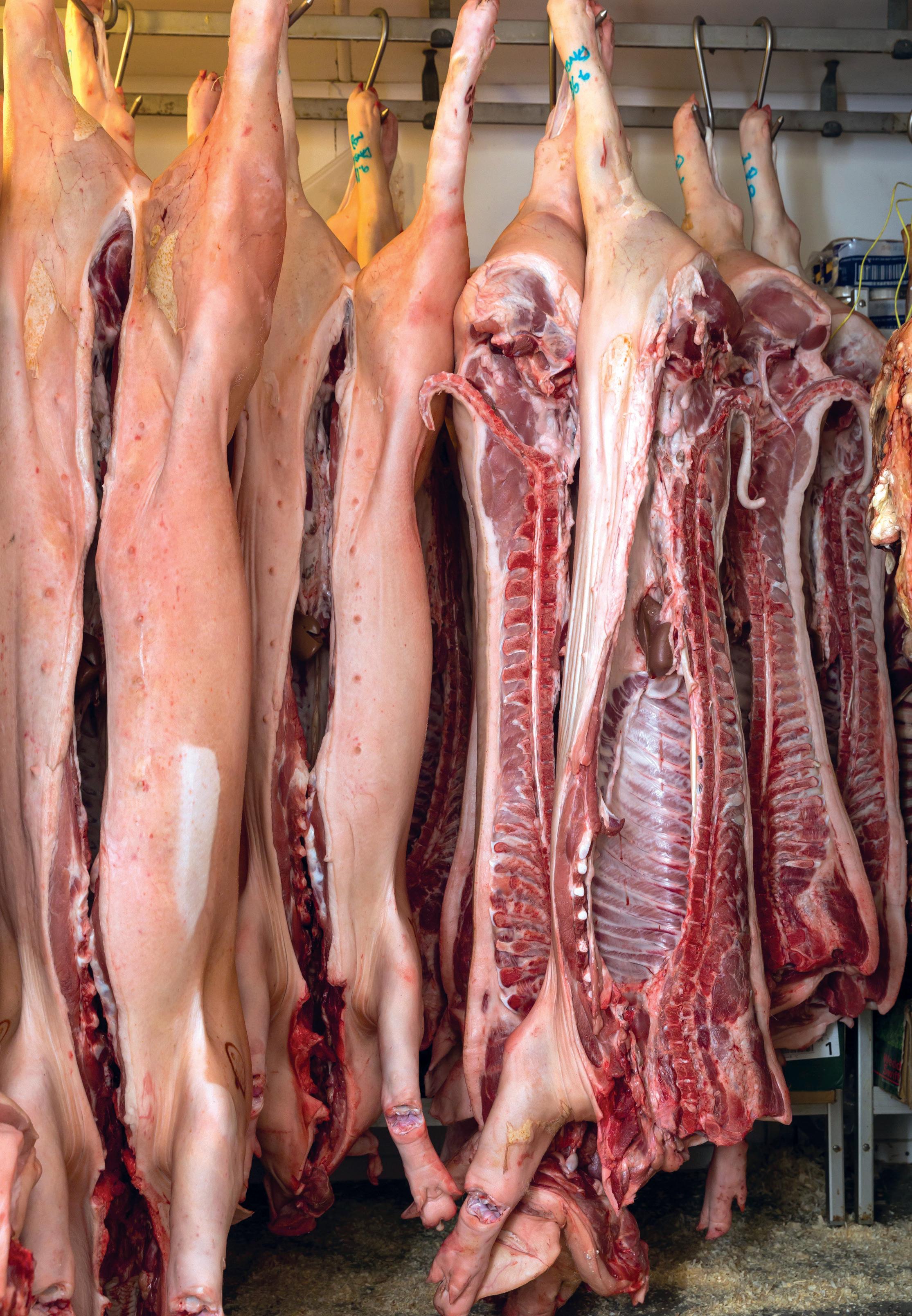










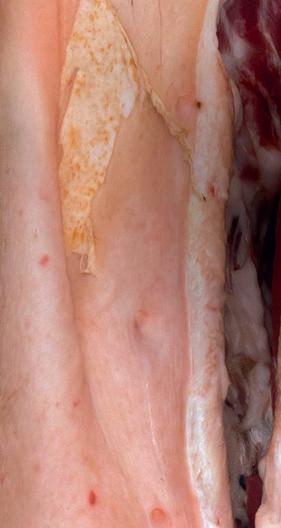






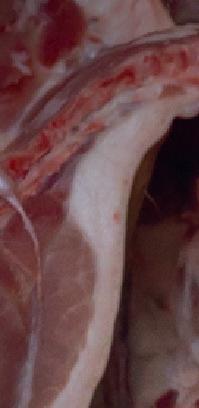


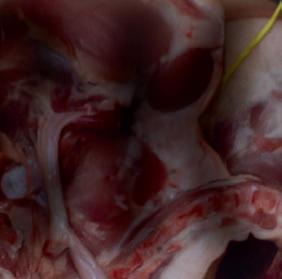






























































































































































• Farm business & estate management • Planning & development • Subsidies & grants • Land sales & acquisitions • Viticulture • Succession • Biodiversity net gain • Ecology • Natural capital • Residential and commercial property letting and management 01892 770339 www.c-l-m.co.uk Farm business consultants with our roots in the South East December 2022 Full review begins on page 24 SWIFT ACTION FROM NEW CAMPAIGN GROUP LARK Est 1982 FIGHTING BACK FARMING CONFERENCE Large audience for SEAS event END OF YEAR PROPERTY REVIEW


























www.southeastfarmer.net
SOUTH EAST FARMER
Kelsey Media, The Granary, Downs Court Yalding Hill, Yalding, Maidstone, Kent, ME18 6AL 01959 541444
EDITORIAL
Editor: Malcolm Triggs Email: sef.ed@kelsey.co.uk
Photography: Martin Apps, Countrywide Photographic
PUBLISHER
Jamie McGrorty 01303 233883 jamie.mcgrorty@kelsey.co.uk
GRAPHIC DESIGN
Jo Legg 07306 482166 jo.legg@flair-design.co.uk
MANAGEMENT
CHIEF EXECUTIVE: Steve Wright
CHIEF OPERATING OFFICER: Phil Weeden
MANAGING DIRECTOR: Kevin McCormick
PUBLISHER: Jamie McGrorty
RETAIL DIRECTOR: Steve Brown

RENEWALS AND PROJECTS MANAGER: Andy Cotton
SENIOR SUBSCRIPTION

MARKETING MANAGER: Nick McIntosh
SUBSCRIPTION MARKETING DIRECTOR: Gill Lambert
SUBSCRIPTION MARKETING MANAGER: Kate Chamberlain
PRINT PRODUCTION MANAGER: Georgina Harris
PRINT PRODUCTION CONTROLLER: Kelly Orriss
DISTRIBUTION
Distribution in Great Britain Marketforce (UK) Ltd, 3rd Floor, 161 Marsh Wall, London, E14 9AP Tel: 0330 390 6555
PRINTING
Acorn
Kelsey Media 2022 © all rights reserved. Kelsey Media is a trading name of Kelsey Publishing Ltd. Reproduction in whole or in part is forbidden except with permission in writing from the publishers. Note to contributors: articles submitted for consideration by the editor must be the original work of the author and not previously published. Where photographs are included, which are not the property of the contributor, permission to reproduce them must have been obtained from the owner of the copyright. The editor cannot guarantee a personal response to all letters and emails received. The views expressed in the magazine are not necessarily those of the Editor or the Publisher. Kelsey Publishing Ltd accepts no liability for products and services offered by third parties.
Kelsey Media takes your personal data very seriously. For more information of our privacy policy, please visit Kelsey Media takes your personal data very seriously. For more information of our privacy policy, please visit https://www.kelsey.co.uk/privacy-policy/ . If at any point you have any queries regarding Kelsey’s data policy you can email our Data Protection Officer at dpo@kelsey.co.uk.
www.kelsey.co.uk
NIGEL AKEHURST VISITS...
Nigel visits Burnt House Farm to meet entrepreneur and third generation dairy farmer Joe Delves. He and his family own and operate a successful dairy farming enterprise across four sites.
FARMING CONFERENCE
A rallying call to “make Tottingworth the tipping point” was unanimously supported by the near capacity audience at this year’s South of England Agricultural Society farming conference.
Celebrations surrounding the high quality of British top fruit were tempered by concerns around the challenges facing the industry as the 89th National Fruit Show opened its doors.
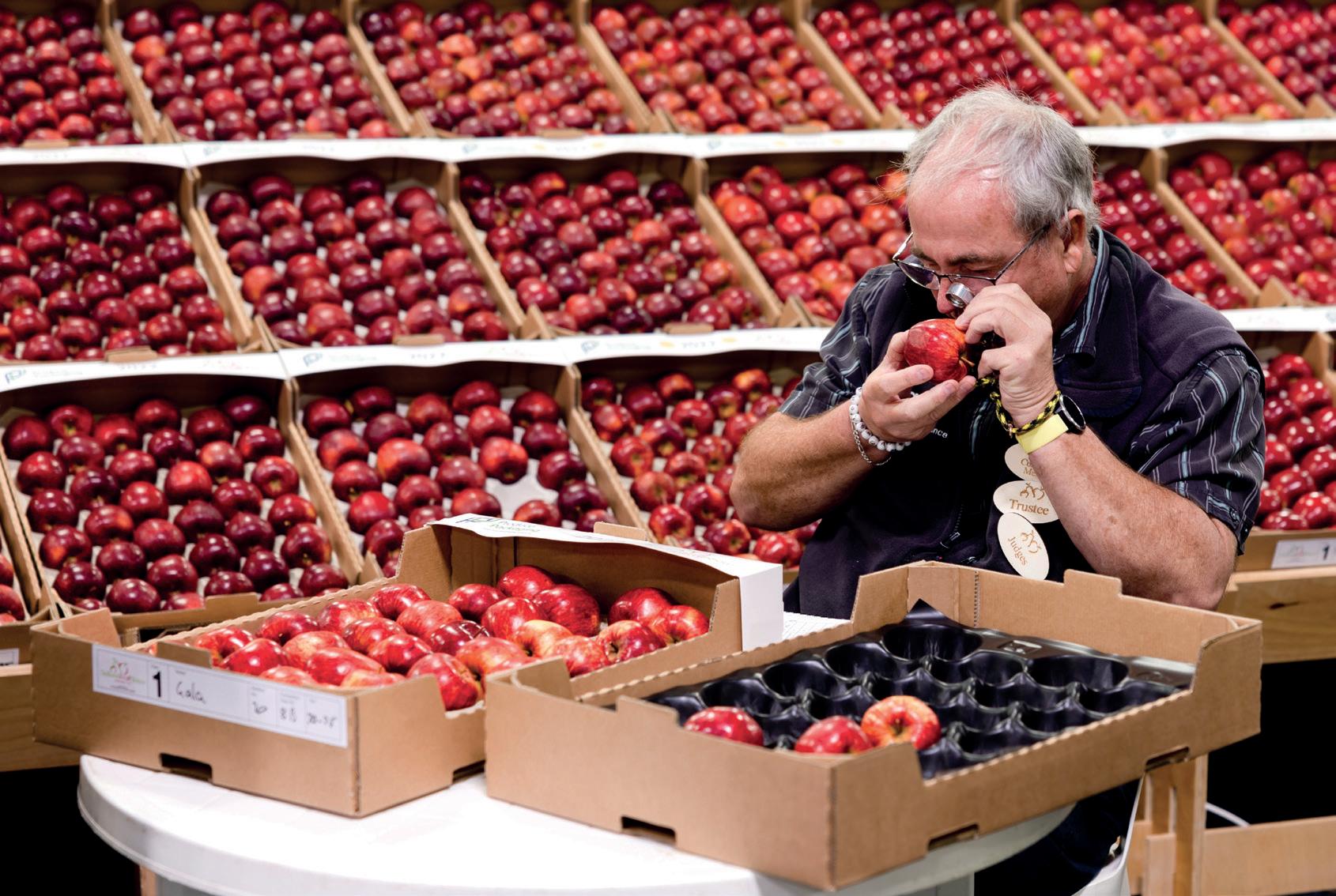
CONTROLLED ATMOSPHERE
JD Cooling Group redefines controlled atmosphere (CA) UK standards.


LEGGAT PLANT Rising to the challenge.
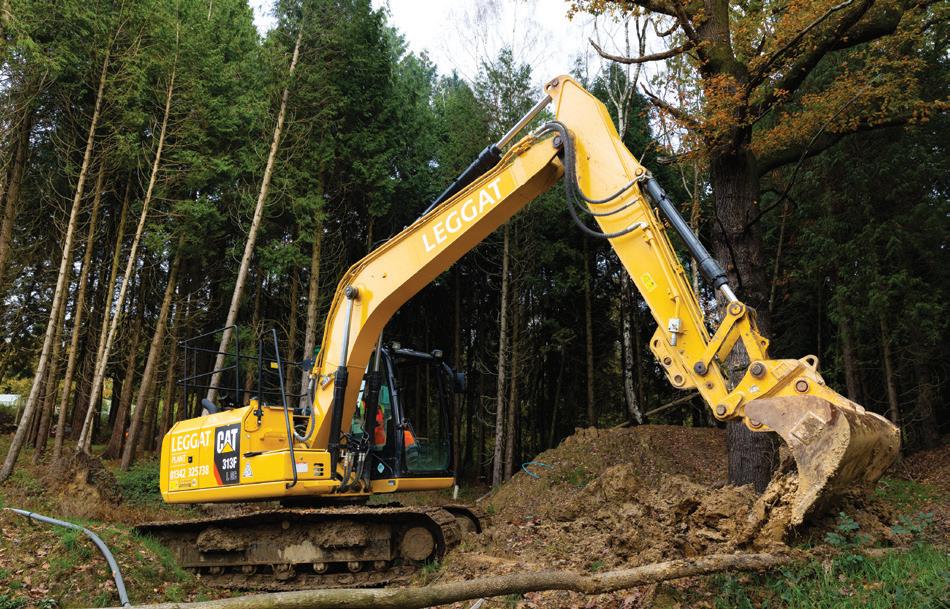
20
34
NEWS & REPORTS 04 Help grow the East Sussex Queen’s green canopy. 05 U-turn stuns the industry. 06 Fighting for the future of local abattoirs. REGULARS
MONICA AKEHURST Bumper crop of acorns has taken its toll.
39
48
Are
50 ALAN WEST 51 ANITA HEAD 53 STEPHEN CARR 55 NICK ADAMES 56 LEGAL DECEMBER 2022 CONTENTS 42 24
SARAH CALCUTT The social and environmental value of food.
ADVICE FROM THE VET
your calves at risk this winter?
Cover picture: ©Martin Apps, Countrywide Photographic ® 32 In association with 22nd November 2023 Kent Event Centre, Detling, Maidstone, Kent ME14 3JF SAVE THE DATE Sponsored by Vitifruit Equipment Sales and Hire 2023 FEATURES 11
14
VINEYARD & WINERY SHOW Growing interest in UK viticulture.
24
NATIONAL FRUIT SHOW REVIEW
32
42
59
END OF YEAR PROPERTY REVIEW
HELP GROW THE EAST SUSSEX QUEEN’S GREEN CANOPY
East Sussex landowners and tree lovers are being urged to get planting this autumn and winter to help create a living legacy in memory of the late Queen Ellzabeth.

The Queen’s Green Canopy (QGC) was launched as a Platinum Jubilee year initiative but, at the request of The King, has been extended until the end of next March to allow people to pay their respects by planting trees. Plantings from a single tree to a new woodland can be dedicated to the initiative if they went into the ground after October 2021.
Nature lovers who want their contribution included on the national map simply have to add a photograph to the digital record of trees planted in the Queen’s name at www.queensgreencanopy.org/qgc-map/
After the summer’s drought, organisers are hoping that a wetter autumn and winter will create ground conditions that will make it easy for people to help make the UK greener with an abundance of new trees.
“The extension of the initiative will build
on this legacy and serve as a lasting tribute to Her Majesty’s extraordinary service to her country and her people,” said The Marquess of Abergavenny, chair of the East Sussex QGC Working Group.
“The interactive Queen’s Green Canopy map is showcasing the planting across the country, giving people an opportunity to be part of a special legacy.
"Planting trees in the right places is valuable to help reduce climate change. We all need to do what we can reduce our carbon footprints, and trees offer a perfect way to capture carbon dioxide from the atmosphere.”
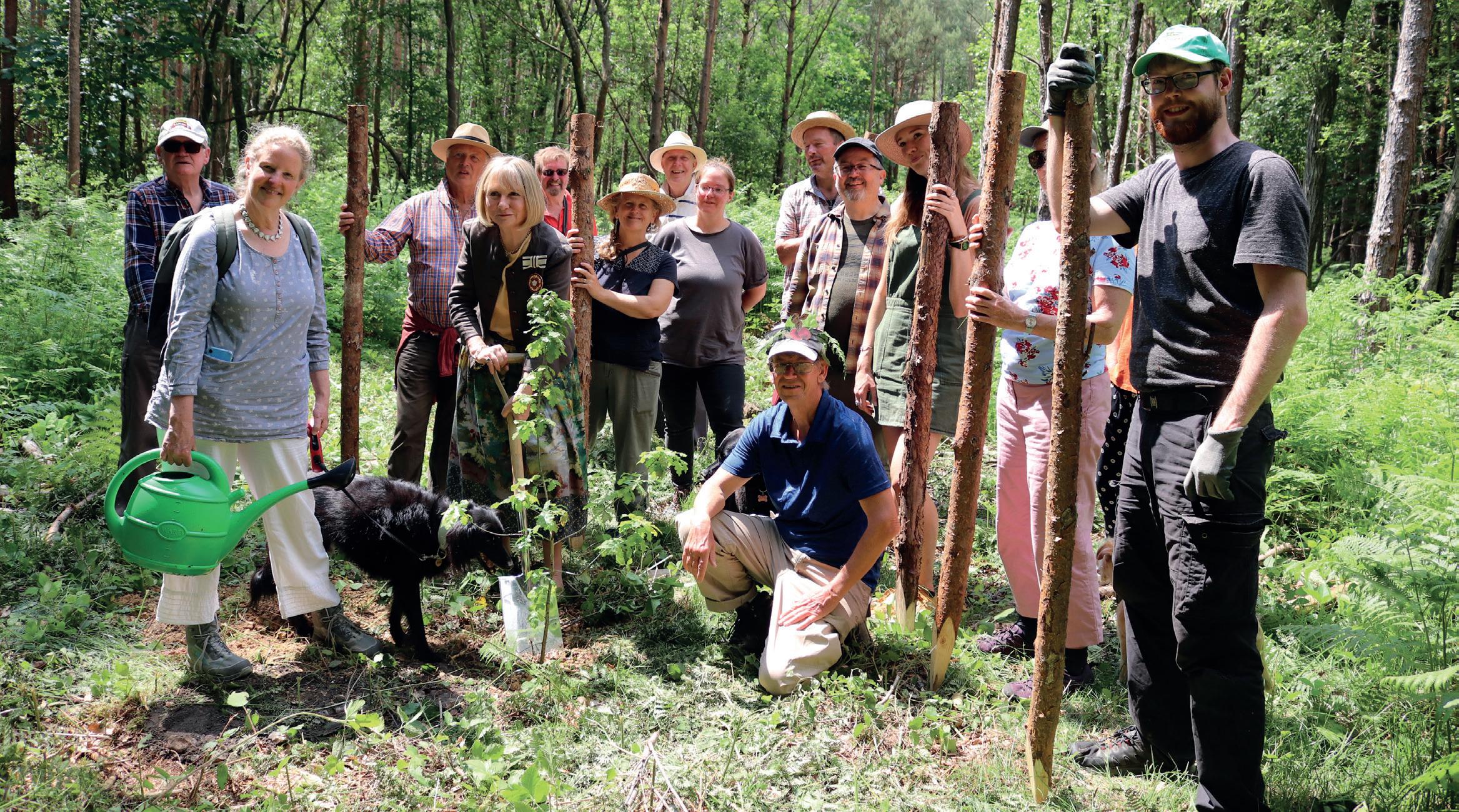
More than one million trees were planted across the UK in the planting period up to the end of March, including more than 15,000 trees at 124 sites in East Sussex. The Queen’s Green Canopy page of the Action in Rural Sussex website gives more information and advice.
“Any species of healthy tree counts as long as it is nurtured and preserved for the future,” said Lord Abergavenny. “Please get planting, upload a photo to the digital map and let the East Sussex team know.”
www.ruralsussex.org.uk/what-we-do/other/queens-green-canopy/
Laughton Greenwood Jubilee planting of two oaks June 2022
The Duchess of Cornwall (now Queen Consort) with hospice gardener Kevin Loveland planting an ornamental pear tree at St Wilfrid’s Hospice in Eastbourne in November 2021
DECEMBER 2022 | WWW.SOUTHEASTFARMER.NET
NEWS
Photo: Heather Ball
4
STUNNING U-TURN
Former environment secretary George Eustice’s remarkable U-turn on the UK’s trade deals with Australia and New Zealand came under fire at the South of England Agricultural Society’s (SEAS) conference.

Mr Eustice, having been a cheerleader for the deal at the time despite widespread criticism of the impact it would have on agriculture, particularly amongst beef and sheep farmers, now admits it was not so great after all.
It led to criticism at the conference from speaker Henry Dimbleby, co-founder of Leon Restaurants and the driving force behind the highly regarded National Food Strategy.
In an indirect reference he told delegates it was “insane” for this country to set high standards for its own farmers “and then undercut them by doing deals with countries like Australia and New Zealand."
SEAS President Elizabeth Buchanan later praised Mr Dimbleby’s “resolve” in speaking out against the deals while serving as lead non-executive director on the DEFRA board, a post he still holds.
Mr Eustice stunned farmers and landowners when he strongly criticised the free trade deal with Australia and criticised short lived former Prime Minister Liz Truss for the part she played in negotiating it.
Despite helping to secure the deal, he told a Commons debate that it was "not actually a very good deal for the UK", adding that the country had given away “too much”.
At the time, the Government estimated the Australia-UK Free Trade Agreement, signed at the end of 2021, would unlock £10.4bn of additional trade while ending tariffs on all UK exports, as well as removing some visa restrictions on UK professionals and young people.
After pointing out that as a backbencher he "no longer has to put such a positive gloss on what was agreed", he declared: “We did not actually need to give Australia nor New Zealand full liberalisation of beef and sheep. It was not in our economic interest to do so. And neither Australia nor New Zealand had anything to offer in return for such a grand concession.” He added that Australia still bans the import of British beef.
Having worked for DEFRA for nearly a decade, finishing as secretary of state, a job he was given by Boris Johnson, Mr Eustice was sacked by Ms Truss when she became Prime Minister in September.
He said the UK had started negotiations "with the strongest possible hand" but that Ms Truss had undermined the situation by demanding that the terms of the deal were agreed before a meeting of the G7 in June, which meant civil servants at the Department for International Trade (DIT) had allowed Australian negotiators to "shape the terms" of the agreement so they could meet the deadline.
OPINION



Cometh the hour...
Back in 1997, a band called Chumbawamba released an album and single called Tubthumper which had a ridiculously catchy hook that saw it take the pop world by storm. What I hadn’t realised was that it was also nominated for Best British Single at the 1998 Brit Awards, something that in my view flatters its musical credentials, but that’s another story.
I mention it only because the hook comprises the lines I get knocked down, but I get up again/You’re never gonna keep me down, something which the farming industry should surely embrace as its soundtrack for 2022.

The latest blow to the ambitions of farmers already struggling with uncertainty over the Government’s plan for them to farm butterflies, the spiralling cost of inputs, out-ofkilter weather and shrinking subsidies is the news that the abattoir at Tottingworth is set to close early next year.
As a Christmas gift to those who have diversified into meat boxes and other ways of delivering high quality meat to local people and reconnecting farming with the community, it was as unwanted as Brussels sprouts on the average teenager’s festive dinner plate.
But, “Cometh the hour, cometh the man,” as someone once said (exactly who said it is not recorded), and in the case of Tottingworth that man is Guy MacNaughton who, despite only describing himself as a “part time farmer” with other business interests, has quickly rallied the troops.


Unlike other groups who protest against the inevitable and disrupt the lives of others to make a point, farmers affected by the Tottingworth closure (and, I suspect, many who aren’t) have taken a more pragmatic view.
Aware that the decision has been taken, and with considerable sympathy towards the efforts of the abattoir’s owner to keep going against odds that turned out to be overwhelming, LARK (Local Abattoirs R (? Ed.) Key) is instead looking forward, working hard to persuade the Government that the onerous rules and regulations around slaughtering animals on a comparatively small scale need to be changed. They will have this magazine’s wholehearted support going forward.
But back to Chumbawamba, and one man who may not get up again if future voters insist on a basic level of integrity in their representatives is former DEFRA secretary George Eustice, whose Damascene conversion over the Free Trade Agreement he signed with Australia was nearly as shocking as your most recent gas bill.
To sell the deal as good for British farming while in office and then admit it was anything but good when on the back benches is really not acceptable. That’s one man who does need to face the music.
EMAIL YOUR VIEWS, LETTERS OR OPINIONS TO: sef.ed@kelsey.co.uk or write to the address on page 3





5 TO ADVERTISE CALL 01303 233883
George Eustice pictured at Groundswell
®
FIGHTING FOR THE FUTURE OF LOCAL ABATTOIRS
Top-level support has been drafted in as campaigners fight for the future of local abattoirs across the South East.
With shockwaves still being felt across the industry following Tottingworth Farm’s decision to close its abattoir business from 26 January next year, farmers, landowners, butchers, wholesalers and many others have joined the campaign to create a landscape that will allow new facilities to open and existing abattoirs to stay in business.
Those supporters include no less than The Lord Lucas, Ralph Palmer, who contacted campaign organiser Guy MacNaughton after a butcher friend in Eastbourne told him of his concerns about the threat to locally sourced meat.
“While it’s helpful to have such a high
profile supporter as Lord Lucas, we are determined to engage everybody who values being able to enjoy locally slaughtered, environmentally sustainable meat and who wants to support the farmers who produce it,” said Guy, who set up Local Abattoirs R Key (LARK) within days of the Tottingworth decision being announced.
Guy, who describes himself as a consultant and part time farmer, has spearheaded a remarkable campaign that delivered an impressive file of evidence ahead of a meeting of the All-Party Parliamentary Group for Animal Welfare (APGAW) on 30 November.
He explained that he had already been concerned about the plight of local abattoirs and the time it was taking the Government
and the Food Standards Agency (FSA) to shake up the regulations when the Tottingworth decision made the situation far worse.
In his submission to APGAW he points out that a long list of industry reports and working groups dating back to 1999 and culminating in The Small Abattoirs Task & Finish Group, which was set up in 2021 “to understand the issues and propose solutions” had not delivered the necessary outcomes.
His submission continues: “In spite of the intellectual firepower, small abattoirs continue to be forced out of business. Why?” He added that alarm bells had been ringing ever since in 2021 the FSA “gave itself the luxury of five years in which to perform a review of regulations”.
For farmers like Nigel Akehurst, who writes monthly for South East Farmer, news of the closure came as a major blow. “We have been using Tottingworth since we started selling meat direct to the public in 2016. They slaughtered my first bullock and I have been using them ever since.
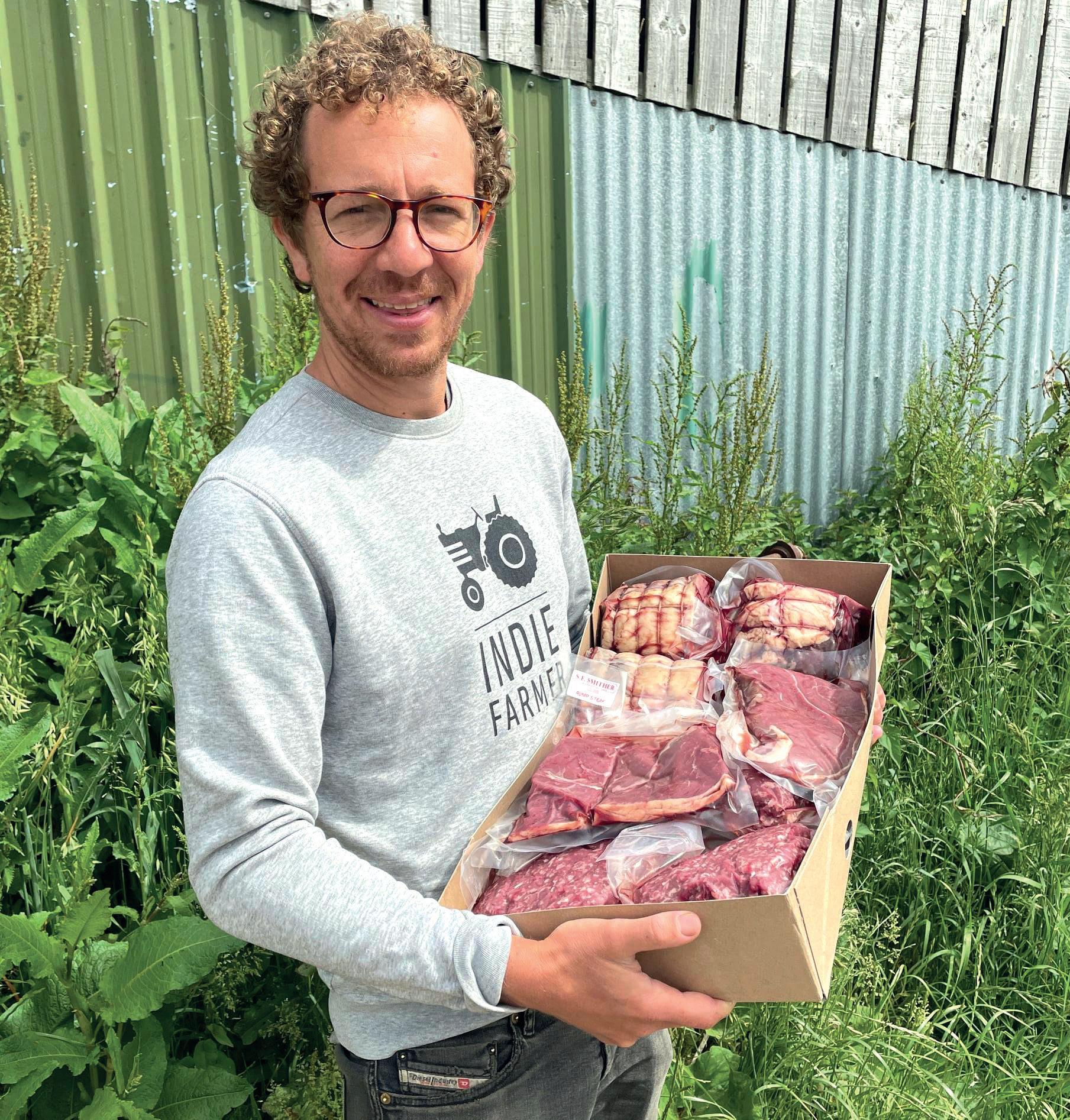
“This is devastating news for local farmers, as well as potentially restricting choice for people who want to be able to buy locally sourced, high quality meat.
Tottingworth was an important local abattoir for small family farms and for butchers.”
Nigel’s closest alternative is Downland Produce in Henfield, which looks set to move from operating three days a week to four from next year, but it means a round trip of 80 miles instead of around 18.
“That means extra diesel and much more time, along with extra stress on the animals, but it’s my only option,” he said.
For LARK, helping local farmers deal with the immediate issue by replacing lost abattoir capacity is one part of a three pronged campaign which includes supporting APGAW’s drive to see a change in the way regulations apply to small abattoirs and looking at mid-term options for
DECEMBER 2022 | WWW.SOUTHEASTFARMER.NET
NEWS
Nigel Akehurst with a 10kg beef box
6
supporting abattoir capacity by upgrading existing facilities and bringing new, high welfare abattoirs on line.
“The Tottingworth decision has been taken and is no longer the issue,” explained Guy. “What we need to do now is make sure we have the right legislation in place to allow abattoirs to operate successfully and profitably going forward and provide farmers, graziers and smallholders with logistical support for what to do come January.
“Downland Produce and Forge Farm Meats have some capacity, as do the Essex abattoirs, but the distances involved, and the added time and costs incurred, mean some farmers are questioning whether or not they can continue selling their produce to their customers.”
LARK has been collecting the responses of local farmers to the issue, with comments including: “We will no longer be able to supply local meat to local people. The ethos/selling point is stripped away from us. Significant, devastating, trying not to think of the impact on cost and our ‘low food miles’ message is out of the window."
Another comment from J Heath & Son butchers in Eastbourne summed up the views of many. “We specialise in local farm to shop produce, buying lambs from Martin Hole, beef from David Fenner and pigs from Richard Bates. With Tottingworth closing, this makes our business model of buying local direct from the farm hard to sustain.”
One other example of the many comments received by LARK explained: “Having built up a successful box scheme and loyal customer base I am now having to re-think my business model.”
LARK’s submission to APGAW points out: “Because of their location some farmers will perhaps relatively easily be able to use existing capacity (but may find their choice of which day/week they book in their bullock will be limited).
“Others will have no option because of longer travelling times/fuel costs/other costs and organisational challenges but to stop selling their own meat, unless alternative provision can be provided. It may be possible for farmers to form clusters and share the costs of transport, but this will have many logistical issues that will need to be worked on.”
NO TIME TO LOOK BACK
The LARK (Local Abattoirs R Key) campaign wasted no time lamenting the closure of the facility at Tottingworth Farm but has instead put forward concrete proposals to tackle the problem.
Its submission to the All-Party Parliamentary Group for Animal Welfare (APGAW) on 30 November contained a number of carefully considered ideas, essentially aimed at reducing red tape and making it easier for small abattoirs to continue to serve the industry and the meat buying public.
The document delivered to APGAW was entitled: “How to prevent further small abattoirs closing, reinvigorate the industry [and] maintain critical infrastructure so farmers can sell locally reared meat direct to the public while delivering carbon sequestration, improved soil health, biodiversity [and] watershed protection and provide for important ecosystems.”
It directly blamed the closure of Tottingworth and another small abattoir in the Peak District on “over regulation, bureaucracy and those responsible not delivering the solutions set out in a number of reports”, which it said included APGAW’s own The Future For Small Abattoirs In The UK It added that the recent closures had to be “a tipping point for action”.
Amongst the solutions put forward in response to the closure of the abattoir at Tottingworth, which serves 900 farmers and local butchers and handles approximately 5,000 livestock units a year, were:
• Introducing a change to current UK legislation so that in cases where a small abattoir only serves the domestic market a risk based proportional approach could be adopted
• Applying the 5% rule (EU Reg.2019/624), under which small abattoirs operating
in Europe already benefit from greatly reduced regulations, bureaucracy and costs, to UK small abattoirs
• Implementing remote mechanisms and allowing real time remote inspection in small abattoirs, eliminating the need for a full-time on-site presence and taking advantage of spectroscopic analytical cameras supported by machine learning
• Eliminating excess bureaucracy and paperwork to improve veterinary utilisation by reducing the time spent by official vets (OV) carrying out burdensome administrative tasks in the abattoir
• Changing the way the Food Standards Agency communicates to the industry and the language it uses
• Permitting Meat Hygiene Inspectors (MHI) to carry out ante-mortem inspections and segregate stock with identified abnormalities for veterinary inspection
• Using local vets for abattoir work instead of the current system of using a national supplier that has proved to be ineffective and unresponsive to changes in veterinary resourcing demands
• Implementing risk based inspection/ earned recognition through a tiered inspection standard that would allow local premises to receive inspections appropriate to their risk and specifically benefit small local premises.
The submission concluded: “Creating a supportive (regulatory/funding/staffing) environment and reducing bureaucracy [to allow] small abattoirs to prosper and invest in updating their infrastructure (thereby perhaps without the need for Government funding), is a more effective solution than attempting to rebuild a sector, with the knock-on effects this will have, that has been allowed to die."
WWW.SOUTHEASTFARMER.NET | DECEMBER 2022 7 TO ADVERTISE CALL 01303 233883 NEWS
“NO-ONE ELSE EVER TAKES RESPONSIBILITY”

Over regulation, inexperienced vets who struggled with the language, difficulties recruiting staff and high operating costs forced the closure of the abattoir at Tottingworth Farm, the boss of the facility has revealed.
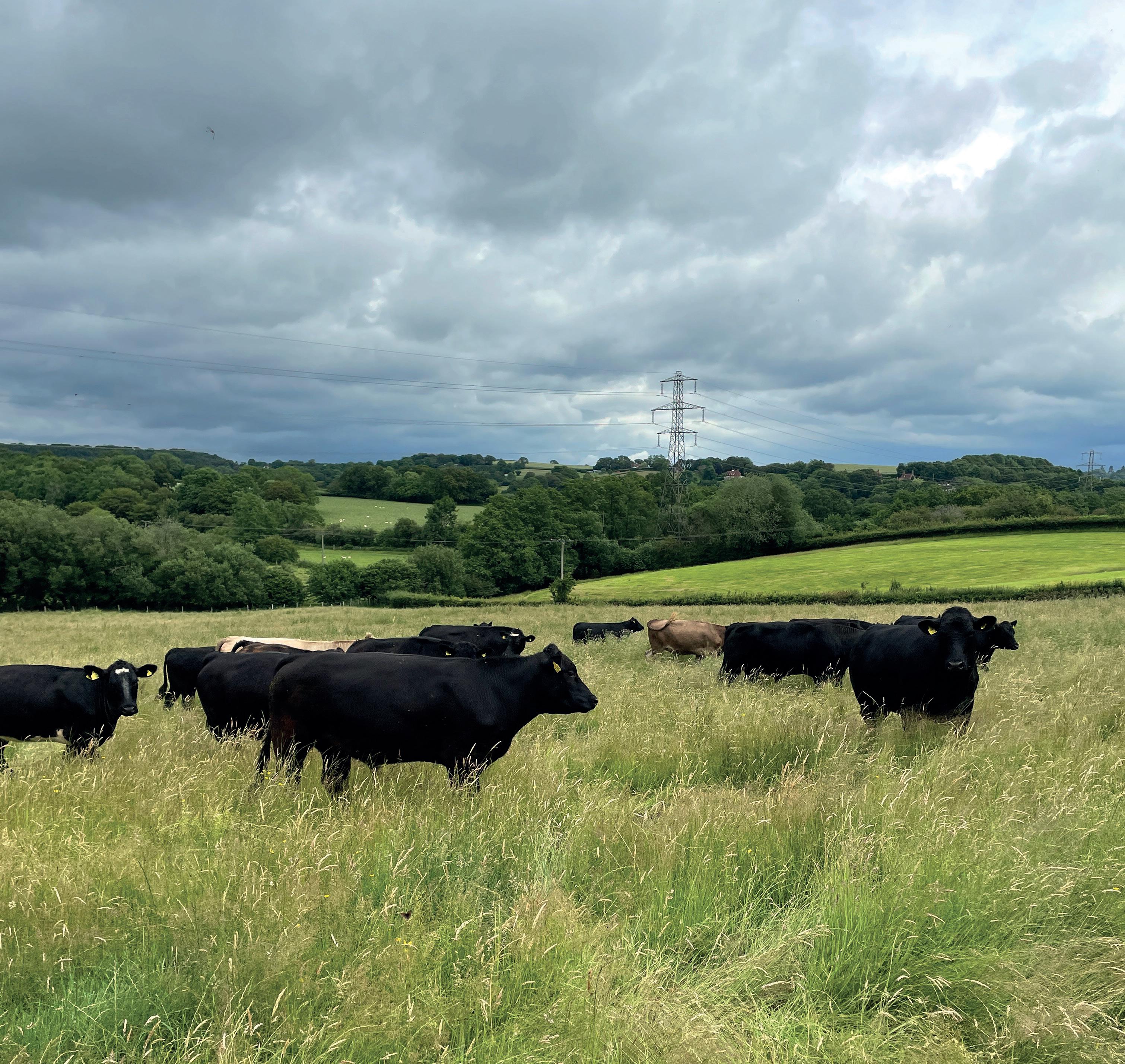
A “deeply saddened” Sarah Wareham, director of Tottingworth Farms Ltd, spoke exclusively to South East Farmer about the issues that had led to the closure of a business that had been running for some 60 years, leaving 900 customers searching for a new supplier.
“It was a very hard decision to take, and we know how hard it will have hit our customers,” she said. “At the end of the day, though, it was all about staffing, costs and regulations.”
Sarah said onerous regulations, continual

and, in her view, sometimes unnecessary, testing and the paperwork involved had all become too much. She added that “inexperienced” vets from the Food Standards Agency had added to the problem and much of the time could not communicate because they didn’t speak English.
She said different vets seemed to have different requirements, pointing out that several years after the business had begun using CCTV cameras, installed at a cost of some £8,500, one vet suddenly decided that the angle of one of the cameras was wrong and asked for it to be changed.
“The process could be made much easier,” she stressed, suggesting as an example that it really wasn’t necessary for every single animal
to be given an ante-mortem inspection.




“There are just so many issues, and it always comes back on the owner of the business. No-one else ever takes responsibility,” Sarah said. “It’s such an awful lot of hassle and it’s not as though we make much money out of it.”
Staffing was another headache, with few locally trained slaughtermen available and potential recruits from the north of the country unable to afford to move to the South East.
“On top of all that we needed to invest about £200,000 into upgrading some of our facilities, and we had to face facts and realise that such a large investment was unlikely to generate much of a return in the current climate," she added.


DECEMBER 2022 | WWW.SOUTHEASTFARMER.NET 8 NEWS - EXCLUSIVE
Aberdeen Angus X Sussex cattle on the Downs
The NFU has also taken up the case on behalf of farmers, describing the closure of Tottingworth Farm’s abattoir as “a major blow to livestock producers in the east of our region and a loss to the South East region as a whole, which has few remaining abattoirs."
It added: “Tottingworth has long provided a valuable service to farmers, many of whom meet strong demand for locally-reared meat from discerning customers.”
The NFU said the lack of local slaughter facilities “can prevent farmers from adding value through direct selling to the consumer, to customers within the butchery trade and hospitality, and other small scale marketing initiatives such as farm shops or boxed meat businesses."
The NFU also joined those pointing out that the Government had “singularly failed to act on the recommendations of a report by the All Party Group for Animal Welfare, The Future For Small Abattoirs in the UK (2020)
More recently, the NFU called a joint meeting of South East Region abattoir operators aimed at assessing how farmers who currently use Tottingworth were planning to re-organise themselves within the existing network after January.
Chaired by regional director William White, the session enabled
NFU TAKES UP THE CASE
those present to discuss the impacts on their businesses and hear wider industry concerns.
Romy Gue, county adviser for Sussex and Surrey, said the group, which included representatives from the Association of Independent Meat Suppliers, skin collector South East Leather Ltd and LARK, “recognised the barriers facing small abattoirs in terms of funding, legislation and labour”.
She added: “The meeting discussed what steps could be taken to help ease the regional redirection of throughput, whether that be opening collection centres, installing chilling rooms off site or other steps, and how industry could help facilitate them.” The NFU plans to meet regional abattoir operators in the new year to agree a collective response to government.
CALL TO ACTION –LARK NEEDS YOUR HELP
“Having delivered LARK's submission to APGAW, including a case study document highlighting the impact of the closure on more than 50 farmers, the group is consulting its farmer, smallholder and grazier members to decide how it can help address immediate capacity and other logistical issues," writes Guy MacNaughton.
“For example, while Downland Produce at Henfield has a cattle line and butchery, Forge Farm does not, although it is considering putting in a cattle line, having already increased its lairage and invested in new buildings and technology.
“Both abattoir owners are keen to support farmers and are working with LARK to assess demand. Downland has already employed two of Tottingworth’s staff and is planning to operate on four days a week from the new year.
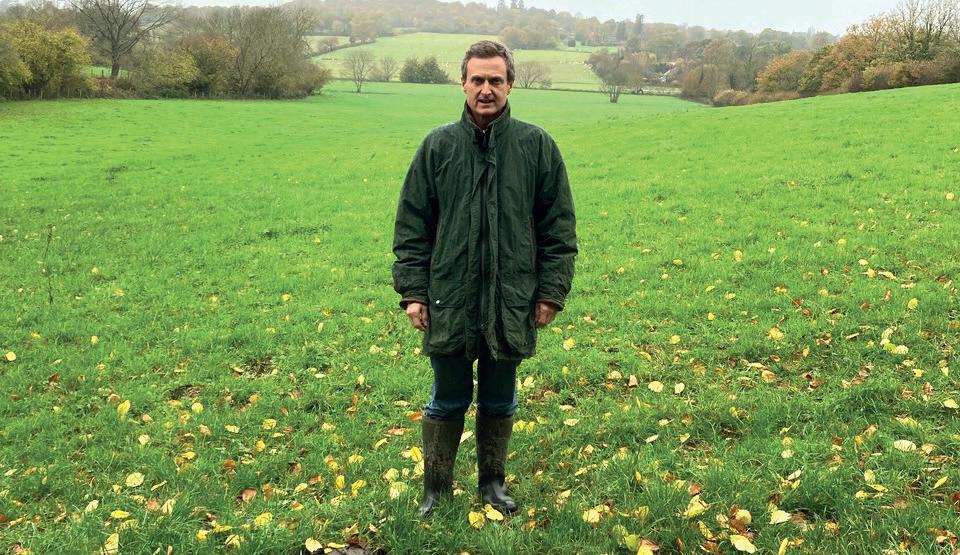
“There is also a need to address the shortage of chiller capacity for hanging
bullocks for three weeks; Tottingworth averaged 35 bullocks per week with a peak of up to 50.
“Farmers who are facing these and other related challenges are encouraged to get in touch. Unless LARK knows what you need, there is no way of delivering it.
Text Guy on 07476 312243 to add your voice to the campaign
“Farmers need to make their voices heard by writing to their MP, county councillors and The Rt Hon. Mark Spencer, Minister of State for Food, Farming and Fisheries, to explain how, in these changing times, they had been relying on local infrastructure to enable them to grow their more profitable direct sales.”
WWW.SOUTHEASTFARMER.NET | DECEMBER 2022 9 TO ADVERTISE CALL 01303 233883 NEWS
Guy MacNaughton
MAIDSTONE SOFT FRUIT GROWER RUNS ECO TOURS FOR SCHOOLS

Guided tours around a modern fruit farm in Kent are helping young people understand the efforts being made to protect the environment.
Pupils from schools in the Maidstone area are being offered tours around Clock House Farm’s Yalding base to find out more about its pioneering green energy project.

The Maidstone based soft fruit grower sees itself as a “custodian of the natural landscape” and has introduced a number of pioneering sustainability projects, including a £10 million investment in low carbon,
westpoint farm vets
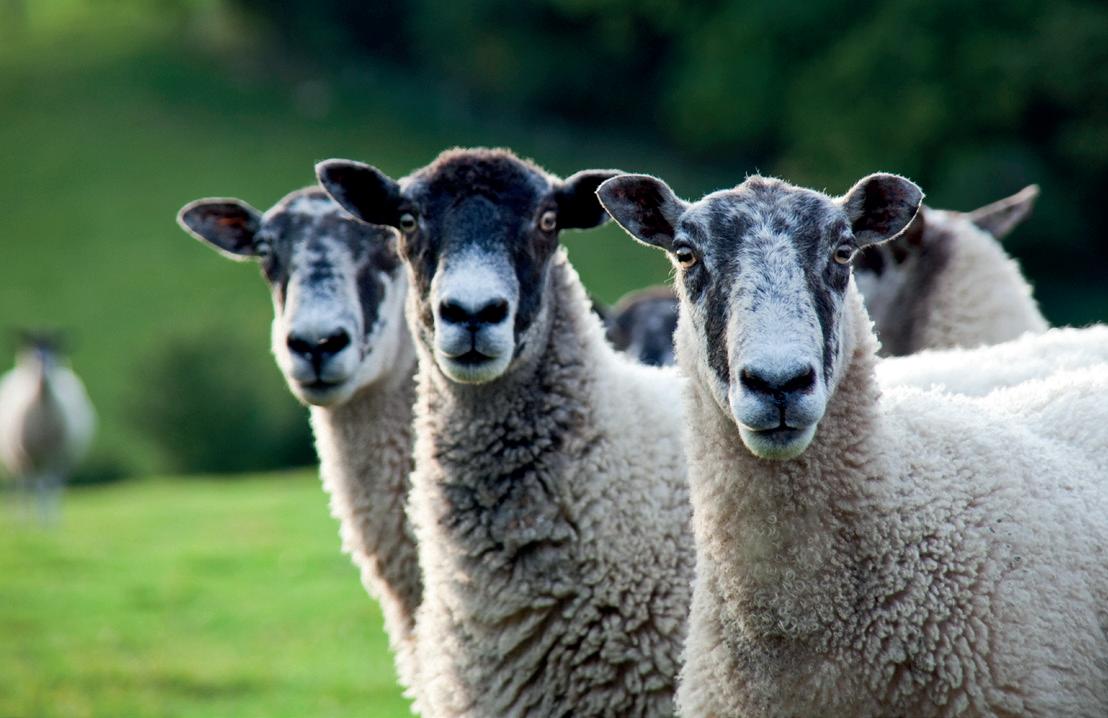
river source heating at its Yalding base. The initiative represents the most significant investment in green energy for soft fruit in the UK and one of the largest in Europe.
One of the first schools to visit was Invicta Grammar School, which brought pupils from its geography ‘eco society’ to enjoy the two hour guided tour. They will be followed by groups of pupils from primary through to secondary schools in the surrounding area.

The company, a recognised leader in the supply of strawberries, raspberries and blackberries, as well as apples and plums, has a track record of adopting growing techniques which observe the highest standards of responsible environmental stewardship.





All the berries are grown in high-tech poly greenhouses that are provided with a consistent supply of heat from the Medway. The process involves extracting river water that has been heated by the sun and passing it through a heat exchanger before discharging it back into the river having removed a couple of degrees of heat from it.
A second loop transfers this heat to the plant room’s heat pumps to achieve a temperature of 45 degrees, which is circulated out to the greenhouses. Not only does this ground breaking system represent a greener, more sustainable approach to energy consumption, it also enables the farm to extend its growing season.
Clock House Farm’s commitment to the environment is also highlighted by the fact that the company has created a natural wilderness on a separate eight hectare river meadow below the greenhouses. It also uses technology such as robotics to deliver UV-C light treatment to reduce mildew, minimises its CO2 emissions and closely monitors its water usage.
Managing director Oli Pascall said: “Children of all ages need opportunities such as this to develop their knowledge, help them respect the natural environment and hopefully create a lifelong interest in saving the planet.
“It’s great for the children to see the fantastic soft fruit grown here in the Garden of England and to witness how our farm is working to reduce its carbon footprint and also protect the British farming sector.
“Of course, we are equally keen to encourage the next generation to consider the wide range of technical and grower career options open to them within farming and to attract young people with a fresh perspective to join Kent’s thriving horticulture industry.”


DECEMBER 2022 | WWW.SOUTHEASTFARMER.NET
NEWS
10
100% Farm Vets
Supporting British Livestock Agriculture Since 2000 New client visits are FREE - book yours today! Westpoint Farm Vets Dawes Farm, Bognor Road, Warnham, West Sussex, RH12 3SH info@westpointfarmvets co.uk | westpointfarmvets co.uk Our teams of experienced, highly-qualified vets are focused on driving farm efficiency and animal health across the South East Westpoint Ashford covering Kent & East Sussex 01306 628208 Westpoint Winchester covering Hampshire 01962 779593 Westpoint Chelmsford covering Essex 01306 628489 Westpoint Horsham covering Surrey, Sussex and Kent 01306 628086
GROWING INTEREST IN UK VITICULTURE
The rise and rise of UK wines was demonstrated once again by this year’s Vineyard and Winery Show, with exhibitor space fully booked, sky high visitor numbers and fabulous wines to sample.
As evidence of the growing interest in UK viticulture, the show proved even more successful than last year’s stunning inaugural event, with crowds packing into the Kent Event Centre at Detling as soon as the doors opened and the event staying busy throughout the day.
The importance of viticulture to the economy was demonstrated by the huge variety of trade stands offering everything from specialist agronomy to sophisticated
harvesting machinery via bottling and labelling equipment and vineyard management services.

The growing impact and ever-increasing quality of the industry’s end product was also clearly on display, with two central wine hubs dispensing samples of 100 or more of the UK’s top wines to appreciative visitors.
For those with an even keener interest, top wine writer Matthew Jukes presented an engaging seminar in which he introduced six of his favourite wines, taking those present through a fascinating and revealing tasting session.
Also offering useful insights into the world of growing vines and making wines, this year’s
seminar programme, hosted by WineGB, covered topics as diverse as consumer behaviour, sustainable wineries and choosing the right varieties.
Sponsors of this year’s impressive show were Berlin Packaging, Hutchinsons, Vitifruit, Royston Labels and Core Equipment, while other partners were Defined Wine, Urban Bar, Ferovinum, Rankin Brothers and Sons, Rainbow Professional, Protech Future, AG Recruitment and OnePay.

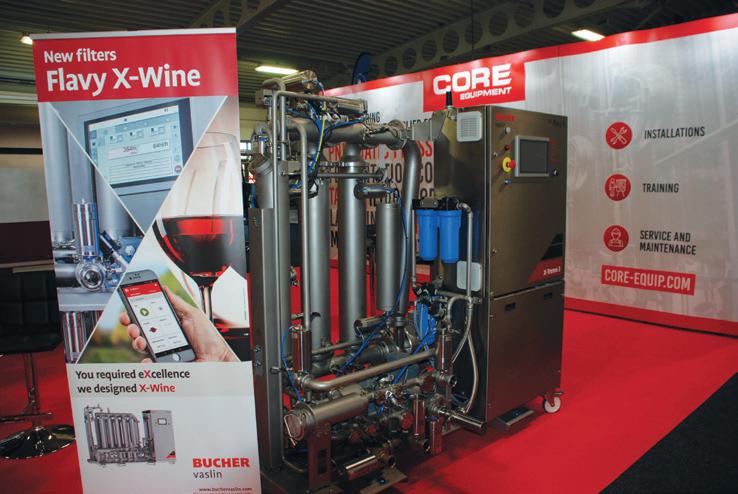
The Vineyard and Winery Show is organised by Vineyard magazine, sister publication to South East Farmer. For a full review of the show, see the January issue – and save the date of 22 January 2023 for next year’s event!
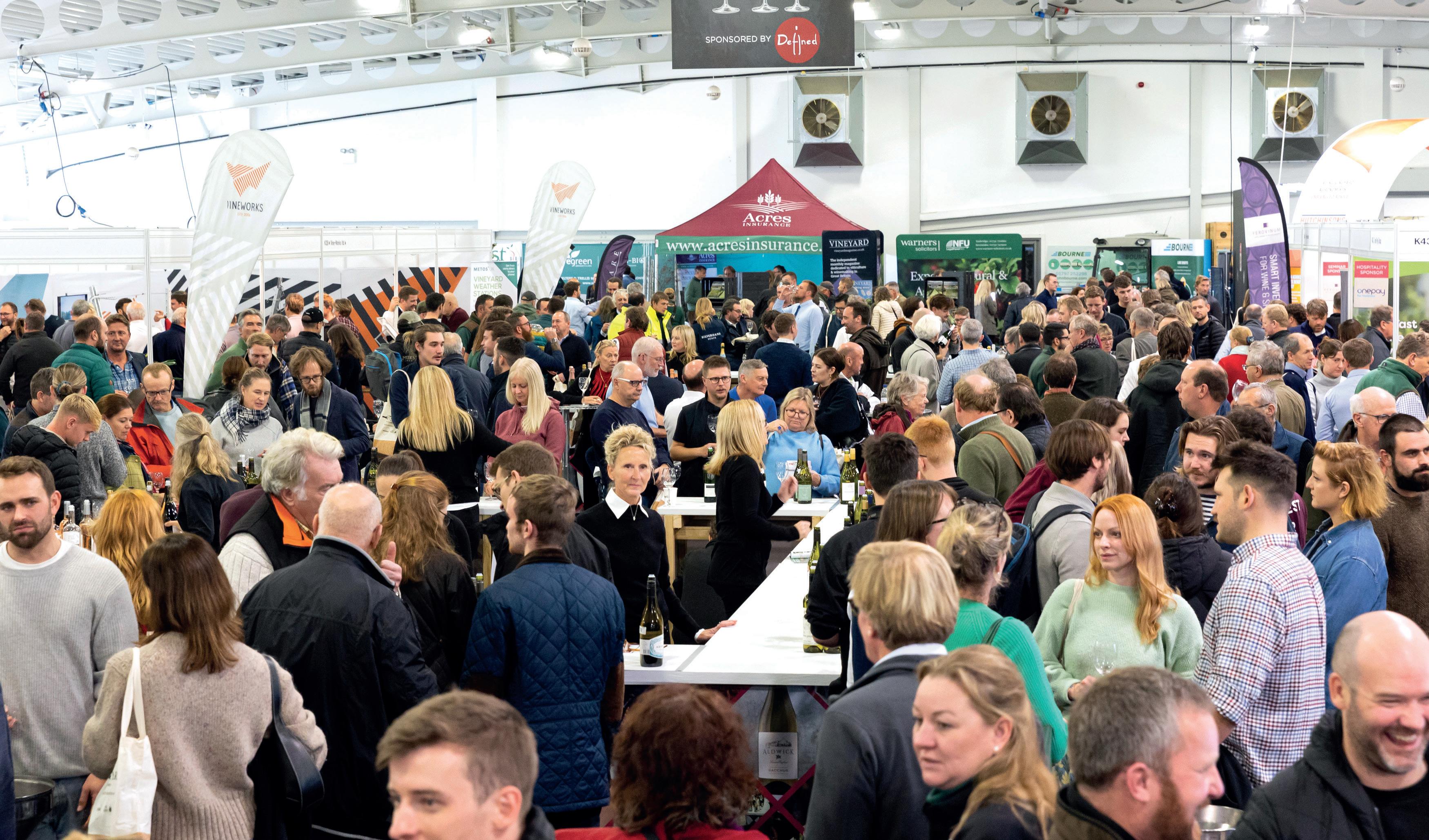
WWW.SOUTHEASTFARMER.NET | DECEMBER 2022 11 TO ADVERTISE CALL 01303 233883 2022
OBITUARY: RAY VALE
A well-known agricultural journalist, and the first editor of South East Farmer when it launched in 1982, has died at the age of 87.
Ray Vale, who spent much of his career championing British agriculture and horticulture across a number of titles, died on 14 October leaving a son Philip, daughter Merrilyn and four grandchildren.
Ray was the first editor of Farmscope, which was launched by the Kent Messenger Group’s Special Publications Unit in 1979 and became South East Farmer when it was acquired by Harvest Publications. Five years later again the magazine was bought by Apple Communications, the company Clive Rabson, who later bought the magazine and who was at the helm until January 2020, was working for at the time.
Ray did national service in the Royal Air Force before studying for an agricultural science diploma at the Royal Agricultural College in Cirencester. After a brief spell on a mixed farm, he worked for an agricultural PR agency in Kent before joining the Kent Messenger, where he worked on the farming pages as well as sports coverage.
When his editorship of South East Farmer came to an end he became a freelance journalist, writing regularly for The Grower magazine, Fresh Produce Journal, The Fruit Grower magazine and The Vegetable Farmer. He was also publicity officer for the Marden Fruit Show, which later became the National Fruit Show, and the Kent County Show.
The picture (below) was taken on the South East Farmer stand at the 2010 National Fruit Show. Ray Vale is holding the first ever edition of South East Farmer, published in June 1982, while current publisher Jamie McGrorty is holding a copy of its predecessor, Farmscope.
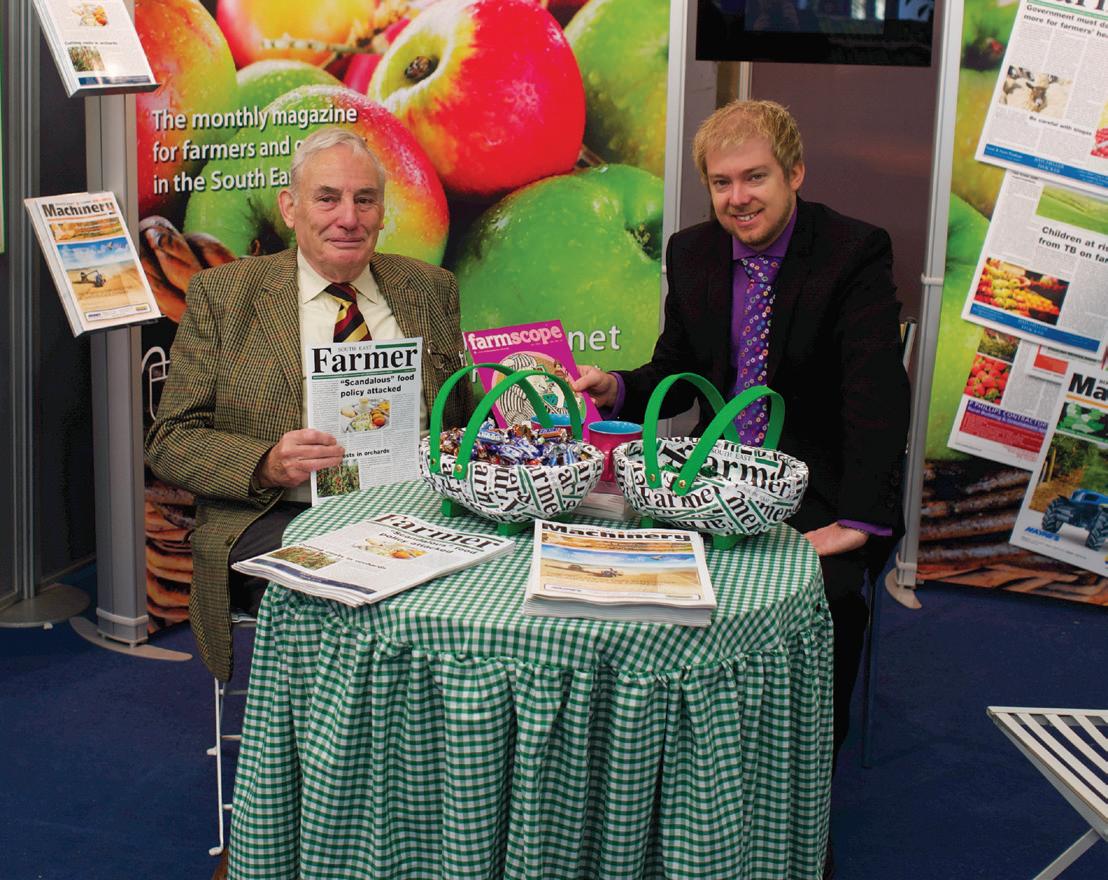
RED TRACTOR’S NEW DAIRY SECTOR CHAIR
Former West Sussex farmer Tim Lock has been appointed as Red Tractor’s new dairy sector chair, succeeding Angela Rhodes who completed her second term in November.
Tim has extensive experience in the dairy industry, having previously held roles with the NFU National Dairy Board, and has chaired the Chichester Branch of the NFU. He will continue to chair the M&S National Milk Pool until early 2023.
Red Tractor chief executive Jim Moseley said: “Tim brings a wealth of experience and understanding of the whole dairy sector to this role. His strong leadership will be a fantastic asset in our efforts to protect the integrity of Britain’s dairy food chain and farming standards.”
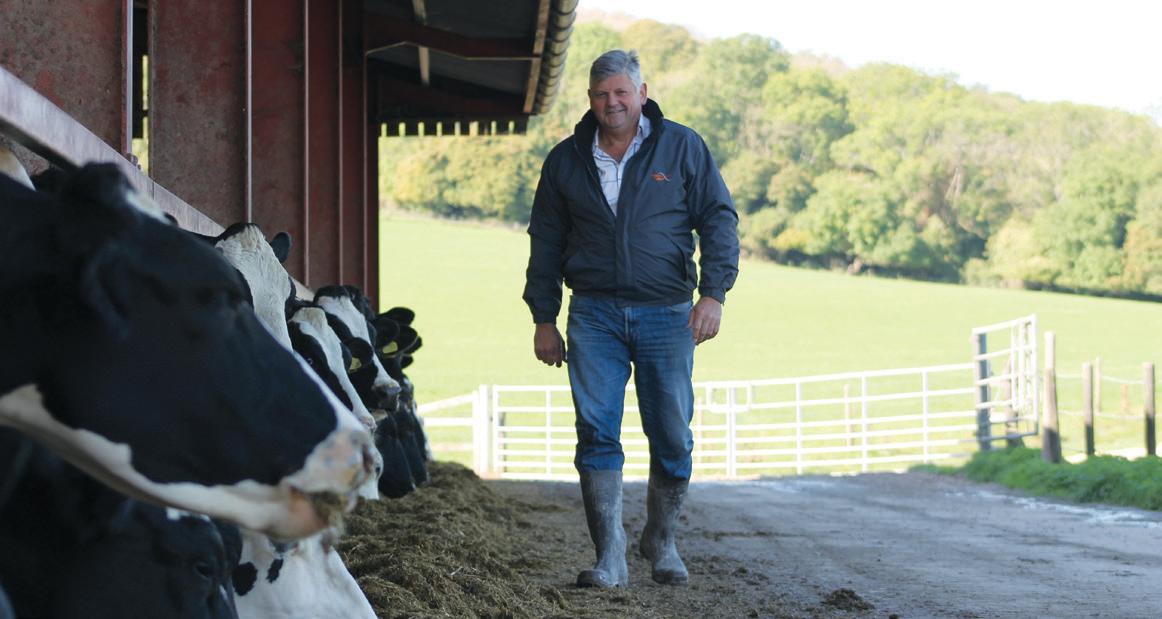
CORRECTION
Our obituary on William (Bill) Calcutt in the November edition of South East Farmer unfortunately contained an error in the headline.
Bill Calcutt was born on 2 February 1936, not 2 November. We are sorry for any distress caused.
NEW PATRON OF BASC
Her Royal Highness
The Princess Royal has been announced as the new Patron of the British Association for Shooting and Conservation (BASC).
The Princess Royal visited BASC’s stand at this year’s Game Fair, where she presented Distinguished Service Awards established this year in honour of her late father, HRH Prince Philip, a committed conservationist and Patron of BASC and its predecessor organisation, The Wildfowlers' Association of Great Britain and Ireland, for 53 years until his death in 2021.
BASC council chairman Eoghan Cameron said: “We are privileged that The Princess Royal has accepted the invitation to become our new Patron. The news has been warmly welcomed by all at BASC and I wish to extend our deepest thanks to Her Royal Highness on behalf of our membership, staff and council for her kind agreement.”

DECEMBER 2022 | WWW.SOUTHEASTFARMER.NET 12 NEWS
HRH The Princess Royal meets BASC staff members at this year's Game Fair at Ragley Hall
HAMPSHIRE BULL MAKES THE GRADE UP NORTH


A bull from Hampshire was placed among the top priced Simmental lots at the Simmental Society sale at Stirling in Scotland in October.
The long journey proved worth it when Mr and Mrs Steven and Lorrayne Blomfield from Lymington, attending the Stirling sale for the first time, saw their February 2021-born bull Sway Monarch 21 (PP) sell for 8,500 guineas to the Dargill pedigree herd of J C McLaren and Partners, Perthshire.
Iain Kerr, from the Simmental Society, commented: “This bull brought something different to the sale, with him being the only homozygous polled bull in the catalogue and, although being fully homebred, featured some Czechoslovakian and Canadian bloodlines in his back pedigree.”
Sway Monarch 21 is by the homozygous polled Sway Kingsman 19 (PP), and out of



The sale saw a good trade, setting a new Simmental record breed average of £7,559,
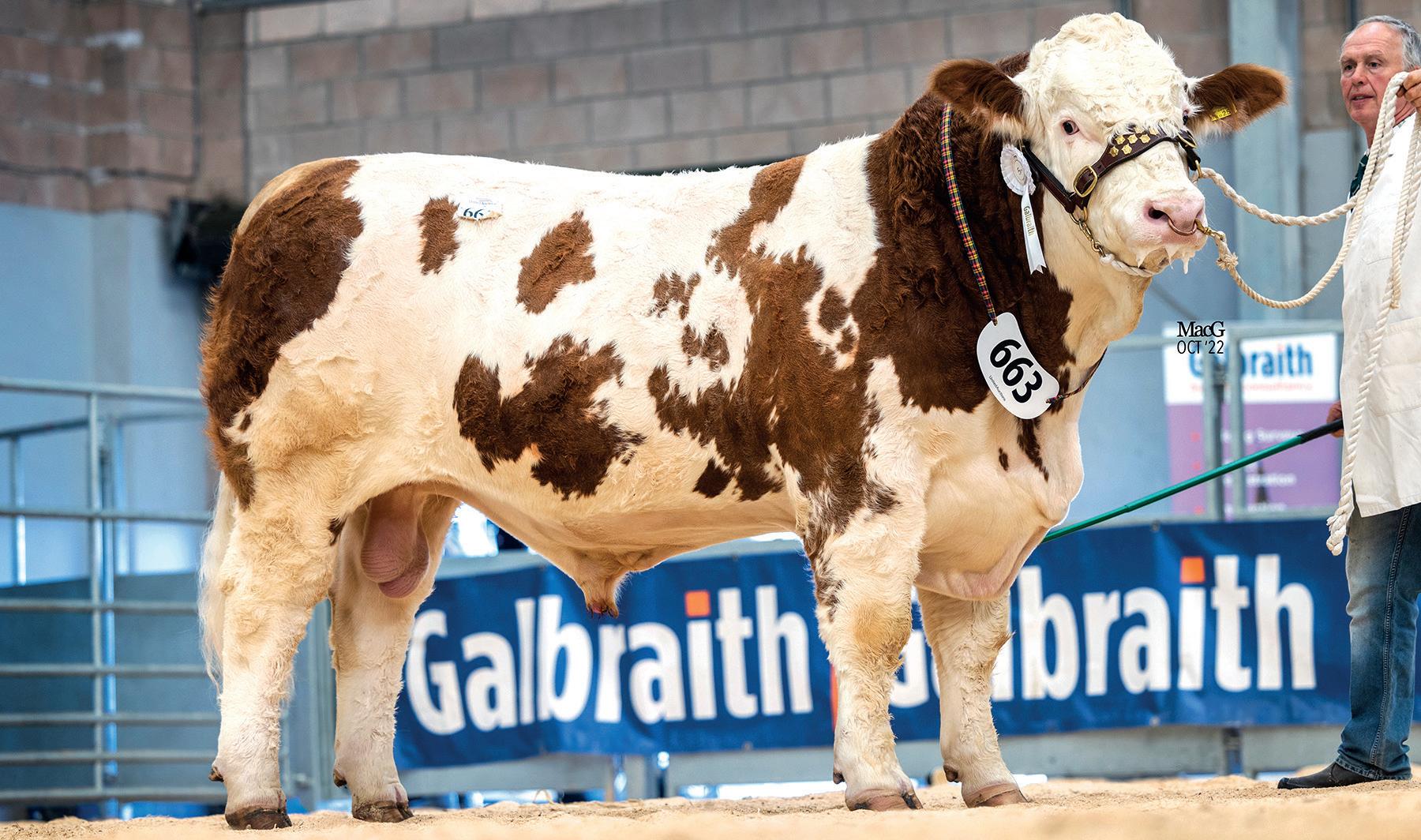
£1,597 up on the year. Two bulls made over 20,000gns, with 10 bulls over 10,000gns in all and 29 at 5,000gns and above.
CHAMPION PLOUGHMEN IN ACTION IN SUSSEX

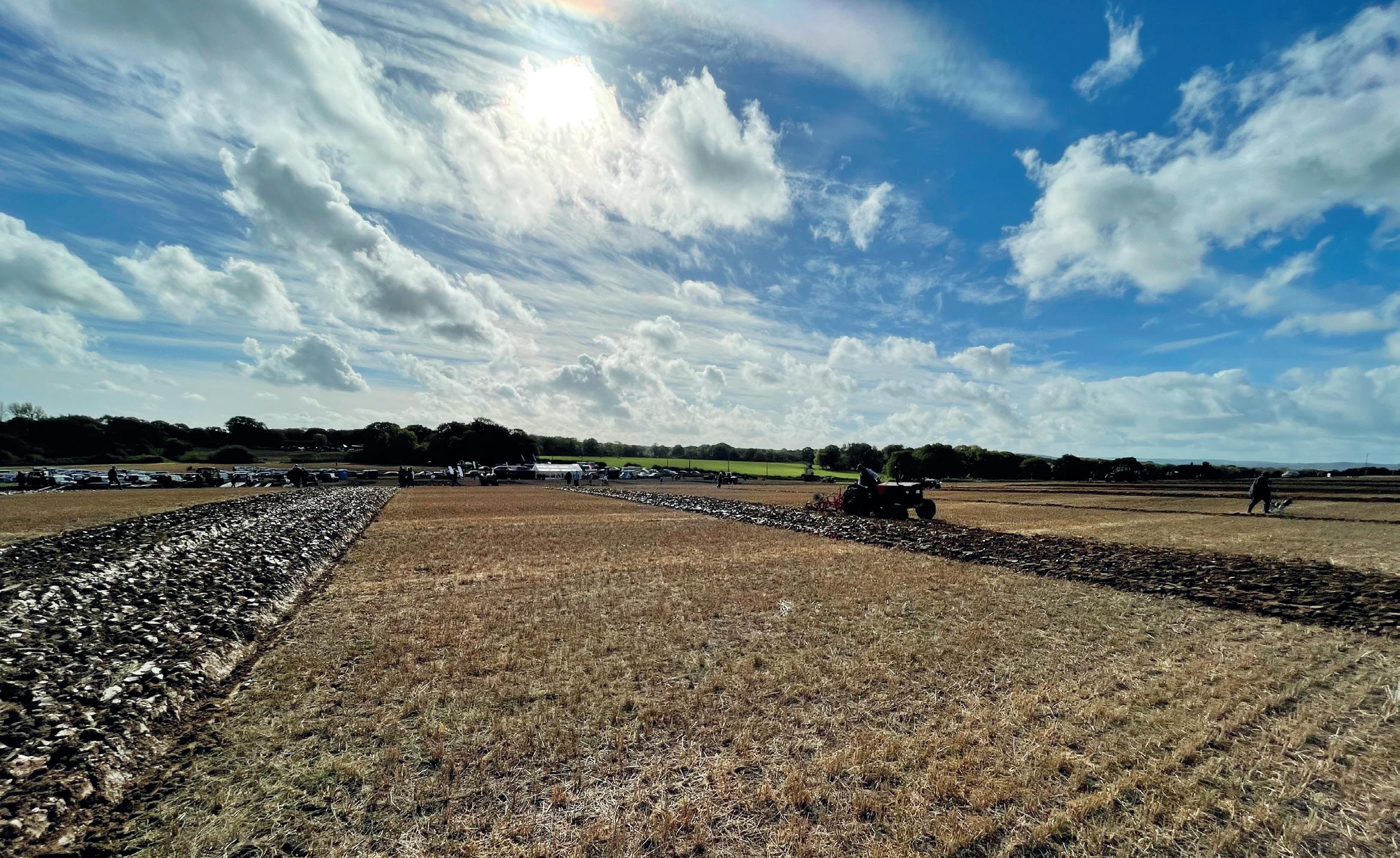
The 69th annual Sussex County Ploughing Match was held at Bradfords Farm, Little Horsted near Uckfield, attracting keen competition across a range of classes, with Martin Blake picking up the Viscount Gage Challenge Cup for the best ploughing of the day.
Best Tractor Ploughing with a Reversible Plough was won by Graham Butler and Ben Tilly won Best Ploughing of the day by a Young Farmer.
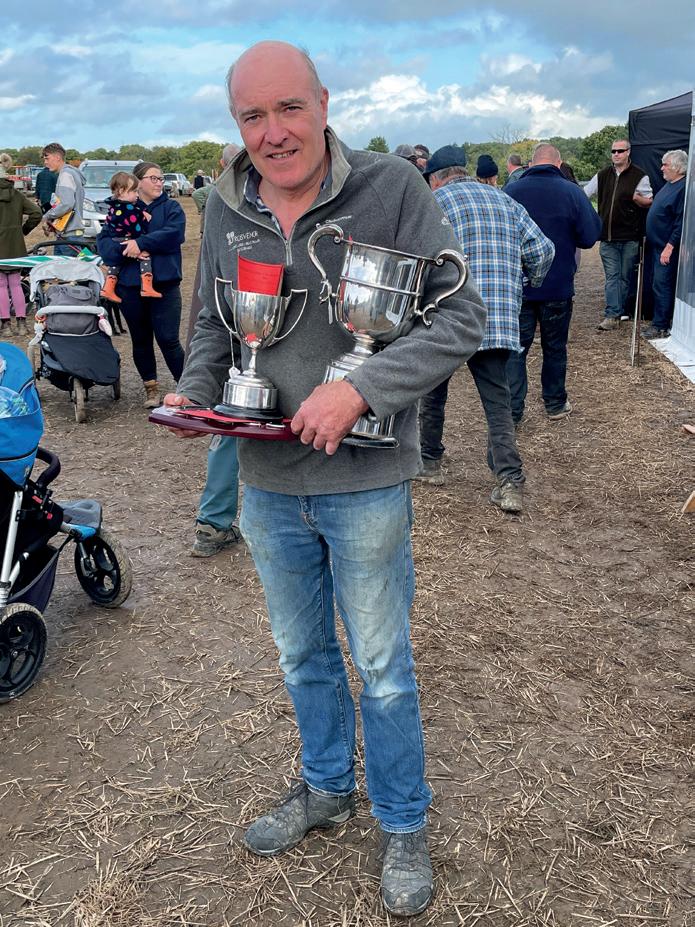
WWW.SOUTHEASTFARMER.NET | DECEMBER 2022 13 TO ADVERTISE CALL 01303 233883 NEWS
OVERALL CHAMPION
HORTICULTURAL CHAMPION
OVERALL COMMERCIAL CHAMPION
OVERALL CLASSIC CHAMPION
SOUTH EASTFARMER RUNNERUPBESTTRADESTAND
Martin Blake
Sway Babycham (P).
FOOD IS THE FOCUS OF SEAS CONFERENCE
A rallying call to “make Tottingworth the tipping point” was unanimously supported by the near capacity audience at this year’s South of England Agricultural Society farming conference.
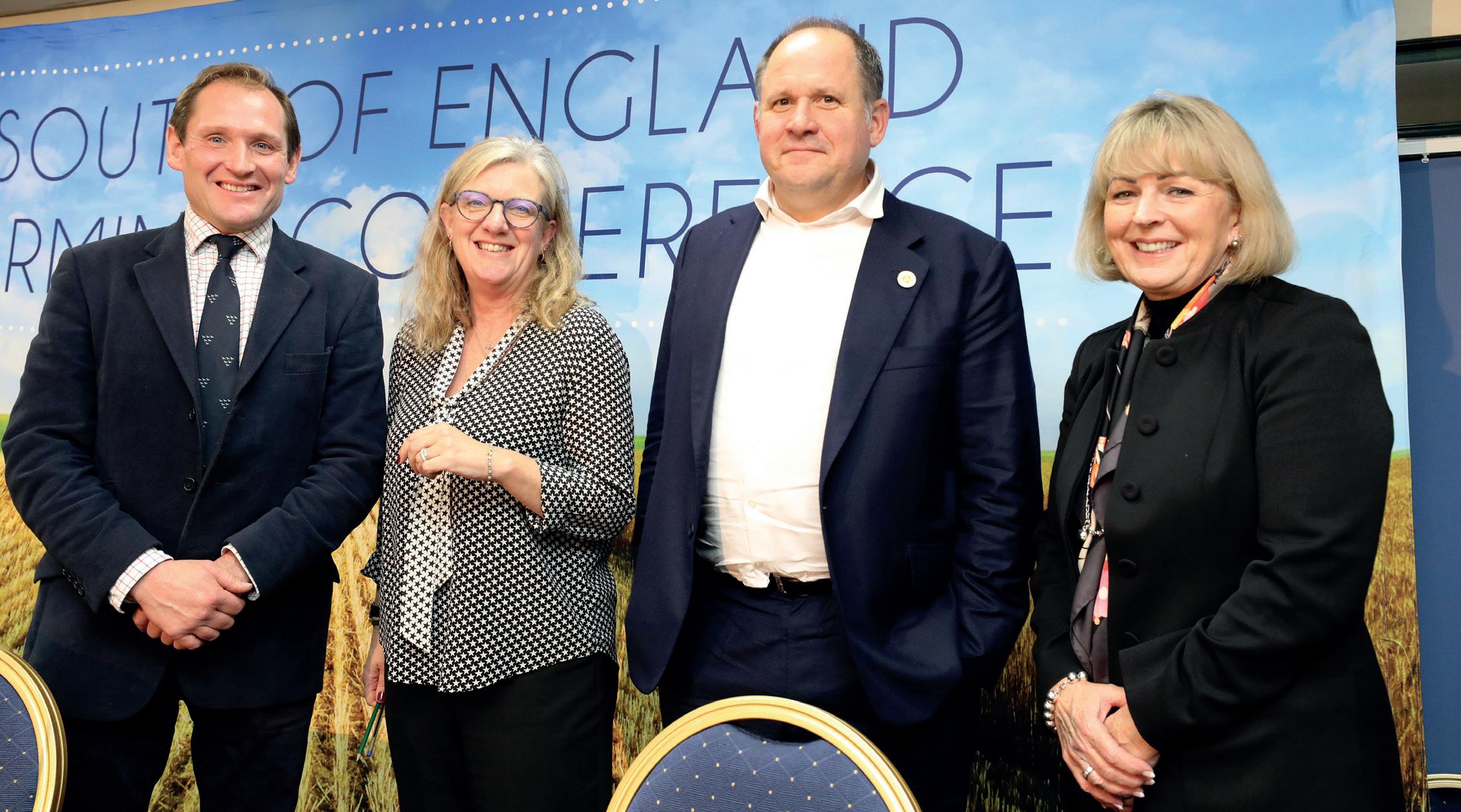
The audience listened intently to a range of in-depth presentations by the high-profile panel, but it was society president Elizabeth Buchanan whose comments on the closure of the Sussex abattoir and its potential impact on local farmers really struck home.
Her call for farmers, landowners and the public at large to put pressure on local and central government to tackle the issue followed a show of hands that agreed with the suggestion that without strong intervention there would not be a single abattoir left in the region in ten years’ time.
The conference heard that there were currently nine in the region, of varying sizes, but that overly strict regulations, labour supply and costs were threatening their existence.
Lively discussion on the Tottingworth closure and on former environment secretary George Eustice’s rapid conversion from avid cheerleader to arch critic over the Free Trade Agreement he negotiated with Australia broadened the scope of a successful and well attended conference.
The conference, entitled We need to talk about food, focused on the role of food in today’s society and considered the challenges around producing nutritious, sustainable food that everyone could afford.
Panel chair Charlotte Smith, BBC Farming Today presenter, introduced guest speakers Judith Batchelar, former brand director at J Sainsbury, local arable and dairy farmer Tom Gribble and Henry Dimbleby, co-founder of Leon Restaurants but now equally well known for his work to create the National Food Strategy.
The audience at the South of England Showground at Ardingly heard a range of
interesting presentations that highlighted the challenges facing the industry and the need to ensure farmers received a fairer return for their contribution to feeding the nation.
Judith Batchelar said the UK was a victim of a “broken global system” with no harmonised reporting system. She pointed out: “What the world should be eating is nowhere near what the world is producing" and said climate change was also affecting what smallholders around the world were able to grow.
In a reference to the upheavals in government, she stressed that it was difficult for the agricultural industry to focus on structural changes when they were busy dealing with cyclical challenges. That point was reiterated by Henry Dimbleby, who later pointed out that in his non-executive role at DEFRA he was now serving under his fifth secretary of state.
Judith said farmers needed “an enabling environment” in which to respond to “the big
DECEMBER 2022 | WWW.SOUTHEASTFARMER.NET
14 FARMING CONFERENCE
Tom Gribble, Charlotte Smith, Henry Dimbleby and Judith Batchelar
policy decisions” around the changes affecting the industry. She said collective action was the best way to achieve competitive advantage, and added that farmers needed to get better at organising themselves and working together and with other groups such as government, academics and investors.
Fourth generation farmer Tom Gribble raised the question of how tenant farmers could benefit from such initiatives as biodiversity net gain and carbon capture and also highlighted the lack of a consistent standard by which to measure gains in these areas.

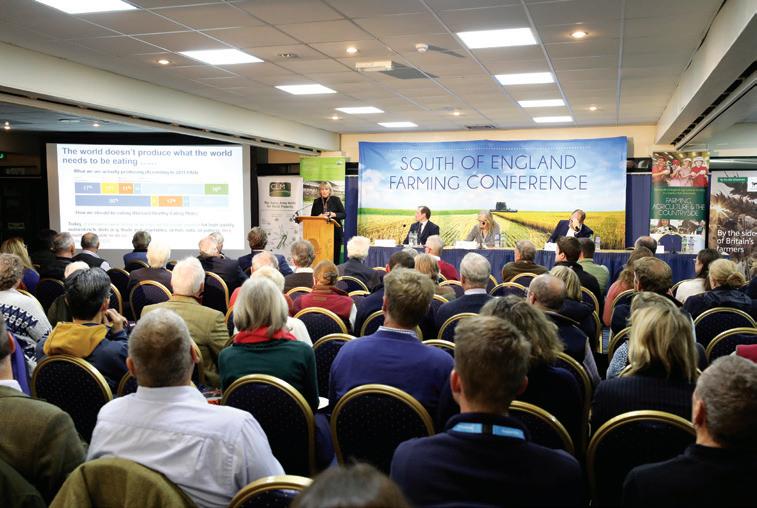
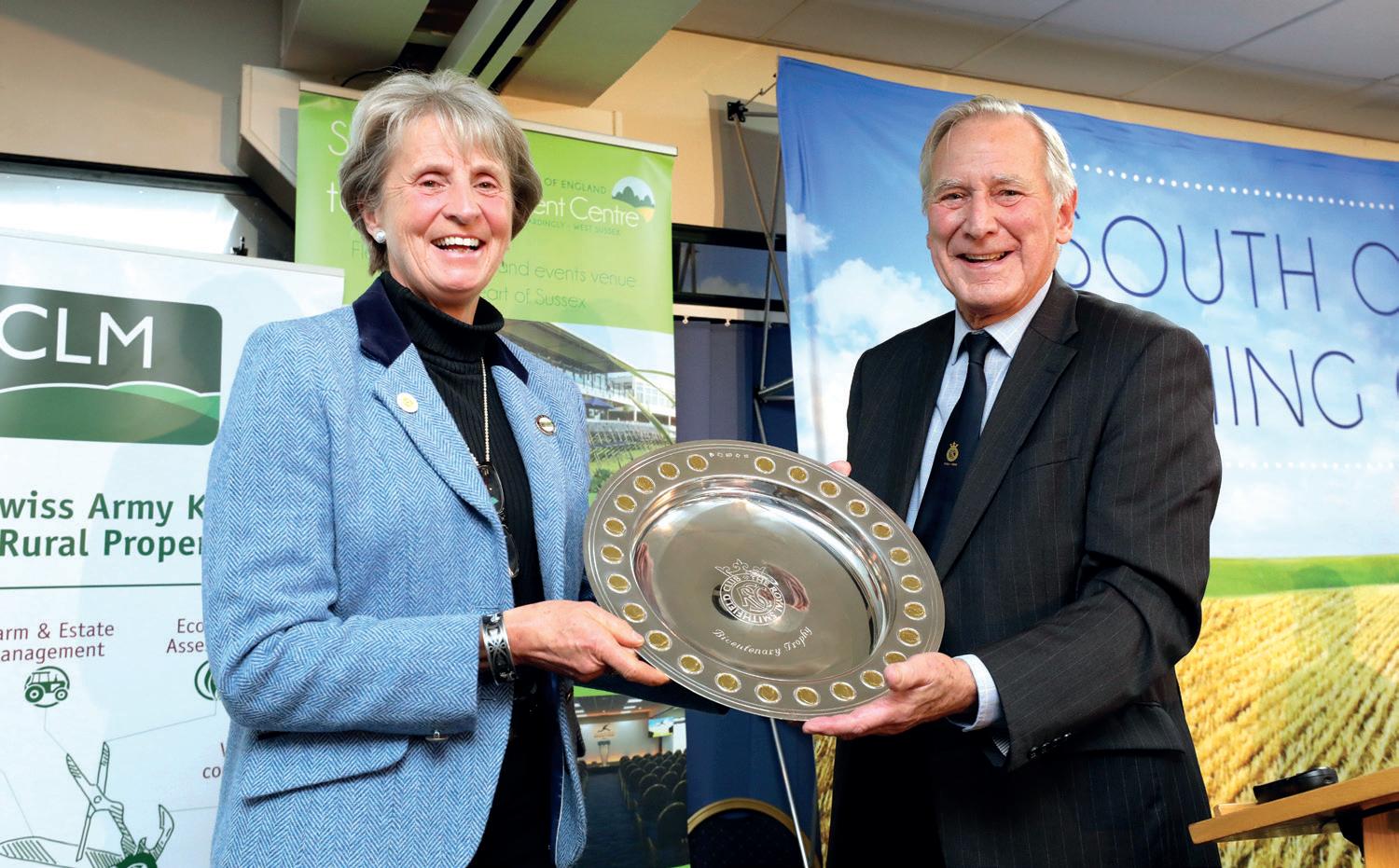
He also pointed out that with ‘agflation’ running at 34% it was difficult for farmers to see a return on their investment and stressed that while he was keen on conservation measures and had encouraged wild flowers and birds on his farm, “there needs to be a place for food as well as for the environment”.
Lending his support for gene editing, which he pointed out was not the same as genetic modification (GM), he went on to stress: “Farmers produce food. Affordability is a political or personal concept.”
On Tottingworth, Tom said it was “sad news”, adding that at a time when farmers were increasingly trying to connect with the public, being unable to supply meat direct to their customers was not helpful.
While Henry Dimbleby began by admitting that these were “pretty grim times”, he went on to say that “in many ways the food system is a miracle”, praising farmers who now produce more food on less land than they did in 1945 and stressing that they needed support to meet current challenges.
He said that carbon sequestration was important but should be balanced with food production and added that it was important for the Government to pay farmers for doing the right things and allow them to make a profit – and to do so “with visibility”. He also said regulations needed to be used to ensure the worst farmers were held to account.
Referring to the fact that he was currently serving his fifth boss at DEFRA, Henry said that such upheaval made it difficult to get changes made quickly.
Answering a question from an audience member about who should take responsibility for ensuring poorer people could eat decent food, he said the problem was the poverty, not the food system.
Immediately
On the closure of the abattoir at Tottingworth, Henry said: “No-one in DEFRA has grasped the nettle,” adding that the Government had ignored the recommendations made in a report into the problem (as discussed elsewhere in this issue of South East Farmer). He said Covid-19, Brexit and the Russian invasion of Ukraine, along with ministerial changes, had resulted in nothing being done.
In closing the conference, Elizabeth Buchanan thanked all the speakers and said the event had been “challenging, thoughtprovoking and, I am glad to say, encouraging”.
Thanking chair Charlotte Smith, she raised a laugh when she told conference delegates: “And stop whinging about Countryfile; it’s not about you!”
Turning to Henry Dimbleby, she said the National Food Strategy had been “one of the most important pieces of work ever produced for government”, adding: “We may still be waiting to hear how they will respond, but it is there, and it creates a rallying point for all of us.”
Elizabeth also highlighted the “resolve” Henry had shown in standing up against the trade deals with Australia and New Zealand, “which, by the way, were a disgrace”, she
added. She went on: “He did it because of his firm belief in the importance of treating animals with respect and kindness. And he did it despite the risk of being defenestrated from his role at DEFRA.”
On farming in 2022, she commented: “These are alarming days, not just because government policy isn’t yet certain, but because of many other challenges too –climate change, diseases, rising input costs, trade deals, the monetising of carbon and biodiversity and much more.
“For many people, it is bewildering and frightening. And this is particularly so for the small scale family farmers who matter so much. We must ensure their essential contribution to growing food and enhancing nature is properly recognised. They must have a key part in any fair, inclusive and just transition to the sustainable future we all want to see.”
And looking forward, she concluded: “Together, I pray we can all thrive by creating a world in which we produce the highest quality food for which we are properly paid, which is accessible to everyone, where the care of animals is paramount and our natural world is abundant and healthy. This must not be a dream, but an ambition.”
WWW.SOUTHEASTFARMER.NET | DECEMBER 2022 15 TO ADVERTISE CALL 01303 233883
after the conference, in a surprise presentation that left her speechless, Elizabeth Buchanan was presented with the Royal Smithfield Club’s Bicentenary Trophy to mark her contribution to agriculture. It was handed over by president Geoff Burgess to considerable applause from the delegates.
SEND YOUR VIEWS OR COMMENTS:
SEF.ED@KELSEY.CO.UK

ONE CONCLUSION






Dear Sir,
twitter @SOUTHEASTFARMER facebook-square SOUTH EAST FARMER







traction until he was on dry land, a little chastened. The bovine neck is remarkably strong. If we did the same on a human it would break!
The Akehurst team produced a pair of articles in the November edition of South East Farmer that lifted the spirits while adding a dusting of gloom.
Monica’s meeting with the RPA sounded predictably dull and depressing. This branch of DEFRA seems so divorced from the realities of farming and totally out of touch with the flexibility needed to deliver stewardship goals.
When Natural England was more involved with stewardship, the staff were very visible on farm and I found them most helpful and positive in getting things done. Now NE has been put out to grass, getting hold of a human in RPA is almost impossible, and when you do it is seldom productive.
It’s sad, and with Ms T Coffey at the helm the outlook looks even more overcast. I am just glad her time at health was so short!

Monica’s piece ended on a high note, however, extracting a cow from a mire. It reminded me of when our Lincoln Red bull we were using on South Devon heifers got well stuck in deep silt while trying to hijack the senior bull’s herd.
We used the same technique of a JCB, rope round the neck and
Heathfield Agricultural Show

SHOW SECRETARY VACANCY
This role is an opportunity to join, and work with, a group of dedicated volunteers who collectively run the Heathfield Show. Your function within it is effectively a ‘Facilitator’, responsible to the Show Council.
I found Nigel’s article about Montague Farm on the Pevensey Levels truly uplifting. With imagination, enthusiasm and hard work, a productive farm can indeed co-exist with excellent, diverse and rich habitat production that delivers for precious and exciting wildlife. We can and must have both.

We are also part of a new North East Cotswold farm cluster, with similar aims. It is not just one or the other, but the environment still needs imaginative support through biodiversity net gain, carbon markets and stewardship, while the market must and should take care of food production.
 Mike Kettlewell, Chipping Norton
Mike Kettlewell, Chipping Norton
ABUNDANCE OF NEW TALENT
Dear Sir, Today’s generation has a different mindset as a result of being born into a digital world. There’s an abundance of new talent out there that can not only supercharge horticultural business by bringing a fresh perspective but also by providing the technological capabilities vital for post-pandemic growth.


Now, more than ever, with ongoing labour issues producing huge challenges for the industry, there needs to be a way to tap into this new generation of skillsets and creative thinking.




The Fresh Produce Consotrium (FPC) is aware that many of today’s young people are unaware of the opportunities available to them through a career in the fresh produce and horticultural sectors.

With this in mind, we have developed FPC Careers, a trailblazing, free-to-attend event showcasing the wide and varied career paths on offer in the fresh produce industry, including well paid and progressive graduate schemes, along with apprenticeship programmes and full and part-time roles.
We work in close cooperation with key universities and colleges across the UK to provide our sector with a unique opportunity to meet with students who are willing and eager to learn new skills and keen to explore employment possibilities within our sector.
The event, on 16 March 2023 at the East of England Arena, Peterborough, will provide a fantastic opportunity for employers to showcase their jobs within the industry in order to secure the best talent for their business. These include all aspects of the wider food and horticultural sectors, to include agritech, retail, hospitality and more.






but also of planning and development of future shows.





The role is to action decisions made by the Show Council, recording meetings and coordinating all of the many varied facets of the Show. Although it’s a part time, self employed position, the time needed in the run up to the Show is that of a full time job. You will be very much a part of not only running the current Show but also of planning and development of future shows. It is a rewarding position, knowing that your efforts help many others in the local community. Please visit the Heathfield Show website for a full job description: www.heathfieldshow.org/job-vacancy-show-secretary
FPC Careers will also host a range of activities, including a special ‘Mentor Me’ area, where students can meet for informal chats with industry leaders, and a professional, complimentary headshot photograph service, allowing them to add impact to their CVs. Exhibitor and sponsor opportunities are available and registration is free via https://www.fpcfuture.co.uk/careers
Linda Bloomfield, Head of Business Development, The Fresh Produce Consortium
DECEMBER 2022 | WWW.SOUTHEASTFARMER.NET 16 LETTERS
twitter VINES ON THE DOWNS

Just like a scene from an Eric Ravilious painting…although nowadays we have vines on the Downs!
 Rathfinny Estate @RathfinnyEstate
Rathfinny Estate @RathfinnyEstate
AUTUMN’S WILD HARVEST UNDERWAY
Dear Sir,
We are now well into the pheasant shooting season. Along with partridge, wildfowl, grouse, venison, rabbit and pigeon there is now a full complement of wild produce that is sustainable, locally-sourced and tasty. Accompanied by autumnal wild foods such as berries and nuts, game meat is the ultimate seasonal produce.
The multitude of benefits attributed to wild game has resulted in a growing popularity with budding home chefs. Increasingly stocked in major supermarkets, wild game can also be found in local butchers, farm shops and farmers’ markets.
For more information and some inspiring wild game recipes, visit www.eatgame.co.uk.
Debbie Collins
The British Association for Shooting and Conservation (BASC)
GENETIC TECHNOLOGY BILL WILL COST
US DEARLY
Dear Sir,
As the Genetic Technology Bill races unhindered through parliament, the potentially seismic consequences to the UK food industry from this contentious policy are simply being ignored.
This deeply troubling bill removes any labelling and traceability requirements for a hypothetical sub-class of GMO, the so-called ‘precision bred organism’ (PBO). These exempted organisms will effectively be hidden in the food system.
The Regulatory Policy Committee has already raised a red flag, stating that the bill fails to consider the impact of creating a new class of GMO. Let’s be absolutely clear that in its present form this bill will fail businesses, it will fail consumers and it will fail the environment.
Organic Farmers & Growers believes the Government must urgently make provision to minimise the financial impact to all food businesses by establishing a comprehensive co-existence regime. The worrying alternative is that businesses would need to undertake their own traceability testing, a complex and expensive process adding an estimated cost of around £500,000 a year to small and medium-sized businesses.
Neither does the Bill address the implications to significant export markets, where GMOs are still regulated (including the UK’s devolved nations). If the UK does not make adequate provision to ensure PBOs are identified, critical markets will be lost to UK food businesses.
Hiding GMOs within the food system will have immeasurable longterm consequences on an already reeling UK food industry. It also fails to safeguard our basic right as citizens to make an informed choice about what we consume.
Roger Kerr, Chief executive, Organic Farmers & Growers
GRANT DELAYS
Dear Sir, Monika Akehurst is right about grant funding being stressful and making farmers wary (At the kitchen table – November 2022).
We recently constructed a new packing shed for our hedging nursery which included a grant of around £40,000 from the Rural Payments Agency (RPA).
It was more than a year from the date of submitting the expression of interest before we finally got the nod from the RPA to go forward and submit an actual application, and only after the full application had been submitted that they told us half of the items we were claiming for were not actually eligible and couldn't be included, despite having previously told us they were eligible.
The application process was so delayed (apparently due to Covid-19), that construction of our new packing shed was over 12 months later than it should have been, by which time material prices had jumped dramatically, thus reducing the real-term benefit of the grant.
Had I known there would be such delays, we would never have applied for the grant and would have built our packing shed sooner without grant funding.

The level of bureaucracy involved is astonishing and must be simplified if farmers are to be encouraged to take up generous grants.
Will Mathias, CGJ Mathias & Son (Nurseries), Farnham, Surrey
WWW.SOUTHEASTFARMER.NET | DECEMBER 2022 17 TO ADVERTISE CALL 01303 233883 LETTERS
Farm Waste Recycling Experts Providing waste solutions to Agriculture, Horticulture & Equestrian Collection & Recycling of... All types of Farm Plastics Workshop Wastes Veterinary Waste Waste Oil Waste Tyres Redundant Agri chemicals WasteTyresCardboard Tel 01264 736733 ian.kitson@kitsonrecycling.co.uk www.kitsonrecycling.co.uk No Membership fees
CHAMPIONING THE BENEFITS OF USING NATURE
A Buckinghamshire environmental and mental health organisation that champions the benefits of using nature to support learning and recovery has been awarded £3,000 from the CLA Charitable Trust (CLACT).
The trust is funded almost entirely by subscriptions and donations from members of the CLA, an organisation which represents thousands of farmers, landowners and rural businesses.
It provides grants to charities and community organisations which share its vision to help connect young people who are disabled
or disadvantaged with the countryside and nature, something Lindengate does at its stunning six-acre wildlife garden in Wendover, Buckinghamshire, where it promotes better health and wellbeing through nature.
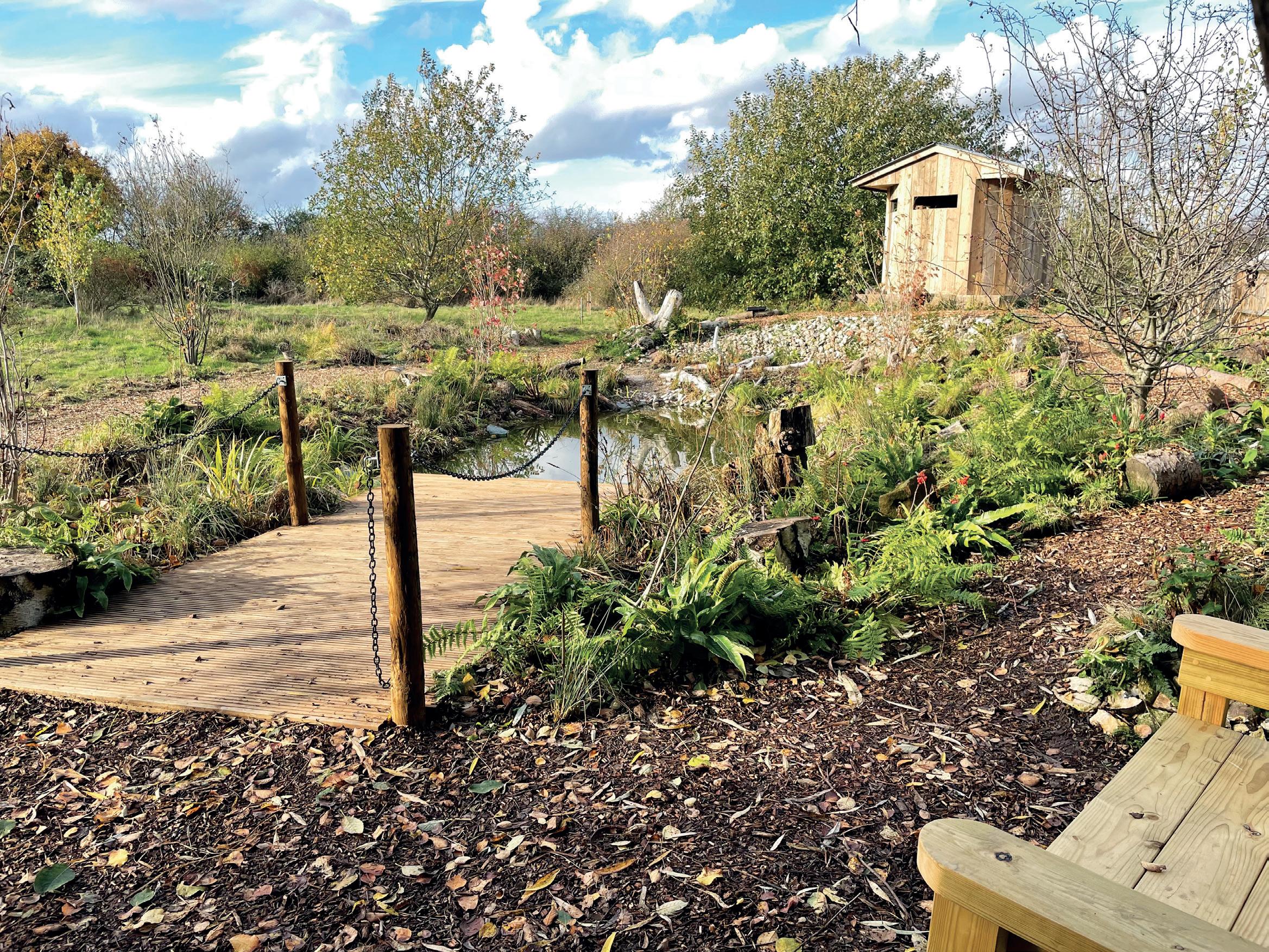
Lindengate has been transformed over the past eight years from a disused allotment site with two-metre high nettles to a unique six-acre secret garden with a nature reserve, ponds, heritage orchard, kitchen garden and sensory garden, with sculptures and heritage-
based art hidden across the site.
The charity said the £3,000 grant would “enable us to continue to support our community through our wellbeing pathways programme, providing specialist group-led sessions to build resilience and improve mental wellbeing through seasonal nature-based activities.” In 2021 Lindengate supported more than 3,000 people aged from 12 to 95.
Since 1980, CLACT has given £2m in grants to a wide variety of organisations and projects.
www.cla.org.uk/about-cla/charitable-trust/
DECEMBER 2022 | WWW.SOUTHEASTFARMER.NET 18 NEWS
SHOW SECRETARY
After 10 years as show secretary, Nicola Magill is standing down from the Heathfield Agricultural Show after the 2023 Show. The show is now looking for someone to take over this key position. Organised by a show council and supported by seven sub-committees, the show relies on over 200 volunteers on show day to assist in the smooth running of the event.
The show celebrated its 75th Show in 2022 and came back after two years of Covid-19 cancelled shows with record visitors attending. On the 45 acre site there are competitions in various classes of livestock; cattle, sheep and pigs and a large contingent of horses take part in various classes. There are over 100 trade stands, not only agricultural but for general shoppers, along with a farmers’ market and a food fair. There are various country ways demonstrations, vintage tractors, an education tent, a fun fair and main ring attractions.
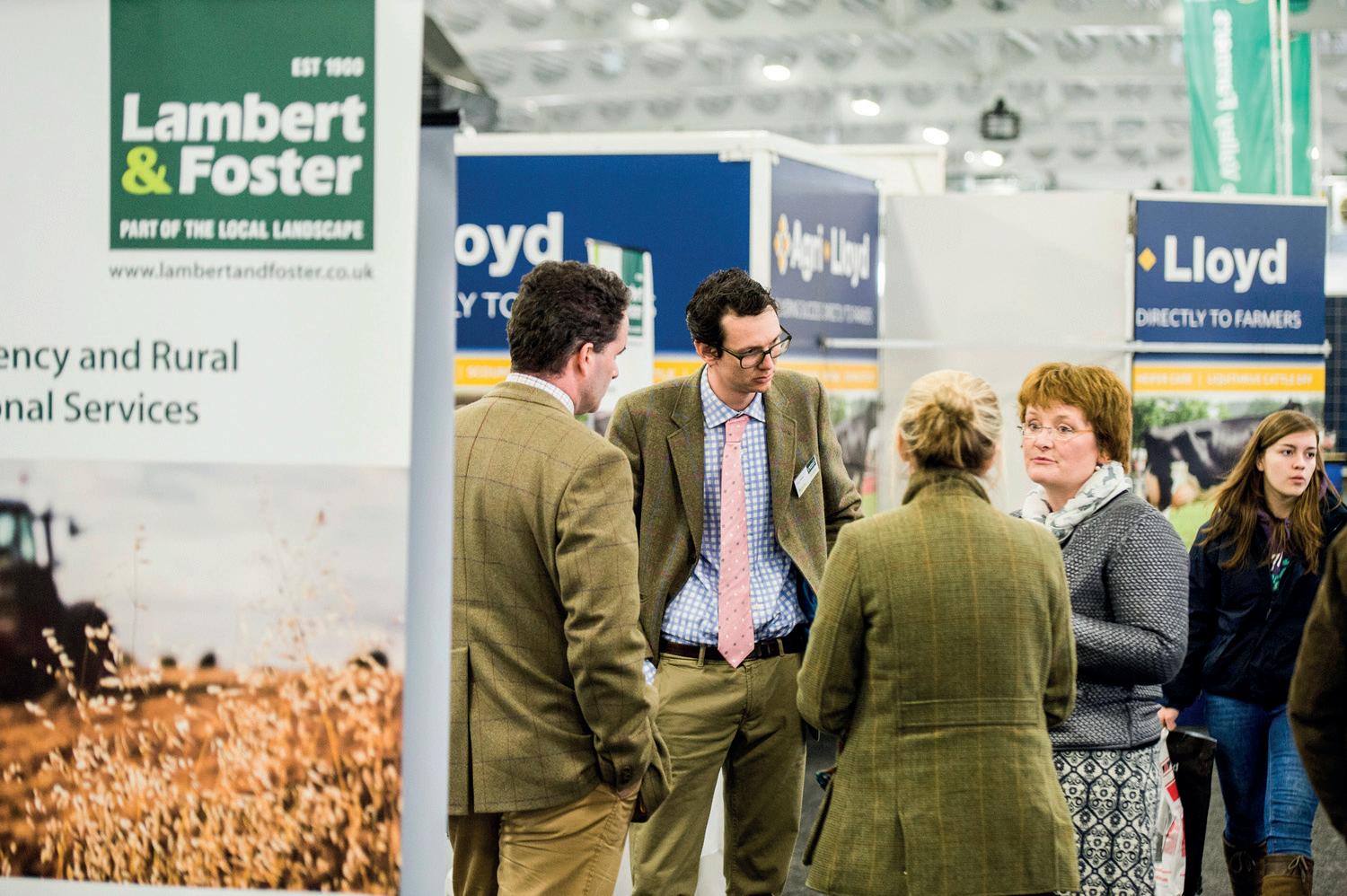
For a full job description visit: www.heathfieldshow.org
PRACTICAL WORKSHOPS

A new series of practical workshops aimed at helping newcomers to the booming world of viticulture has been launched by Dorking, Surrey-based Vinescapes Ltd.
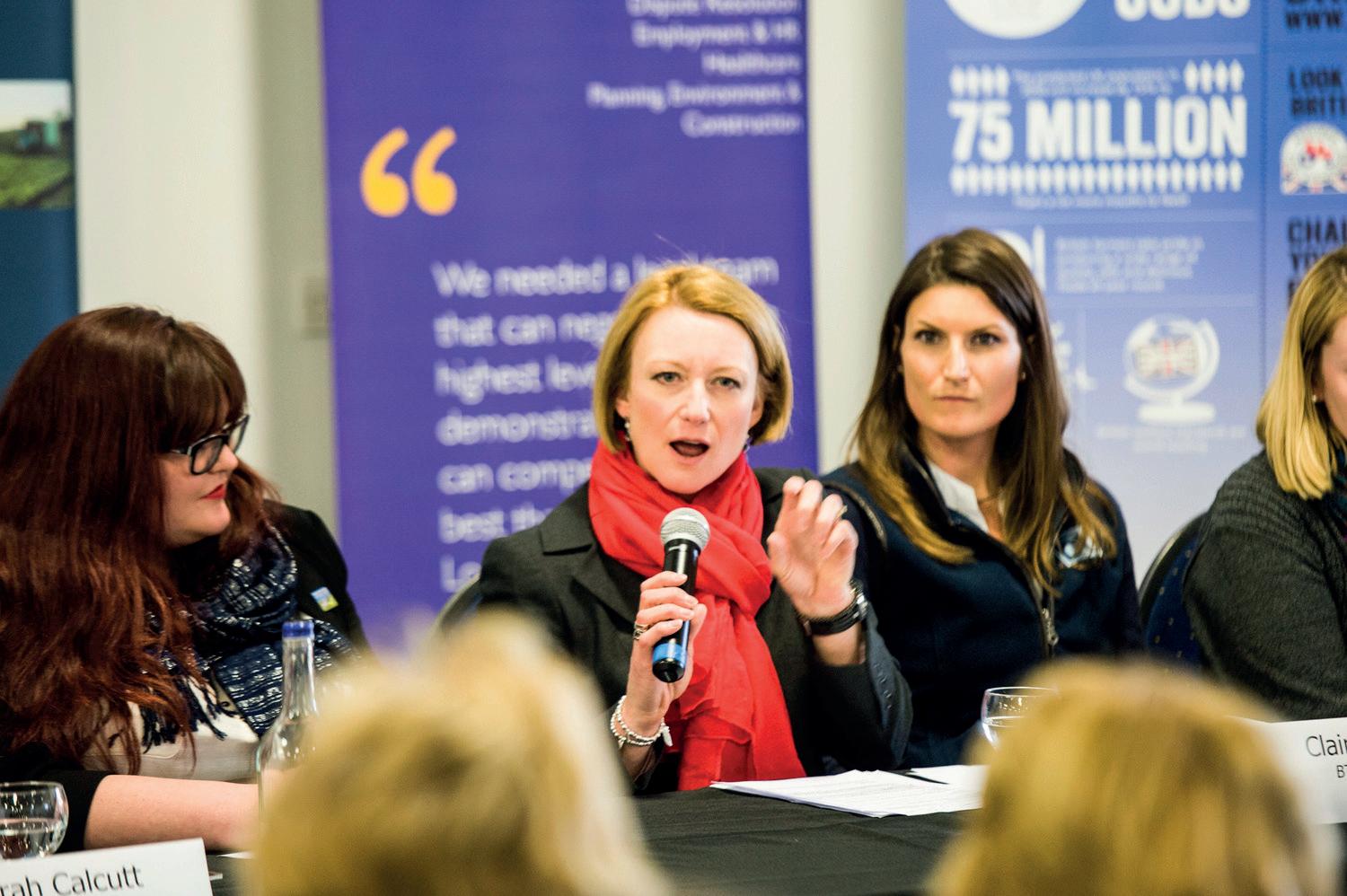

The series starts with a workshop on winter pruning on 8 December at Tanhurst Estate Vineyard in Surrey and will continue with sessions on pests and diseases, soil management and canopy management in the spring.

Joel Jorgensen, managing director of Vinescapes, commented: “Small group workshops are a great way to learn essential practical skills in a relaxed atmosphere. Learning how to carry out routine vineyard tasks and operations correctly is important to ensure the health, productivity and success of the vineyard.”
The workshops can be booked online via www.vinescapes.com
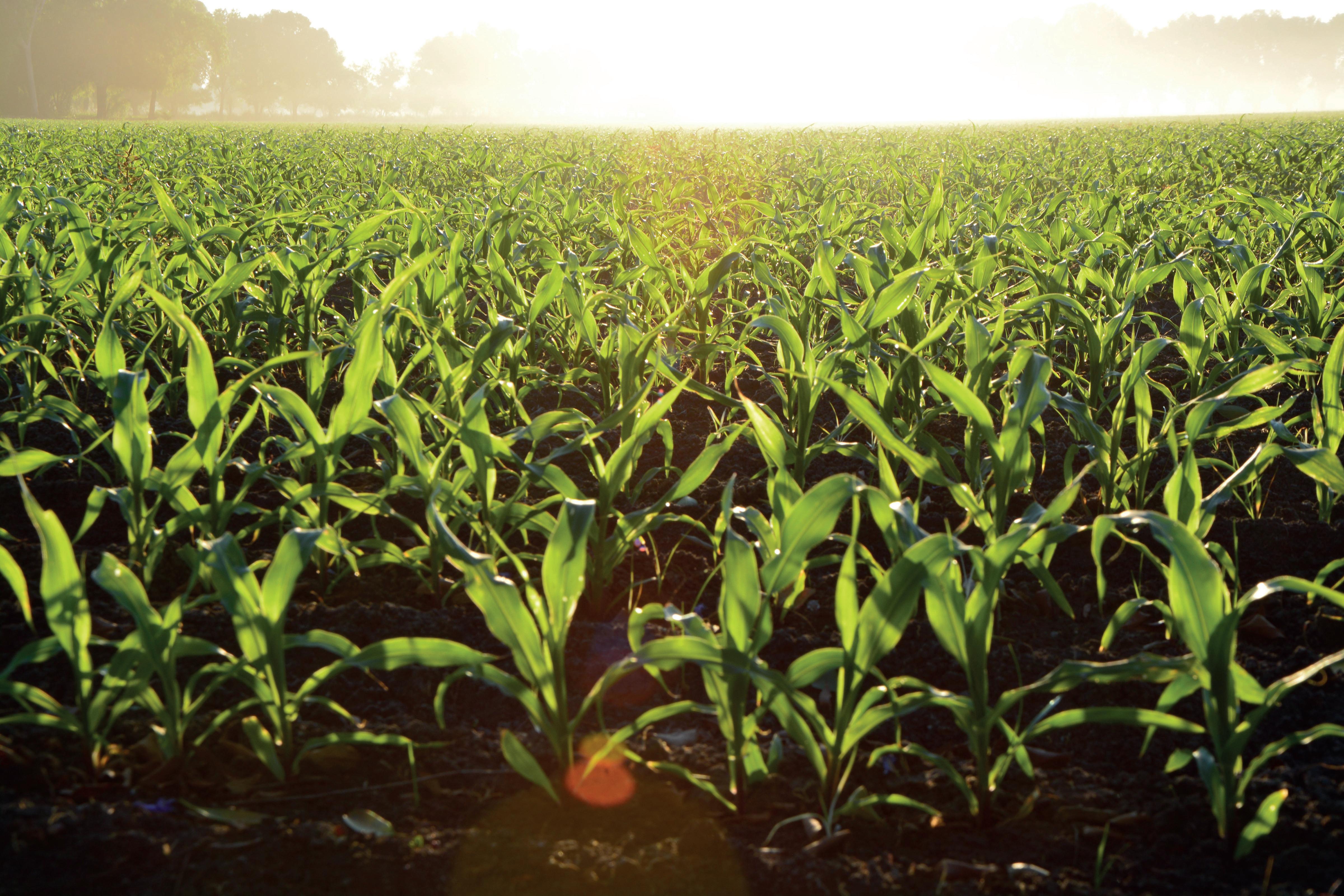
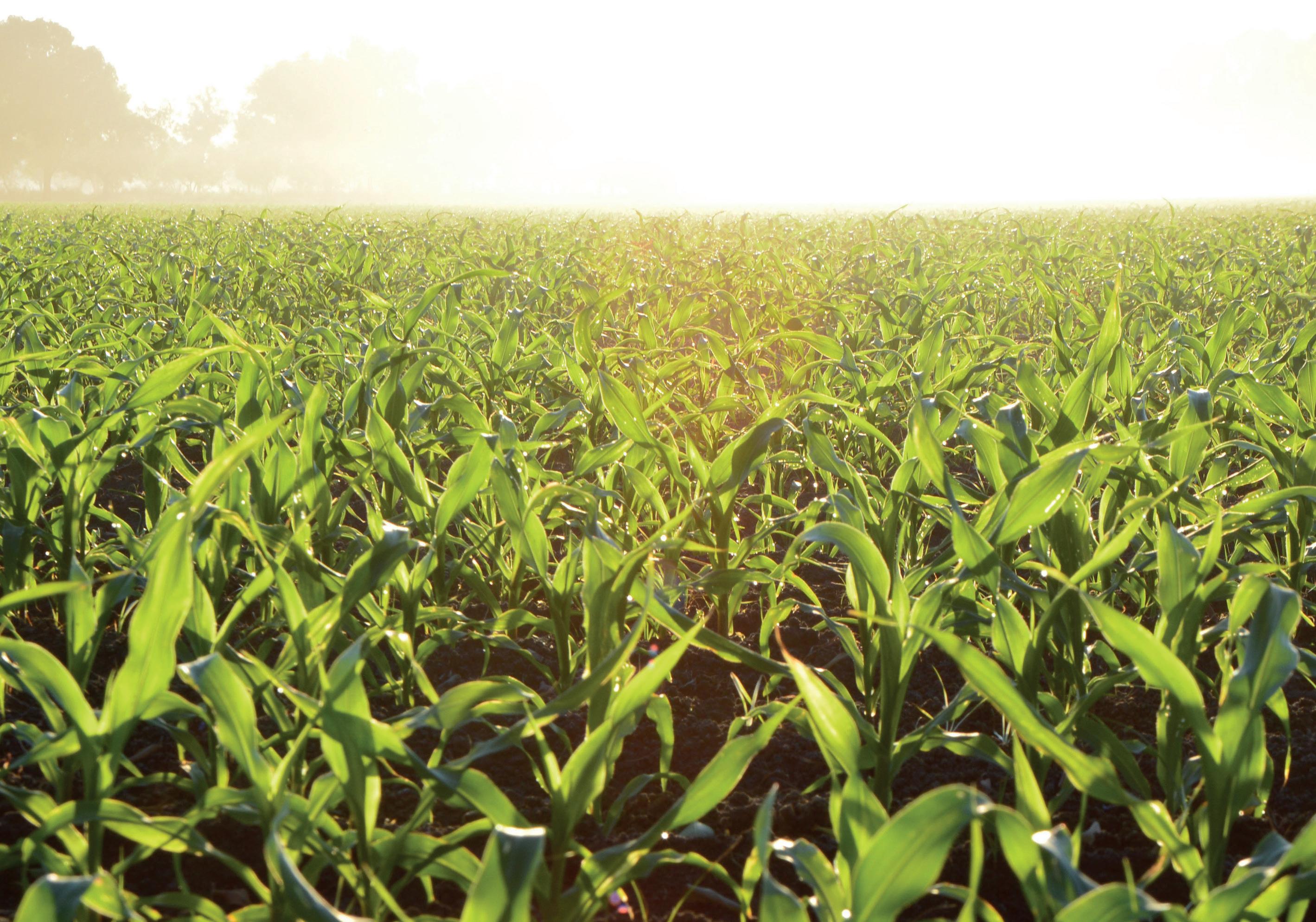
19 NEWS
Winter pruning: Joel Jorgensen, Vinescapes
KENT'S FREE AGRICULTURAL AND MACHINERY SHOW BOOK YOUR TRADE STAND SPACE NOW! 1MARCH 2023 @KCASFarmExpo
MONICA AKEHURST AT THE KITCHEN TABLE
BUMPER CROP OF ACORNS HAS TAKEN ITS TOLL
The clocks have changed and the evenings draw in, but November has been so warm. Primroses are flowering, butterflies and bees are out and about. I’ve been in my shirt sleeves working my spaniel, flushing out the pheasants from the woods. The leaves have been slow to fall from the trees and the grass is still growing, although we could have done with that growth back in the summer.
Is this the new normal? On the plus side, at least we’ve saved on heating costs, and the cattle have only just been housed as it has started to get wet under foot.
The fattening cattle were the last bunch to bring in, a task that proved testing. They ambled out of the field and walked the mile down the road to the home farm quite happily. There was a concerning moment when they stopped to look longingly at a field of enticingly lush grass, but a call and a shake of a bag reminded them they were supposed to be following us.
On arrival in the farmyard they went on strike, flatly refusing to enter the shed. In the
sun and the rain, we tried every tactic we could think of – and failed. Eventually we made a pen around them and loaded them in batches onto a trailer to take them the 40 metres to their destination.
The weather is forecast to get colder, which will bring some advantages, hopefully reducing the risks of cattle getting pneumonia in the sheds and putting an end to the high levels of parasites affecting sheep. Many flocks have had problems with nematodirus and haemonchus. I was advised to drench my lambs with Zolvix, an expensive wormer I’ve never had to use before.
The bumper crop of acorns this year has also taken its toll as both sheep and cattle are partial to eating them, the consequences of which can be fatal.
The shepherd’s year has begun, with the rams joining the ewes in early November for an April lambing. This year we purchased a new Charolais ram I’ve named ‘Mr Jump’. After collecting him, I decided I’d put him in the home paddock with a fairly docile blue Texel for company to help him settle in. Mr Jump
took one look at his chosen companion and literally flew over the sheep hurdle blocking the gateway. As per the vet’s advice I had planned to keep him separate but had to abandon that idea and resort to putting Mr Jump and the rest of my rams together into a snug-fit pen, where they could get to know one another without coming to blows.
Once the rams had got acquainted and quite hungry, I released them onto fresh grazing and they immediately set about filling their stomachs. Next morning, I was anxious to see how they were all getting on, especially because another of my rams is known as ‘Mr Bump’; no explanation needed for his traits.
He’s not my best buy, but my daughter says Mr Bump’s her favourite because he’s such a character. I’m guessing he was hand reared, he’s certainly exuberant and he has no idea of his own strength. However, he’s a good worker and throws robust lambs. Anyway, thankfully the relationships remained amicable. When the rams were put out with the ewes there was a distinct lack of pillow talk; it was on with the job. Lambing promises to start with a flourish.
Ewes on Pevensey levels

DECEMBER 2022 | WWW.SOUTHEASTFARMER.NET 20
Our family enjoyed attending the East Sussex Ploughing Match in September. I entered our collie pups in the dog show and was delighted with a win in the brace category. The grandchildren entered artwork and loved the tractor ride and watching all the ploughs at work.

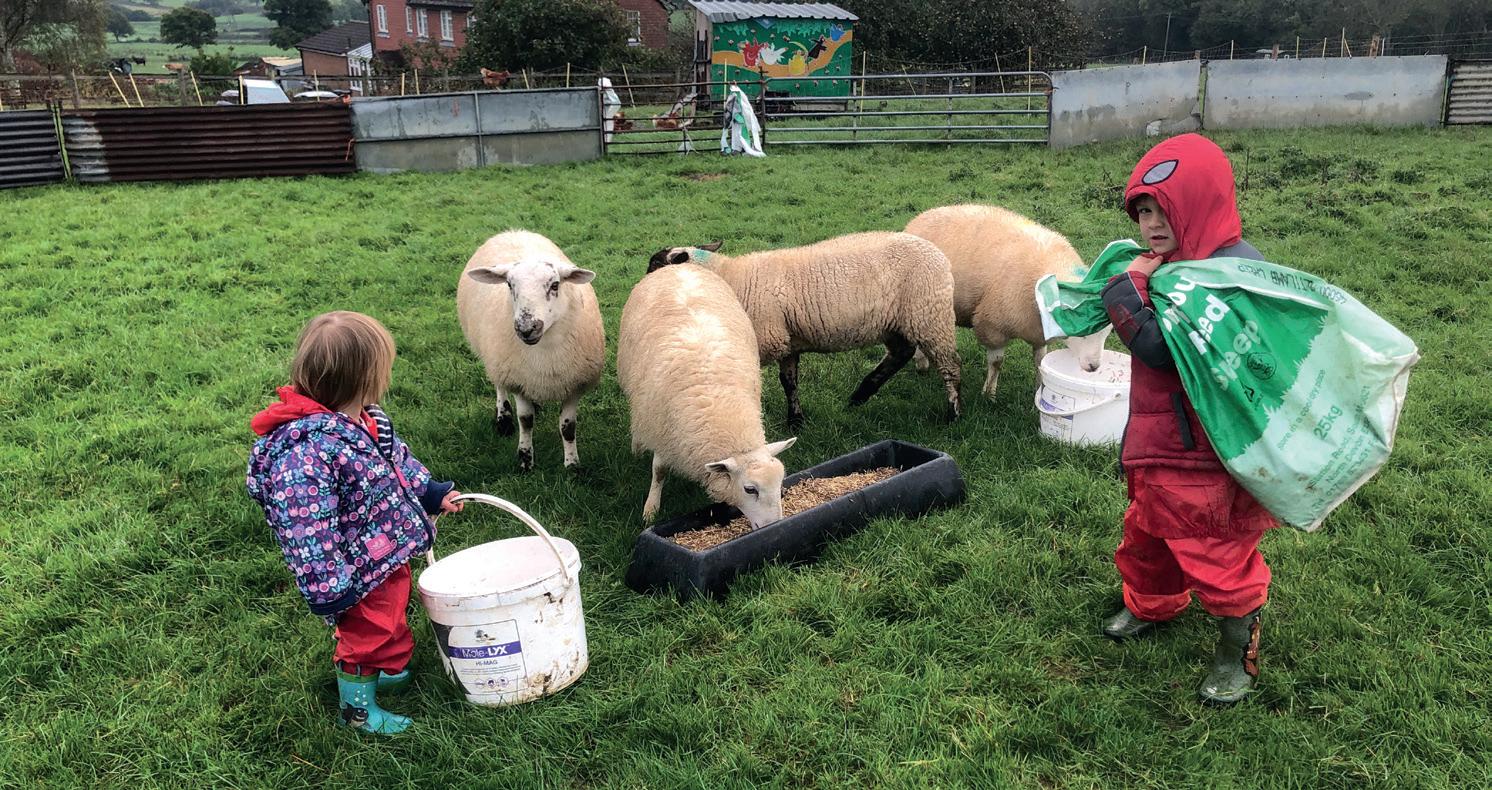
We also had entries in the cookery section; admittedly my ginger biscuits were crispy, with the judges obviously failing to appreciate that if you dunk them in tea they’re delicious. But my chickens scored a hit with their eggs.
Sadly, my hens can no longer be free range but are residing inside, thanks to the restrictions in place to prevent the spread of bird flu, which seems to be an increasing problem, year on year.
Some supermarkets are rationing the numbers of eggs bought by customers due to supply shortages. Egg production costs have risen and the retailers have been reluctant to pay accordingly. Who can blame producers for reducing flock sizes, temporarily stopping production or simply leaving the industry?
It must be stressful working with birds that could potentially be struck down with bird flu, especially if you’re struggling to make your enterprise pay.
We were keen to get our hedge cutting done early this autumn, but on its first day out our hedge cutter developed a problem with the main beam. We called Tuckwells and then Bomfords, who were very efficient at ordering a replacement part, and it was soon fixed. So we’re up and running, roadside only now as there was flooding in the valley last night. This weather must surely be topping up the reservoirs.
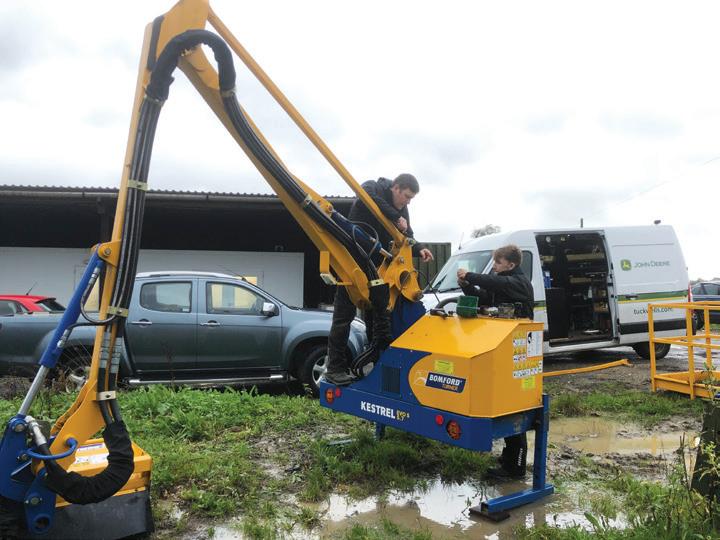
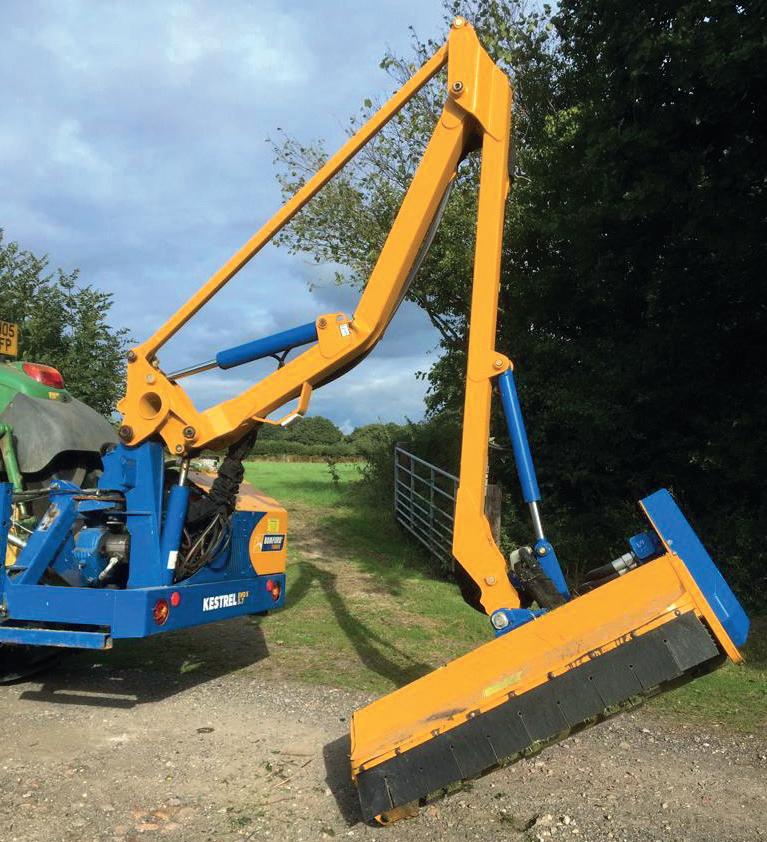
Did George Eustice value his own position as Environment Secretary more than safeguarding our agricultural industry? I’m appalled that now as a back bencher he admits that the Australian and New Zealand trade deals were not good for UK farmers. If he believed that, why didn’t he stand up for us?
The closure of Tottingworth abattoir is worrying. The advisor for red meat policy in DEFRA replied to my letter regarding the plight of small abattoirs saying: "I would like to reassure you that DEFRA is fully supportive of finding innovative solutions to address the problems faced by the decline in small abattoir numbers.”
I’m not reassured. There are numerous
Not much pillow talk
reports, committees and meetings on the subject but precious little action. DEFRA acknowledges there’s a problem with regulations and staffing so why haven’t solutions been implemented? Words are not enough; we need positive action.
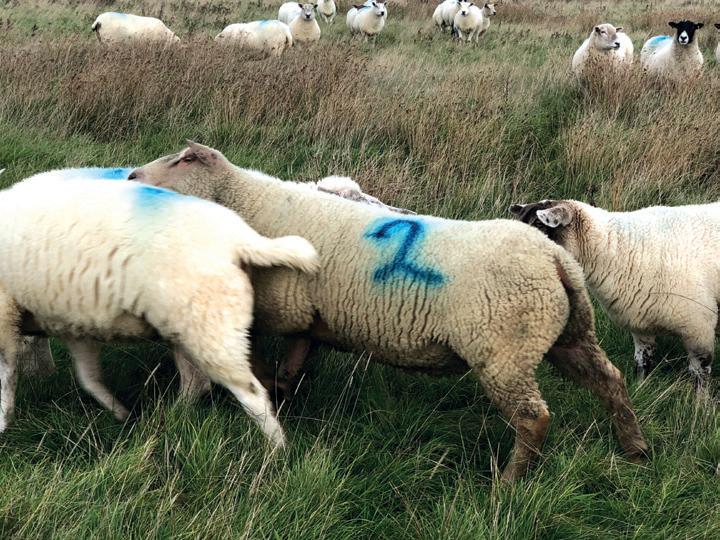
Farming is such fun. I hope you’re all going
to take time to enjoy the festivities over Christmas. If you need some supplies, we’re holding a pop-up sale at Hockham farm from 9am to 1pm on 17 December, selling our beef and Pevensey Blue cheese made by Hazel and Martin using Court Lodge organic milk.

Wishing all readers a happy Christmas.
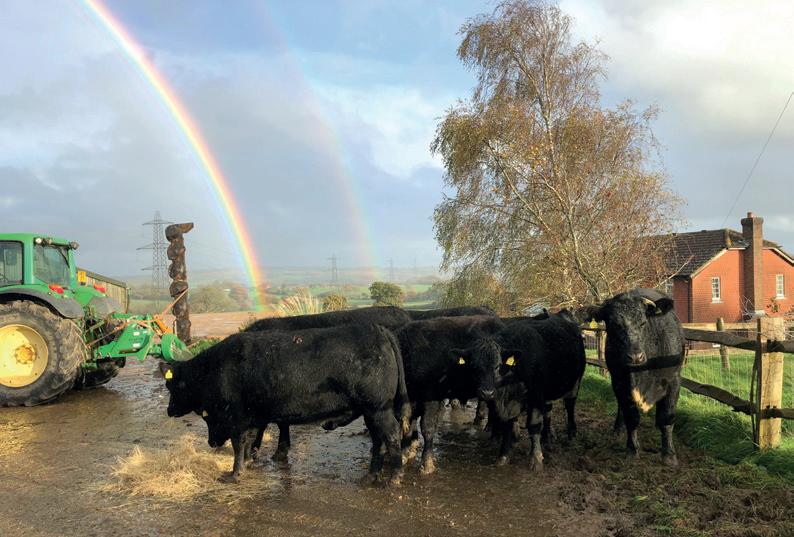
WWW.SOUTHEASTFARMER.NET | DECEMBER 2022 21 TO ADVERTISE CALL 01303 233883
Anna and George doing farm work
The cattle stubbornly refused to go into the shed
Moving the cows
The sheepdog teenagers wearing their rosettes won at the ploughing match
Hedge cutter’s main beam was poorly
Fixing the hedge cutter
Ed and Gemma Lovejoy’s sky-high stress levels following the theft of 116 ewes from their farm were eased significantly when they received a message from their insurer notifying them that they were aware of the theft of their ewes and assuring them that the agency was already looking into the case.
The message, from NFU Mutual Ashford, Tenterden & Whitfield senior partner Doug Jackson, certainly came as a relief to the couple, but it also came as a bit of a surprise, as they had at that early stage not even reported the theft to NFU Mutual.
Doug explained: “I was on our stand at the Romney Marsh Ploughing Match when I heard from a number of farmers about what had happened, and I knew that Ed and Gemma would be devastated at the loss of their sheep and worried about the financial impact on their business.
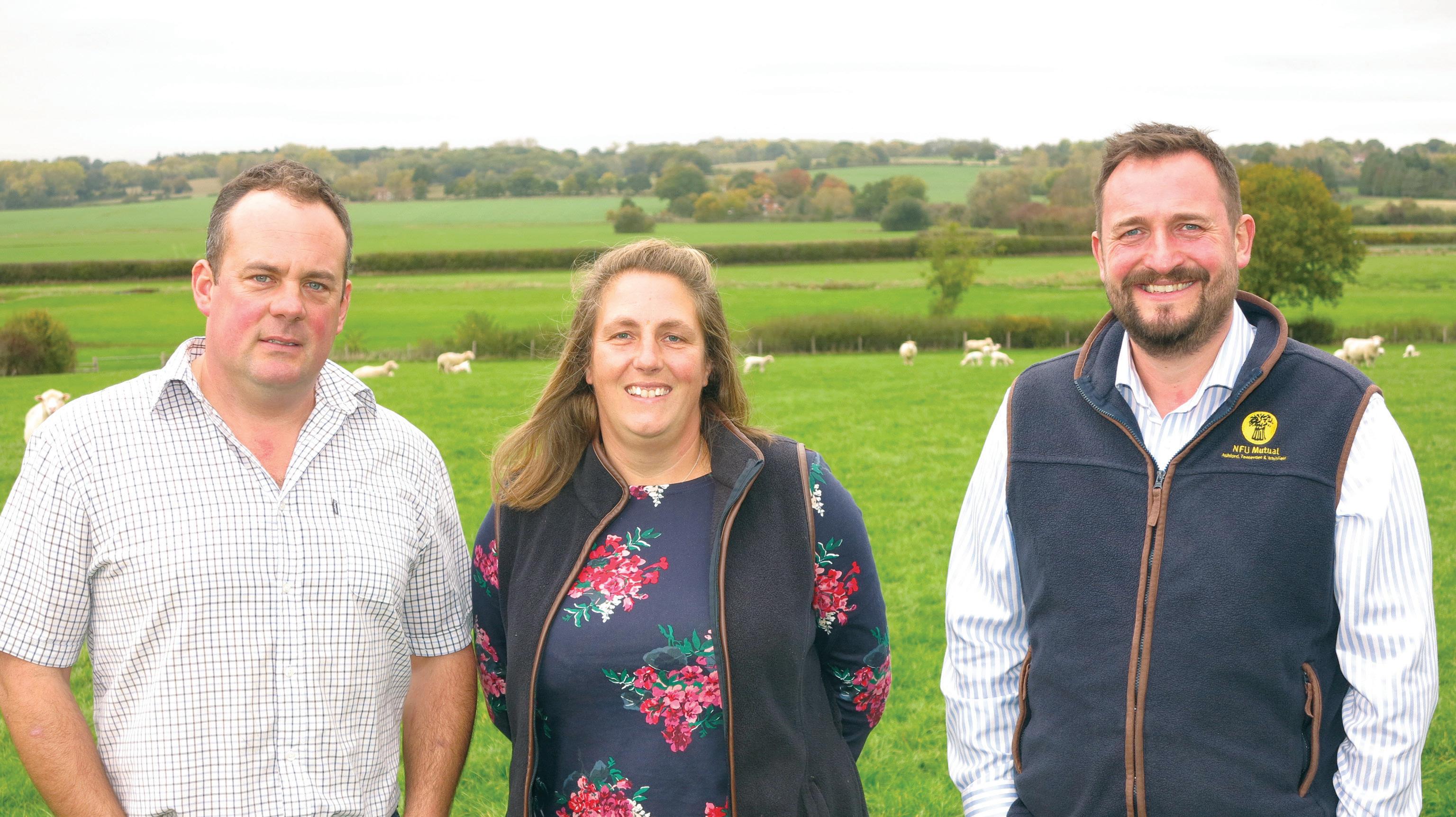
“It was the weekend, so I popped into the office, checked that the Lovejoys’ policy at Hope Farm covered what had happened and sent a quick message saying that we were sad to hear the news, wishing them well and reassuring them that we were ready and waiting to talk to them about their claim.”
The prompt action, and the fact that the agency contacted the
customer rather than waiting to be called, reflects the core message of NFU Mutual Ashford, Tenterden & Whitfield. Its claim – “We don’t just insure the farming and rural community. We are a part of it” – certainly rang true for Ed and Gemma, who farm 700 acres of land in and around Tenterden in Kent.
“We were very relieved to get the text from Doug and it quickly put our mind at rest,” said Ed. “We were sick to the stomach when we realised that the ewes had been stolen, not just because the ewes represented so much time and effort over many generations of breeding our own closed flock, but because we were concerned for their welfare."
“Knowing that Doug had checked out our policy and that we were covered was immensely reassuring, and our claim was handled professionally and promptly,” added Gemma.
Doug, who has known the family in various contexts for many years, had to check that the farm’s policy regarding theft included the unexplained disappearance of livestock, as no trace was ever found of the 115 Romneys and one cross-bred sheep that were stolen from a field of 460 ewes, all clearly marked with a bright green L.
“We had moved them into one 40-acre field ready for tupping a
DECEMBER 2022 | WWW.SOUTHEASTFARMER.NET 22 FINANCE
WITH US, INSURANCE IS PERSONAL. SPEAK TO YOUR LOCAL NFU MUTUAL ASHFORD, TENTERDEN & WHITFIELD AGENCY ON 01233 500 822 OR EMAIL TENTERDEN_AGENCY@NFUMUTUAL.CO.UK D P Jackson, G R Ashby & D M Smith is an appointed representative of The National Farmers Union Mutual Insurance Society Limited (No. 111982). WE DON’T JUST INSURE THE FARMING AND RURAL COMMUNITY. WE ARE A PART OF IT >
and
with
Ed
Gemma Lovejoy
Doug Jackson (right)
month or so later, but when we went to get some of the older ewes out for sale a few days later we found that 116 had gone. It seems to have been a professional job and they probably ended up in the food chain,” said Ed.
“You like to think that your insurance company will respond quickly, but getting in touch with us before we had even contacted them was particularly impressive,” he added. Doug’s quick response meant that a claims adjuster was on site within 24 hours and agreed a payment for the missing sheep two days later.
Doug’s local knowledge and understanding of farming meant he was able to focus on getting the claim settled before the next local sheep sale ‘’I knew the Romney Day sale at Ashford Market was only a few weeks away and I wanted to make sure that if Ed and Gemma wanted to replace the ewes at that sale they would have the cash to do so,” he pointed out.
The couple, who trade as Lovejoy Farm Partnership, run 1,100 ewes in three flocks, cared for by shepherd Will Edmonds, who was said to be “gutted” at the loss. Their pedigree Dorsets are lambing now and the Romneys lamb in March, followed by their commercial Romney crosses a month later.
They also sell hay and straw to the equine market, have a 24-stable livery yard and a small butchery and run a successful caravanning and glamping diversification that benefits from superb views across the fields behind Hope Farm, Wittersham. Most of their land is tenanted and is in four blocks.
The issue of sheep rustling is highlighted in Ready for the Returning Threat, NFU Mutual’s Rural Crime Report 2022.
It points out: “Latest analysis shows that livestock theft cost UK farmers an estimated £2.4m in 2021. Rustling remains one of the costliest thefts to farming, and with the end of Covid-19 lockdowns comes the worry that rustling could rise again. Soaring food prices make rustling a more lucrative crime for criminal gangs and increases the toll each theft has on farmers.”
Doug is the senior of three partners who head up NFU Mutual Ashford, Tenterden & Whitfield, working alongside George Ashby and Darren Smith and supported by a central admin team based at the Invicta Business Centre on the Ashford Market site. Doug and George are also NFU group secretaries, looking after NFU members across Kent and Sussex.
One of the features the agency believes is particularly valuable to its customers is an annual review which allows a member of the team to sit down with larger customers and discuss current insurance needs. It’s something Ed Lovejoy said he found useful.
“It’s really helpful to be able to walk around the farm and look with fresh eyes at what’s valuable, what we need to consider and what perhaps no longer needs to be covered,” he said. “It’s another aspect of the NFU Mutual’s service we value.”
Looking back on the theft and the response from Doug’s team, he added: “We were both very down at the time. Losing livestock isn’t the same as having a quad bike pinched. It was very upsetting, particularly when you think about the amount of work that goes in to a closed flock and the four potential generations lost with each teg.
“The swift, professional response from NFU Mutual Ashford, Tenterden & Whitfield allowed us to start the rebuilding process. They really couldn’t have done any more for us.”
WWW.SOUTHEASTFARMER.NET | DECEMBER 2022 23 TO ADVERTISE CALL 01303 233883 PROMOTIONAL FEATURE
THE NFU MUTUAL ASHFORD, TENTERDEN & WHITFIELD FARMING TEAM
ASHBY FARMING PARTNER & NFU GROUP SECRETARY STUART DOUGHTY SENIOR INSURANCE EXECUTIVE JODIE DANE PRIVATE CLIENT EXECUTIVE BEN GARDINER INSURANCE EXECUTIVE DAN ISARD INSURANCE EXECUTIVE
SUMMERFIELD INSURANCE EXECUTIVE
MEET
GEORGE
JANE
JAMES FARMING AND COMMERCIAL INSURANCE SPECIALIST
CHARLIE
FARM PARTNERSHIP –A RURAL CRIME STORY: TO WATCH ED AND GEMMA SHARE THEIR EXPERIENCE, SCAN THE QR CODE NOW:
LOVEJOY
SHOW-STOPPING BRAMLEY “AN OLYMPIAN ACHIEVEMENT”
Celebrations surrounding the high quality of British top fruit were tempered by concerns around the challenges facing the industry as the 89th National Fruit Show opened its doors.
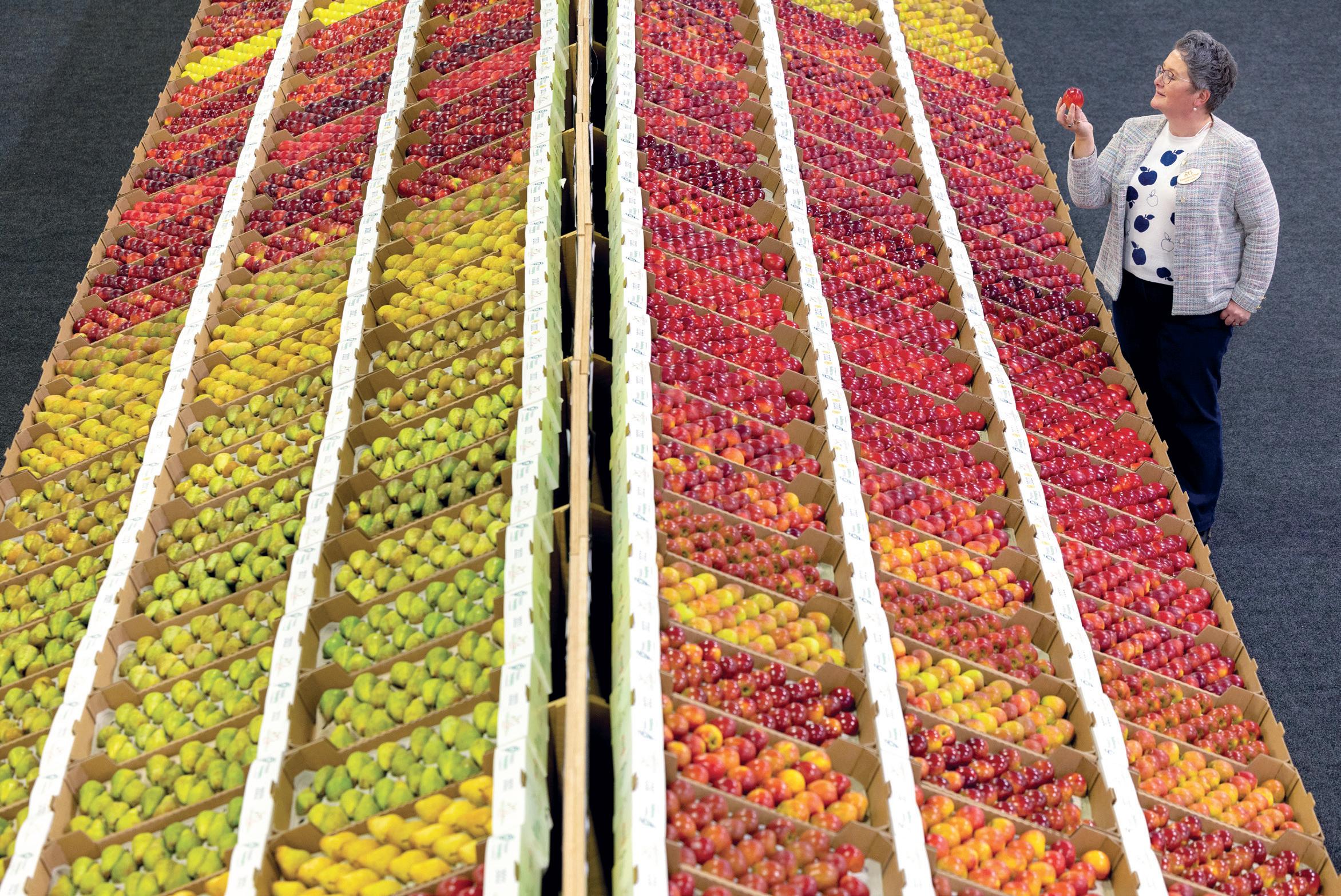
While praising the superb fruit on display in the central aisle at the event, held at the Kent County Showground at Detling, executive chair Sarah Calcutt warned that rising costs coupled with prices that were stagnant at best were forcing growers to leave the industry.
She said orchards were being left unpicked because high electricity prices meant growers could not afford to store fruit and said some businesses were losing money, selling apples for less than the cost of growing and picking them.
Sarah highlighted the irony that while
growers were leaving fruit on the trees, supermarkets were for the most part only selling 50% British apples, with the rest being shipped thousands of miles from overseas at a major cost to the environment.
“How does that work?” she asked.
Referring to the UK’s “broken food system”, she said that while costs had risen dramatically and the industry faced the additional problem of labour shortages, buyers were pushing prices down, in part because the cost-of-living crisis meant consumers could not afford to pay more.
“There is a real disconnect here,” Sarah said. “The industry is under threat if no-one is making any money.”
Theresa Wickham, president of the Marden Fruit Show Society, which organises the show, suggested that consumers should
be encouraged to pressure supermarkets into stocking more British fruit – and asked why supermarkets put new season locally grown apples on promotion. Given their quality, they should be sold at a premium price, not a discount, she argued.
It was Richard Edmed who came out on top in the show itself, picking up no fewer than 11 prizes and winning the overall prize for his Bramleys. Growing a show-stopping Bramley in such a hot, dry summer had been “an Olympian achievement,” said Sarah.
The Alfred Shread Cup, just one of the many he won on the day, was presented to Richard by Her Royal Highness The Countess of Wessex, who formally opened the show by spending the morning touring the exhibits and staying to lunch with VIP guests.
The countess, who is president of Linking
DECEMBER 2022 | WWW.SOUTHEASTFARMER.NET 24 NATIONAL
FRUIT SHOW REVIEW
Sarah Calcutt inspects this year's apples
Environment and Farming (LEAF), also observed The National Fruit Show’s education team during a demonstration careers session with local secondary school age children.
During an impressive, note-free opening speech, she joked: “I’m trying to resist the temptation to destroy the display by eating some of these magnificent apples”, adding that she knew how much the show represented “the culmination of a huge amount of work” by the growers. The apples and pears on display were “the jewels in our countryside crown,” she added.
The countess also paid tribute to “trailblazer Theresa” Wickham, for whom the 2022 show marked her last as president of the society.
Other notable entries in the show came from Mallions, Clock House Farm and the Starkey family from Northampton, entering for the first time.
Executive chair Sarah Calcutt said the fruit show society had been “absolutely delighted that Her Royal Highness had been able to attend the show." Referring to the countess’ support for the career session, she explained: “We are keen to raise the profile of the fruit growing sector here in the UK and in particular to expand our successful careers programme, sponsored by AC Goatham & Son, Avalon Produce Ltd and One Pay.

“We are sharing the message that there are a range of highly skilled careers opportunities in the sector seeking talented individuals. Within horticulture there are many exciting, technology driven developments taking place and we are working to bring together fruit growers and the businesses that supply them to create a world leading, stronger and more sustainable sector for the future.
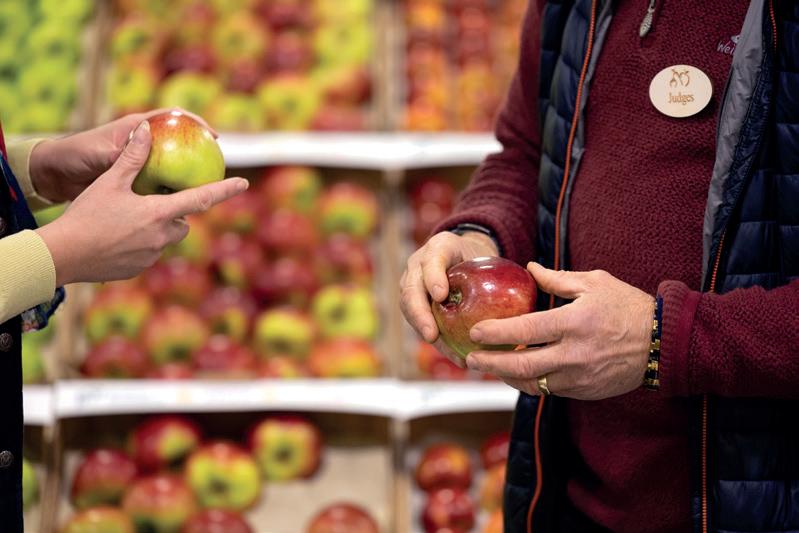
“Horticulture is a sector which I believe has been overlooked by schools’ careers advisers in recent years and we aim, through access to better education, to dispel the myths about working within it. Our longerterm aim is also to include apprenticeship placements and internships for those considering a career in the sector, meaning we support education from healthy eating for pre-school children all the way up to graduate level.”
The National Fruit Show is sponsored by BASF, Hutchinsons, N P Seymour Ltd, Worldwide Fruit, UKCA Ltd and Isolcell.
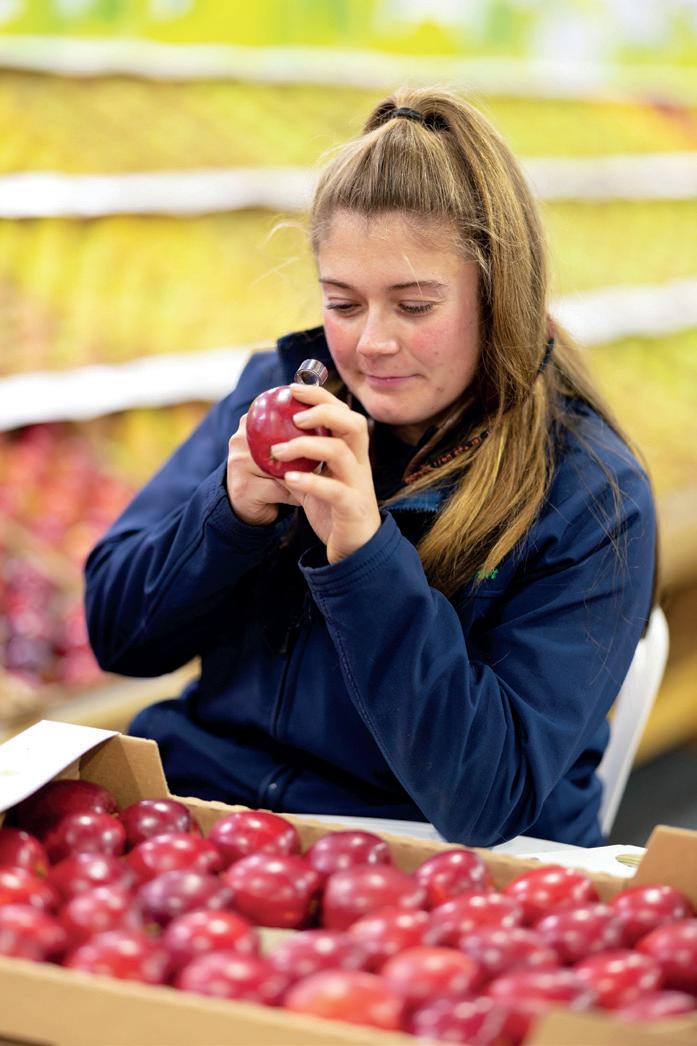
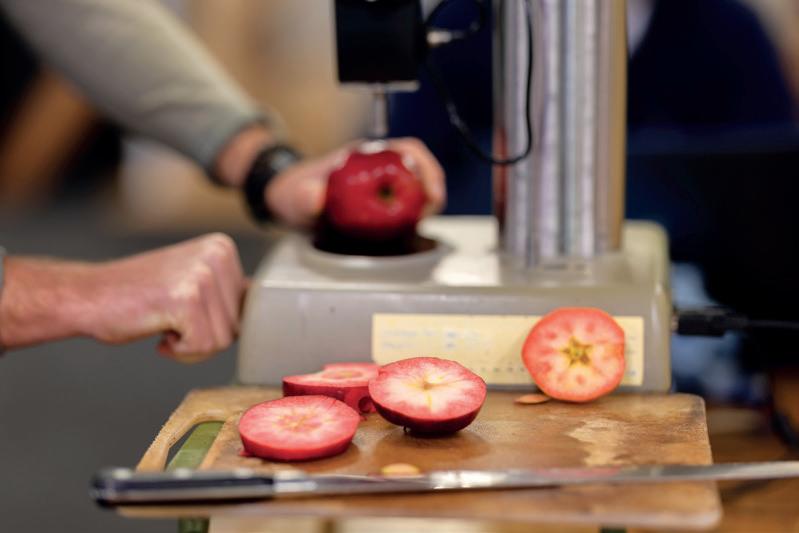

WWW.SOUTHEASTFARMER.NET | DECEMBER 2022 25 TO ADVERTISE CALL 01303 233883
The Countess of Wessex opened the show
NATIONAL FRUIT SHOW REVIEW
CLIVE & RICHARD EDMED
• Alfred Shread Cup for Bramley in Class 1
• The Twyman Prize for Bramley presented by Agrii
• The Cornwallis Cup for Cameo
• The Avalon Fresh Ltd prize for Cameo
• NFU South East Award for the Best Exhibit of Apples or Pears in the Show
• The Roderic Sarson Memorial Trophy for the Best All Round Exhibit of Apples
• Podger Norton Trophy for the Best Exhibit of Culinary Apples

• Fruiterers Company Medal for the Best Exhibit of Culinary Apples
• Fyffes Salver for the Best Exhibit of Bramley
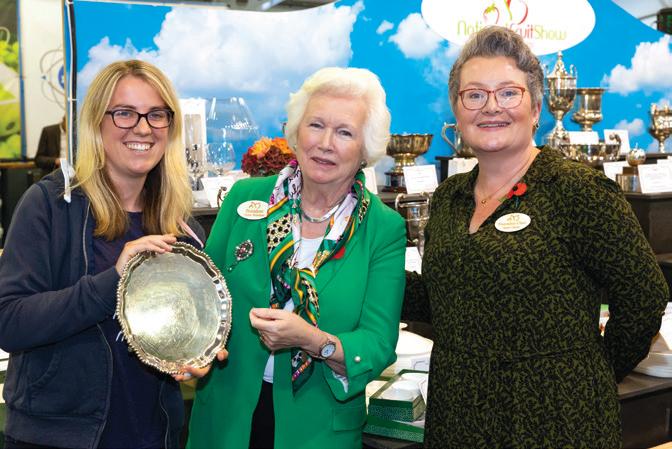
• Dan Wuille Cup for best colour and skin quality for the variety in the culinary apple classes
BARDSLEY HORTICULTURE LTD

























• Squire Salver for Bramley in Class 2


• The Avalon Fresh Ltd Prize for Bramley
MALLIONS
• Dufaylite Developments Cup for Culinary Apples
• The Wealden AM Prize for AOV Culinary Apples
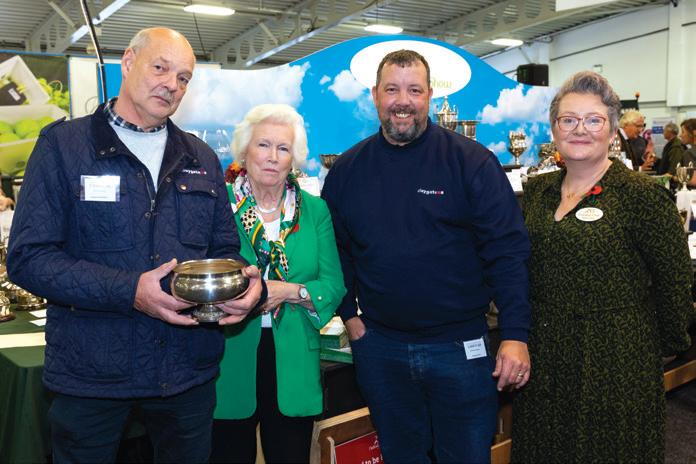
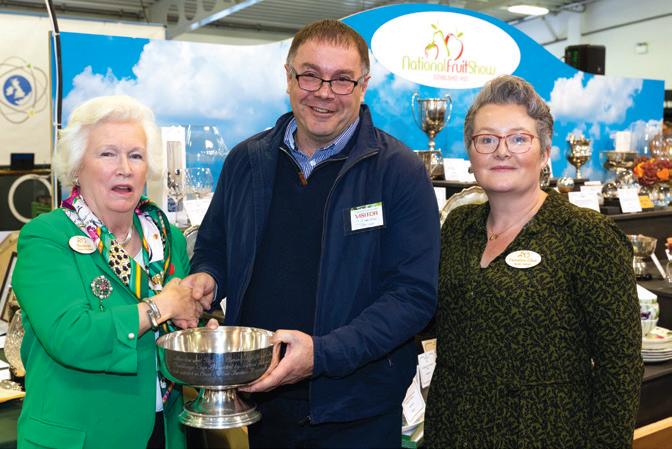
• The Systhane Cup for Cox’s Orange Pippin or any sport of Cox
• The Landseer Ltd Prize for Cox’s Orange Pippin or any sport of Cox
• Pask Cornish & Smart Cup for Gala or any sport

• The Greencell Prize for Gala or any sport
• Foreman Salver for Russets
• The Fruit Grower Prize for Russets
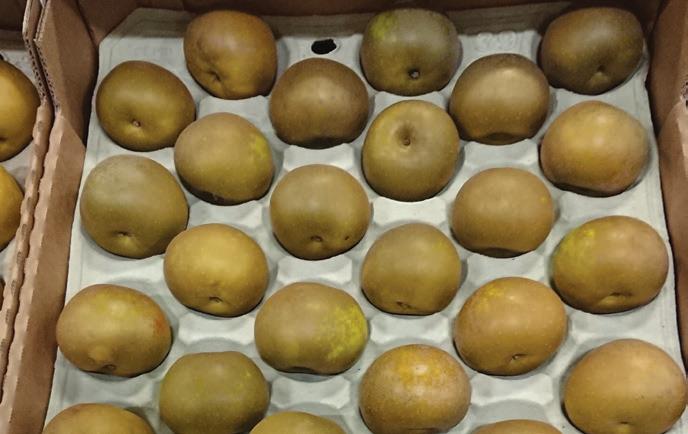
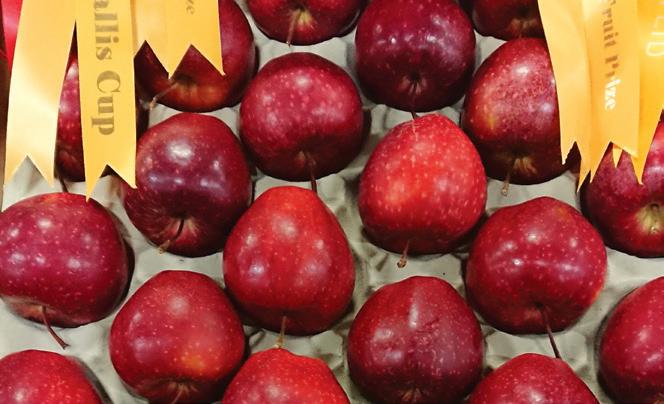
• WASP Bin Trophy for Braeburn or any sport

• Worldwide Fruit Prize for Braeburn or any sport


• George Harlow Cup for AOV Dessert Apple
• Invicta Petroleum Shield for AOV Dessert Apple
• New Spitalfields Market Prize for AOV Dessert Apple
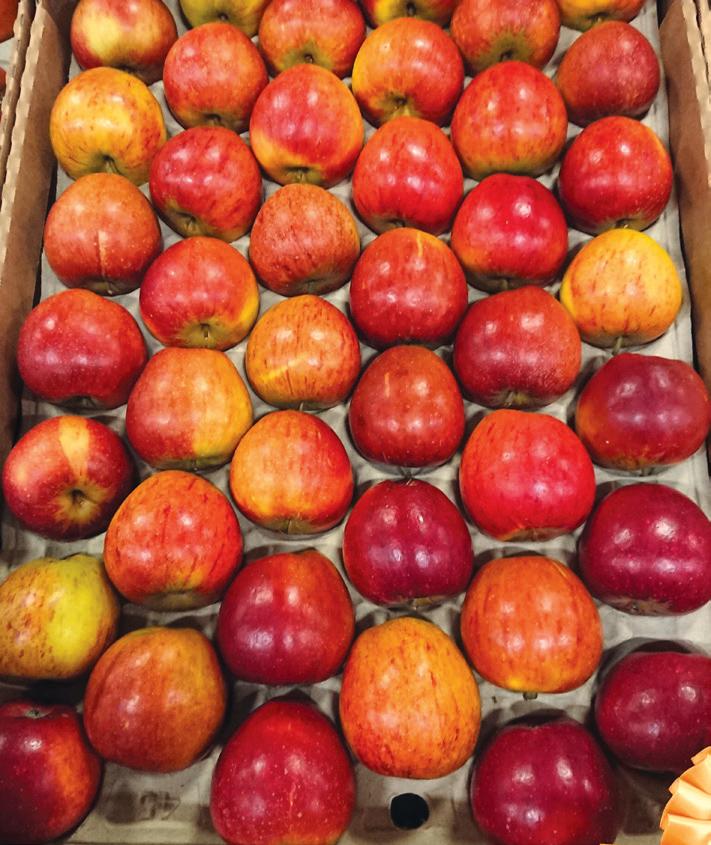
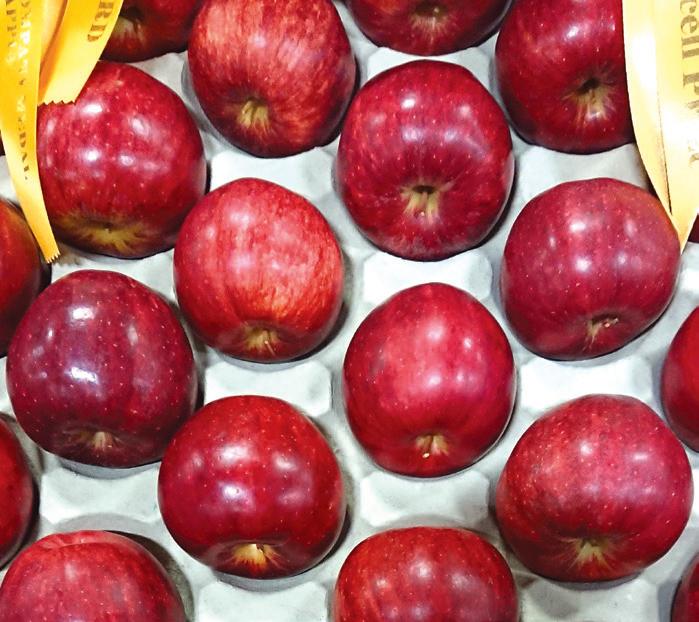



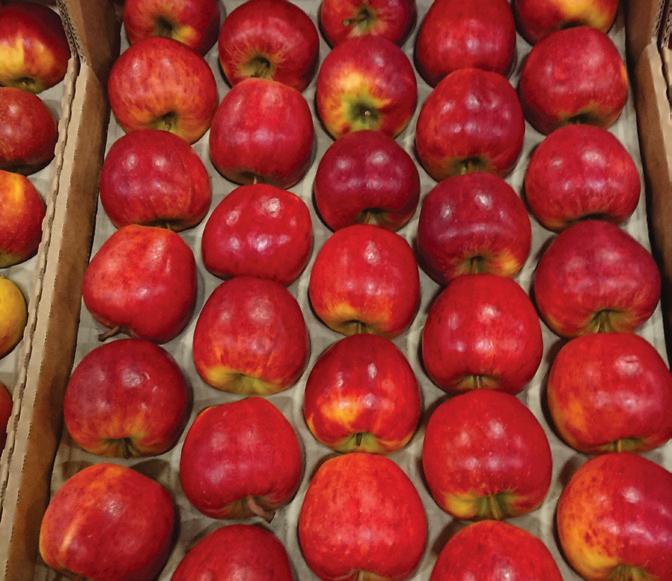
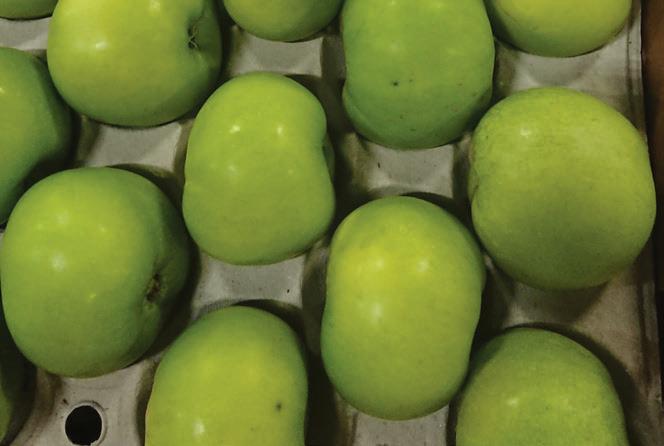
• UKF Fertilisers Cup for the Best Cox’s Orange Pippin or any sport in classes 4,5, 18
• Winch Memorial Challenge Cup for the highest number of points for Weald of Kent exhibits in all classes
• Fiennes Cornwallis Trophy for the exhibitor gaining the highest number of points in all classes
CLAYGATE FARMS
• Vernon Hayes (Seeds) Challenge Cup for Cox’s Orange Pippin or any Cox sport
• Bayer CropScience Prize for Cox’s Orange Pippin or any Cox sport
• The John Acock Memorial Rosebowl for the exhibitor with most points in culinary classes
•
•
DECEMBER 2022 | WWW.SOUTHEASTFARMER.NET 26
G CHARLTON & SONS
A R Pillar Challenge Cup for Rubens
The Avalon Fresh Ltd Prize for Rubens
UNIQUE SHOWCASE FOR THE BEST OF BRITISH TOP FRUIT
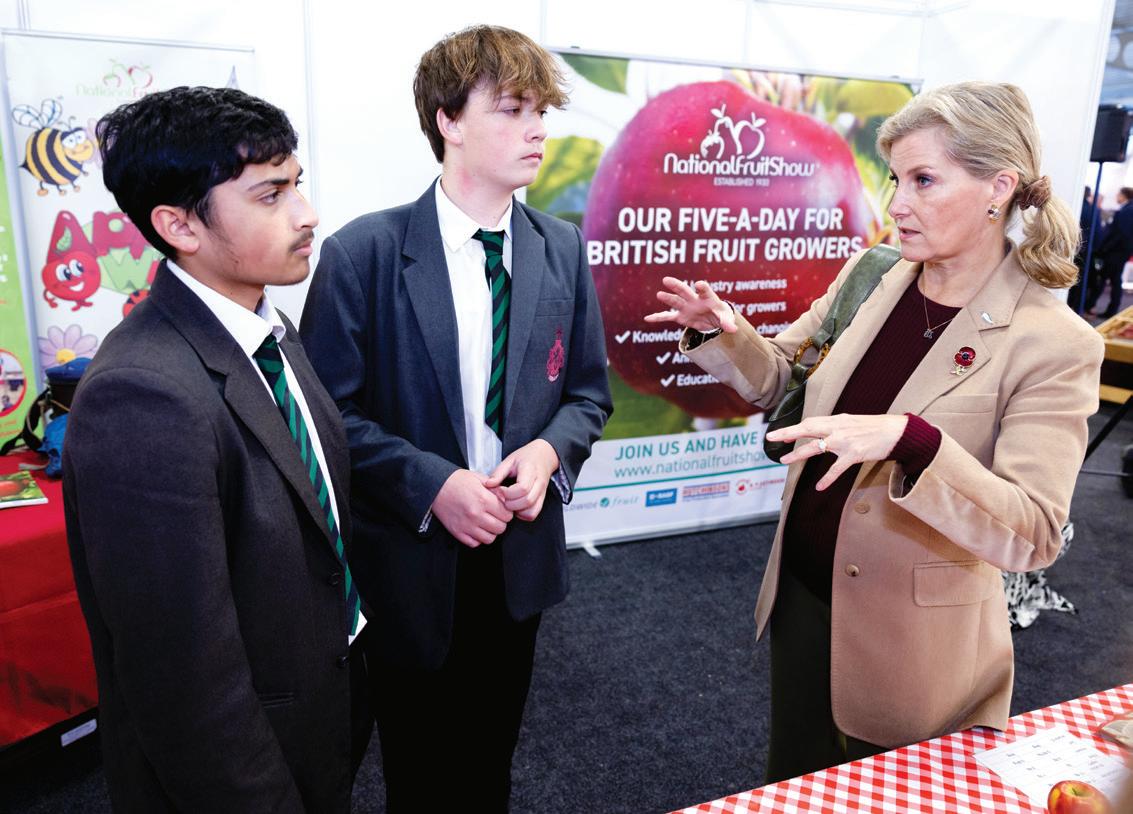
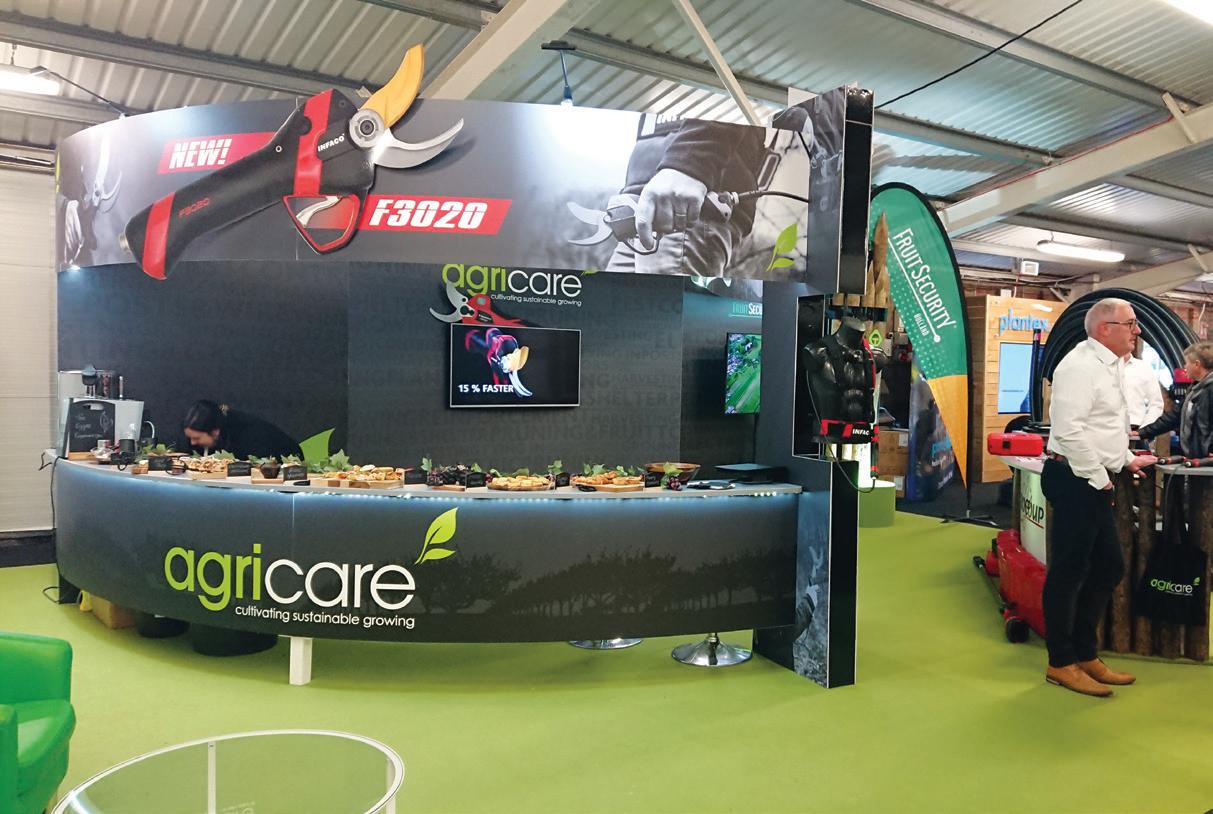
The first ever fruit show was a distinctly marketing-led event. Executive chair of the show Sarah Calcutt told journalists at this year’s event that local growers had put on a display of their finest produce and invited the buyer from Selfridges in London down to Kent to sample it. “They also treated him to a nice lunch before putting him back on the train,” she added.
The 89th iteration of the show, now organised by the Marden Fruit Show Society, was similarly impressive and would have persuaded the most nitpicking of supermarket buyers that British apples and
pears are simply the best available.
While the displays represent hours of work by growers in selecting, polishing and presenting their best produce, the rankings are the result of similarly painstaking work by an army of judges who examine the fruit in minute detail to make sure that the rosettes and trophies are presented to the right people.
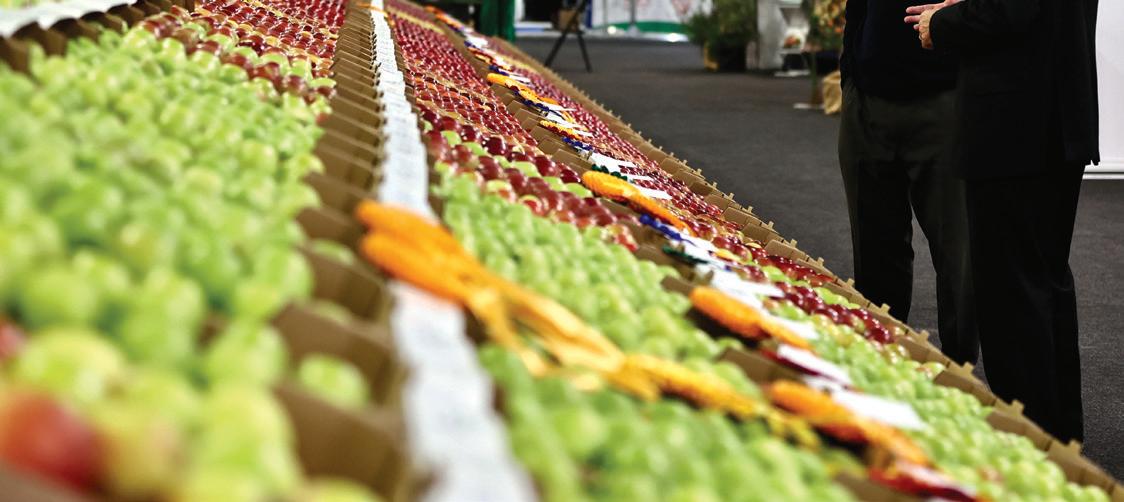
One of this year’s judges, Agrii agronomist Gary Saunders, said he had been impressed once again with the quality of the fruit on display.
“I think it’s generally been an above average year, with some very high-quality
entries,” he said. “There’s no real evidence that the weather caused any quality issues, apart from a little bit of frost damage on some of the fruit.”
Gary said the show acted as a unique showcase for the best of British top fruit and felt that the industry should do more to highlight the variety of fruit available.
“The educational outreach being done by the Fruit Show committee is really valuable, but as I understand it there is a waiting list of schools wanting to take advantage of it. It would be good to see more resources put into that kind of work to encourage more people to buy home-grown fruit,” he added.
BRAMLEYS JUDGED OVERALL WINNER
David Banfield knew the apples he selected and displayed for Richard Edmed were winners – and he was proved right when the judges selected ‘his’ Bramleys as the overall winner at this year’s National Fruit Show.
It’s true to say that David, who ran Banfield’s Farm at Horsmonden with his wife Rita until he passed it on to the younger generation in the shape of Polly Banfield and Derek Larkin, knows his onions, or in this case, apples.
Having farmed all his life, the nearly 90 year-old has been showing fruit for the past 40 years, first displaying produce for the Edmeds a decade ago.
“I was helping another grower at the time when I bumped into Clive Edmed, who said he’d love to enter the show but didn’t have the time to
display his fruit,” he recalled. “I said I’d do it for him, and in the first year we won all the prizes in the novice classes. I’ve done it for him every year since then.
“I knew the Bramleys I picked this year were good and it was rewarding to see that they picked up the top prize,” he added.
WWW.SOUTHEASTFARMER.NET | DECEMBER 2022 27 TO ADVERTISE CALL 01303 233883
StandOverall
Best
NATIONAL FRUIT SHOW REVIEW
ELVERTON FARMS LTD
• Horticultural Containers Wine Goblets for Pears, Novice Class
• The Richard Hochfeld Prize for Pears, Novice Class
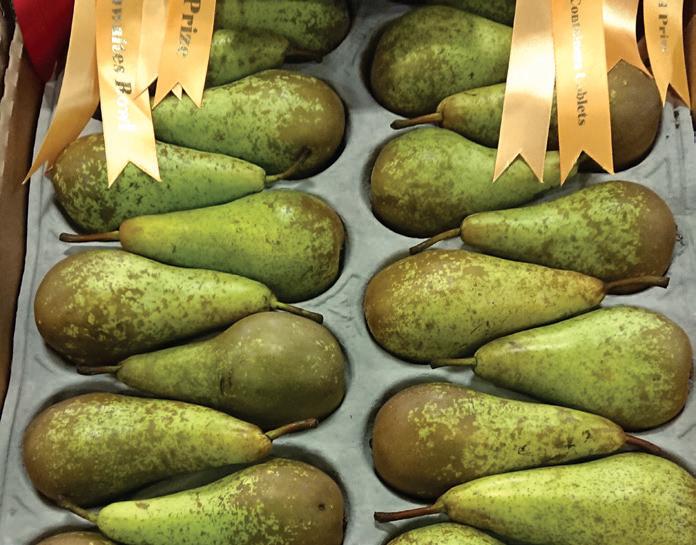
• John Thwaites Bowl for highest number of points in all classes to Kent exhibitor north of the M20
• BIFGA Prize for the exhibitor gaining most points entered by a BIFGA member
KATIE LANGRIDGE
• A C Goatham & Son Memorial Trophy for Bramley Exhibitor under 40



• A C Goatham & Son Prize for Bramley Exhibitor under 40





























• The David Burd Memorial Trophy for the entrant gaining most points in classes 18/19/20/21 (total)
A C GOATHAM & SON
• JP Fruit Distributors Cup for the Best Cox’s Orange Pippin or any sport in class 20

BRAISEWORTH ORCHARDS
• Agrovista Regional Champions Cup for the grower with the most points from the Eastern Counties
CHARNEE BUTCHER
• The Western International Market Shield for Dessert Apples, Exhibitor under the age of 40
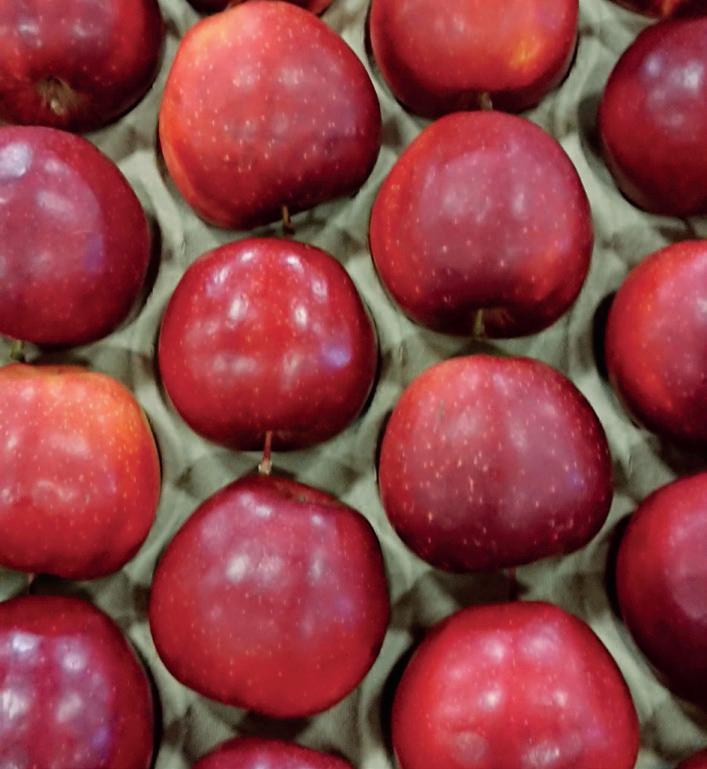
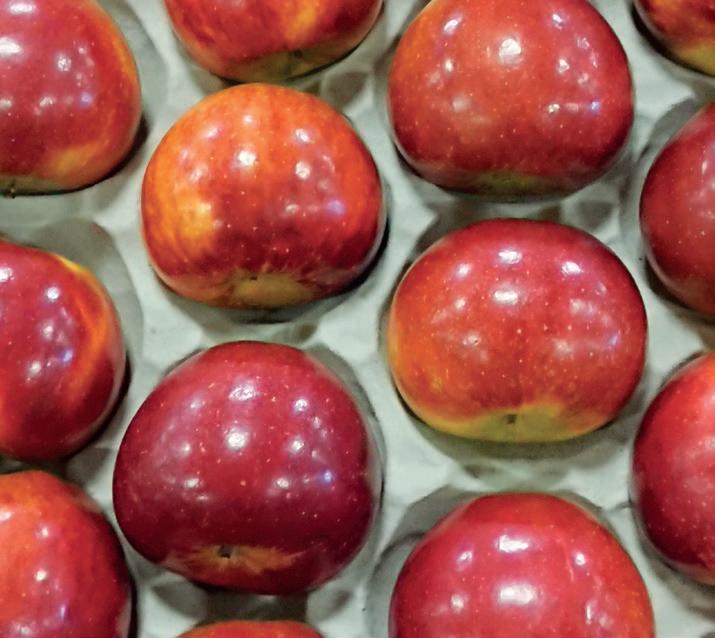
• The Sue Daly Novice Trophy
• The Haynes Agricultural (Kent) Ltd Prize for Dessert Apples, Exhibitor under the age of 40
• W Bruce Challenge Cup for the Best Exhibit of Dessert Apples excluding Cox and sports in class 20
J MYATT & CO



• F Edmed & Sons Prize for Raspberries

• CPM Ltd Trophy for Best Overall Entry of Raspberries

G J Cobnut Products
• The Marden Fruit Show Society Prize for Kentish Cobnuts
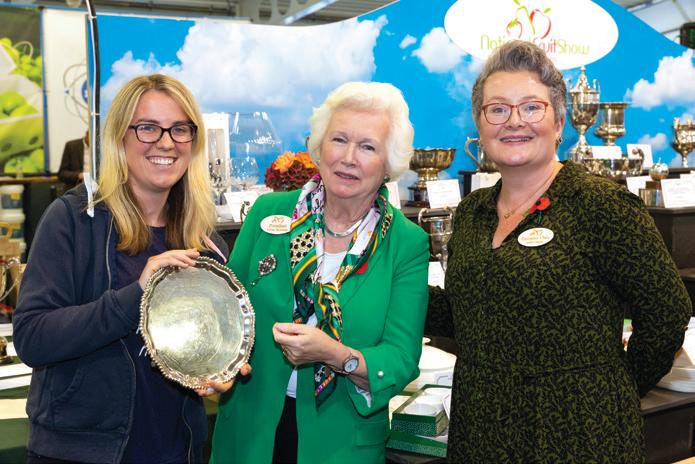
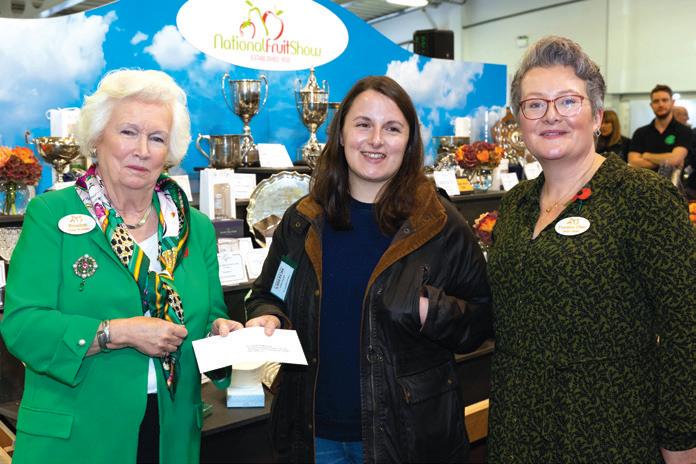
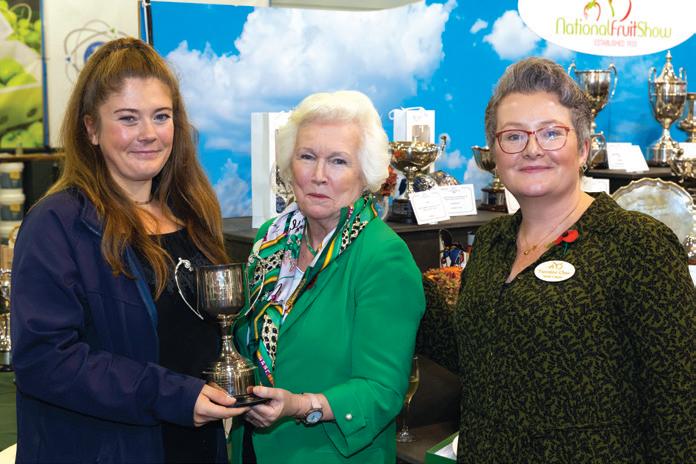
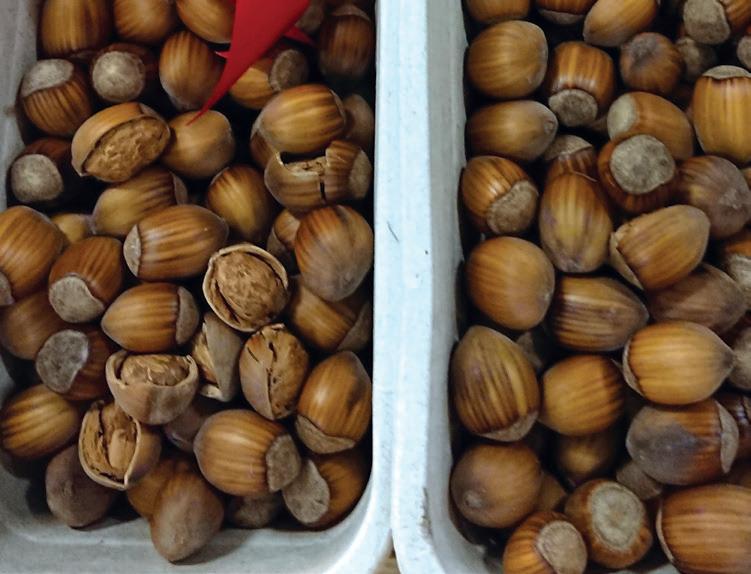
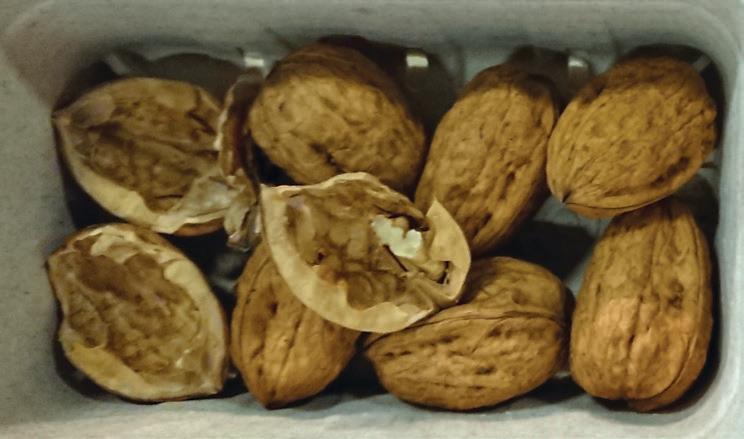
• The Marden Fruit Show Society Prize for AOV Cobnuts
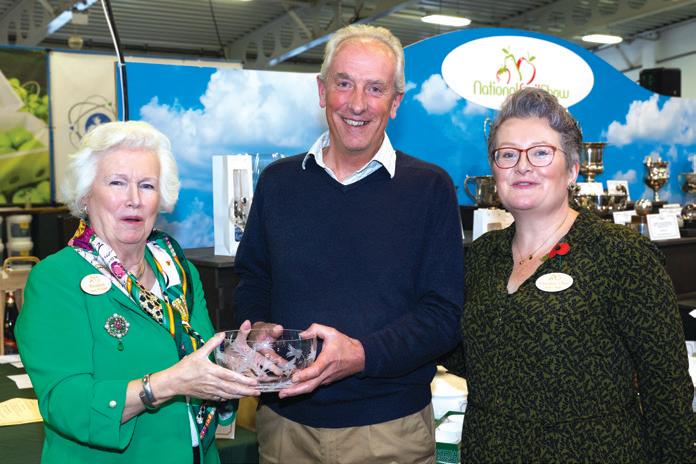
• The John Bardsley Tankard for Best Entry of Cobnuts
NEW FOREST FRUIT COMPANY
• BerryGardens Prize for Strawberries
• The Joan Buttfield Trophy for the Best Overall entry of Strawberries
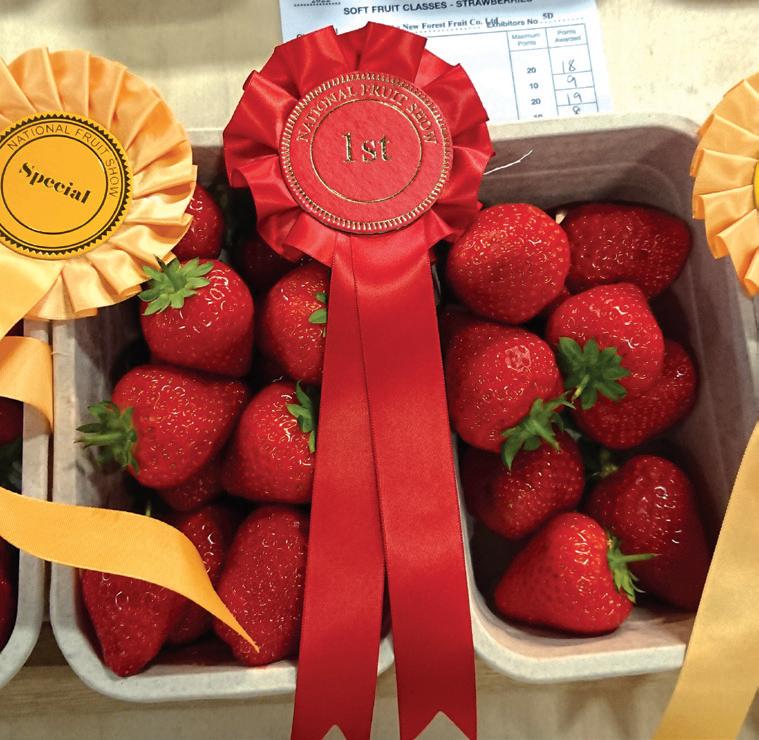
BRICE WALNUTS
• The Bennett Opie Prize for Walnuts
DECEMBER 2022 | WWW.SOUTHEASTFARMER.NET 28
Alongside the magnificent display of top fruit, soft fruits and nuts, the National Fruit Show again attracted a wide range of trade stands and a variety of talks and debates aimed at inspiring discussion among growers and other industry representatives.
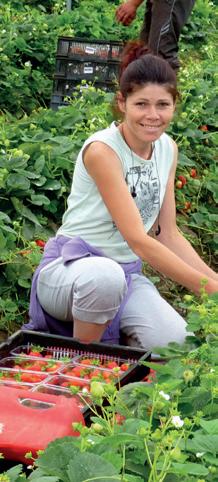


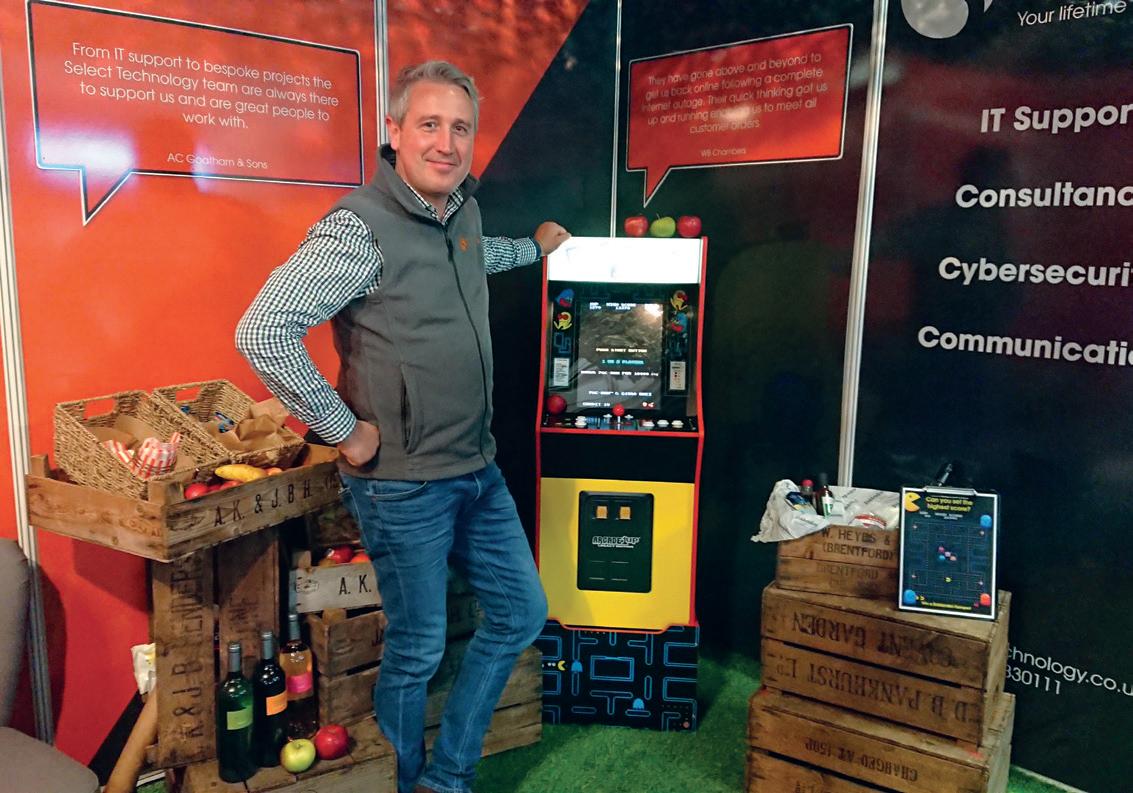
Broadcaster and writer Tom Heap was among those lending a celebrity sparkle to this year’s show, the 89th organised by the Marden Fruit Show Society.
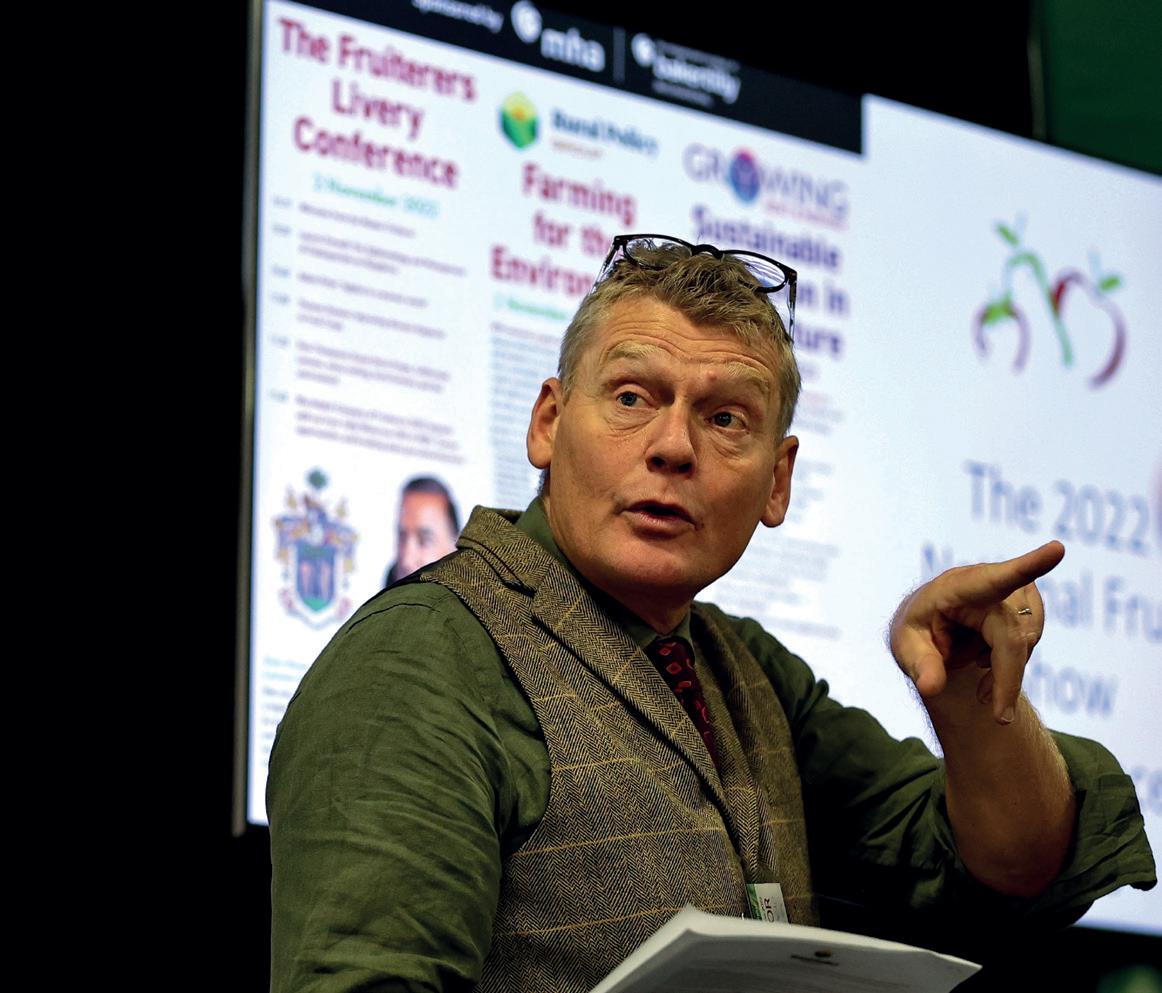
Tom was invited to chair a debate on Farming for the Environment, another in the series of Rural Policy Group Red Talks sponsored by MHA. He was joined by Emily O’Brien, Food and Agriculture Spokesperson for The Green Party, Clarke Willis MBE, director of the Norfolk Food Enterprise Park, Philippe Binard, secretary general of The World Apple and Pear Association, Dr Trisha Toop, chief technical offficer with Agri-Epi, and Sarah Dodds, Joe Spencer and Jose De Mayne Hopkins from MHA.
Sponsors MHA said the panel had addressed the rapidly changing landscape of technical support for the whole fruit sector, examining a number of initiatives and how they were addressing labour, quality and environmental concerns.
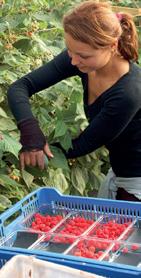
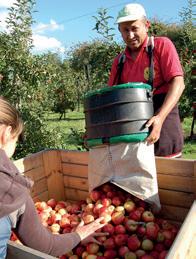
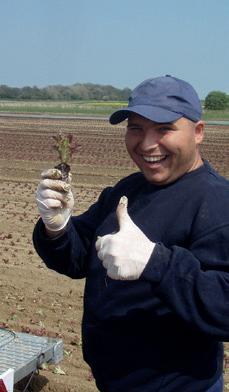
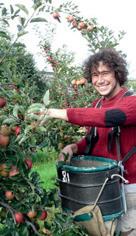
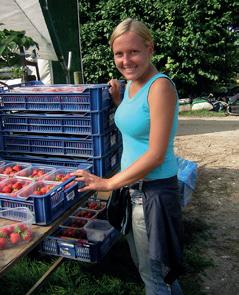
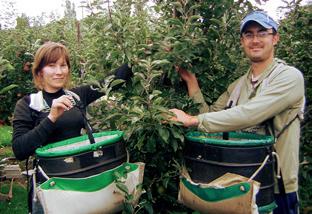
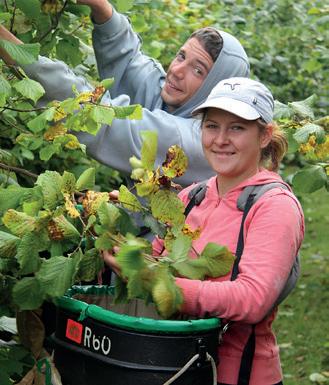
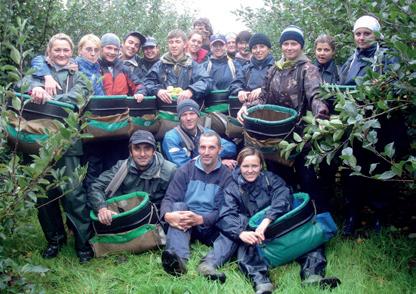
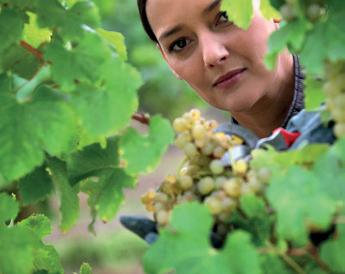
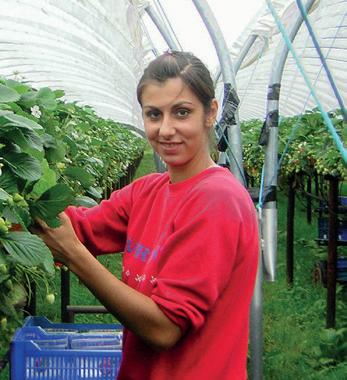

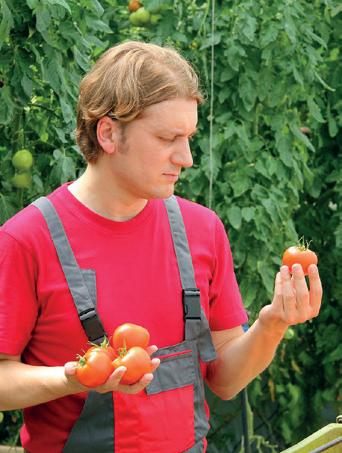
Sarah Calcutt, executive chair of the National Fruit Show, said she was “delighted” that the broadcaster had not only visited the show but chaired an important, industry wide debate on “one of the key challenges for all involved in horticulture and farming”.


The two days of the show also featured a full programme of wellattended technical talks organised by Growing Kent & Medway and the Worshipful Company of Fruiterers, while VIP visitors included The Right Reverend The Bishop of Dover, Rose Hudson-Wilkin, and representatives from DEFRA.
Best Machinery Stand

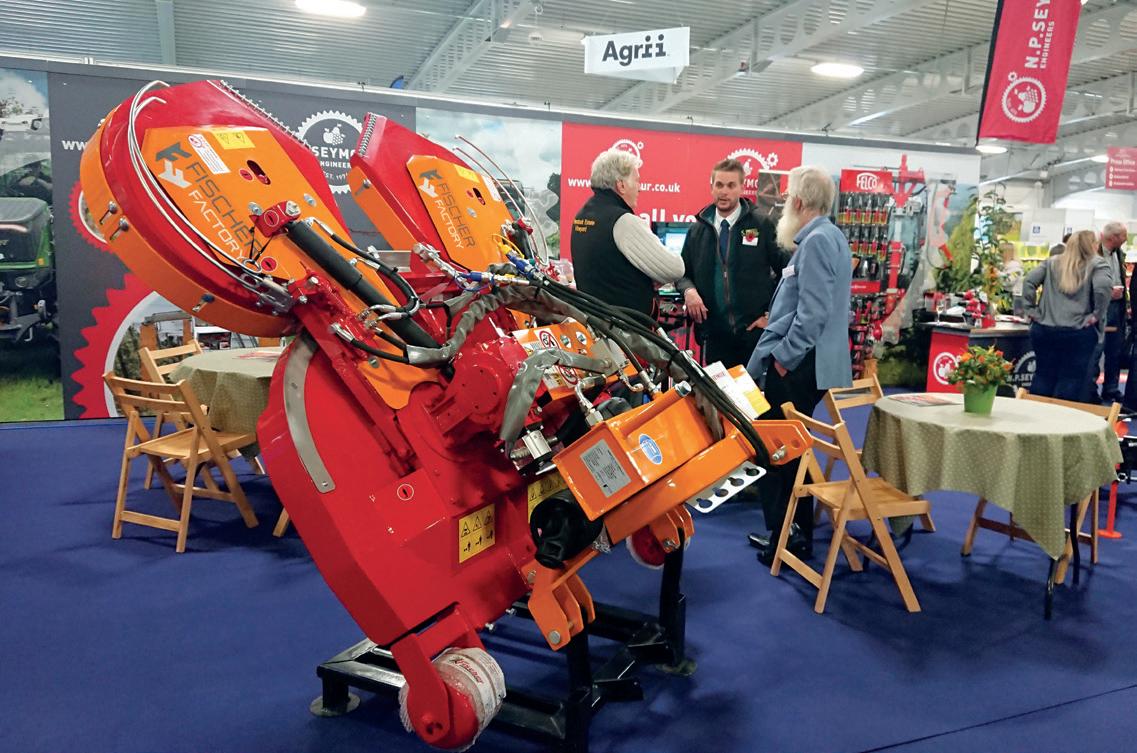
WWW.SOUTHEASTFARMER.NET | DECEMBER 2022 29 TO ADVERTISE CALL 01303 233883
Best Shell Scheme
CELEBRITY SPARKLE
Better people Best placed SEASONAL LABOUR PLACEMENT agrecruitment.eu|01227 806 789
Tom Heap
NATIONAL FRUIT SHOW REVIEW
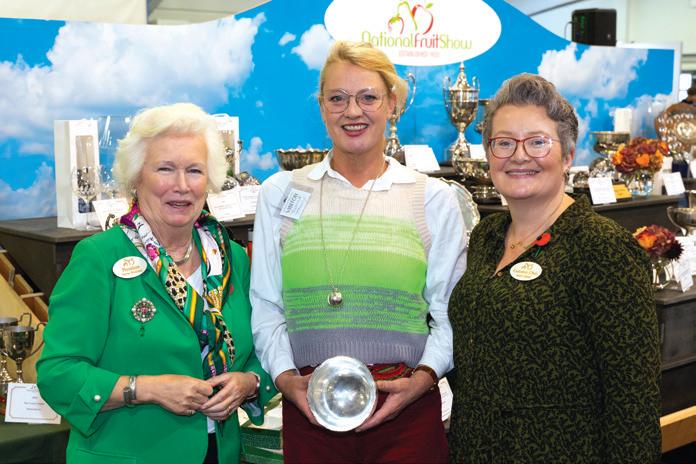
CLOCK HOUSE FARM LTD
• Fuller Water Systems Trophy for Jazz



• Worldwide Fruit Prize for Jazz
• Stokes Bomford Rose Bowl for the Best Exhibit of Dessert Apples
• Fruiterers Company Medal for the Best Exhibit of Dessert Apples
• R Mitchell Challenge Cup for the best exhibit of any dessert apple introduced in the UK after 2000
• The East Malling Trust Prize for Blackberries
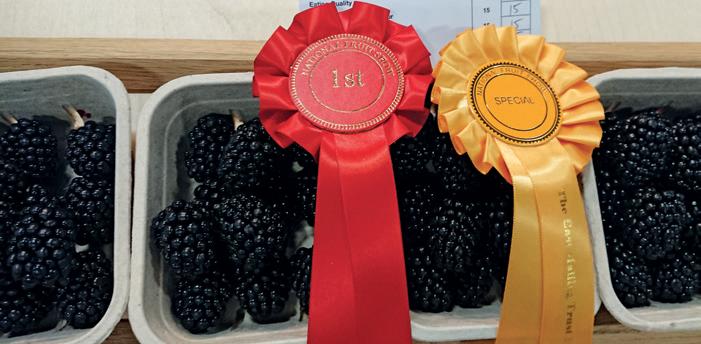
• The Bloomfields Prize for the best overall entry of blackberries
BRIAN PIPER PARTNERSHIP
• The Ernest White Cup for Comice Pears
• The Richard Hochfeld Ltd Prize for Comice Pears

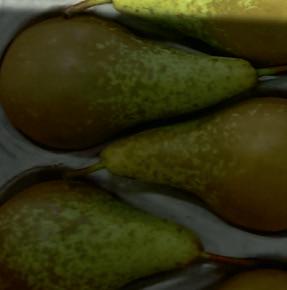
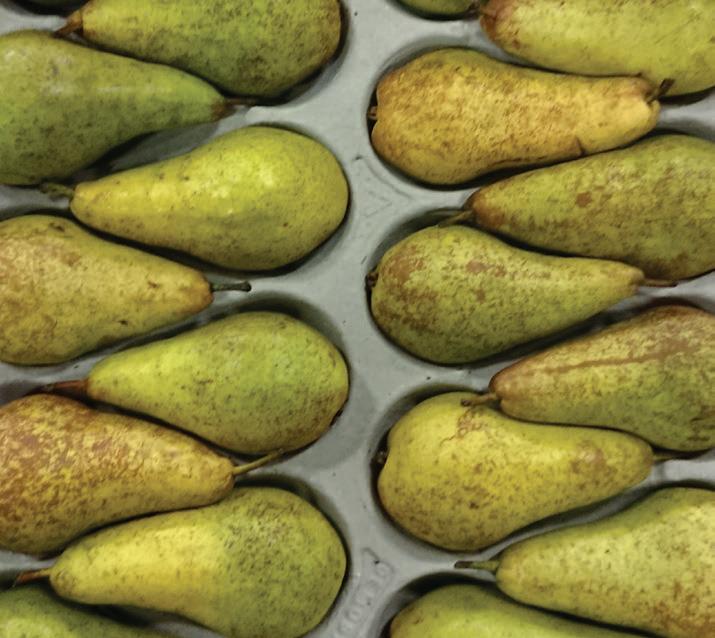
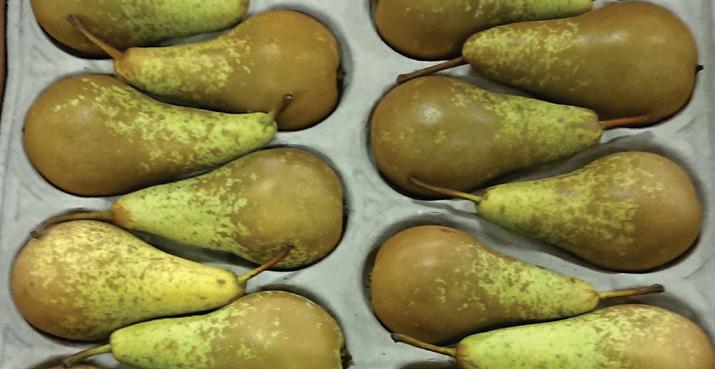
• AMG Trophy for Conference Pears
• The Azets Ltd Prize for Conference Pears




• The Cantagrians Cup for the best exhibit by an ex student of KFI or KHI
BANFIELDS
• East Kent Packers Cup for Concorde Pears
• The Marden Fruit Show Society Prize for Concorde Pears
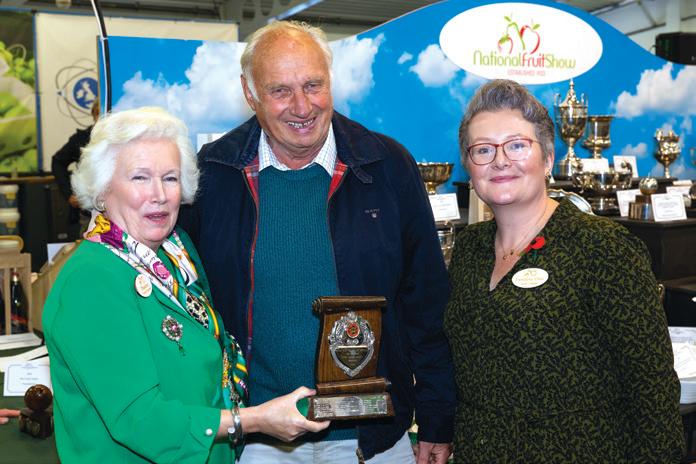
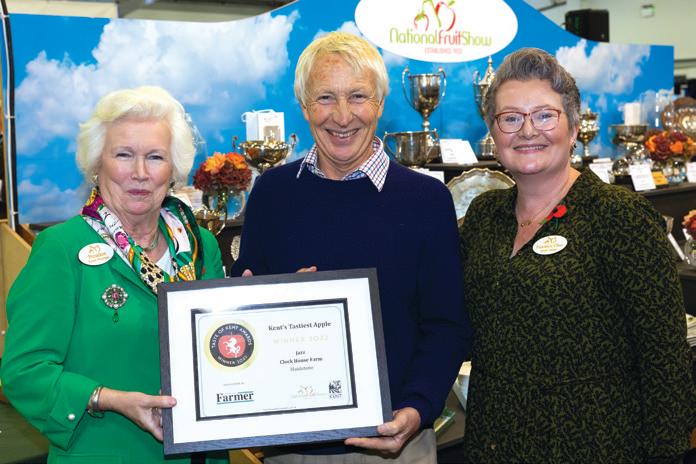
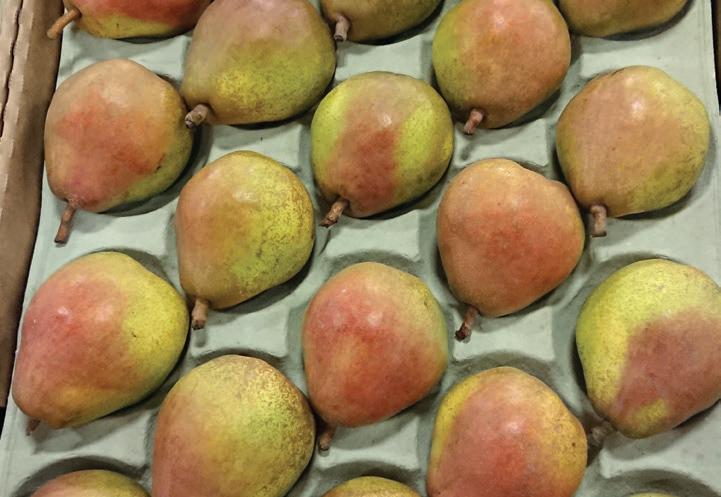
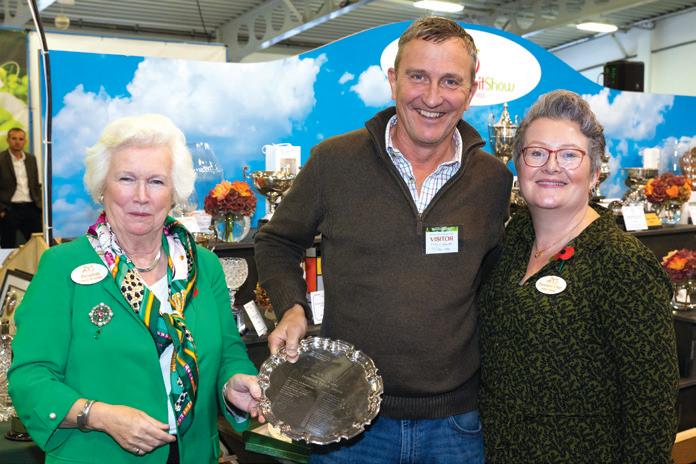
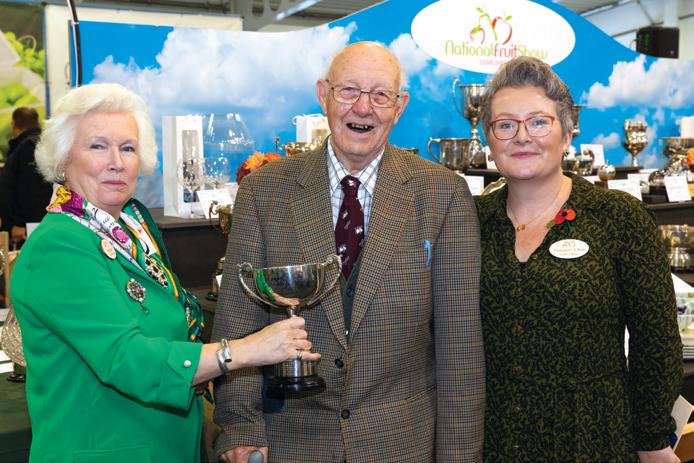
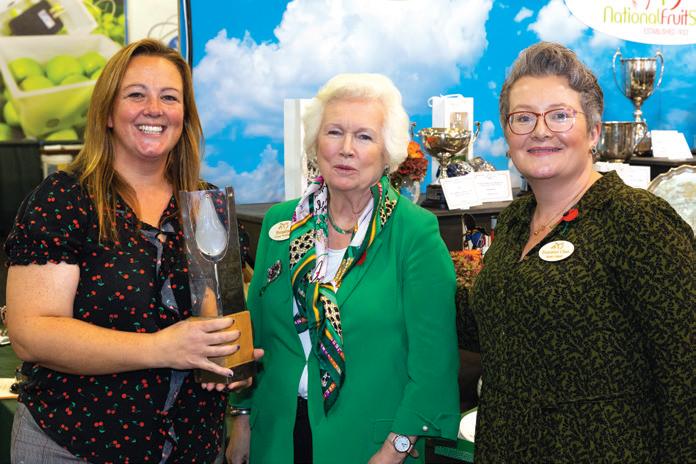
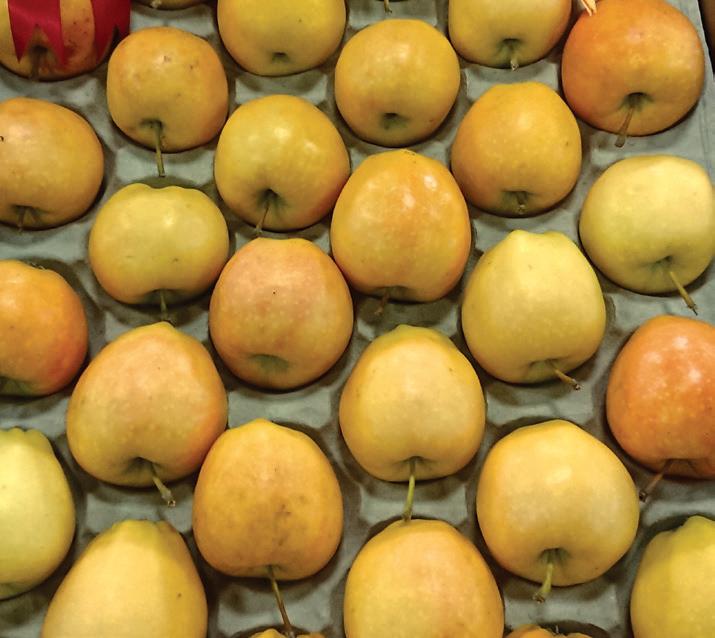
• Bayer Rose Bowl for the Best Exhibit of Pears
• The Fruiterers Company Medal for the Best Exhibit of Pears


STARKEY’S FRUIT LTD

































• Henshall Rose Bowl for Dessert Apples, Novice Class • F P Matthews Prize for Dessert Apples, Novice Class • John Henshall Salver for the best exhibit of any dessert apple grown in UK outside Kent


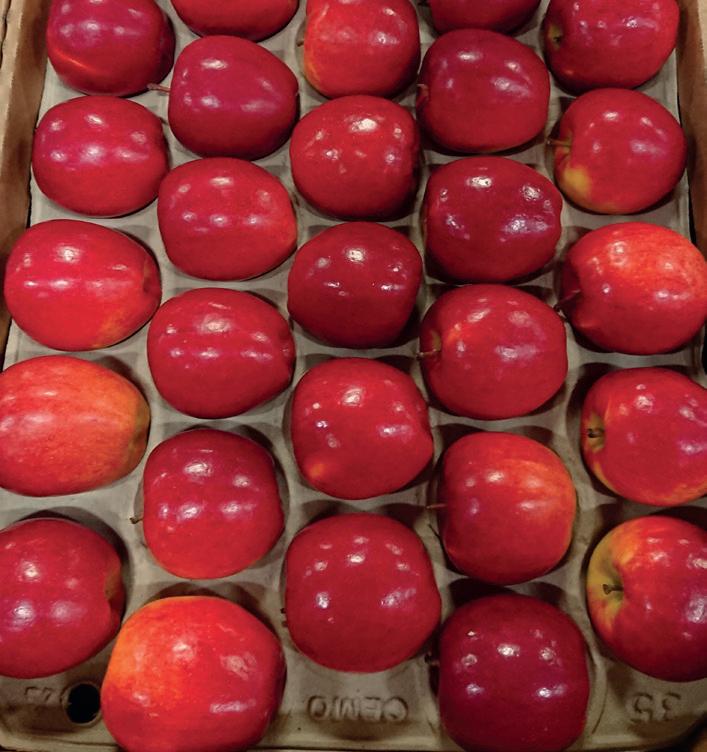

DECEMBER 2022 | WWW.SOUTHEASTFARMER.NET 30
• Segro Salver for AOV Pear • NFU Canterbury/Sittingbourne
for AOV Pear
J L BAXTER & SON
Prize
MAY (FARMS) LTD • The J R Breach Prize for the Best Entry of TM Nuvar Variety – Misty Rose • 5 Heaviest Apples 5211 gms • Single Heaviest Apple 1124 gms
DERRICK
TURNING HEADS
Checking out the new machinery and equipment on offer is part of the attraction of the National Fruit Show, and the 89th event had plenty on offer from a range of big-name manufacturers.
Two stands – Haynes Agricultural and Kirkland UK – featured machines that were enjoying their UK debut, while N P Seymour Ltd, one of the sponsors of the event at the Kent County Showground, Detling, was displaying an exciting piece of equipment designed and built in-house.

Centre stage on the Haynes stand, with tyres still shiny from having never seen a field, was a New Holland T4 120.F, a ground up new model which comes in fruit, narrow and vineyard configurations and boasts an all new stage five engine.
Fruit and vineyard sales specialist Richard Smith pointed out that the 100% new cab was designed with improved vision and driver comfort as a priority, with a lower bonnet and flat floor, and was also the quietest cab in its segment.
“New Holland has also managed to house all of the exhaust after-treatment kit under the bonnet and out of the way,” he pointed out, adding that the pre-production model on display at the show had attracted considerable interest.

Also turning plenty of heads was N P Seymour’s beneficial insect applicator for
table top strawberries, an electrically driven machine that distributes bran containing beneficial bugs to the plants. While designed for strawberries, sales and marketing director Claire Seymour said there was potential to adapt the system for other soft fruits.

Named the Bio Applicator, the machine was developed with Bioline AgroSciences, which specialises in producing natural enemies for use in integrated crop management programmes.
“While it is possible to apply these products manually, it is incredibly labour intensive and time-consuming, as well as being a challenge for workers to apply in the right places at consistent rates,” explained Claire.
She added that the company had taken considerable care to develop an applicator that would not harm or impact the quality of the insects being applied. A cooled hopper prevents insects like Phytoseiulus rising to the top when warm, keeping everything well mixed.
Kirkland UK, which once again had one of the most impressive stands at the show, was featuring another first, with the AgBot driverless sprayer attracting considerable attention on its first appearance in the UK.
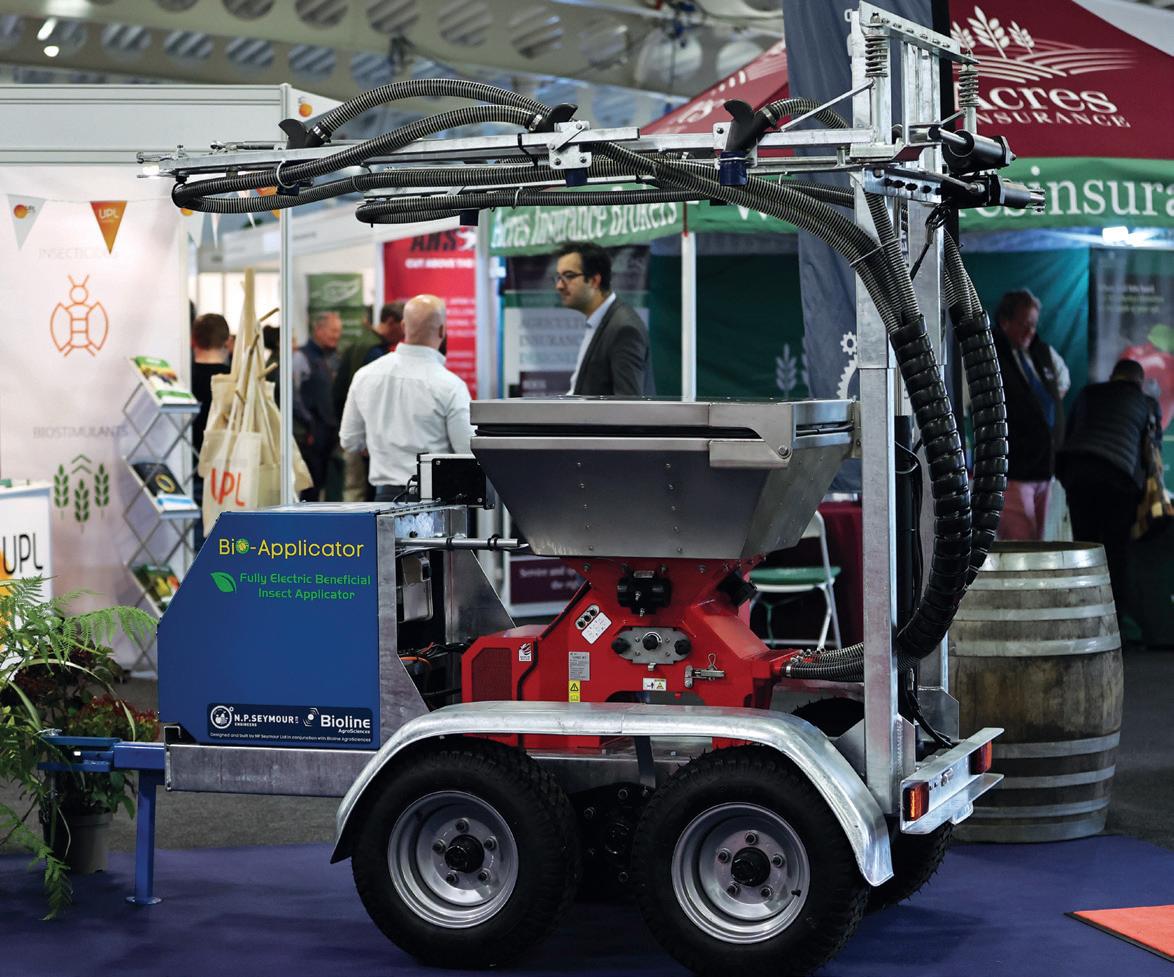
Marketing manager Tilly Shephard said the AgBot sprayer could cut manpower costs by up to 80% while reducing fuel costs by a third when compared with using a tractor. “At

Kirkland UK we know that growers are looking to maximise their use of technology to cut costs and that’s our focus as a company,” she explained.
Kirkland had hoped to be showing off the new 100% electric Corvus UTV, but with the show coming a few days too early, the company had to rely on a video showing the impressive new low maintenance, no fuel utility terrain vehicle.
The team was also responding to lots of questions from growers about the ground breaking, fully automated Tecnofruit Harvester, which provides real time information on quantity, quality, size, weight, and colour of the fruit picked.
WWW.SOUTHEASTFARMER.NET | DECEMBER 2022 31 TO ADVERTISE CALL 01303 233883
Richard Smith
INNOVATIVE APPROACH
standards.
JD Cooling’s innovative approach to controlled atmosphere storage aims to redefine industry standards in the UK.


Besseling Group (controlled atmosphere specialist), Ribbstyle (coating specialists), and Salco (door manufacturers) worked alongside the JD Cooling Group to create stores which will prolong storage periods of fruit, vegetables and flowers, enhance product quality and in turn reduce food waste.
James Tumber, director of the Specialist Services division, said: “Our
partners are all world leaders in the industry and will allow JD Cooling Group to bring to market a system that will redefine CA storage in the UK. We worked together on Softripe and realised that the same system would also benefit the fruit, vegetable and floriculture industries.
“Introduced in 2019, Softripe depends on accurately monitoring the respiration of the fruit in the chamber so that we can adjust the oxygen, carbon dioxide and ethylene levels as well as the temperature to a fine degree. The results have been so impressive that we decided to use

DECEMBER 2022 | WWW.SOUTHEASTFARMER.NET 32 CONTROLLED ATMOSPHERE
JD Cooling Group redefines controlled atmosphere (CA) UK
the same technology for CA stores, setting a new UK standard that will reflect the higher standards already being achieved in Europe, Brazil and Australasia.”


James continued: “Salco and Ribbstyle have both supplied products to the UK market in the past, but this is the first time this kind of collaboration has brought three such impressive players together so coherently. Working with Salco ensured each of the chambers was gas tight, while Ribbstyle manufactured and supplied a unique coating that provides high standards of integrity and extended warranty for peace of mind.”
All widely recognised specialist partners (pictured opposite at the National Fruit Show where the exciting partnership was agreed), they were not only involved in developing the revolutionary Softripe system, but also formed the European standards to be adopted by the UK market.
Interest in the new system, unveiled at the National Fruit Show 2022, where representatives from Salco and Besseling joined the JD Cooling Group team, was said to be very high. The interest at the show followed the success of previous projects within Europe during the past two years, where the applied technologies and combined services provided amazing results, which in turn has accelerated developments within the UK.

The Softripe system has been well received by the industry and was named Environmental Collaboration of the Year in the Refrigeration and Air Conditioning (RAC)’s Cooling Industry Awards earlier this year.
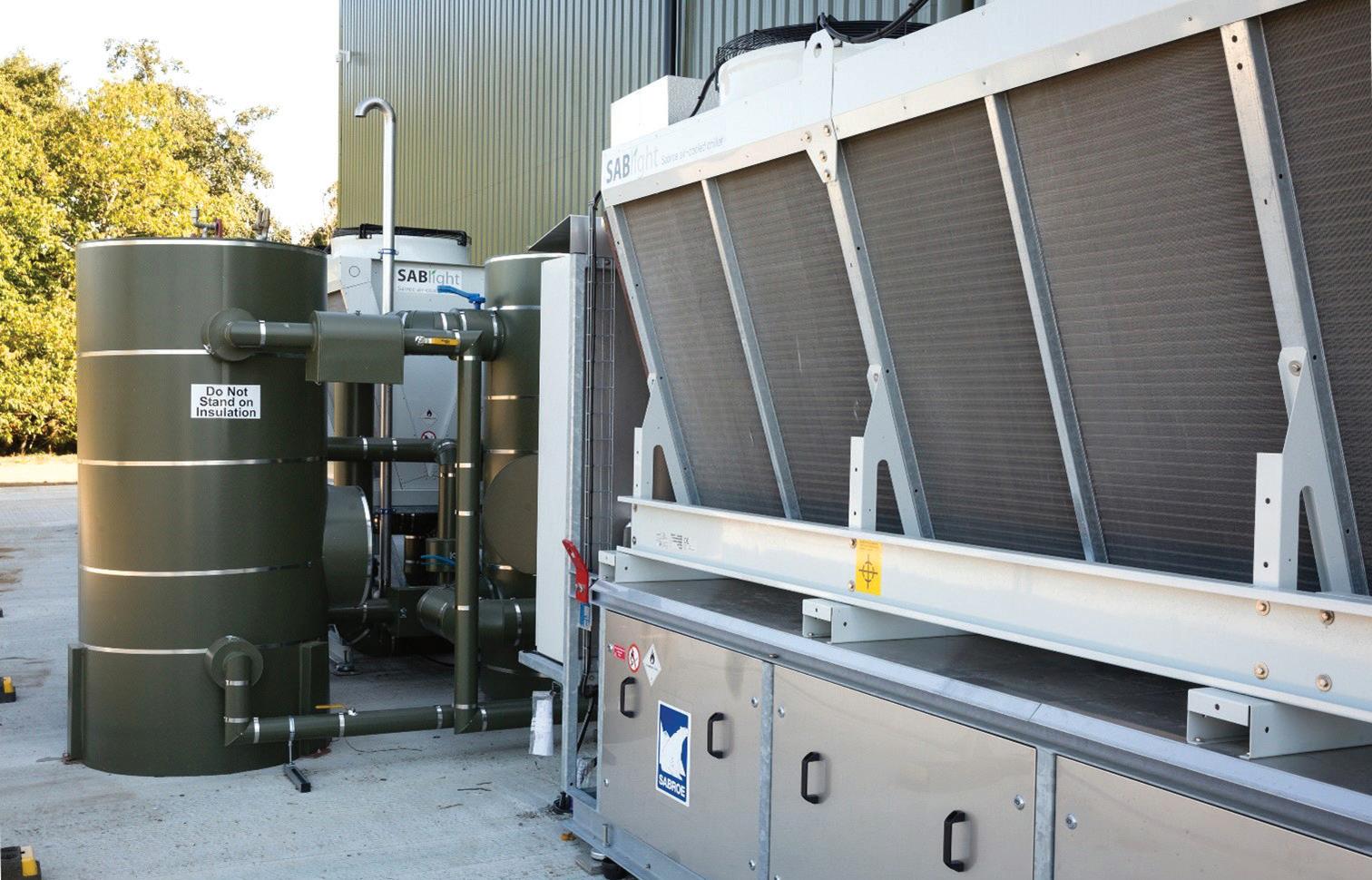
Formed in 2000 by John Dye, now group chairman, the JD Cooling Group has a head office in King’s Lynn, with four other regional offices across the UK. Named one of the top 1,000 inspirational businesses in the UK by the London Stock Exchange, the Group now employs in excess of 130 people and boasts a £35m turnover.

The UK’s leading independent supplier of cooling, heating, ventilation, air conditioning, facilities support and service and maintenance across a number of sectors, JD Cooling prides itself on the fact that 90% of its business is either from repeat customers or word of mouth referrals. The company provides cooling and refrigeration services as well as the Specialist Services. Other divisions include JD Industrial, JDI Controls and JD Power, and as a whole the group has grown steadily over the past 22 years. Currently working towards net zero and reducing its carbon footprint, Team JD is on hand to discuss customers’ requirements and demonstrate how they can take businesses forward towards an efficient and sustainable future.
• Optimum storage conditions for fruit, vegetables and floricultural products


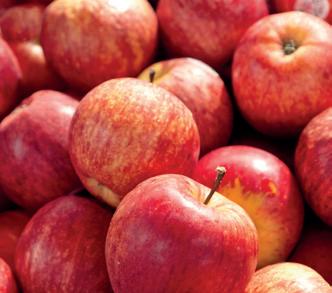

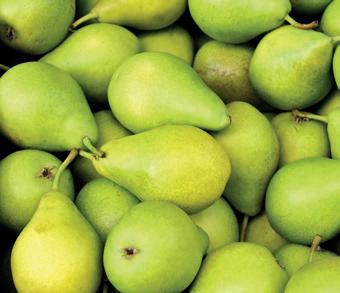

• Extended product life and storage
• Heat recovery for multi-usage i.e., free defrost
• Increased quality
• Minimise weight loss
• Carbon footprint reduction
• Ultra-stable conditions for temperature, humidity, Oxygen, CO2 and Ethelyne control

WWW.SOUTHEASTFARMER.NET | DECEMBER 2022 33 TO ADVERTISE CALL 01303 233883
FEATURED COMPANY:
Head Office: 01553 767446 JD Cooling Website Contact Us JD Cooling LinkedIn
AKEHURST VISITS: BURNT HOUSE FARM
SAY CHEESE
Arriving at the farm, I drive past a large silage clamp where a group of dairy cows is congregated outside enjoying the unseasonably warm weather. I park outside a modern green building with the branding of The Traditional Cheese Dairy proudly emblazoned in white.
As I head towards the yard I meet Joe Delves, the third generation of his family to farm at Burnt House Farm. After a quick chat he suggests a tour of the cheese dairy. We head inside and I get changed into a pair of clean white boots and put on a blue coat.
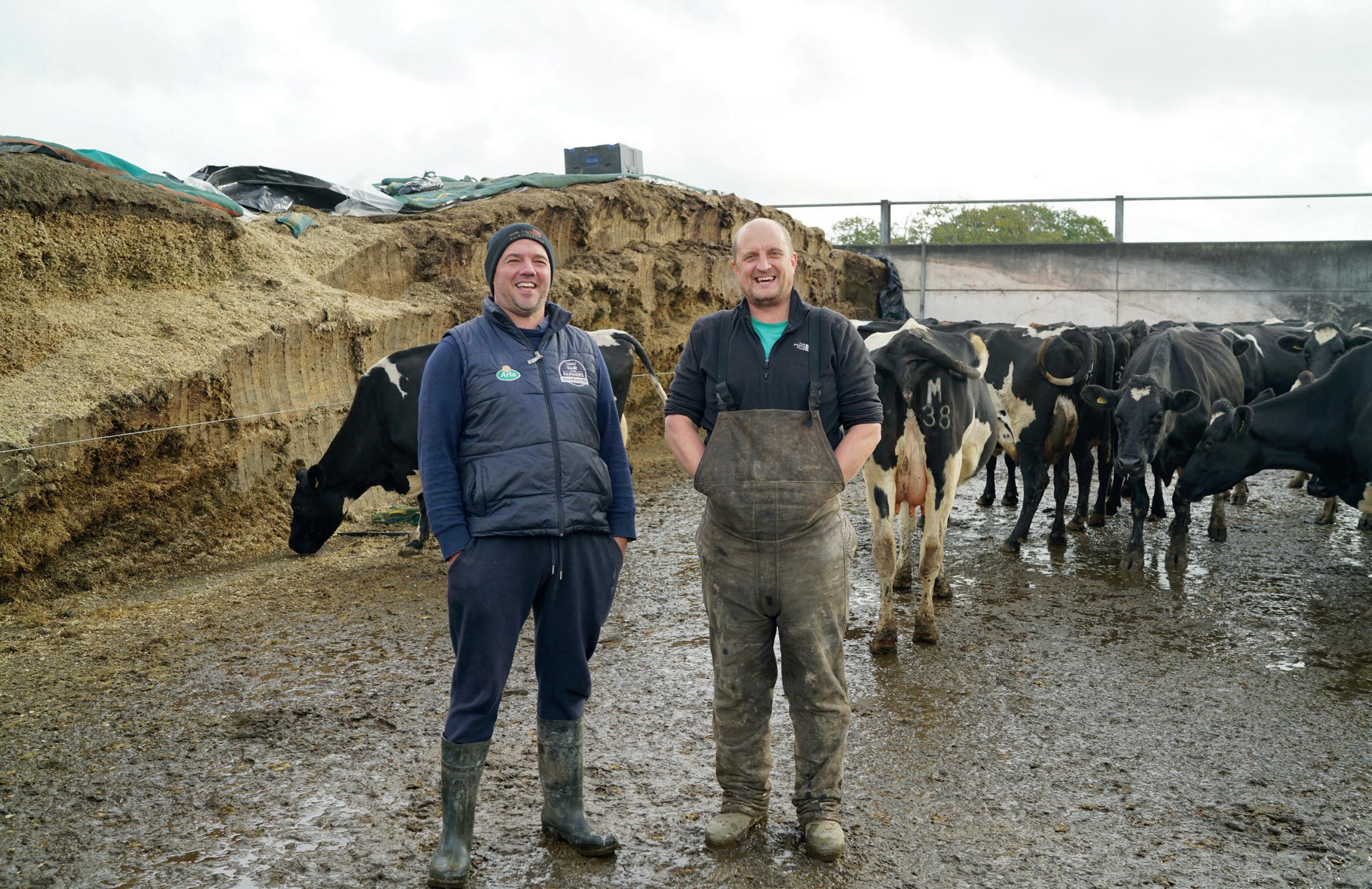
CHEESE DAIRY TOUR
After giving my hands a good scrub we enter the cheese dairy. Everything is white




and spotlessly clean. In the first room Joe introduces me to his wife Becky and Rowena Topping, a Plumpton college student, who are busy preparing cheese orders ready to be dispatched. Moving on to the make room, I meet head cheese-maker Ben Cottingham (who also happens to be Joe’s cousin).
Ben is pasteurising milk ready to make a fresh batch of their best-selling Burwash Rose, a delicious soft cheese (which I later get to try). Joe points out two metal pipes used to transport the milk directly from the bulk tank next door. This essential bit of infrastructure allows them to preserve the important milk fats (which can be disrupted when you pump the milk from a tanker, he explained).
“I always dreamed of adding value to our milk but it wasn’t until early 2020 that the opportunity arose to buy a local cheesemaking business based in Stonegate,” he said.
The Dyball family had put their business, The Traditional Cheese Dairy, up for sale. It was “perfect timing,” said Joe, and after a short period of negotiation with the family they agreed on a figure.
The deal included five cheese recipes (Burwash Rose, Olde Sussex, Goodweald Smoked, Lord of Hundreds and Scrumpy Sussex), all the business’ existing stock, its customer base and its equipment.
Crucially it also included an intensive crash course in cheese making. Joe persuaded
DECEMBER 2022 | WWW.SOUTHEASTFARMER.NET 34
NIGEL
This month Nigel
Akehurst visits Burnt House Farm in the village of Waldron, near Horam,
East Sussex, to meet entrepreneur and third generation dairy farmer Joe
Delves.
He and his family own and operate a successful dairy farming enterprise across four sites in East and West Sussex. They also run The Traditional Cheese Dairy, a small cheese-making business they acquired just over two years ago.
Joe and his farm manager Ben
his father Andy (then 68) to come out of retirement and he spent the month of July learning how to make the five cheeses from scratch.
Everything went well and Andy took to his new role as head cheesemaker, with other members of the family pitching in. They continued to make and sell cheeses from the Stonegate premises for several months but then received a letter notifying them that the landlord wouldn’t be renewing their lease.
With nowhere else to go, Joe managed to negotiate a six month extension and they set about applying for planning permission to build their own facility on the footprint of an old pole barn on the home farm.
Approval was granted in less than a month, helped by local people writing letters of support, he said. Work started in early 2021, with Joe and some of his team carrying out the groundwork ready for the building supplier, Sussex Steel Construction, to put it up. The empty shell was up by 1 April, ready for the installation of the cheese rooms by contractor Lee Whiting from Octego Ltd.
It took less than three months to complete the installation ready for the cheesemaking kit to be moved. Joe and the team dismantled and moved all the equipment “farmer style” onto a low loader at the weekend so as not to block access.
Remarkably, throughout the process they only stopped selling cheese for about two weeks (and stopped making it for about a month). Once up and running at the home farm, they started to use their own milk (though still purchase some in from Steve Reynolds to fill the seasonal supply trough), which presented some new challenges. They discovered that their milk had a greater variation in milk solids, resulting in some dud batches of cheese, explained Joe.
They have since been able to tweak the recipes to get back on track, and cheese sales went from strength to strength during Covid-19. Andy continued in post until this spring, when he decided to step down to let Ben take the reins.
www.thetraditionalcheesedairy.co.uk
They have also just invested in a cheese vending machine, said Joe. This is expected to arrive shortly and will allow customers to buy cheeses from the farm gate 24/7.
Completing our tour of the dairy, Joe showed me their maturations rooms. Each cheese has its own temperature-controlled room where the cheese wheels are stacked on wooden shelves and turned regularly.
BACKGROUND
We head over to the farmhouse (where Andy and Liz live) for a chat. Joe’s grandparents Ronald and Joyce Delves started milking cows on the farm in 1962, originally renting the land before being given the opportunity to buy it in 1972. After agricultural college, Andy returned to the family farm to help his father. Over the years they specialised in high producing Holsteins and increased the size of the herd to more than 100 cows.
Growing up on the farm, Joe left school and went to work for a local sheep farmer. After a couple of years he decided he didn’t like sheep and went into construction work. Initially laying tarmac, he ended up starting a small building business with a friend. “It was good fun and we learned a lot,” he said.
During this time Andy took up the offer of full-time job running an evangelical church (now called Kings Church) in Heathfield that he had helped set up. The role came with a house, so he and Liz moved out of the farmhouse and employed a herdsman to live on site and milk the cows.
“None of us was here. It broke this cultural mentality that it has to be someone in the family that milks the cows,” said Joe.
Then, in 2005, the herdsman left and Joe decided to have a go at dairy farming. He and his wife Becky moved into the farmhouse. “I hadn’t really run a farm before and hadn’t milked cows full-time,” he said.
His dad was around but tried not to get too involved and left him and granddad to work out their differences, both eventually becoming good friends.
FARM FACTS
• 2,100 acres farmed
• Spilt across four farms (three conventional and one organic)
• 630 cows conventional
• 280 cows organic
Over half of their cheeses are now sold through the Brighton based wholesaler The Cheese Man. They also retail their cheeses via their website for postal delivery or for collection from the dairy Monday to Friday: >>
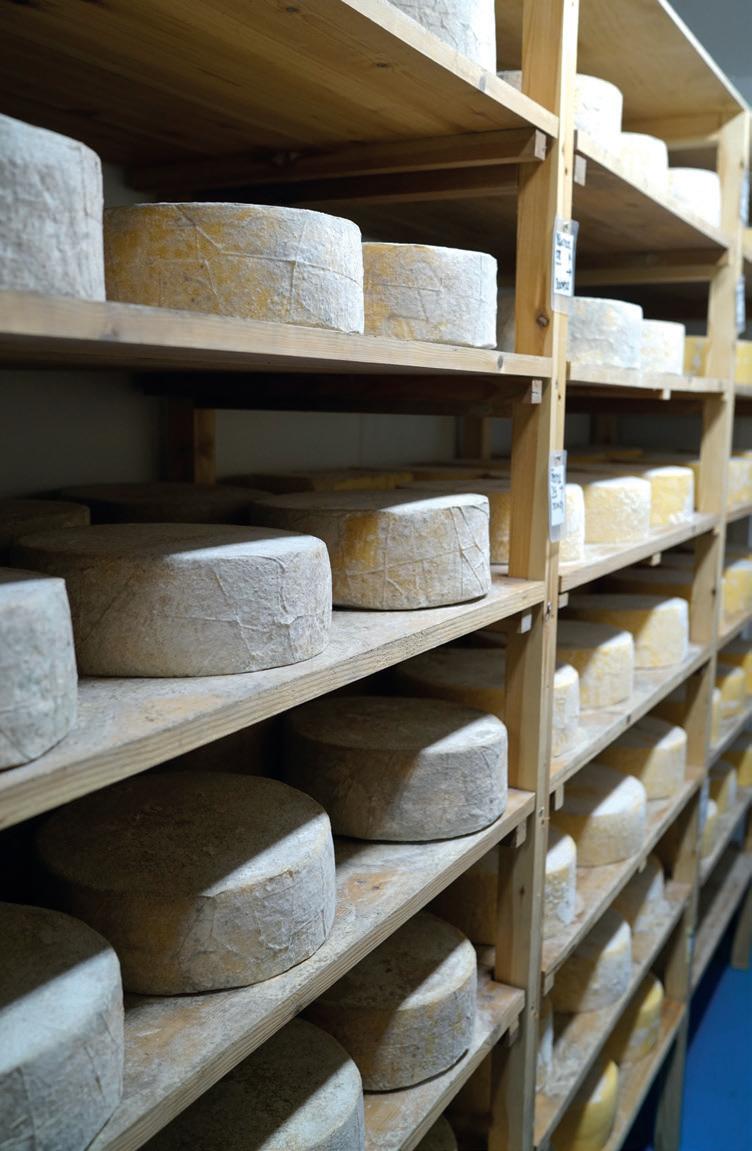
The first few years were tough, as they were still in the old buildings and everything was hard work, he explained. Like a lot of people at the time they thought about stopping completely and explored going into industrial units.
• 5.7 million litres total sold to through Arla to Tesco and McDonald’s
• Autumn block calving
• Small cheese business
• 12 people employed full time, including in the cheese business

WWW.SOUTHEASTFARMER.NET | DECEMBER 2022 35 TO ADVERTISE CALL 01303 233883
NIGEL AKEHURST VISITS: BURNT HOUSE FARM
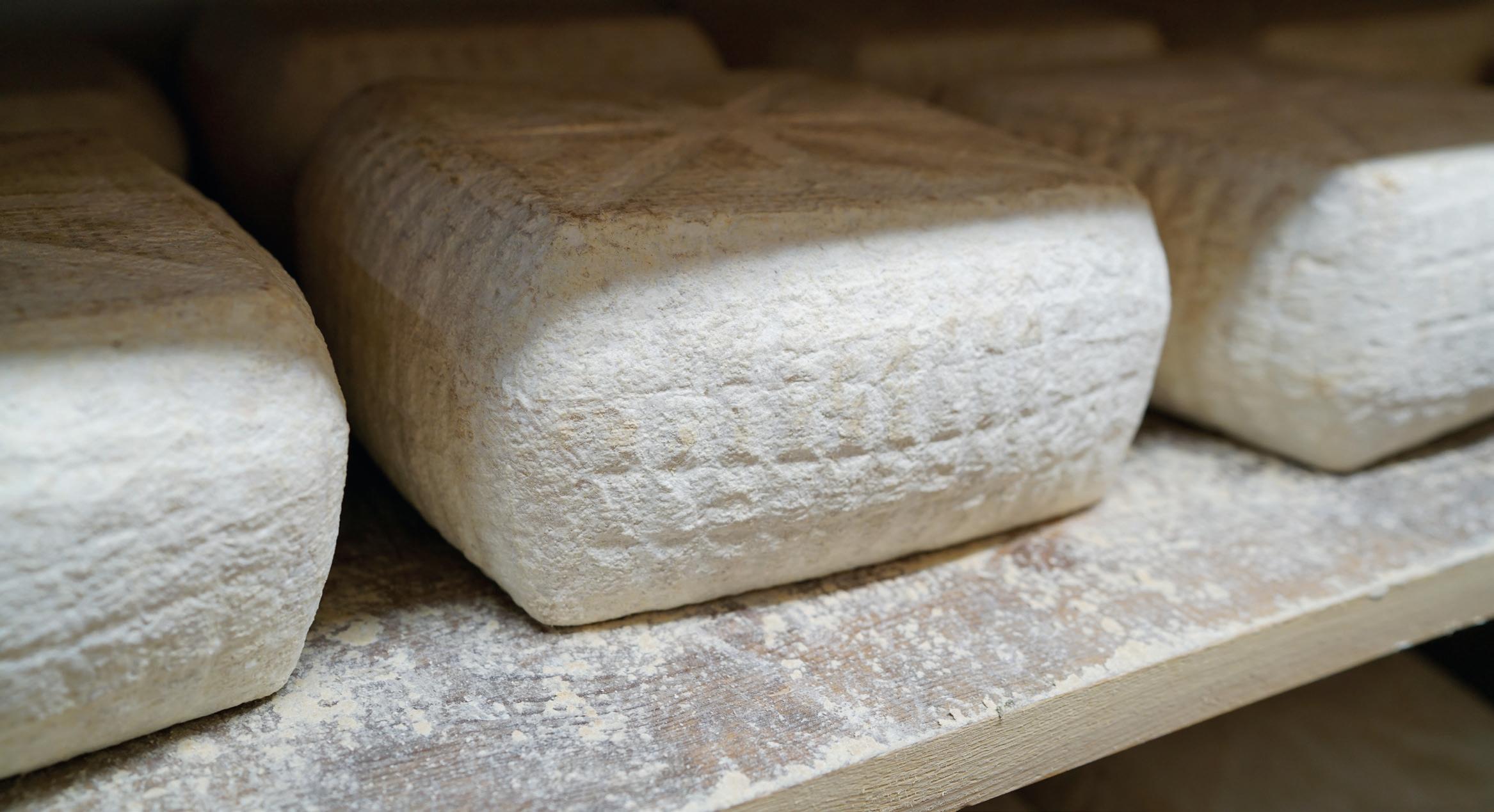
TESCO COST OF PRODUCTION CONTRACT AND INVESTING IN NEW FARM INFRASTRUCTURE
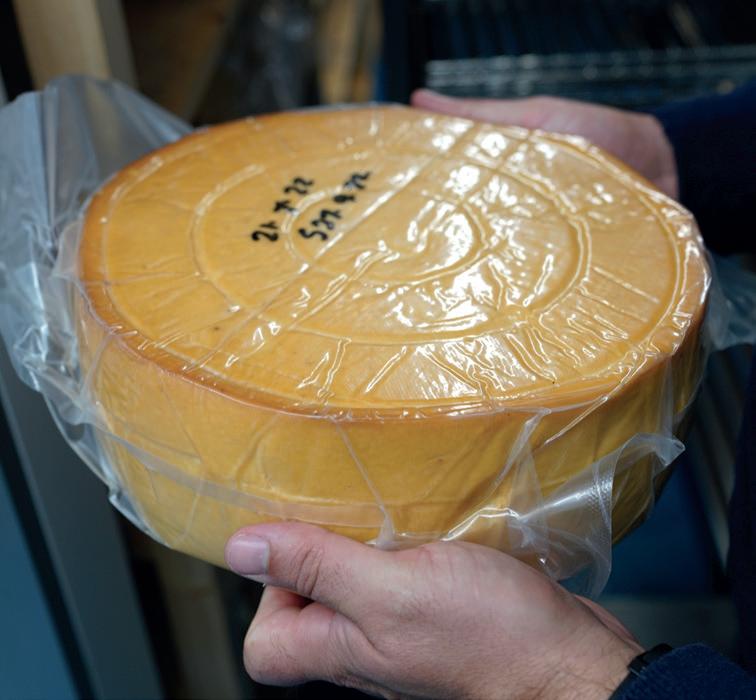
In 2007 Joe rang Arla to say they were thinking about giving up. Arla was supportive and asked them to hold off for a couple of weeks, explaining that they would receive a letter in the post.
“We then received a letter saying we’d been selected as a Tesco’s farm and they would pay us on a cost of production basis. Overnight the milk price went from 16p to 21p,” he said.
By then they were debt free, but the farm infrastructure was outdated and in poor shape and production costs were too high. “It wasn’t efficient and the farm was miserable to operate,” he said.
Joe and Becky went to see their Barclays bank manager, who Joe described as “brilliant”, explaining: “She was keen to lend us some money, so we decided to bulldoze the existing buildings and start again.”
With planning permission granted for a modern cowshed, they started work in April and it was meant to be finished by July. Typically it was one of the wettest years on record and they didn’t get back in until December.
After that they bought some more cows in and started to make some money. “The accountants in Heathfield were a bit shocked at some of the numbers that started to come out,” Joe said.
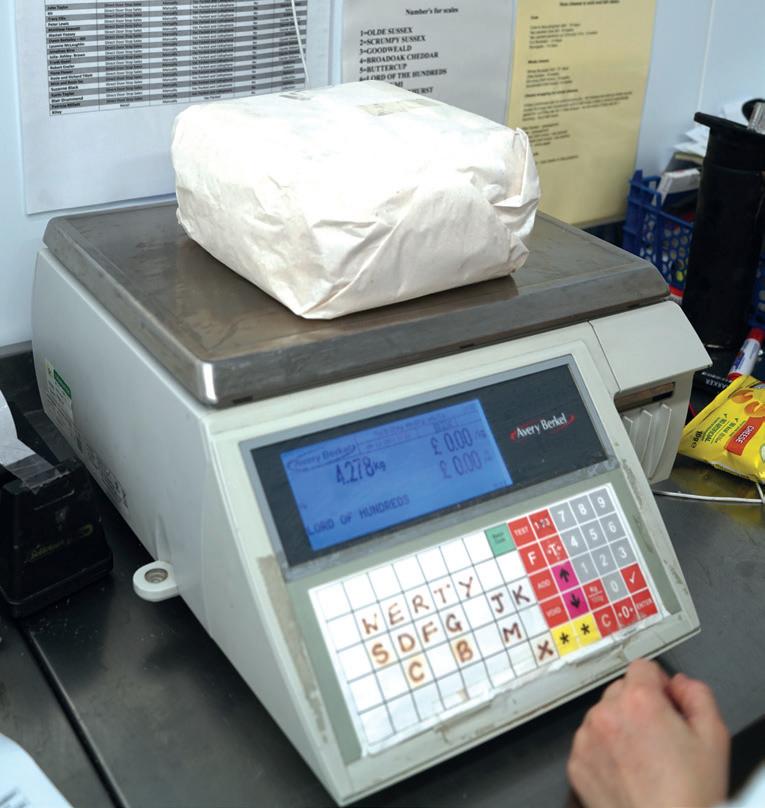
MOVING TO SEASONAL CALVING, NUFFIELD SCHOLARSHIP AND DAIRY EXPANSION
In 2010 Joe went out to New Zealand with a friend to visit some dairy farmers. It was a real eye opener and introduced him to the idea of seasonal calving. “Calving with the weather rather than stressing the system and trying to calve all year round” is how he describes it.
He was impressed with their business focus: “They only keep cows because they make money,” he pointed out.

It was an attitude that struck a chord, and on his return to the UK he decided to move to an autumn block calving system. It’s a system which works well in the South East, as the cows produce their peak milk in the winter off silage and then dry off for six weeks in the summer when the grass is at its worst.
He also changed the breeding from extreme Holstein to cross breeds using Jerseys: “We went back to how Grandad farmed,” he said.
Then in 2012 Joe won a Nuffield Scholarship which resulted in him producing How to succeed in dairy farming. It was a real game changer, he said, and he spent several months in 2013 visiting different farms around the world before writing his report.
“That’s when I wanted to challenge us a bit more and so I decided to take on another farm,” he said. In 2014 an opportunity arose
DECEMBER 2022 | WWW.SOUTHEASTFARMER.NET 36
<<
to take on an organic dairy farm in Petworth, West Sussex.
“It was organic and it helped de-risk us. Both prices are volatile but organic doesn’t bottom out like the conventional. If it bottoms too low then the supply stops. With the conventional price it keeps doing down. In 2016 we had a massive slash down but the organic price only came down a bit and then went nice and flat,” he explained.
Other than the cows, the most important part of the business is people, said Joe. They spent 2016 to 2019 getting the right staff in place and consolidating costs. Then, in May 2020, they entered into a contract farming agreement with Tom and John Randle on their two dairy farms in Fletching.

“They had got to the point where they wanted to stop dairy farming but were keen to carry on having cows on the farms, as they had been there for a long time,” explained Joe.
It’s an arrangement that has worked well for both parties and something they would be keen to do more of, he said. It’s very low risk for everyone and Joe sees collaboration as the best way to grow the business; they get what they need as well as allowing us to expand and farm more acres, he explained.
“As we’ve got bigger, we can buy things cheaper and do things more centrally and they get the advantage of that,” he added
Joe now employs 12 full-time staff and points out that he is the only one that has a connection to farming.
When recruiting, they post adverts on social media sites like Facebook and often prefer applicants with a clean slate, including many who have never seen a cow before.

“We don’t mind putting time into people, who are the backbone of the business (aside from the cows) at the end of the day,” he added.
FARM TOUR
Before leaving we head out onto the farm to meet a couple of the farm team; Ben Pike, the farm manager, and his assistant Emily Farrant. They showed me the cows, the majority of which were enjoying the fine weather in the outdoor silage clamp.
The cows looked well and I asked what their average milk yield was. “They average around 7,000 litres of milk a year,” replied Ben, adding that they are targeting 7,500 litres, with plans to breed a bit more size back
into their cross-breed cows.
It’s all about finding the sweet spot, he said. After a couple of stressful years they decided to reduce their cow numbers on the farm and all of a sudden it just gets a bit easier and more enjoyable, he went on.
I asked if they were concerned about the rising costs. “Our costs are going up but we are still benefiting from existing stocks of fertiliser and fixed price electricity until next year,” replied Joe.
He thinks the next 12 months will show a truer reflection of costs and highlighted the incoming slurry regulations, which will mean more investment and may force more dairy farmers out of the industry.
What a lot of people don’t realise is that it’s a watershed moment for a lot of family farms, with an outgoing generation and no incoming generation to replace them, he said.
SUCCESSION, THE IMPORTANCE OF DISCUSSION GROUPS AND A GOOD ACCOUNTANT
For many family farms, succession is a taboo subject, but Joe believes many of the best businesses are passed on sooner rather than later.
“A lot of the good farmers around here sadly had an early succession, due to their dad dying or something tragic happening. Ironically they are the ones that are now holding on to the farm, when they should have got out of the way years ago. They are now holding the businesses back, which I think is a real shame.”
Joe said being the boss can sometimes be lonely and said he found it useful to meet up with other entrepreneurs and business owners, often outside farming, to chat and share ideas.
He is also involved in a number of dairy discussion groups, which he has found useful and has helped him improve his business.

Moving to a larger agricultural accountants (Chavereys in Faversham) had also helped them grow, he said.
FUTURE PLANS
Joe is passionate about people and cows and is focused on getting to 2047, which would be the 100-year anniversary of the farming business, and on giving the next generation the opportunity to take on a profitable sustainable business.
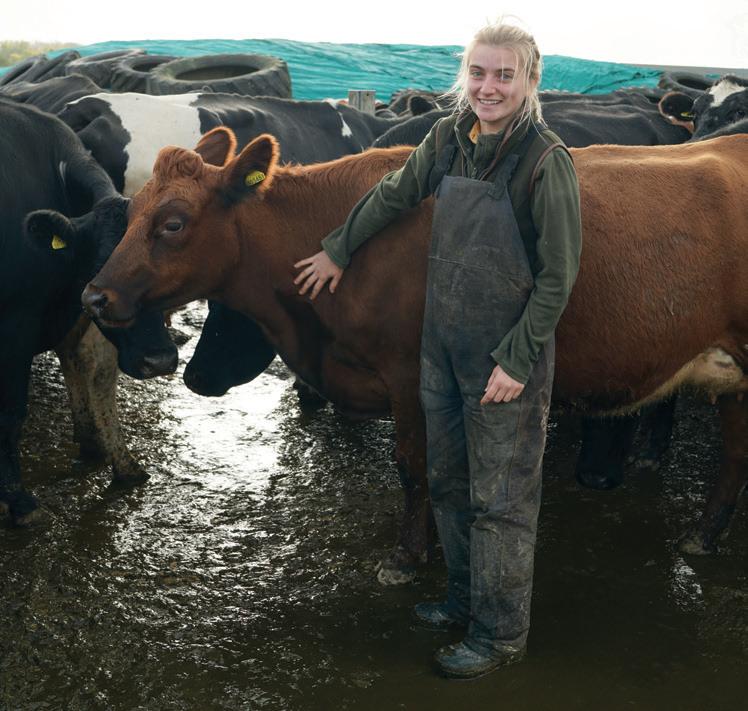
WWW.SOUTHEASTFARMER.NET | DECEMBER 2022 37 TO ADVERTISE CALL 01303 233883
Assistant Emily
Ben, head cheese maker
Joe's wife Becky
INSPIRING THE NEXT GENERATION
From September 2023, as part of their studies, Hadlow College students will cultivate and manage a three hectare sustainable ‘concept’ orchard and vineyard using cutting-edge technologies and automated systems.
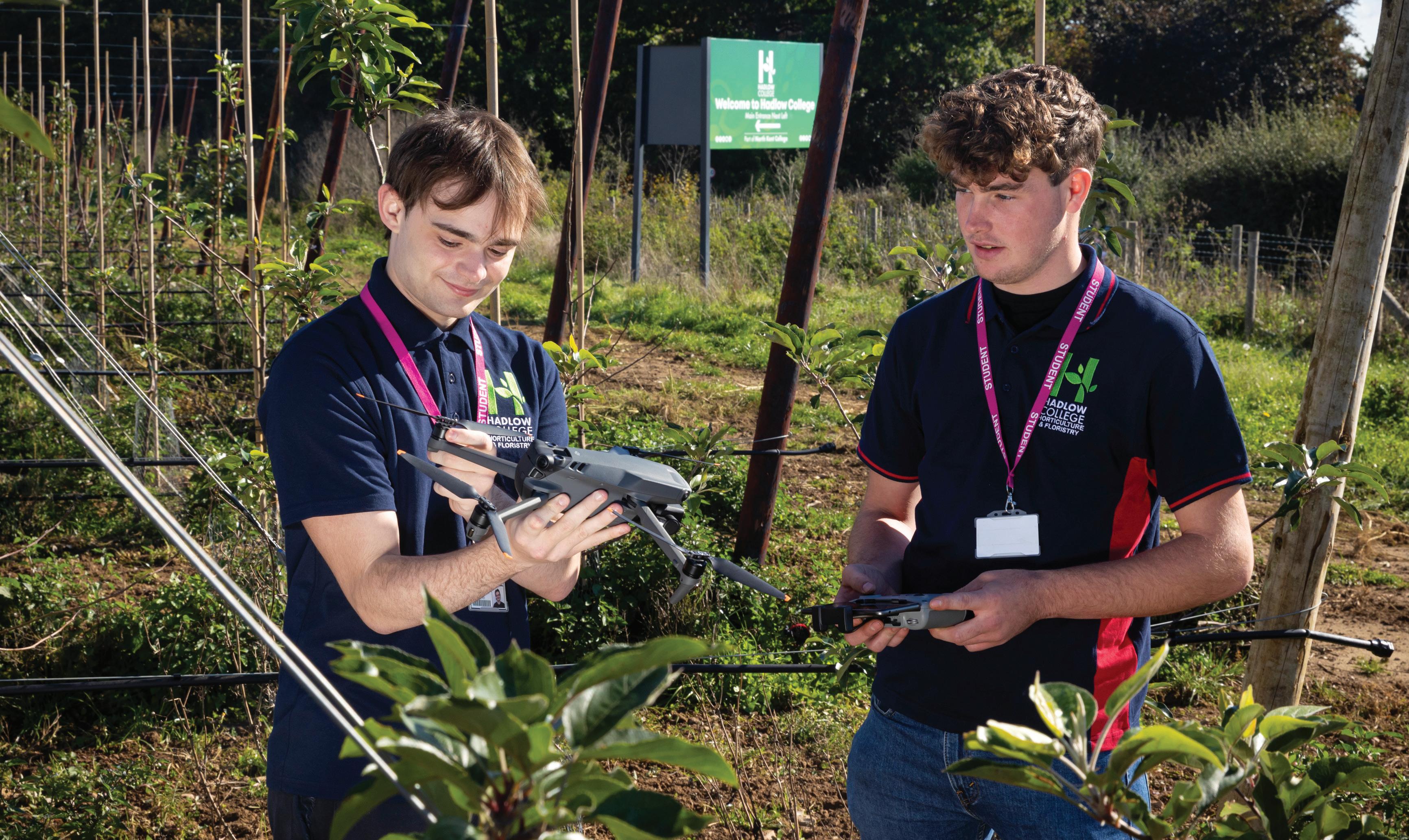
Hadlow is the first UK college to give students the opportunity to be at the forefront of exciting changes in the farming sector by gaining practical, hands-on experience of sustainable fruit growing.
Developed in collaboration with the chamber of commerce and local industry specialists, this innovative project focuses on decarbonisation and on addressing skills shortages in the food production industry.
The aim is to develop concepts for a more efficient, economic, healthy, and sustainable farming industry, with the help of the latest technologies in automation and artificial intelligence.
WHY IS THE PROJECT SO IMPORTANT?
It is predicted that by 2050, the world will need approximately 70% more food than is currently being produced to sustain the growing world population. Meanwhile, UK growers are battling with severe
labour shortages.
Sustainable farming techniques revolve around optimally using natural resources while not harming the environment in any way. Technology and automation can help make certain tasks faster, more efficient and more economical compared to traditional methods.
WHAT WILL STUDENTS BE INVOLVED IN?
Hadlow College students will be instrumental in meeting the needs of a changing world in terms of increased food production, sustainable use of natural resources, waste reduction and recycling and using less energy.

Alongside more traditional horticultural methods, students will gain valuable employable skills in using drones, robotic fruit pickers, weather sensors and simulations to assist in food production.
A section of the orchard has been devoted to viticulture, allowing students to be trained in how to set up and manage a vineyard. The rest of the orchard will be used to train students in sustainable orchard management, with crops including apples, pears, cherries, apricots and other prunus.
You can find out and apply on our website www.hadlow.ac.uk/future – Keep up-to-date with the project! Follow us on our socials for all the latest news and developments on the orchard and vineyard
DECEMBER 2022 | WWW.SOUTHEASTFARMER.NET 38
TIKTOK
SARAH CALCUTT Executive Chair, National Fruit Show




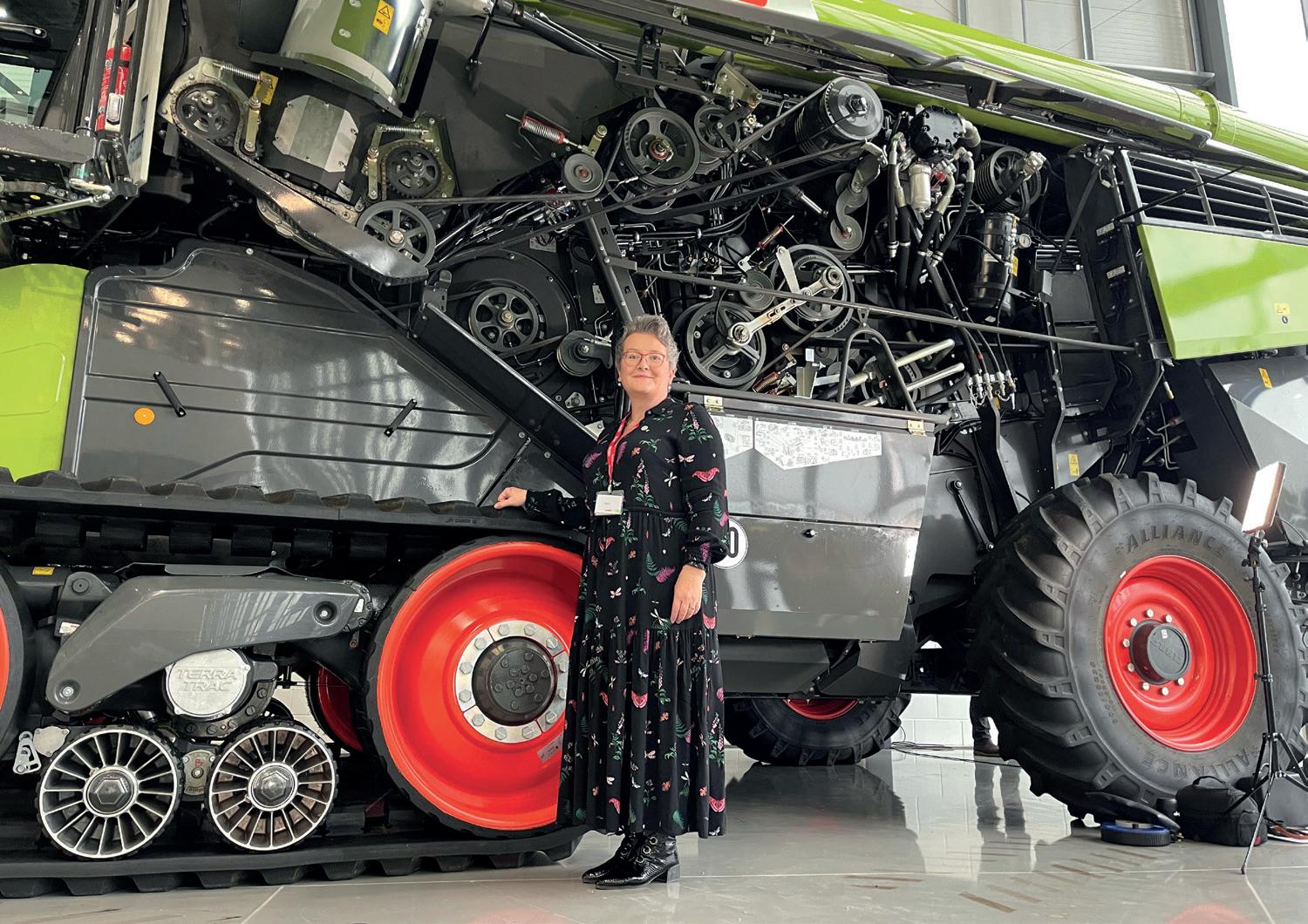
The amount of political and financial flux currently surrounding us unsettles every part of government as well as all contributors to GDP. In farming, well we don’t need to begin talking again about the staggering lack of return to the primary producer.
Professor Tim Lang said this week that the average horticultural product is currently returning only 8% of its retail price to the farm gate. Every other step of its journey to the customer takes a greater slice than the person producing it.

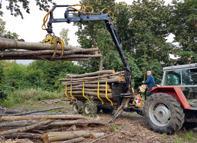


I have attended two excellent events this month. The first was to Rabobank’s HQ in the city, where I had the pleasure of watching Julia Bradbury refereeing between Tim Lang and Professor Michael Lee, with the wonderful Judith Batchelar and Helen Dent adding calmer voices of reason in a very impassioned debate about achieving net zero in farming and food.
An excellent summation was provided by her Royal Highness the Princess Royal, who counselled us all that the responsibility rests with every grower, every retailer and every household. The main challenge is that we need to find effective ways of filtering the messages
THE SOCIAL AND ENVIRONMENTAL VALUE OF FOOD

down to all farms in a deliverable level. It needs to be easy (though the panel did argue that it needs to be incentivised as investment is required).
Professor Lang’s 8% isn’t delivering profit, nor even covering the cost of production, something that is echoed across food produced in the UK. As a nation we spend £223.3bn a year on food. Just think, we could have it worse; of that sum, only 0.4% goes back to a fisherman.
The panel’s principal argument was that climate targeting shouldn’t mean lack of profit, and that as this is a global issue we need international alignment on structure. Systems that have not been updated since the 1940s need rapid change, with growers paid for the environmental services they provide plus being paid fairly for the food they produce.
Food security is a public good. We need harmony across policy, licensing, production and retail, yet our change is driven by crisis and argument, which leaves us drifting. This drift is contributing to the priority of calories over nutrient density and the ignoring of the need for an affordable, healthy diet for those in school.
On 15 November I was fortunate to be included in the inaugural Beanstalk global circle of leaders’ debate, entitled: "How do we collectively create the solutions we want to see in such turbulent times?" I was included for two perspectives: farming and food poverty.
The panel, chaired by Max MacGillivray of Beanstalk, was made up of Dan Cross, chief executive of Dyson farms, Andy Allen of Oast House Ventures (a low carbon farming enterprise), Jack Ward of British Growers,
We discussed the challenges ahead and talked about those who are making the greatest advances in areas such as the reduction in labour, increased productivity and the reduction of environmental impact, how our sectors are making a difference and how businesses can activate policies around purpose and sustainability to meet the increasing needs of society. We also debated the business benefit of charity collaboration.
While we are at a crossroads in home grown production, a collaborative approach is emerging; there are cohesive statements being presented to government aimed at aiding the delivery of economic growth and trade agreements that benefit the economy, creating a bigger marketplace for technology as well as produce. Hopefully they will also beat down the dysfunction of our food system.
WWW.SOUTHEASTFARMER.NET | DECEMBER 2022 39 TO ADVERTISE CALL 01303 233883 FOCUS ON FRUIT SARAH CALCUTT
Thomas Oatley, ex-president of Harper Adams student union, Nick Sapphire of the Agriculture and Horticulture Development Board, Jazz Singh of Innovation Agritech and Dr Trisha Toop of the Agri Epi Centre.
W.H.Skinner & Sons Grubbing, timber & groundwork services • orchard grubbing • windbreak removal • timber extraction • fallen tree removal • ground contouring • land clearance • excavations • cultivations • pond dredging • reservoir construction 01622 744640 - 07711 264775 www.whskinnerandsons.co.uk
IT’S BEEN “TURBULENT”
This year-ending edition of South East Farmer is traditionally the time to look back on how the year’s farming has gone, but I am not sure there is room on this page to cover it all.

To coin a phrase that sums it up in an understated way, it’s been “turbulent”. As an industry we tend to be fairly resilient as, year on year, we contend with the vagaries of the weather, but the inflationary pressures all are experiencing are on a level not seen before.
The pressure on input prices was evident prior to the Ukraine invasion, due to supply chain problems caused by both Brexit and Covid-19. Lately amongst politicians it is as though Brexit is a word that dare not be uttered, but I am sure it is the reason the UK economy is struggling more than the majority of European countries.
Depending on whose ag inflation figures are to be believed, they are running at between 25% and 35%. It is easy to see that fertiliser, fuel and electricity are the main drivers. There are other factors that none of us can avoid, such as the increasing cost of labour and machinery spares. Taking a simple example such as tyres, I bought a set of trailer tyres in July 2021 and exactly the same set this year for another trailer, by which time the cost had risen by 28%.
All modern machinery relies on a conglomeration of sensors to operate effectively; if one fails it has to be replaced, and the cost of these cigarette lighter-sized parts is eye watering. Shortages in supply are cited as the reason for price hikes, and we are not in a position to argue. After all, a machine stood in the yard not running is no use to anybody.
The latest COP conference has provided yet more evidence that climate change is reaching a critical point. Unless we all move faster in reducing emissions, targets are not going to be achieved and irreversible climate change will occur. I think that most sensible folk agree that emissions have to be reduced and our industry can play a big part, but to do so we need better guidance and support.
ELMS is painfully slow in being developed and rolled out; why not build in meaningful support for emission reducing measures? At the moment most of us are disengaged, as options are limited and payments do not encourage participation.
Farmers could also provide more renewable energy solutions such as wind turbines or solar farms on poor unproductive land, alongside biomass production. At present we are all hamstrung by planning laws that severely restrict and constrain the development of renewables.
Going green, becoming carbon neutral, or whatever terminology is used, will have a cost to everybody in the country, and not
necessarily financial. Maybe folks will have to get used to looking at infrastructure they don’t much like, such as wind turbines or solar farms, in places that today are considered unacceptable.
A good start has been made looking in detail at carbon emissions from agriculture, with various projects in all sectors measuring and researching how reductions can be made. Results need to be fed back to farmers so we can all start to make small changes in 2023 and improve the emissions profile for every farm.
It may be a tad early, but here’s wishing you all a happy Christmas and prosperous new year.
DECEMBER 2022 | WWW.SOUTHEASTFARMER.NET 40 FROM THE FRONT LINE IN CONJUNCTION WITH
Writes Peter Knight, managing director of Burgate Farms Ltd, Hambledon, Surrey.
Up to £35k per annum
EDUCATION
£7m investment to further enhance facilities at the farm and beyond to ensure students are exposed to the latest cutting edge technologies, including robotics in the dairy and a brand new state of the art high welfare and RSPCA assured pig unit. Coupled with this, the college’s new farm shop and café open in Brighton this summer, providing the perfect opportunity to demonstrate and educate students in every aspect of the supply chain relating to British produce.
whether your area of expertise is livestock, arable, machinery or agri-business, we’d like to hear from you.
Find out more & apply: plumpton.ac.uk/our-college/vacancies
UNDERSTANDING THE INDUSTRY
This month our level 3 agriculture students benefited from attending the SIMA show in Paris. Alan Johnson reports.


There are many reasons for offering students an experience such as visiting an international show, including:
LEARNING A NEW LANGUAGE
English is a universal language. It's spoken by approximately 1.5 billion people, which is 20% of the world's population. Visiting other countries and events, however, motivates students to consider learning a new language – and there's no better way to learn than to be constantly surrounded by French speakers. The trip to the SIMA show allowed students to learn French, actively be away from textbooks and engage through workshops and activities.
EXPERIENCING A DIFFERENT CULTURE AND WAYS OF WORKING
From a technical aspect, the students found the experience enlightening. The trip was full of interactive cultural experiences for students, including visiting the Eiffel Tower to learn about the history of Paris and visiting a local market.
BRINGING THE TEXTBOOKS TO LIFE
There's only so much you can experience from images, stories and textbooks. It was good for our students to learn about the vast agricultural production systems and associated businesses at the show and the wider cultural differences to the UK.
DISCOVERING NEW OPPORTUNITIES
The impact of the visit was very clear from the student's perspective. They were impressed by all aspects of technological advancement linked to sustainability and climate change. They also showed that it is essential to travel to see other farming systems and ideas and learn as much as possible while embracing different farming and food production methods. Our students interested in pursuing a career in agriculture are offered many opportunities to hear from industry experts and engage in Q&A sessions. Students often ask for advice on their own business ideas.
FAYE PIERCE HAS WRITTEN A SUMMARY OF HER EXPERIENCE
“We attended the SIMA show in Paris, an international exhibition of solutions and technology for efficient and sustainable agriculture. Going to Paris with Plumpton College allowed me to travel independently abroad. We also had some time for sightseeing, including the Eiffel Tower, a boat trip down the river Seine, and a fascinating farmers' market selling high-quality locally grown produce.
“Most of the group hadn't travelled to France before and found the experience exciting and one that opened our eyes to learning new things; overall, it was an excellent experience and I am keen to travel and learn more in the future.”
This trip would not have been possible without Bartholomews Agri-Food Ltds' donation of £1,000
Visit www.plumpton.ac.uk to study a range of fantastic land and environment courses

WWW.SOUTHEASTFARMER.NET | DECEMBER 2022 41 TO ADVERTISE CALL 01303 233883
RISING TO THE CHALLENGE
A decade or so after helping to mow the grass and clear the leaves during a week away from his studies at school, Connor Leggat found himself back at the same site carrying out a range of projects for the new owners.

But while he wasn’t back as a gardener, the site has nonetheless played a large part in the growth of his rapidly expanding groundworks, civil engineering and construction company, Leggat Plant & Civils Ltd.


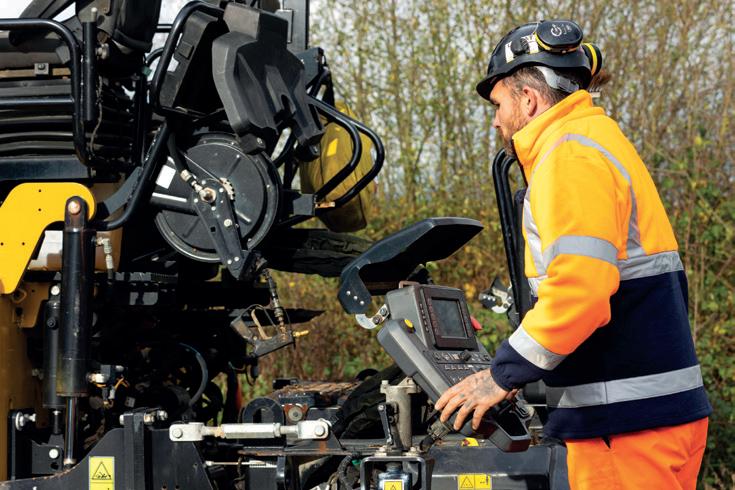
While helping a schoolfriend’s father with gardening duties,
Connor clearly made an impression on him, and when, years later, the new owners said they were looking for someone to clear some tracks through woodland, the gardener recommended his short-lived apprentice.
“He had noticed the Leggat Plant signage on some of my vehicles locally and suggested that I might be able to help,” Connor explained. “We created the tracks and were then asked to clear the site of the old house before going on to carry out some pretty large groundworks and earthworks projects.”
DECEMBER 2022 | WWW.SOUTHEASTFARMER.NET 42 CONSTRUCTION
Connor Leggat
As the work became more technical, the Leggat Plant team continued to rise to the challenge and were asked to take on more projects. In one which highlighted the flexibility and variety of skills possessed by the team, Connor was asked to rebuild a large and imposing greenhouse after the remains of the building were discovered in the grounds.
Connor has since become good friends with the estate’s new owners, something that has become a recurring thread throughout his career to date. “Our goal is to work with farmers and landowners to help them achieve their dreams, and when you work that closely with clients they often become friends over the course of the project,” he said.
“We have a passion for what we do. What makes us get up in the morning is knowing that we are helping farmers and landowners get their businesses into great shape for future generations.”
One of the farmers benefiting from that ambition is setting out to create a sustainable dairy business in Lingfield, helped by the Leggat Plant team.
The company built a new, larger, external silage clamp at the site before removing the old internal clamp to make space for a new and more efficient cattle handling system.
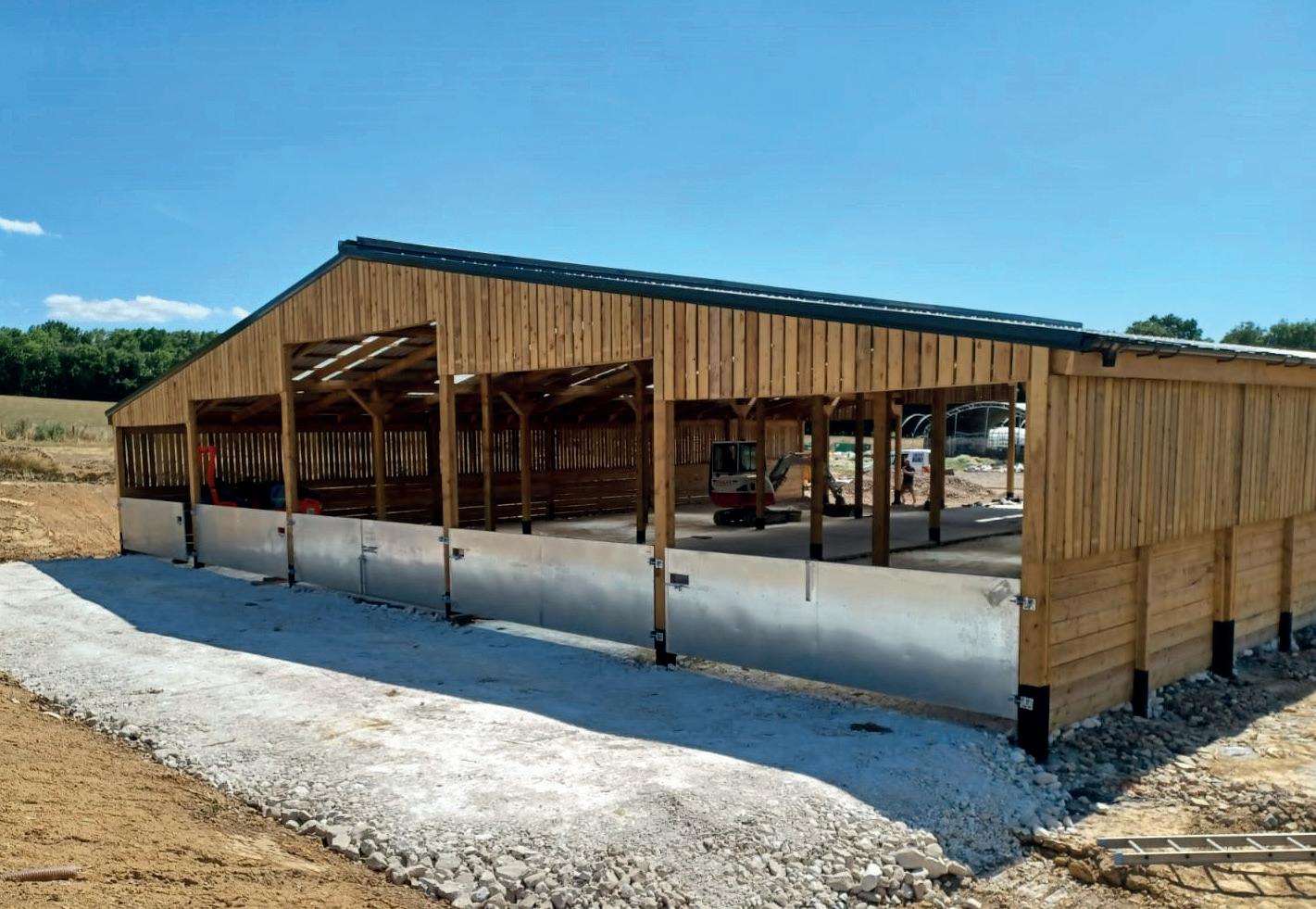

“We enjoy seeing farmers and landowners growing into the buildings we construct for them and making the most of the opportunities we help deliver.” Connor explained.
It is a philosophy that can make recruitment a challenge for the East Grinstead based company. “We have to work hard to find the right people to join such a close-knit, passionate team,” said Connor. “We know when we’ve found them, though, and we value their contribution to our ambitious plans.”
The current 14-strong team includes an efficient back-office team that ensures the team leaders and operators are fully prepared for whatever the day holds in store.
As well as groundworks, land drainage and general construction work, Leggat Plant supplies and lays tarmac using its paver, lays concrete slabs and erects steel-framed buildings. “We see ourselves as working with customers rather than for them,” Connor added, “and while the company expands, the farming community will always be an important and valued part of our business.”
Leggat Plant also works with renewable energy companies installing ground source heat pumps, and has been working at a National Trust property in Dorset to deliver the charity’s biggest renewables project to date.
As well as carrying out the groundworks, Leggat Plant built the plant room for the heat pump, jumping through understandable architectural hoops to make sure it was in keeping with the historic building, a project that involved sourcing bricks and slate tiles from North Wales.
The company also suggested the use of a liquid rubber treatment instead of lead for the roof, seamlessly blending traditional design with modern technology in a move that impressed the National Trust.
The Leggat name is well known in the East Grinstead area. Connor’s grandfather Alex was born at Mill Place Farm in the 1900s, running a dairy and later a beef herd, supported by Connor’s father Chris. The land was rented from the Forestry Commission, and when it decided to sell it in 1999, a year short of the centenary, the family left farming.
WWW.SOUTHEASTFARMER.NET | DECEMBER 2022 43 TO ADVERTISE CALL 01303 233883
FEATURED COMPANY: LEGGAT PLANT >> sales@leggatplant.com @leggatplant @leggatplant ✉ Leggat Plant & Civils Ltd LEGGAT PLANT Leggat Plant and Civils Ltd. East Grinstead, West Sussex RH19 4LZ Tel: 01342 325738 www.leggatplant.com CIVIL ENGINEERING GROUNDWORKS CONSTRUCTION





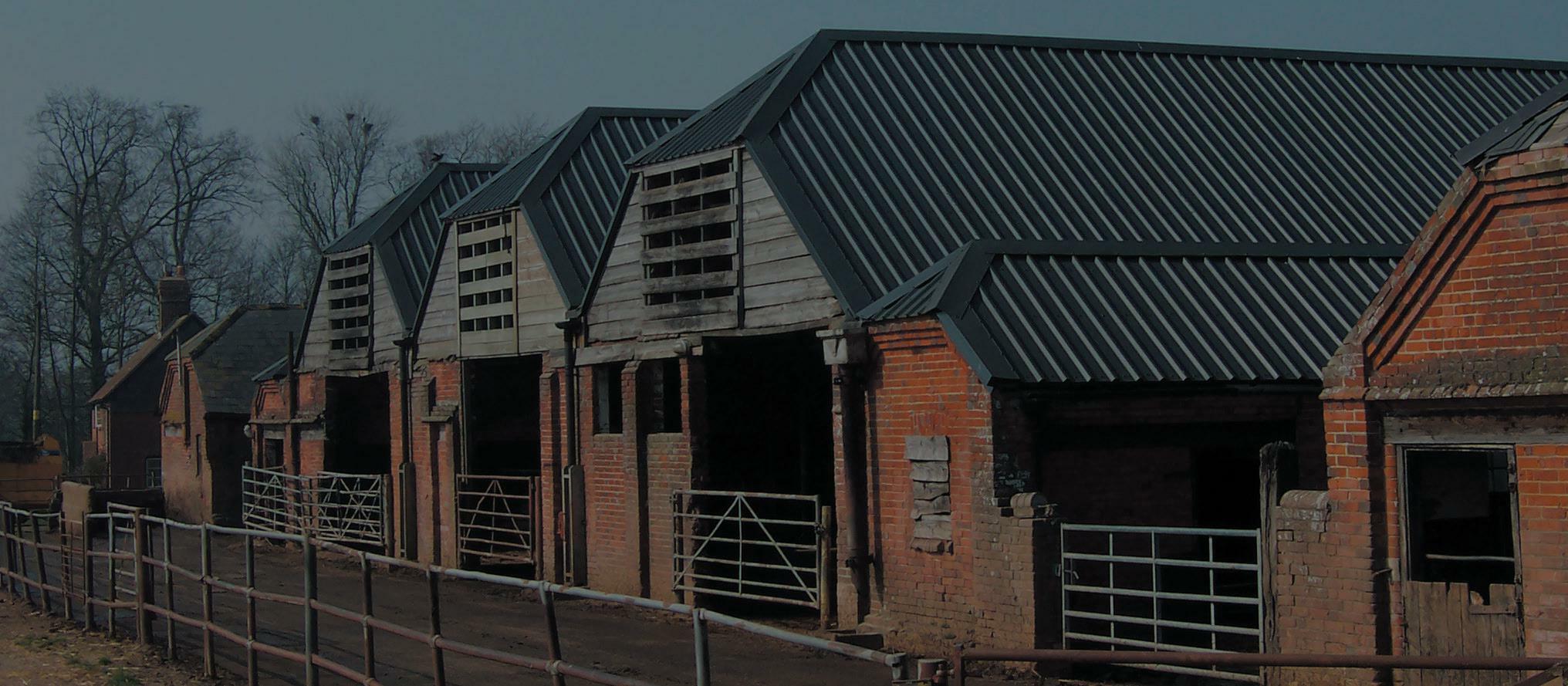











































































































































































































































































































































































































































































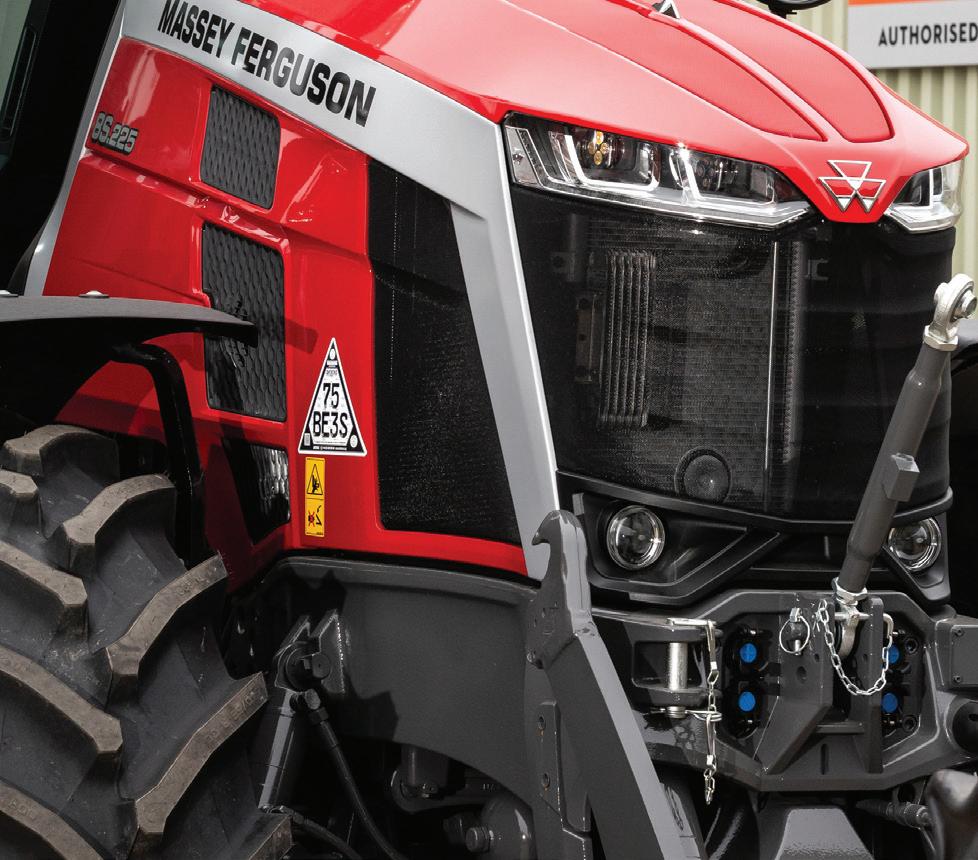

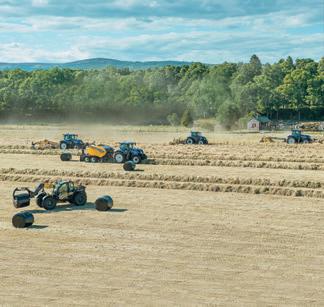





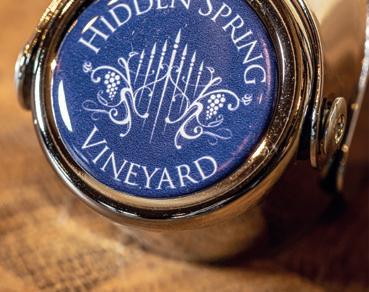





















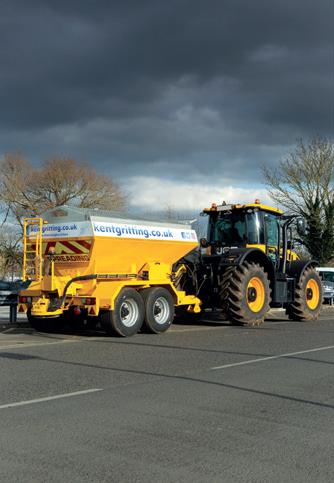



















DECEMBER 2022 | WWW.SOUTHEASTFARMER.NET 44 01342 363000 www.ashdownsolutions.co.uk In I.T. Together Cyber Security Protection Office365 Cloud Migration Remote Working Solutions Business VoIP Solutions Server and Network Support Onsite and Remote Support Services Business WiFi Solutions Backup and Disaster Recovery 01342 363000 www.ashdownsolutions.co.uk In I.T. Together Cyber Security Protection Office365 Cloud Migration Remote Working Solutions Business VoIP Solutions Server and Network Support Onsite and Remote Support Services Business WiFi Solutions Backup and Disaster Recovery 01342 363000 www.ashdownsolutions.co.uk In I.T. Together Cyber Security Protection Office365 Cloud Migration Remote Working Solutions Business VoIP Solutions Server and Network Support Onsite and Remote Support Services Business WiFi Solutions Backup and Disaster Recovery 01342 363000 www.ashdownsolutions.co.uk In I.T. Together Cyber Security Protection Office365 Cloud Migration Remote Working Solutions Business VoIP Solutions Server and Network Support Onsite and Remote Support Services Business WiFi Solutions Backup and Disaster Recovery NATIONWIDE DELIVERY • EXTENSIVE RANGES IN STOCK southernsheeting.co.uk Supplying profiled roofing products to contractors, builders and farmers visit www.southernsheeting.co.uk for our full range or call 01342 590 357 to speak to our friendly sales team Our main products off the shelf include: • Metal sheeting • Insulated panels • Fibre cement • Rooflights • Onduline • Fixings and accessories • Flashings and fabrications CS3152 SS SE Farmers 190mm x 133mm advert v2.indd 1 10/11/2022 12:54 GROW YOUR BUSINESS WITH US. Reach your target audience by advertising your products/services in our popular titles. Book now by calling Jamie on 01303 233883 or email jamie.mcgrorty@kelsey.co.uk K E E m d a K E E m d a S E m d a m a Thinking of buying USED? See our advice & tips section See inside front cover BALER SPECIALFINAOFFERS AVAILABLE SEE OUR LATEST NEW HOLLAND IMPLEMENT OFFERS INSIDE VINEYARD CONSULTANTS & acquisition Planning Business plans Environmental matthew@c-l-m.co.uk VINEYARD For Growers & Winemakers in Great Britain INSIDE A viticulturist's diary Are weeds welcome? Bolney Wine Estate sold Matthew Jukes has found some unexpected heroes EYARD Hiddeneternalsprings Farming is changing like never before. The opportunities are out there. CLM offers new ideas values. business & estate management Subsidies grants Land sales acquisition Planning & development Natural capital ecology www.c-l-m.co.uk KENT GRITTING SEE PAGES 76-77 FOR A UNIQUE BUSINESS OPPORTUNITY NATURAL AFFINITY HAYNES' ACQUISITION OF OAKES BROS BRINGS TOGETHER TWO LONG-ESTABLISHED FAMILY NAMES EXCELLENT GRITTING VENTURE VISIT US: www.southeastfarmer.net | www.farmmachinery.co.uk | www.vineyardmagazine.co.uk
After leaving school Connor attended Plumpton College, where he studied landbased technologies/agricultural engineering. After leaving college he worked with farming contractor BJ Foster doing silaging and combining work.
After two years he began working for a dealership, a move that convinced him he needed to work for himself. “The most important thing I learned from that experience was how not to manage people,” he commented. “It inspired the somewhat different philosophy that underpins Leggat Plant.”
It was a fellow rugby player who kicked off the business after suggesting Connor should buy himself a digger so that he could help with his landscaping business. It soon took off. “Within a short space of time I was doing groundworks for local building companies,” he recalled.
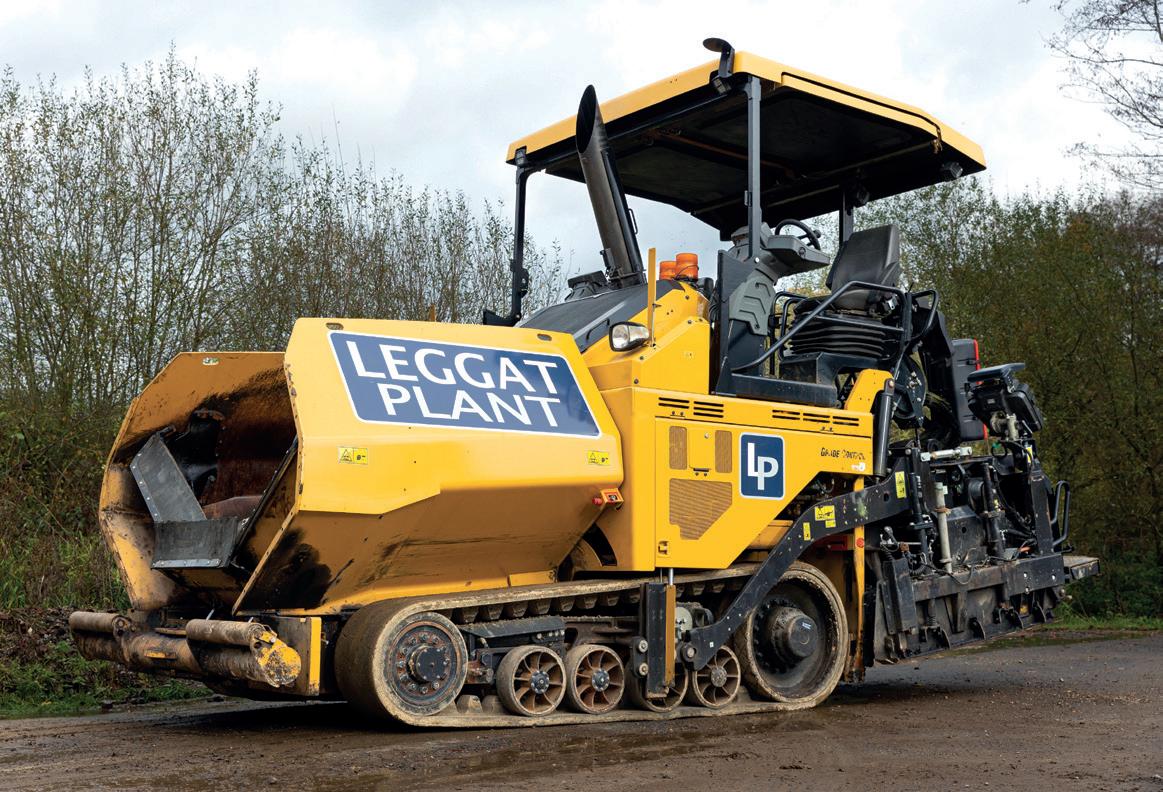
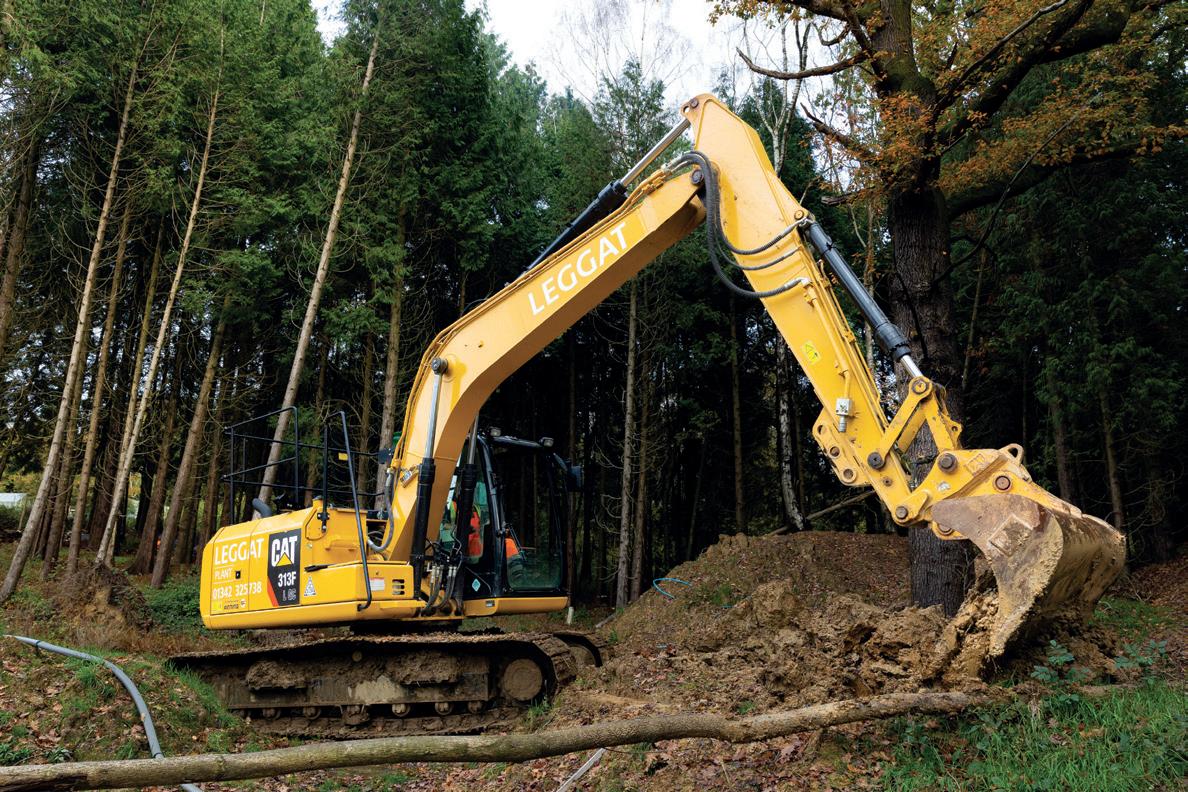
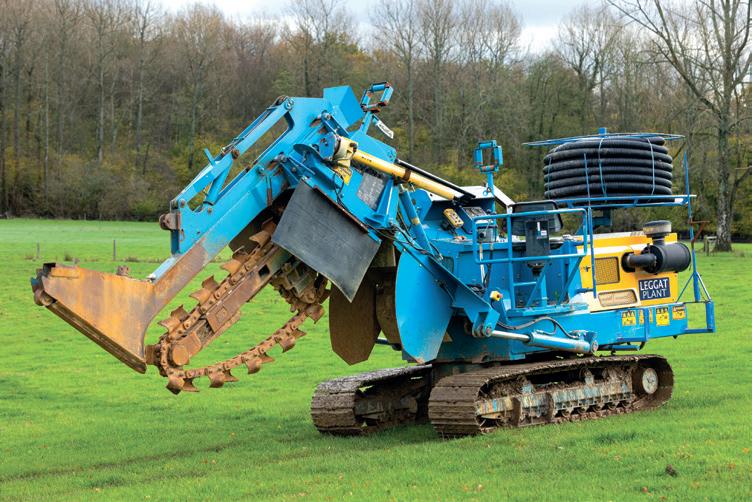

Rugby is important to the company, with many of the team playing or coaching a range of age groups and team sponsorship forms part of its local community support. The company is also a great supporter of the East Grinstead and Three Counties Ploughing

Match, with Connor its chief steward and his father Chris the treasurer.
His big break came when he was walking close to his former family home at Mill Place Farm in 2018 – “just keeping an eye on the place” – when he bumped into an associate of the new owner, who informed him that they were looking for a groundworks company to help re-sculpt some of the site to create what is now Kingscote Vineyard.
That particular project involved sub-soiling 100 acres of sandstone at five metre intervals using a metre long ripper leg attached to his Caterpillar bulldozer. Although the technical spec said it shouldn’t have been capable of doing it, Connor bought the ripper and set about installing it to the bulldozer.
Leggat Plant’s “breakthrough” project at the vineyard was also the site of the company’s first steel-framed building, a 25m x 15m machinery store.
Still only 29, Connor’s success to date bodes well for Leggat Plant’s future. It looks certain that Mill Place was just the start of a long and prosperous journey for a business that seeks the same level of success for its clients.





WWW.SOUTHEASTFARMER.NET | DECEMBER 2022 45 TO ADVERTISE CALL 01303 233883 CONSTRUCTION
FEATURED COMPANY: LEGGAT PLANT << Container Sales & Rental New & Used Guaranteed Wind/Watertight equipment 10ft, 20ft & 40ft Equipment available Crawley –viewing by appointment only Freight Container Services (FCS) 01403 268723 • 01636 616335 • 07831 142 401 sales@fcs-uk.co.uk www.freightcontainerservices.com
The weather is a major factor in the fortunes of livestock farming, and this has been clearly highlighted by the extreme conditions this summer. The worst drought on record was still having an impact just four to six weeks ago, with no late summer grass, poor or little root crop growth, if planted, and many cattle farmers in need of a further cut of grass. Many producers were forced to sell store stock earlier in the season than usual and supplies of slaughter stock were tight.
How things have changed, with the autumn rain and exceptionally mild conditions turning the landscape green again and bringing much comfort to the livestock industry. These favourable conditions late in the season will save considerable feed costs over the coming months and have already given a welcome boost to the trade for store stock.
At Ashford market, throughput figures for sheep since 1 June are well up, with 110,000 head traded to date, a figure made up of 32,000 finished and 56,000 store lambs, 12,000 cull ewes and 10,000 breeding sheep.
While numbers in most departments are very much on par with last year, the store lamb throughput is up 10%, with several producers opting to sell earlier as stores as opposed to finishing and selling later in the season.
The market has been exceptionally well supported by vendors from all over the south east and eastern counties (380 individual producers) trading to buyers all over the UK (300 individual purchasers) – again highlighting the great strength of the auction system.
Throughout the season finished lamb prices have been above those achieved last year, with the exception of October, when the average price dipped slightly below the comparable figure. However, even at this seasonal low the best fleshed lambs with weight continued to attract premium prices, often in the £115 to £120 bracket.

At the time of going to press, mid-November prices have improved, with an overall average just short of 250p and a big premium for the best heavyweights, grossing in excess of £130.
The cull ewes keep coming, with big entries of late, and while overall averages are back on the highs of the spring, much of this is reflected in the big percentage of lean ewes on offer. Just short of 1,000 ewes penned recently met a flying trade throughout, with 15 buyers competing for all on offer. Heavy fleshed
ELWYN DAVIES
Reporting on the sheep market at Ashford T: 01233 502222 www.hobbsparker.co.uk
A MILD AUTUMN BRINGS RELIEF TO THE LIVESTOCK INDUSTRY
crossbred ewes are attracting prices in excess of £120 and up to £135, with a favourable overall average of £80.
The Friday store lamb and breeding sales attracted big entries from the start, with between 4,000 and 7,500 traded each week. Although prices were back on the highs of last year, trade generally held well and level considering the drought conditions.
Average store lamb prices of around £75 were the norm, with the best selling readily around £90 and only small long keeping sorts below £70. The latest sale in early November saw prices lift by some £5 to £6 per head thanks to the unexpected rise in the finished market and recent improvement in the keep situation throughout the country.
The special autumn sales proved successful, with 1,800 Suffolk X Mule ewe lambs sold in early September, with a superb run of 500 from D Howard Farms again taking top honours,
topping at £126 and returning an impressive overall average of £120.
The Monday afternoon ram sale in September continues to grow and increase in popularity. A quality entry was rewarded with top prices of up to £800 and a favourable average of £530. We will certainly be looking to grow this sale again next year.
The Romney Day sale on 30 September attracted 6,000 head, with 54 different vendors trading to 98 individual buyers at prices often in excess of expectations. Around 2,000 ewe lambs topped at £126 from Langrish Farmers, with the best selling readily in excess of £110, while a big entry of ewe tegs topped at £168 from Swallow Mill Farm, with the best in excess of £140. There was almost a total clearance of rams, with 82 selling to a keen audience which took the bidding to £2,500 for a superb teg from H V Link Partnership and an overall average of £565.
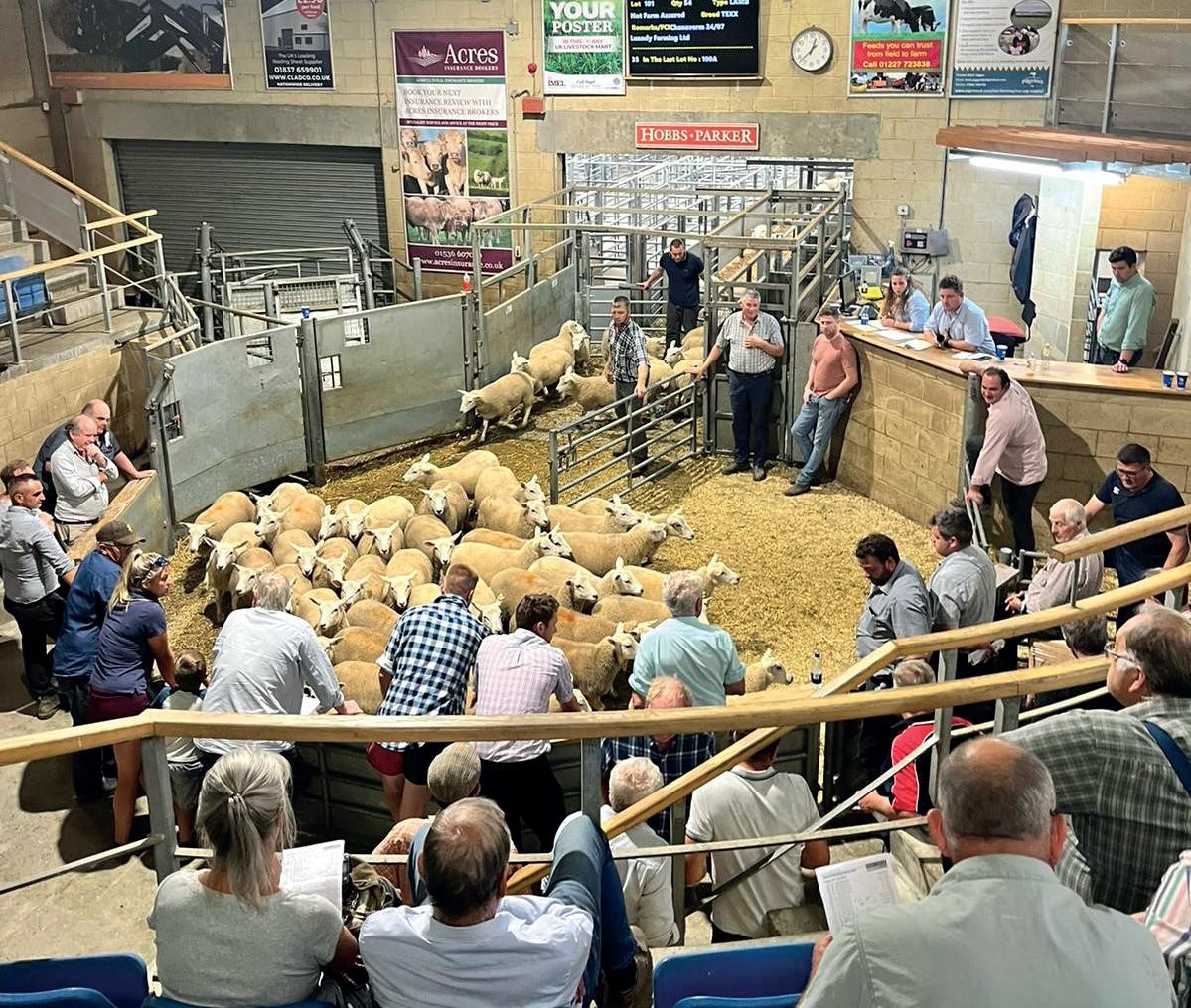
DECEMBER 2022 | WWW.SOUTHEASTFARMER.NET 46 AT ASHFORD MARKET
This month the annual RUMA Target Task Force Report has been published, showing commendable further progress in UK agriculture’s voluntary approach to ensuring responsible use of antibiotics. Sales figures for 2021 show a further decline in use by 6%.


I attended this month’s British Mastitis Conference in Worcester, where Kingshay reported a continued decline in overall antibiotic use on dairy farms. The use of dry cow antibiotic tubes and lactating cow antibiotic tubes both decreased in 2021. Importantly this has been achieved without compromising the incidence of mastitis, which itself has continued to decline over the past five years from 39 to 30 cases per 100 cows per year.
The decline in the use of antibiotics is not just caused by a decline in mastitis. Many farmers are now not treating mild cases of mastitis with antibiotics but allowing them to respond to non-antibiotic treatments such as uddermint or allowing them to self-cure.
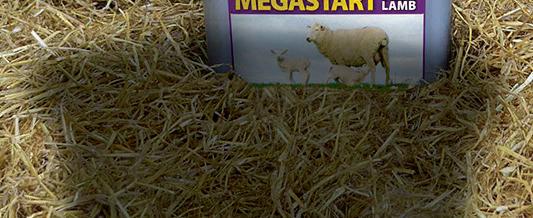
In addition, the greater use of on-farm rapid diagnostic kits can identify E coli infections which many now treat without antibiotics, relying instead on non steroidal anti inflammatory drugs (NSAIDs) and fluids. Culling cows for mastitis and chronic high cell counts has increased in 2021, which is a recognition that some cases are simply incurables and that continued repeat treatments are a waste of antibiotics.



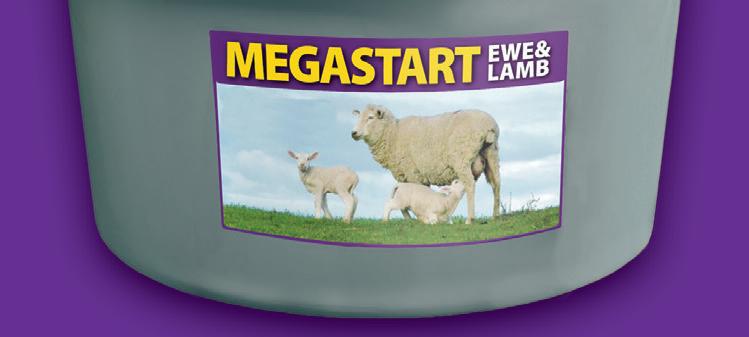


Surprisingly there has, however, been a slight decline in the use of teat sealants over the past five years, which may be related to herds with cheese contracts having concerns about blackspots in cheese caused by teat sealants.


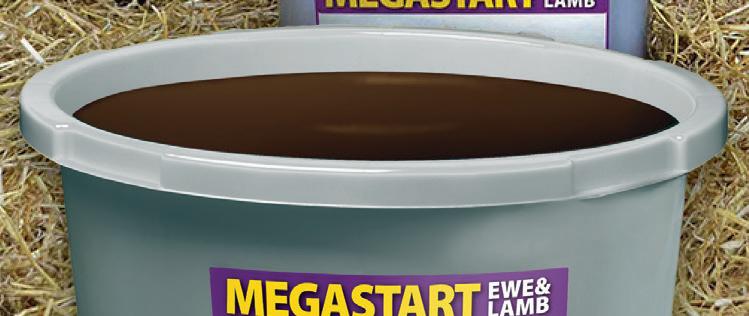

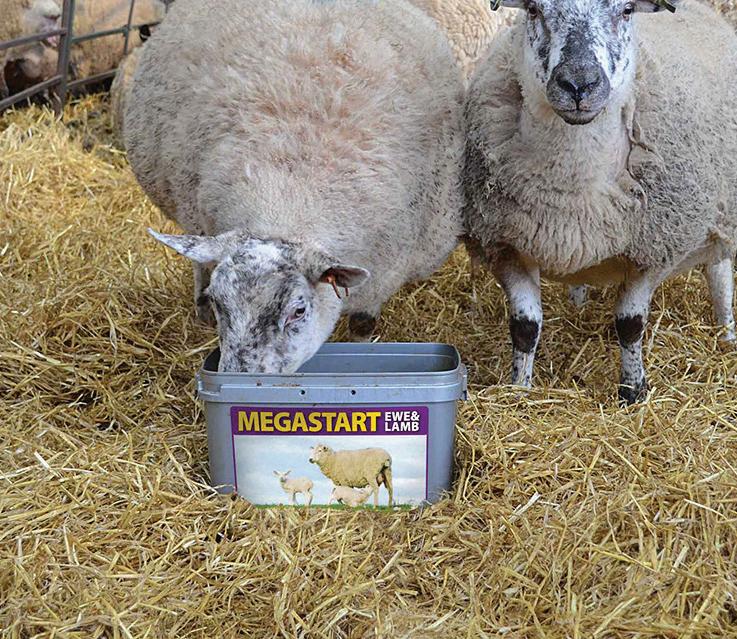
Training in the correct administration of teat sealants at drying off as well as protocols for the effective removal of the sealant at calving will prevent this from occurring. The current level of teat sealant usage is below the 2020 RUMA target of 0.7 courses/cow. Increasing this figure in 2023 will further reduce the incidence of mastitis and antibiotic usage.
All in all, we are demonstrating that as an industry we are successfully, responsibly, and voluntarily reducing our usage of antibiotics, which I trust will continue into 2023.


WWW.SOUTHEASTFARMER.NET | DECEMBER 2022 47 TO ADVERTISE CALL 01303 233883 VET DIARY
MEDICINES AND MASTITIS BILL PEPPER MRCVS BVSc CertCHP, Cliffe Veterinary Group T: 01273 473232 E: bill.pepper@cliffevets.co.uk www.cliffefarm.co.uk MEGASTART EWE&LAMB 01292 280909 www.scotmin.com info@scotmin.com Or contact your local supplier The best START in life you can give A free access feed tub used in the 4-6 weeks prior to lambing Provides ewes with an excellent source of energy from sugars, starch and protected fat Includes high quality MOS designed to improve colostrum quality Vitamins, minerals and trace elements incorporated at optimum levels to achieve enhanced animal performance High in Vitamin E and Selenium to promote a healthy immune system Available in 80Kg and 20Kg Tubs Follow Scotmin
ARE YOUR CALVES AT RISK THIS WINTER?
Bovine respiratory disease (BRD) is a complex, multi-factorial disease which causes inflammation of lung tissue and subsequent damage to the respiratory tract causing pneumonia. BRD can have a significant impact on farm productivity, including reduced daily live weight gain in the short term and reduced milk yield in the long term.
The loss of future performance due to irreversible lung damage is often hugely overlooked. Calves are the future of a herd and taking care of them from an early age will decrease costs throughout the lifetime of the animal, increasing profitability. It is estimated that pneumonia costs the UK cattle industry nearly £80 million each year.
Factors that affect the risk of calf pneumonia include the calf’s environment and immune status and the presence of disease-causing pathogens. Environmental risk factors include high humidity, poor ventilation, draughts and low temperatures. The calf’s immune system and its ability to fight off disease will depend on the quantity and quality of colostrum they receive in the first few hours after birth.
HOW CAN I TELL IF MY CALVES ARE AFFECTED?
It can be difficult to notice the early signs of calf pneumonia. Calves present with a high temperature in the initial stage of the disease, with subsequent clinical signs showing two to three days later.
These signs may include:
• Reduced appetite
• Coughing
• Breathing difficulties
• Nasal/ocular discharge
• Depression
• Separation from group.
If you suspect a calf is unwell or showing signs of pneumonia, take its temperature. If it is above 39.5⁰C, this suggests the animal has an infection and will need treatment. Early treatment is key for a successful outcome.
It is important to work closely with your vet to determine which respiratory pathogens are involved and therefore which antibiotic treatment (if any) is most appropriate.
Anti-inflammatories should be used alongside antibiotics as this will help reduce the calf’s temperature and improve its general demeanour so that the calf continues to eat and drink. Calves will benefit hugely from additional supportive treatment such as oral rehydration. These oral solutions contain ingredients that help correct the electrolyte imbalance while also giving the calf a source of energy.
Key preventative measures:
• Good colostrum management
• Ventilation
• Draught free environment
• Maintaining environmental temperature
• Vaccination.
Calves are born with no antibodies and rely solely on the passive transfer of antibodies via the dam’s colostrum in the first few hours of life. It is important that calves receive good quality colostrum as quickly as possible after calving. As a guide, calves should receive four litres, or 10% of bodyweight, of colostrum within the first four hours of birth, for example a 50kg calf should receive five litres of colostrum. This should be followed up by a further two litres within the first 12 hours of life.
A Brix refractometer is a useful tool that can be used to measure the quality of colostrum. Colostrum with a Brix refractometer reading above 22% is considered high quality colostrum.
A housing assessment can help identify problematic areas and provide solutions to help reduce disease challenge within the calf shed. Good ventilation is essential in preventing respiratory disease as this helps to remove stale, damp air.
Cobwebs in calf sheds are often a sign of poor ventilation. While fresh air and good ventilation is vital, it is important to avoid draughts, particularly when housing young calves. The target wind speed within a calf shed is 0.2 metres per second, with wind speeds above 0.5 metres per second resulting in draughts.
Providing calves with effective barriers to draughts such as places to shelter, plenty of bedding and calf jackets will protect them from cold stress. As soon as night temperatures drop below 15⁰C, calves use energy from the milk to keep warm rather than grow. Growth rates will then fall and calves will become more susceptible to disease. Further information regarding better calf housing can be found on the AHDB website.
Lastly, vaccination can be used to provide immunity against common bacteria or viruses that contribute to BRD. Following investigation, your vet can advise on the most appropriate vaccine for your farm.
Vaccines should be administered ahead of the high-risk period to ensure that there is sufficient time to develop effective immunity. It is important to note that although vaccination helps control pneumonia, it is not a substitute for good housing and management.
Westpoint Horsham T: 01306 628086
Westpoint Ashford T: 01306 628208
If you would like to discuss anything covered in this article contact your local Westpoint practice
Westpoint Sevenoaks T: 01959 564383
Westpoint Winchester T: 01962 779593
Westpoint Chelmsford T: 01306 628489
If you would like more information on preventative calf health measures offered by Westpoint Farm Vets contact:
DR
TIFFANY ETHERINGTON
BVMSCI MRCVS
E: Tiffany.Etherington@westpointfarmvets.co.uk
T: Westpoint Farm Vets Winchester
DECEMBER 2022 | WWW.SOUTHEASTFARMER.NET 48 ADVICE FROM THE VET
E: info@westpointfarmvets.co.uk www.westpointfarmvets.co.uk
With Christmas fast approaching, the weather in Essex and Suffolk during late October and early November was exceptionally mild, resulting in tremendous growth in all arable crops and grass.













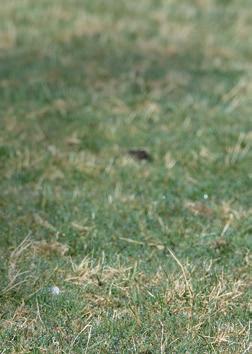
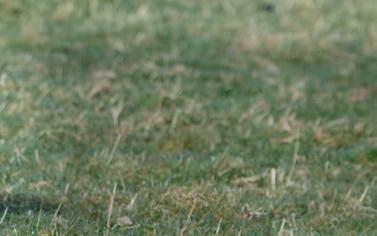
The grass growth gave some benefit to livestock farmers who struggled throughout the summer and early autumn with grazing, meaning that livestock could be kept out longer than perhaps would be normal. Unfortunately, fodder crops such as fodder beet and stubble turnips have been slow to recover and it could well be a real issue in the spring in this area.

The livestock market continued to show exceptionally good prices for all stock, with many more cattle and sheep required in all sections.
Prime cattle continued to sell at strong rates, with buyers looking to stock forward for Christmas and all quality beef selling easily. Best beef cattle are selling in the 260p/kg to 280p/kg price range each week, with weight generally no issue and plenty of cattle trading from £1,700 to £2,000 per head. As always, well-finished cattle have been selling at a premium, with numbers well below demand.

It is fair to say that the sale prices need to be where they are to see any return to finishers, given the high cost of store cattle and the high cost of feed to finish stock. Let us hope that with Christmas approaching the trade continues to be strong.
As has been quoted many times, the processing beef trade is still exceptionally good. There was a strong trade for cull cattle and over age steers and heifers throughout the period.
The store cattle trade is somewhat selective. Younger cattle are seeing a slightly more difficult trade to reflect the higher cost of finishing, but strong forward cattle are easily selling. Unfortunately there are still several suckler herds deciding to sell up, giving serious concerns about the numbers of finished cattle which will be available in the TB4 areas of East Anglia.
EXCEPTIONALLY GOOD PRICES









The sheep trade is also at strong levels, although now only in line with 12 months ago, when we saw a strong uplift in the trade. A blip in early November when the sheep trade took a tumble quickly rectified as numbers tightened and levels recovered strongly to last year’s levels.
Best lambs are trading around £140 to £150 per head and around 300p/kg liveweight.

As with all sections in Colchester, quality is paying and a few pens of leaner lambs have been more difficult to place at similar levels.
The store sheep trade is also less than 12 months ago, with serious concerns about spring feed, but with the jump in the finished lamb trade in the middle of November the store trade also strengthened. Very best strong store lambs have been trading from £90 to £100 and long-term lambs from £40 to £60 per head.

The cull ewe trade continues well, in line with all other areas, with strong ewes keenly sought and a good trade for lean-meated ewes. Grazing ewes are suffering slightly, due again to lack of feed.
The pig trade is still at high levels; a record historic level but still well below the cost of production. There are concerns, as has been said in many recent reports, about the high cost of feed and an apparent buildup of pork on the continent.
Many sows are still being culled as producers lose confidence in the future. It is a difficult time for all pig farmers.
With Christmas fast approaching, we also saw difficult times in the poultry industry, with Avian Flu causing massive numbers of poultry to be slaughtered in East Anglia, raising a serious concern about the availability of numbers for the Christmas trade. It is likely that this year, for the first time in living memory, we will not see a poultry sale in Colchester market at Christmas. When you consider that only 10 years ago we were selling in excess of 4,000 turkeys, chickens and geese in three sales, this is quite a change.
WWW.SOUTHEASTFARMER.NET | DECEMBER 2022 49 TO ADVERTISE CALL 01303 233883
AT COLCHESTER MARKET GRAHAM ELLIS FRICS FAAV FLAA For and on behalf of Stanfords T: 01206 842156 E: info@stanfords-colchester.co.uk www.stanfords-colchester.co.uk
MADE WITH EWE’S MILK MOTHER KNOWS BEST Maximise Digestibility Optimise Growth Maximise Intake Boost Immunity with ewe milk replacer lamb force® For the BEST ADVICE on giving your lambs the best start contact your local Downland retailer: www.downland.co.uk
ALAN WEST Sheep farmer
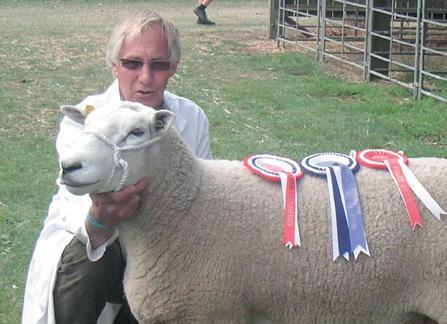
As we approach the year’s end, thoughts go back to its start. January arrived with a degree of expectation and hope, tinted with an element of uncertainty, but few would have predicted the challenges that were to come, amongst which the weather featured most prominently. Other challenges, mainly the impact of the soaring costs of energy and other inputs, compounded by political and economic indecision and confusion, have led us to the situation where we end the year with a significantly greater level of uncertainty.
IT’S A SMALL WORLD
Sheep keepers are, by now, largely committed to next year’s production uncertain as to what sort of market we will face next year, how much the cost of living crisis will impact on our customers and their purchasing decisions, what the impact of changing cost structures will be or in what direction government policy (as yet unclear) will attempt to steer us in; all will have an effect.
An interesting note at this point is that more farmers have, to date, applied for exit payments than for the various environmental schemes. But, however challenging the past year has been, uncertainty is no stranger to the sheep sector and it is a time to look forward and seek the positives. In doing so there is one constant that I find most reassuring; the resilience and adaptability of many within the sheep sector.
You must forgive me for a bit of a digression here, but I am sure you will see the point, eventually. At the end of October I was fortunate to attend the Lleyn Sheep Society’s AGM, which, being the 50th, was held in Llanberis, North Wales. So what does this have to do with the future of the sheep sector in the South East? Superficially nothing, but in reality everything. Personally it was good to be back in North Wales, our old stamping ground for a number of years, and it brought back many fond memories.
More years ago than I care to remember, as an agricultural student at University in Bangor I worked, weekends and holidays, on one of the university farms, typical of the region with a mountain flock and a Welsh Black suckler herd. To assist with this I had acquired a smart, young Collie by the name of Nell, who was shaping up to be quite a good, stylish worker.

Opposite the farm lived Goronwy, retired, a sheep farmer but still very keen on his dogs and a Welsh trials team member. Goronwy, eager to know what was going on, would, whenever the opportunity arose, stroll across the road for a chat, which became a bit of a ritual. At the time both Goronwy and I were pipe smokers and, after a few pleasantries in a mix of Welsh and English, he would get out his pipe, rummage in his pockets for a moment or two and then, with feigned surprise, ask if I could spare a fill (of tobacco), knowing that I would not refuse.
Goronwy was a master of packing my tobacco resolutely into his pipe, firming it down and then ramming in a bit more, now so tightly packed
that he could not light it. After a few attempts at doing so he would quietly slip the unlit pipe into his pocket, complete with sufficient tobacco to provide a couple of decent smokes during the course of the day.
Keen to divert attention, he would then change the subject to my Nell. “Smart dog that“, “How’s she coming on?”, “A decent little worker” etc. but I knew exactly what was coming, inevitably. ”Do you want to sell her?”. He never did manage to buy her; in fact, when I went to work overseas for a few years; she ended up as successful hill dog in the Lake District.
The point is that Goronwy, although retired, was still very much a sheep farmer, determined to make the most of any situation; it just happened to be my tobacco. He also had a good eye for any opportunity, i.e. my Nell. Others may not be so generous in their interpretation, but Goronwy possessed the characteristics that help many sheep producers get by in difficult times, determination and the willingness to pursue opportunities as they arise.
The latter was particularly appropriate to a visit over the course of the AGM weekend to Glynllifon College, where two aspects in particular stood out; firstly that as an institution it is still very much a college of agriculture, unlike many others around the country. OK, so it is in an area where livestock farming, with a large number of family run farms, is a vital part of the local economy. It is also in the fortunate position where the value of agriculture and how important a contribution agricultural education makes to the industry is recognised and appreciated by the Senedd Cymru (Welsh Parliament).
The second outstanding feature was their capacity to innovate, innovation that is not only recognised but also appreciated and looked to by local farmers. The fact that the farm manager also happens to be the head of agriculture is, I’m sure, an important contributor to this and has led to close connections and understanding between curriculum and farm; very refreshing to see.
One recent innovation has been the decision to establish a sheep milking flock on the college farm, a process that is currently underway with several hundred of the College’s Lleyn ewes having recently been artificially inseminated with Assaf (a stabilised Awassi x Friesland milk sheep breed) semen, the lambs set to provide the basis of the milking flock. The project is part of an important initiative led by Lleath Defaid
DECEMBER 2022 | WWW.SOUTHEASTFARMER.NET 50 ALAN WEST SHEEP TOPICS
"A smart dog, that..." Nell, our first collie
AUTUMN DRILLING SEEMS TO HAVE BEEN PREVALENT
Water, Water, Water everywhere. As I sit to write this, it’s pouring with rain again. The weather is still rather mild for the time of year, and I seem to have been plagued by a nasty bout of tonsilitis.
Being made to slow down has certainly helped my Christmas shopping, although I dread to think what may turn up. I’ve even ordered the turkey. Fingers crossed it’s all behind me now.
Combining in Australia appears to be intermittent as well, with the amount of rain that they have had. At home the remaining maize has been combined and is now in an ag bag having been crimped for added feed for the dairy cows.
Christmas will be upon us before we know it, and it will be a Christmas with a difference. The boys will all be working, all the horses are in, and Fergus being ‘down under’ will make it a little different. Nonetheless, we shall have our last nativity play to go and watch.
Excitement will be building as the children break up from school and pantomime season begins in earnest. Oh no it won’t! With a birthday on Boxing Day and a brother away, Zara is planning on stealing her brother’s horse to go on an exciting trail hunt with the East Kent with West Street Hunt.
Autumn drilling seems to have been prevalent in all areas of the country this year. Statistics show that up to 25% more autumn crops have been drilled in comparison to the past five years, presumably because the weather conditions have been so favourable.
Despite coming down from the highs in the spring, UK feed prices have remained historically high, driven by the Ukraine war and the tight global supply picture. The cropping of wheat seems to be on the rise, with a slight decrease in winter barley. Oilseed rape also seems to be on the rise again.
However, higher fertiliser prices and the effect of reduced fertiliser applications in 2022 will make interesting reading. Should growers apply less fertiliser to offset the cost of a more valuable crop? Ukraine’s winter wheat planting area is down by more than 40%.

With Ukraine being one of the world’s top wheat exporters, with essential buyers including Egypt, Tunisia, Morocco, Indonesia, Pakistan, and Bangladesh, a further drop in production will leave many scrambling to find alternative solutions. The race to secure grain could drive up the price globally.
Ukraine harvested around 19 million tonnes of wheat in 2022; usually they would harvest around 38 million tonnes, and with a further
Cymru (Sheep Milk Wales), which, supported by the Senedd, has assisted with extensive research and planning and which also supports a number of other private, commercial sheep dairying enterprises in the region. These developments recognise that sheep are not just about meat and wool. Sheep’s milk, although largely underrepresented in the UK, is an important and growing part of the global sheep sector. Globally, sheep milk production is increasing by 2.5% per year (compared with the cattle dairy sector at 1.7%), driven largely by Chinese demand, particularly for use in the baby milk market, something that has already been widely recognised by New Zealand producers. The college has, even at this early stage, also been able to identify suitable southern European markets for lightweight lambs from the dairy flock.
Probably the most important reassurance arising from the AGM weekend, however, was the ability of 100 or so sheep producers (Lleyn in this case) to come together from all corners of the UK not just as friends but also with a common purpose and interest. Happy to share experiences, not always in agreement but with the recognition that every sheep farm is different, as is every sheep farmer; none of us has all of the answers but, I suspect, each of us has some of the answers. It is this spirit
ANITA HEAD Farmer
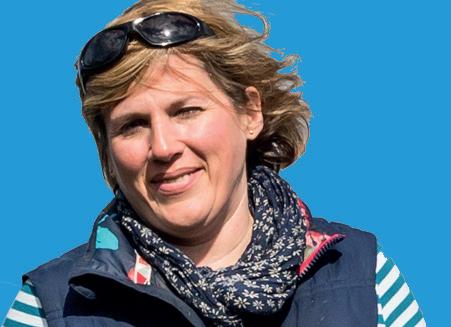
sharp drop predicted in 2023 it will certainly leave the world looking for alternative solutions.
As a nation we need to aim to become selfsufficient. This could be a little difficult in the current climate, and since the UK hasn’t been self-sufficient since the mid 1700s, the target may seem a little unrealistic.
In 2015 the NFU published a survey suggesting that over half the UK’s food will need to be imported from overseas in a generation’s lifetime. This has unfortunately become a reality in 2022.
Unfortunately, it is often cheaper to import food from other countries than to grow it locally. For example, although the UK can grow tomatoes, it is a very resource intensive process. Instead we can import them from the Netherlands as, even with import duties, it works out cheaper.
During Covid-19 the UK population turned and purchased local produce, and somehow we need to turn this around again. I don’t believe that the UK can ever truly be selfsufficient when it comes to food and drink, but if we all made small changes to our way of life by eating seasonally it would go a long way.
Until next time – wishing all our readers a very merry Christmas and a Happy New Year. Stay safe and take care.
of sharing and co-operation that is one of the key strengths of our sector. The weekend also provided a clear example of how small the sheep world is. At the conference dinner, friends, seated at a different table, called the boss over to introduce her to another guest sat at their table. The boss has her own small Herdwick flock (her choice) which, of necessity, to fit in with the Lleyn need to be MV accredited; a scarce commodity in the Herdwick world. The person she was introduced to was a Llyen breeder from just outside Glasgow who also happened to be the owner of the only other accredited Herdwick flock in the UK; it’s a small world!
Very best wishes to everyone for Christmas and for a joyous, successful and rather more certain New Year.
WWW.SOUTHEASTFARMER.NET | DECEMBER 2022 51 TO ADVERTISE CALL 01303 233883 ORGANISED
ANITA HEAD
CHAOS
Any area over 20 acres considered, fencing can be supplied. Good rates paid depending on acreage and grazing period.
– EMAIL:
WINTER GRAZING FOR EWES AND LAMBS WANTED Grass, forage or cover crops.
TEL: 07976 255431
frank.langrish@btinternet.com
T: 01264 321 595 www.openfield.co.uk






ELVED PHILLIPS ARABLE NOTES


As predicted in November, Russia did attempt to close the grain corridor from Ukraine and, indeed, the futures did spike £10 and more in one day. Unfortunately, the increase in the market only lasted for two days, giving no opportunity for ex-farm long holders to really sell anything.
Those who trade futures were able to take advantage of the brief rise. Alas, all of that gain has been given back, but, more concerning, another £20 per tonne has hemorrhaged from the wheat futures since. This may prove to be an over-correction, or it may mean we have a new lower price level in the UK for the time being.
As I have said many times, I try to focus and trade around what are perceived to be known fundamentals of supply, which should be a more exact science post-harvest, and demand, which is always more uncertain. I have tried not to join the many grain traders who have been war correspondents in the past nine months, operating their books in accordance with which way the war is going on the day.
Just to provide a backdrop to the market, you have to draw some conclusion. It’s clear that President Putin cannot win this war, yet he cannot afford to be seen to lose it either. That means it’s going on for a long time, but every war must end some time.
So while the market has almost become immune to some of it, there will still be

MY CRYSTAL BALL PROVED TO BE CORRECT
volatility and uncertainty. However, as is always the case, with any long-term problem or situation, the market finds a way to trade around it. Accordingly, those who were dependent mostly on Ukrainian exports have made other supply arrangements where they can.
Russian exports have hardly changed and they did not need a corridor really. Also, Ukraine has never stopped exporting by rail or road via its western border and via Polish ports on the Baltic. Amongst others, the UK has benefitted by additional sales of wheat to the Mediterranean and Iberian Peninsula, even Ireland.
It is noticeable that when there are grain corridor issues, buyers who always take Ukrainian grain suddenly switch some export demand to the UK and Europe, just to have that extra protection of guaranteed supply. Some are still smarting from having ships marooned in Ukraine ports for six months with no redress.

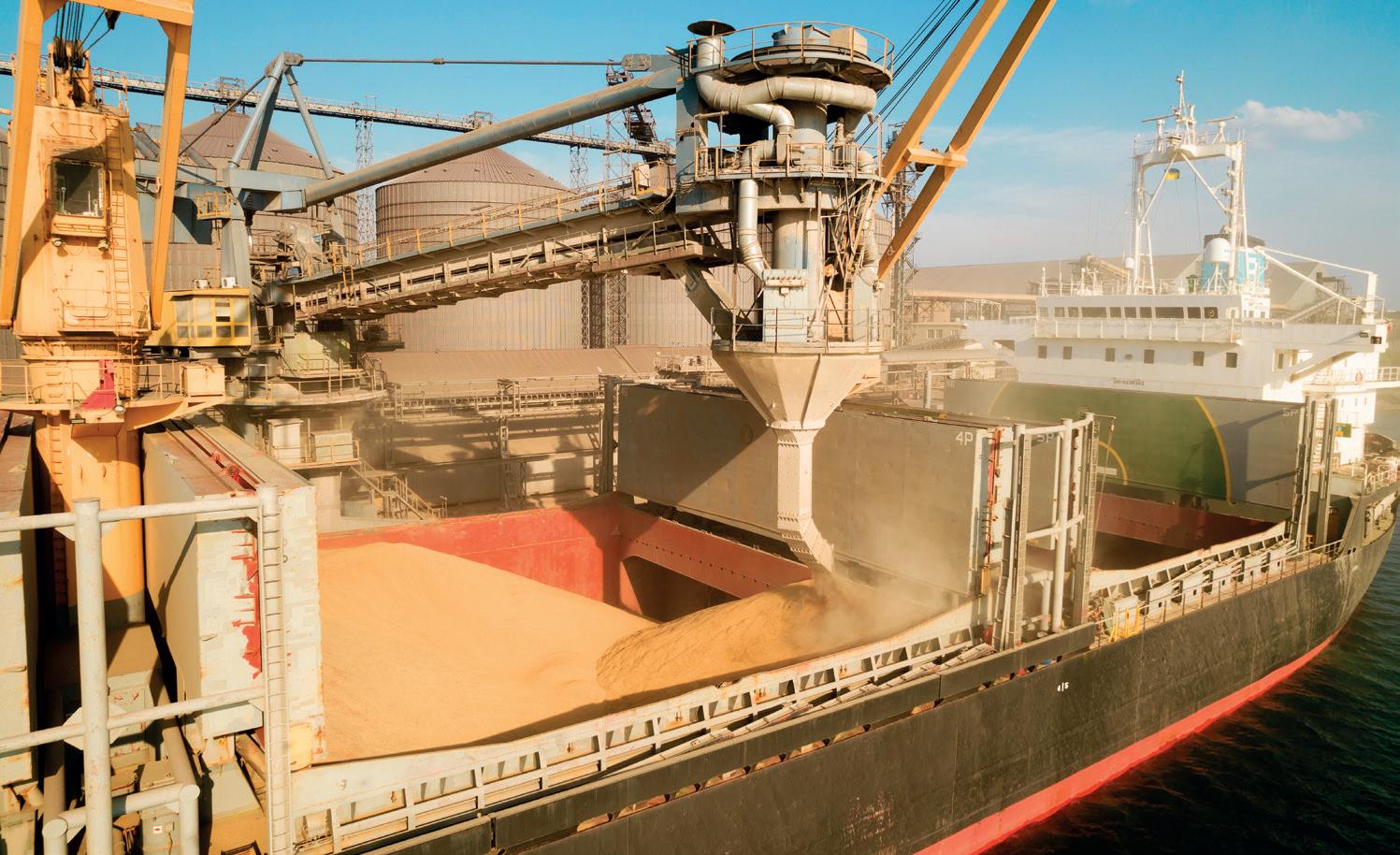
So it looks like the grain corridor will be extended for another four months at least. Some large importers will not risk putting all
their eggs in the Black Sea basket again, so the UK has been able to sell some extra feed wheat coasters for January, February and March.
The AHDB is still talking about a UK wheat crop surplus of 1.9 million tonnes. A lot of the industry think that figure is too high. Anyway, with the UK being the cheapest or second cheapest wheat in the world since harvest, we may have shipped a million tonnes by Christmas. So, if the other 900,000 tonnes is there, with the recent £20 fall in price we must be even more competitive.

We should be able to carry on exporting and could therefore get rid of this surplus by March. If we do, the whole market dynamic changes, for importing feed wheat would be very costly, as it would be now, even if it came from France.
Milling wheat premiums have improved as feed has collapsed, and could be as much as £60 per tonne. I can only repeat; in the light of everything that’s happened, you must have a very good reason if you are not selling your milling wheat at those values.
For interest only: The contract low for the London May futures was £167.95; that was a long time before the 2021 harvest or the war. During the early war it reached a high historical peak of £356.80. Today (18 November 2022) it’s £266. When the corridor was shut, albeit for a couple of days, it hiked to £302! So it’s lost £36 per tonne in the past three to four weeks.
All this demonstrates is that anything can still happen. OK, so we are never going back to the contract high or the low, but with a differential of £188 in the middle, there is still plenty of room to play. Last thought: As Liz Truss found to her cost, you can hold the most steadfast beliefs, based on the best information, but in the end the market decides what will happen, and you cannot buck its trend!
DECEMBER 2022 | WWW.SOUTHEASTFARMER.NET 52
ELVED PHILLIPS Openfield
Loading grain in the Ukraine
STORAGE
SEED
Photo: Elena Larina / Shutterstock.com
GRAIN
FERTILISER
As 2022 draws to a close, I think I could be forgiven for getting a little confused when reading the current headlines in the online farming press.
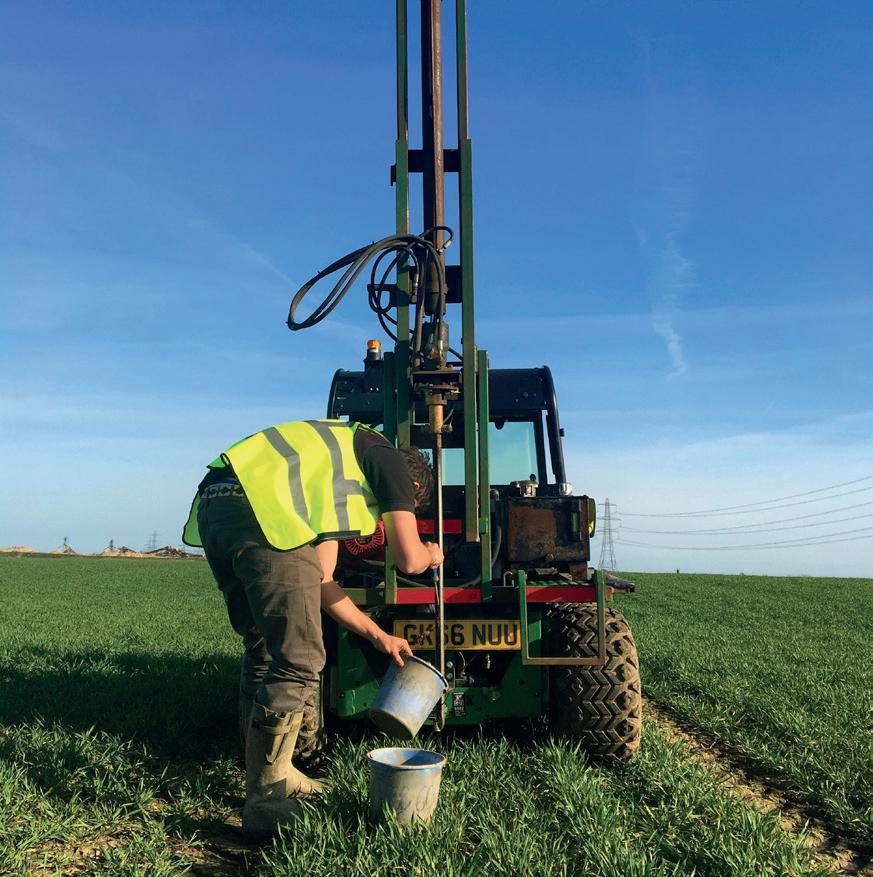
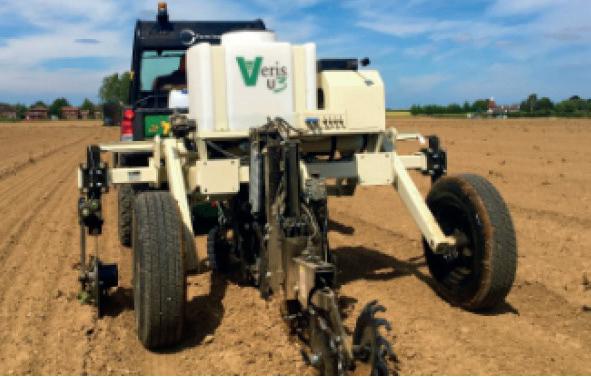
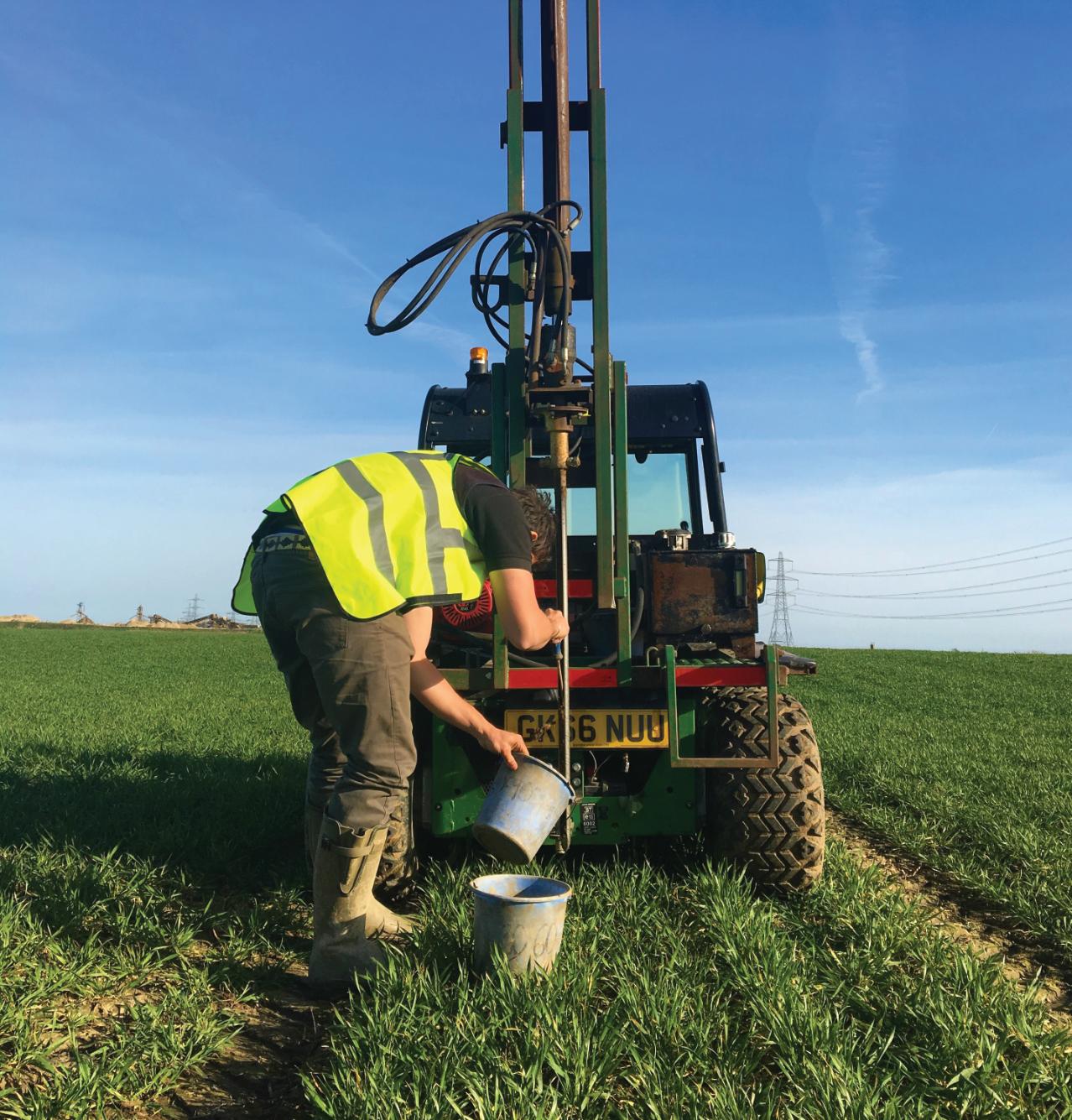
On the one hand, if I scroll down to details of the latest DEFRA survey of ‘farm business income’ for the year to end of February 2022, I see revealed quite staggering improvements in farm incomes across all farm types, except specialist pig farms. Specialist cereal farms saw average profits of £120,000 (up 67%). General cropping saw profits of £145,000 (more than double the year before), while dairy income rose to £140,000 (up 52%). Even the ‘Cinderella’ sector of lowland grazing farms saw average incomes of £34,000 (up 85%).
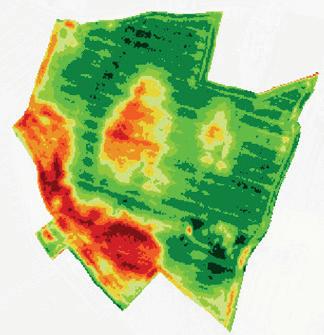

But then again, click on another page and I see that HSBC Head of Economics Mark Berrisford told farmers last month that a combination of the war in Ukraine, the loss of Basic Payments and the aftermath of Covid-19 meant that farms were operating in “a very dangerous world” with dire financial conditions “never experienced in our lifetimes”.
The reason there is such a difference in tone between the two stories, of course, is that a lot has happened since the end of February, in terms of rising costs on farms.
As the Tenant Farmers’ Association Chief Executive George Dunn puts it: “There will be no escape from the economic headwinds coming our way”. And if you’ve ever heard Mr Dunn speak in his austere Northern Ireland accent you’ll know that he could make reading the football scores sound terrifying if he wanted to.


Just when Mr Dunn’s chilly ‘winds’ will hit my farm is making me anxious. Quick frankly, any talk of winds always puts me on edge, as much of my farm sits close to the English Channel and can experience severe ‘salt burn’ after a big south westerly.
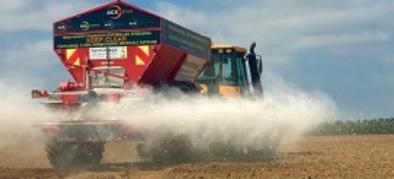
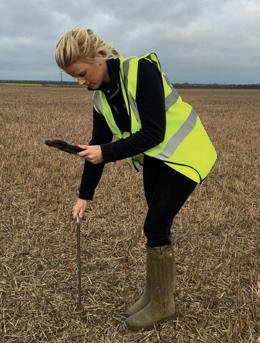





So for now, with the seasonal holiday approaching, I’m turning off mainstream media and relying instead on the private rolling news app –Ostrich News – that I’ve developed this past week. Its complex algorithms will deliver me only the kind of stories I really want to hear, automatically filtering out all the stuff that keeps me awake half the night.

And so, when I open the app tomorrow, the welcome page will remind me that I have a good quality, dry harvest in store. The banner headline will be that my winter wheat crop was drilled under perfect conditions. Scroll down and I’ll learn that those harvested crops are now worth considerably more than I budgeted for when I drilled them last year. Click on a link and I’ll discover I can postpone any heavy investment in machinery for a few years if economic decisions demand it.
Thanks to this distinctly selective news gathering app, a Happy Christmas and a prosperous New Year seem certain.
Why not develop your own?
WWW.SOUTHEASTFARMER.NET | DECEMBER 2022 53 TO ADVERTISE CALL 01303 233883
STEPHEN CARR
THE APP THAT KEEPS ON GIVING THIS CHRISTMAS STEPHEN CARR Arable farmer productssupplied, andspreadtoyourfarm. Offering20years’experience insoil servicestailoredforyouand yourbusiness Soilsmartsampling,GPSprecision, Verissoilscanning,NCore,Ph,PCN 01233 740247 enquiries@farmimage.co.uk www.farmimage.co.uk • Ultimate Soil Scanning High definition in-field scanning of major field properties including pH, Organic Matter, Electrical Conductivity and Topography • Precision Soil Sampling and Mapping • Biomass Imagery • Standard Soil Sampling P, K, Mg and pH • Potato/Pea Cyst Nematode Analysis (PCN) • Deep Core Nitrogen Sampling • Manure, Slurry and Product Analysis • Lime supply and variable rate application
SPRING HERBICIDE PLANNING
Think ahead when planning spring herbicide programmes, is the advice from Hutchinsons agronomist James Boswell, based in Canterbury.

Consider your spring herbicide programme carefully to avoid carryover of any residual activity from spring applied sulphonyl urea (SU) herbicides, particularly if it remains dry and then turns wet later in the season.
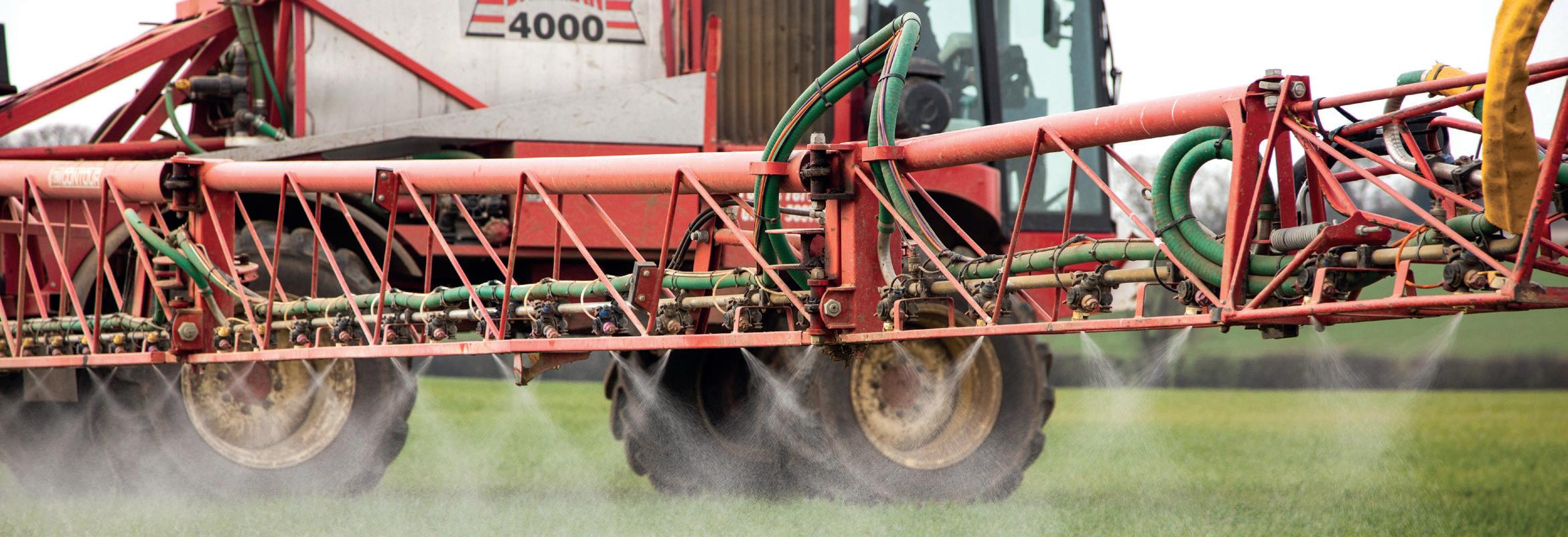
This is particularly the case for those growers who are thinking about increasing the areas of cover crops they will grow next summer or those thinking of coming back into or extending their oilseed rape acreage. The value of both crops is high, so it’s best to avoid compromising their establishment if it can be avoided.
This puts more significance on how weed control is built up in the spring to avoid residual herbicide activity carrying over. It’s the fine details that will matter.
It doesn’t mean holding off controlling the difficult weeds, but look at how ‘softer’ SUs could work while still controlling the weeds without the long tail of residuality.
James points out that grassweed contacts such as SUs Hatra (mesosulfuron-methyl and 2 g/L iodosulfuron-methyl-sodium) and Pacifica Plus (30 g/kg mesosulfuron-methyl, 10 g/kg iodosulfuron-methylsodium and 50 g/kg amidosulfuron) can have long lasting effects in the soil, so consider this if planning to incorporate them in spring herbicide programmes where cover crops or oilseed rape will follow.
These products used to be applied in the autumn and issues rarely occurred, but as their efficacy on black grass has declined they are now increasingly used to tackle wild oats, bromes and ryegrass with a spring application.
Wild oats can emerge any time from February to April and it is when herbicides are applied later to these crops that issues can be seen in following covers and oilseed rape.
Also, broad leaved weed SUs, for example in Ally Max (metsulfuron methyl and tribenuron methyl), cover a whole range of weeds and have an extended growth stage so are popular options, but is also very persistent in the soil.
James suggests an alternative to this would be to use tribenuron methyl and thifensulfuron as a mix with no metsulfuron. Although there
is a reduced weed spectrum there is nowhere near the same levels of persistence. Other options would be products with actives containing florasulam and fluroxpyr or florasulam and hauloxyfen-methyl.
Mr Boswell notes it is also important to avoid stacking herbicides with the same active as it is easy to reach damaging levels this way without realising it.
It is vital to avoid levels of DFF building up as it is very residual and can form a pencil thin line in the top of the soil. When a new crop meets this, it can really knock the vigour out of it.
It’s not difficult for this to happen without realising it. For example, if a pre-emergence application of Liberator (flufenacet and diflufenican) goes on at 0.6l/ha this contains 60gms of DFF.
If using a split label rate then it is possible to go back on postemergence six weeks later, which is perfectly legal and safe, with 0.3l/ha (30gms DFF), making a total of 90gms DFF.
However, if Crystal (flufenacet and pendimethalin) is also being used in the programme, DFF is often added to this, which adds in another 50gms of DFF which, if then followed up with 0.6l/ha Liberator, takes the amount of DFF up to 110gms.
As it’s been dry, it’s possible that one of the applications hasn’t worked, so black-grass might be starting to come through, which means another 0.3l/ha Liberator (30gms DFF) is added to the mix, which would bring the total amount of DFF up to a total of 140gms.
This shows how important it is to scrutinise the partner contents of all products and actively utilise product sequences that reduce the overall loading of persistent actives. For example, flufenacet can be sourced with picolinafen or pendimethalin and of course as a straight active.
JAMES BOSWELL
T: 07721 888382 E: James.Boswell@Hlhltd.co.uk Canterbury: 01227 830064 www.hlhltd.co.uk
DECEMBER 2022 | WWW.SOUTHEASTFARMER.NET
54
AGRONOMY
LITTLE REAL OPTIMISM
What’s happening on the farms? Not a lot just now, really. Emma has done the hedge trimming and found an acre or two of headlands, including some of the roadsides in our little hamlet, to allow traffic, farm and domestic, to navigate the lanes a little more safely.
We have also cleaned out my old wildfowl reserve, dug in the early eighties and recently filled with fallen trees which couldn’t be cleared because of the waters. I originally created it by enlarging a small pond, forming a couple of islands for the birds to nest on. It is around an acre and a half and held a number of rare species until an ignoramus of a council employee decided it would be a good idea to open up a disused footpath for the public to enjoy. The result was inevitable; people, dogs and nature don’t really mix. But he knew best.
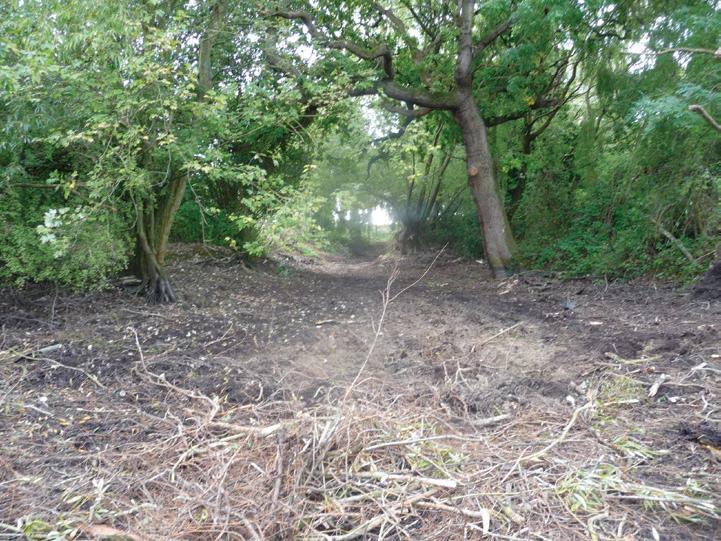
Needless to say, within a year the birds were either driven off, shot, or killed by dogs, and there was no longer any point in the project. I had some 23 species there, many quite exotic. The shot birds included a rare pinioned nene drake (Hawaiian Goose) shot through the neck “just for fun”, said the lout we caught.
The dogs jumped over the fox-proof wire and chewed up a pair of pintails, a male red crested pochard, three mandarins and a young, home-reared full winged but too tame barnacle goose. All very depressing. The only good news in the case of the nene goose was that the yob was fined and actually paid full compensation.
But after this recent dry summer the pond emptied, for the first time in some 25 years, allowing us access to clear the fallen timber, which we pulled out and piled up along with other legal farm rubbish to be burned on November the Fifth, an event that was subsequently rained off. Meanwhile the pond is now once again filling up, attracting a number of mallard and teal in for evening ‘flight’. There is no shooting around it, so being full winged they are safe.
I know I repeat recent comments, but I do so in the hope that they are picked up on. We had a further meeting with our MP Nick Gibb recently about the effects of the long-term neglect of our main waterways/drains to the sea. They are called rifes around here, formed
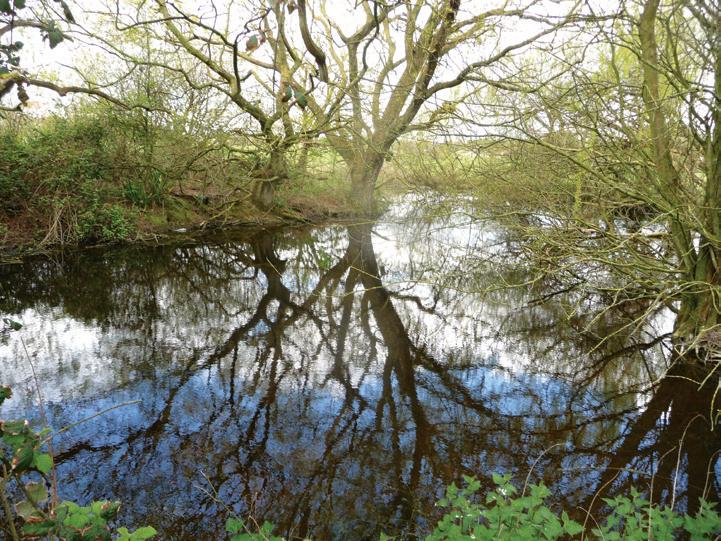 NICK ADAMES Former dairy farmer
NICK ADAMES Former dairy farmer

and enlarged first by man, many centuries ago, and later improved by machines.
They were meant to drain (indeed, once did drain) huge areas of the marshy cattle lands along the south coast, guiding the waters down to the likes of the Arun, Adur and other minor waterways.
This worked when the operation was maintained, but since the Environment Agency (EA) has been involved it has been neglected. And it shows. The EA is keener on writing letters from their desks and, as a result, annual river clearance has been almost totally ignored since they took over responsibility on their formation in the mid 1990s. To be fair, it was not completely unknown for the lands to flood before; it is just that these days it seems EA officers can manage little beyond handling a pen or handing out an enforcement notice.
Our meeting gave us a chance to express our concerns, which we did, but left us with little real optimism because farmland and farmers feature way down the list of the EA’s priorities, after water rats (voles) crested newts, sticklebacks and the like. All of which strangely thrived in the days the rivers were cleaned but do so no longer.
Like others of my generation, I remember when the rifes were properly maintained annually. When waters flowed downhill to the sea outfalls. But it’s very different these days. Such is the build up of silt (in excess of 40 inches) and dead vegetation, the chances of heavy rains getting out to sea are pretty poor.
So now, when these situations arise, the first thing we see is sewage, raw or liquid, being
forced straight back upstream from the nearby, overwhelmed, Southern Water treatment works, coating our land and ditches in scum and untreated faeces, where it then remains for weeks on end. All we are left with is a white film of chopped toilet paper lining fields and ditches. It’s neither pretty nor healthy.
The meeting was well represented by local farmers, plus officials and our excellent MP, and the tone was, considering the differences in our opinions, largely amicable, but none of us locals is holding his or her breath. Our view is that we have to keep ‘rattling the gate’ in the hope that one day another man, like the then Environment Minister, Owen Patterson, will appear, saving the whole local plain, with its many thousands of new houses and their rapidly generated waste, from becoming another Somerset Levels disaster area.
I don’t believe in miracles, but still live in hope. Or perhaps nature will take a hand, as it surely will one day soon, and flood a huge area of commercial and residential properties within our area, to actually force the EA off their backsides and into taking action. They’ve done damn all these past 26 years, so what chance now?
And so we move into what, for a lifelong dairyman, is now a quieter time of year. One can get used to it, but, along with my ex-stockman Wally Elvin, that well known Sussex ex-soccer referee, we still miss the cattle hugely. They brought such life to the farms. No day was the same. Although, reading the farming newspapers, I sadly accept we got out at the right time.
Now we can choose when we work outside, we can enjoy our Christmas Day and Boxing Day with our friends and families and we can dream the world wakes up to a better dawn in January.
In the meantime, a Happy Christmas and a Healthy New Year to everyone.
WWW.SOUTHEASTFARMER.NET | DECEMBER 2022 55 TO ADVERTISE CALL 01303 233883 WEST SUSSEX DIARY NICK ADAMES
The pond looking north after clearance in early November. The two islands are on the left.
A different view to the west after the heavy rains in early December
Legal services for farmers & rural businesses
Call
furleypage.co.uk
IT’S THE MOST WINE-DERFUL TIME OF THE YEAR

We wish all of our readers a merry Christmas, a happy and healthy New Year and hope you enjoy our cheesy Christmas cracker jokes! Whether buying gifts, throwing Christmas parties or rewarding staff, we thought it a good time to remind you of the tax position of some of the different areas, writes Holly Mitchell, Associate at Carpenter Box.
CHRISTMAS PARTIES
Most business celebrate the holidays with a well-earned Christmas party for their staff.
Staff parties are an allowable cost for tax purposes for the business. That means no taxable benefit will arise on employees (so long as the total cost per head of this, combined with any other annual events, does not exceed £150).
STAFF CHRISTMAS GIFTS
Another common way to celebrate is with gifts to share with your team. Non-contractual and unpromoted gifts
to your staff members can be provided tax-free, where:
• the value does not exceed £50 per person per annum
• is not provided as cash or a cash-voucher

• unfortunately, is not a gift of wine, alcohol, food, drink, tobacco
For example, a one-off voucher up to £50 from your vineyard for a wine tour would be ok but most frustratingly a bottle of your wine gifted at Christmas would not!
CHRISTMAS GIFTS TO CUSTOMERS
Whilst certain gifts to staff members and
staff parties are an allowable deduction for the employer, gifts and entertaining of customers and suppliers are not tax deductible for the business.
However, there are circumstances where gifting your own branded bottle of wine to a customer or supplier can be accepted as advertisement for the business, as opposed to entertaining.
There are certain rules around the allowability of such promotional gifts for tax purposes, which should be considered on a case by case basis and discussed with your accountant.
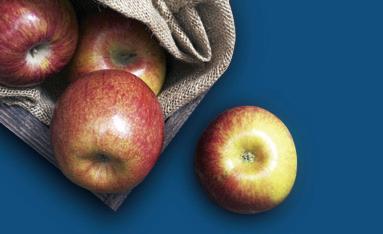
Want to know more?
For further tax advice for the festive season and beyond, please do not hesitate to contact Holly or John from the Carpenter Box vineyard team on 01903 234094 or visit www.carpenterbox.com
Why did no one bid for Rudolph and Blitzen on eBay? Because they were two deer!
What is the employment status of Santa’s helpers? Elf-employed Why did Santa get in trouble with the tax man?
He missed the deadline on his elf-assessment
DECEMBER 2022 | WWW.SOUTHEASTFARMER.NET
56
us
or
today
visit our website: 01227 763939
FIVE STEPS TO READY YOUR BUSINESS FOR 2023
With a new year in sight, it’s tradition to make resolutions; continuing good practices or making improvements. As a rural business owner, now is the time to be thinking about your business resolutions and what you can do to ensure you’re starting 2023 on a solid, legally compliant footing.
REVIEW YOUR PROPERTY CONSIDERATIONS
As a rural business owner, there are various considerations to be aware of in regard to your buildings and your land.
• Are your title deeds registered and up to date? Registering deeds at HM Land Registry means you’ll benefit from proof that you own the land, which offers increased protection against fraud and makes it easier to sell your property.
• Do others have rights of way over your land? If yes, do you have these formalised in written documentation? If you don’t know, it’s important to find out because you’ll need to understand what your rights and obligations are.
• If you are providing accommodation for workers, do you understand their occupation rights? These will differ based on whether they have an assured agricultural occupancy or assured shorthold tenancy. Having written agreements in place will protect you and your workers.
COMPLY WITH YOUR OBLIGATIONS AS AN EMPLOYER
You need to be aware of your employees’ rights and your obligations as an employer. Non-compliance can result in you facing an employment tribunal claim, amongst other risks.
• Do you have the correct paperwork and procedures in place? Without them, you may be falling short of legal requirements e.g. many employers have not updated their contracts since the legal requirements for employment contracts changed in April 2020.

• Are you paying staff correctly? Agricultural
workers in England must be paid at least the national minimum/living wage. Workers employed before 1 October 2013 may have the right to the Agricultural Minimum Wage. Rates change annually and come with compliance rules on when wages must be paid.
• Will you employ seasonal workers? This comes with various contractual considerations and legal obligations, including important developments in holiday entitlement/pay, which apply to workers as well as employees, particularly regarding seasonal or zero hours type engagements.
MEET THE REQUIREMENTS OF HEALTH AND SAFETY LEGISLATION
Agriculture is statistically one of the most dangerous industries. As an employer you have a duty to protect your employees’ health and safety.
• Do you have an up-to-date health and safety policy and appropriate risk assessments in place? This is a requirement under health and safety legislation and failure to comply can lead to prosecution by the Health and Safety Executive (HSE).
• Do other regulations apply to work undertaken as part of your business? The HSE provides useful guidance on its website regarding the obligations that rural business owners need to understand and comply with.
PROTECT YOUR FAMILY AND ASSETS FOR THE FUTURE
Having a comprehensive succession plan in place can provide peace of mind, knowing that your wishes will be met, your loved ones are looked after, and the future of your business is protected.
• If multiple family generations work in the business, have you got a Partnership
Agreement in place? These define the rights and responsibilities of each party and can reduce the chance of future disputes.
• Is your Will and Lasting Power of Attorney (LPA) up to date? We advise you to update your Will every five years or after any major life event and check your LPA remains appropriate regularly. Without either, you’re risking the chance to decide what happens to your estate and assets should you lose capacity or die, and your family may not inherit as you would like.
• If you’re getting married in 2023 (or if you’re already married) consider the benefits of a pre- or post-nuptial agreement as a way of setting out the division of assets should the relationship break down.
ENSURE YOUR BUSINESS IS READY TO FACE RECESSION
Considering the difficult economic climate we are facing, all businesses should be looking at their current commercial practices and how suitable they are to ensure they start 2023 on solid standing.
• Have you got commercial contracts in place? Are they up to date and watertight in light of the challenges businesses are likely to face in 2023? Take some time to review the contracts you have and implement the ones you don’t.
• Is now the time to rationalise processes? Are some areas of the business under or over-performing? Consider if action needs to be taken to mitigate risk, capitalise on opportunities for growth or to improve efficiencies.
This is only a selection of the legal issues that rural business owners need to be aware of. If you’d like to carry out a more in-depth health check on your business, to ensure compliance and support ongoing growth and sustainability, you should seek advice from your legal advisor.
Head
WWW.SOUTHEASTFARMER.NET | DECEMBER 2022 57 TO ADVERTISE CALL 01303 233883 LEGAL
SARAH GAINES
of Agriculture, Brachers LLP T: 01622 776446 E: sarahgaines@brachers.co.uk www.brachers.co.uk
www.brachers.co.uk Client feedback, Chambers and Partners and The Legal 500 A “knowledgeable and responsive” team of “excellent solicitors who know their specialisms inside out”
Maidstone | Canterbury
When I visit farms I am always impressed by the resilience of farmers and their ability to innovate. However, the challenges they face are greater than ever: the phasing out of direct farm support, high rates of inflation on key inputs, a sometimes ill thought out green agenda. I try to address some of these challenges in my book Rethinking Agricultural and Food Policy (www.e-elgar.com).
Technology can make a considerable contribution to greater efficiency and productivity, and there needs to be more support for its adoption and use. However, there is a risk of succumbing to technological hype. Policy makers are particularly prone to believing that there is a technological silver bullet that can solve any new problem. Costeffective automated picking of produce is some way off, but policy makers continue to believe it can be a solution to shortages of workers for harvesting. Experienced labour from outside the UK is going to continue to be needed for some time by fruit and vegetable growers, and the provision made is still insufficient despite many instances of crops being left unpicked. Unfortunately these messages do not always get across because of failure in government. DEFRA has a range of tasks to undertake, some of them cutting across each other. It
RETHINKING AGRICULTURAL AND FOOD POLICY

lacks sufficient clout in government to take on major departments like the Treasury and the Home Office. Its ministers often have short tenures and are either on the way up or the way out. It might help if each government department had a policy division responsible for the rural economy.
It can therefore be difficult to resist a policy fad, of which rewilding is a prime example. This is not to say that there may be instances where rewilding may be appropriate for a particular farm business. Major knowledge gaps, however, make good policy design difficult. There has been a loose use of the concept as a ‘hurrah’ word by journalists and advocates in public debate. The available evidence suggests that the mitigating effects of rewilding on climate change are complex and reliant on context.
The water, energy, fuel and skill that goes into producing food is wasted if it is not eaten. If global food waste were a country, it would come third for greenhouse gas emissions after the USA and China. Gains in reducing food waste rely on changes in consumer behaviour such as planning food buying to avoid over purchasing, understanding food labels so that food that could still be eaten is not thrown away, using leftovers and recycling food that cannot be used. Many of these actions are relatively simple and save consumers money, but time pressures and a lack of knowledge often prevent them being undertaken. Retailers could be encouraged to relax their presentation standards in terms of the size and shape of vegetables.
Climate change is in many ways the greatest challenge that the food chain faces. Emissions beyond the farm gate have become more significant than on the farm itself. These involve food
processing, packaging, transport, household consumption and waste disposal. Over three quarters of greenhouse gas emissions arise in developing countries. All the growth In global agricultural emissions since 1990 has taken place in developing countries, while those in developed countries fell by nearly a quarter.
There is a range of options, such as feed additives that can reduce the contribution of livestock to methane, but a number of them are still at a development stage involving start-up companies and require further work, particularly in terms of how they might be used in combination to maximise their effects. Additional costs for farmers could be offset by government support payments.
It is surely possible to have more effective policies than those that already exist. Policy has to be holistic, offering an integrated approach. It has to think of the agricultural and food system as a whole, involving both producers and consumers. Governments have to ensure that their populations have a clear and affordable supply of food. Governments allow the price of food to rise substantially at their peril.
There has to be a clear sense of objectives and priorities. Farm businesses would benefit from increased funding for innovative technologies, different ways of farming, carbon sequestration and knowledge exchange. Unfortunately, it is all too easy for politicians to declare everything a priority and avoid making difficult choices, just picking the low-hanging policy fruit. Any policy is only as good as the way it is put into effect. There are ways forward that could benefit farm businesses, consumers and the planet, but they need evidence based policy making and a coherent policy agenda adhered to over a long time span. We don’t have that at the moment.
DECEMBER 2022 | WWW.SOUTHEASTFARMER.NET
58
WYN GRANT
Wyn Grant is Emeritus Professor of Politics at the University of Warwick and author of books and articles on agriculture including The Common Agricultural Policy.
The South East Farmland Market Experts
AND FARMS SPONSORED
CONVENIENTLY LOCATED
DARTFORD | KENT



OFFERS IN EXCESS OF £300,000 11.69 ACRES

A conveniently located block of Grade II arable land and the frame of an agricultural building on the outskirts of Horton Kirby, with extensive road frontage, extending in all to some 11.69 acres/ 4.73 hectares, has come to the market with Lambert & Foster. The land is broadly rectangular in shape and situated in a convenient location on the outskirts of the village of Horton Kirby near Dartford. The land has extensive road frontage to the north (Rays Hill) and to the east (Eglantine Lane), with the primary access at the south east corner of the land.
The former agricultural building situated in the south east corner of the land is in skeletal form without any external cladding or roof
sheets. It is a four bay steel portal frame building with a concrete base (17.5m x 8.5m) and has historically been used for agricultural purposes.
The property is located outside the Kent Downs Area of Outstanding Natural Beauty. The agricultural barn situated on the land was granted planning permission in August 1993, but was damaged following a fire in 2002. It has since been untouched.

Full details are available at lambertandfoster.co.uk i

TOPPICK 59 SECTION TO ADVERTISE CALL 01303 233883
WWW.SOUTHEASTFARMER.NET | DECEMBER 2022
LAND
BY BATCHELLER MONKHOUSE
Please visit batchellermonkhouse.com



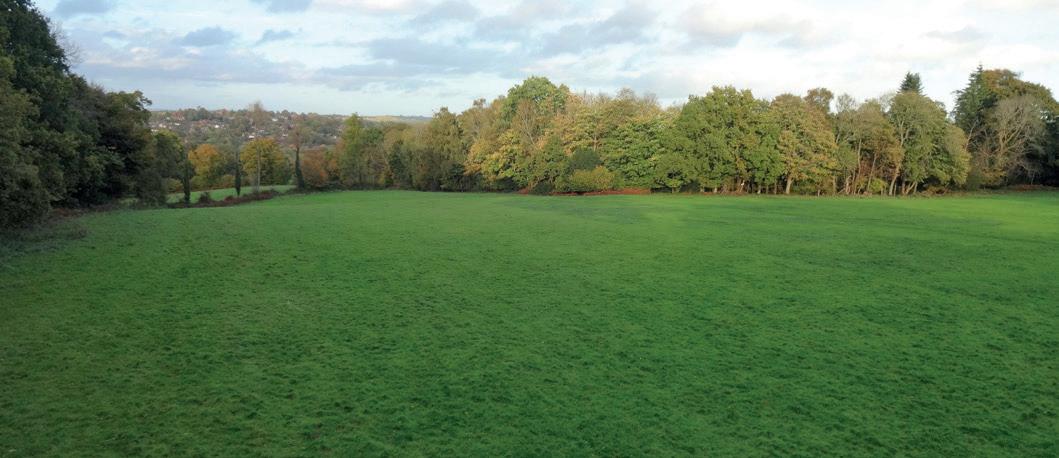
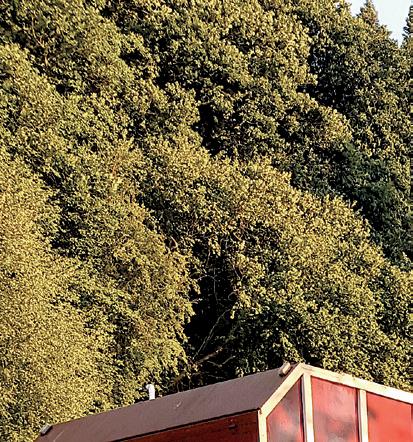
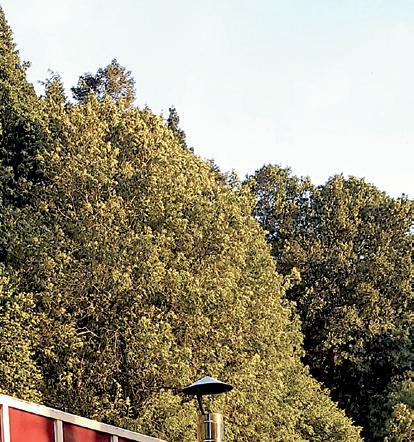

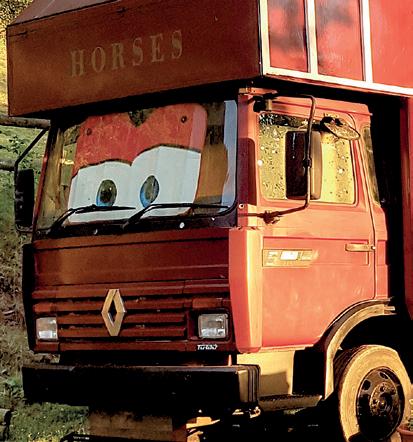

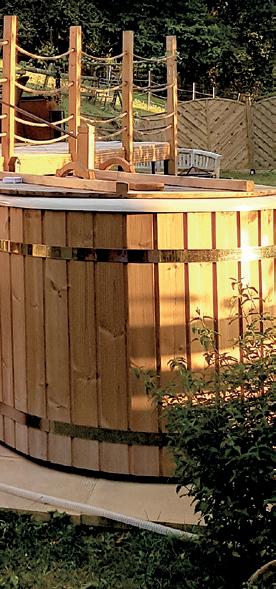

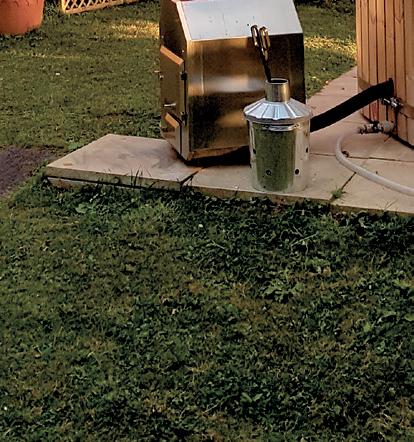












































































DECEMBER 2022 | WWW.SOUTHEASTFARMER.NET 60 office@therpp.co.uk CIRENCESTER 01285 323200 CRANBROOK 01580 201888 Thinking of diversifying? Talk to us. Chartered Town Planner www.therpp.co.uk CallJamieon01303 233883oremail jamie.mcgrorty@kelsey.co.uk FOR SALE ® ATTENTION all land agents. Are you missing out? You can advertise land and farms in South East Farmer from as little as £285. A great way to create interest from serious buyers.
FREE FARM BUSINESS CONSULTANCY SUPPORT
Farmers can now apply for free business advice to understand the changes to agricultural support, the potential impact on their business and ways in which they can adapt.

As part of the next stage of the Future Farm Resilience Fund (FFRF), the free business advice is available to farmers who currently receive Basic Payment Scheme (BPS) support.
The scheme, which is running until March 2025 across England, will include support relevant to each farm’s unique circumstances, which could include help to adopt new funding streams or farming techniques, or with successional changes within the business. It is available to the following sectors:
• Arable
• Dairy
• Beef and sheep
• Mixed farming.
This offering will allow businesses one-to-one support via a farm business review and access to online tools, resources and industry expertise to help guide the operation into the next phase of agricultural policy.

The first phase of the initiative saw farmers seek advice on a wide range of topics, including environmental audits, natural capital, diversification, succession planning, joint ventures, development potential, carbon auditing and environmental scheme applications. The current scheme is open to both new applicants and those who have already received support in the first phase.
DEFRA has committed £32 million to provide this support to farmers as they move through the agricultural transition away from Basic Payments and Savills is pleased
to be working alongside NIAB and AKC to deliver the next phase of this important initiative.
To request an initial farm business review, register your interest by contacting a member of our team or scanning the QR code and completing the registration form. Please have your Single Business Identifier (SBI) to hand when you register.

STUART NICHOLLS

T: 07786 944666
E: snicholls@savills.com W: www.savills.co.uk
ADRIAN MATTHEWS
T: 07795 446824
E: amatthews@savills.com W: www.savills.co.uk
WWW.SOUTHEASTFARMER.NET | DECEMBER 2022 61 TO ADVERTISE CALL 01303 233883 BUSINESS ADVICE
SCAN THE QR CODE TO REGISTER TODAY





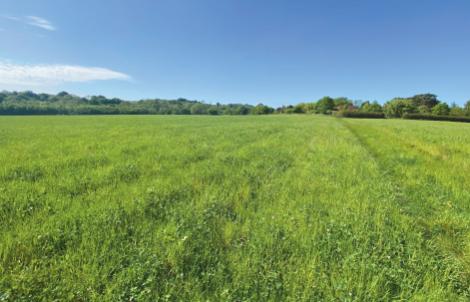





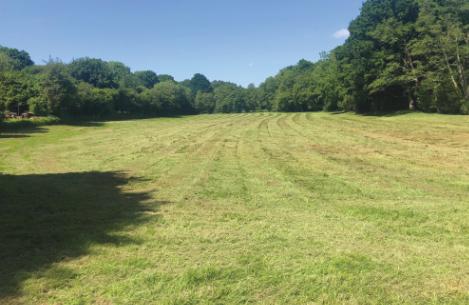














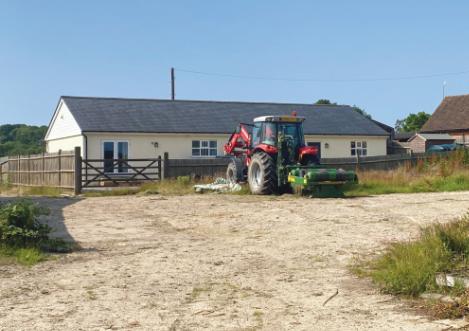








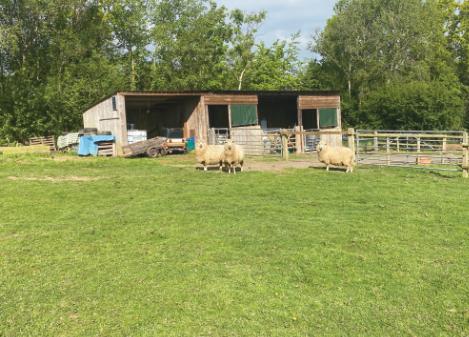








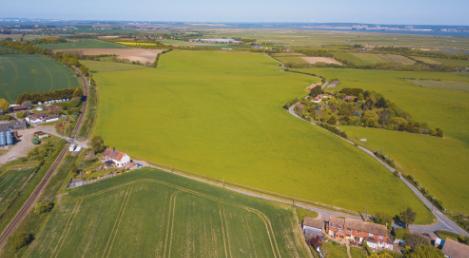


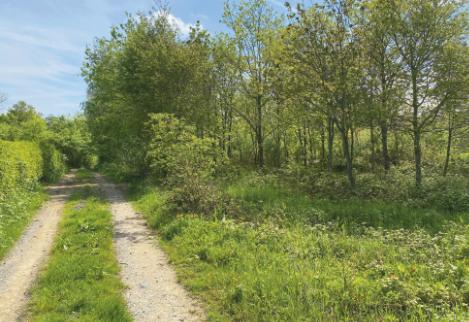





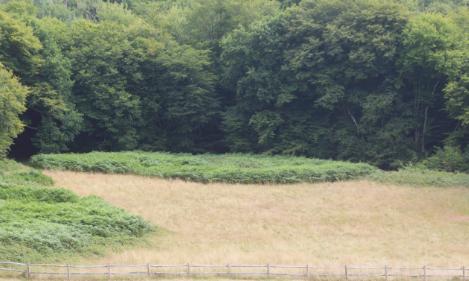


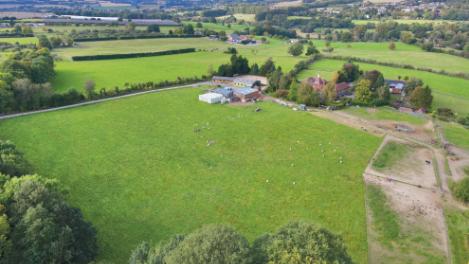


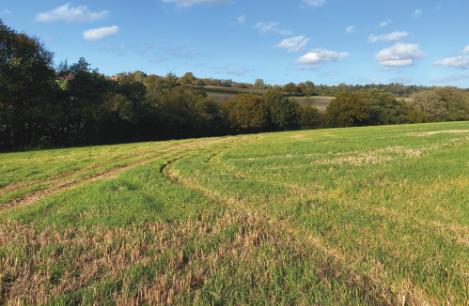


















A collection of former livestock turned commercial buildings with potential, situated within an attractive block of ancient woodland extending to 21.93 acres (8.87 hectares) is on the market with Lambert & Foster.
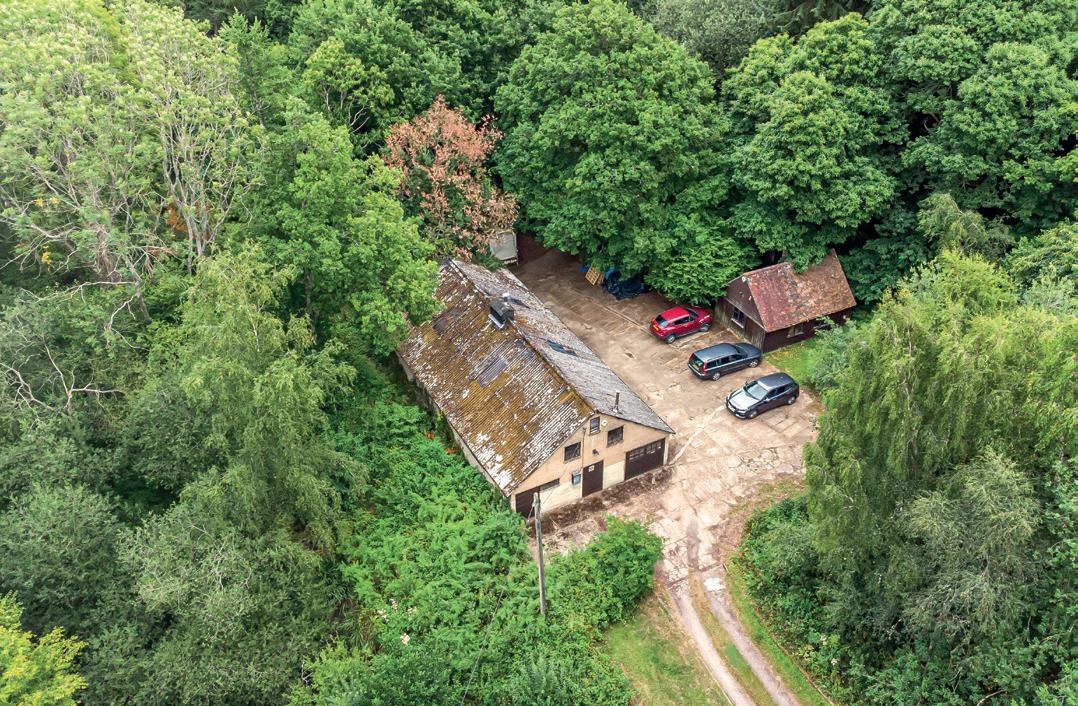
Kentdale is located in a rural yet accessible location on the outskirts of Tunbridge Wells, surrounded by further agricultural land and approached via a 0.3 mile private driveway from Forge Road.
Kentdale comprises an exciting opportunity to purchase a collection of commercial buildings set within an exceptional block of ancient woodland teeming with wildlife. The buildings lie central to the site and are encircled by the woodland, which slopes
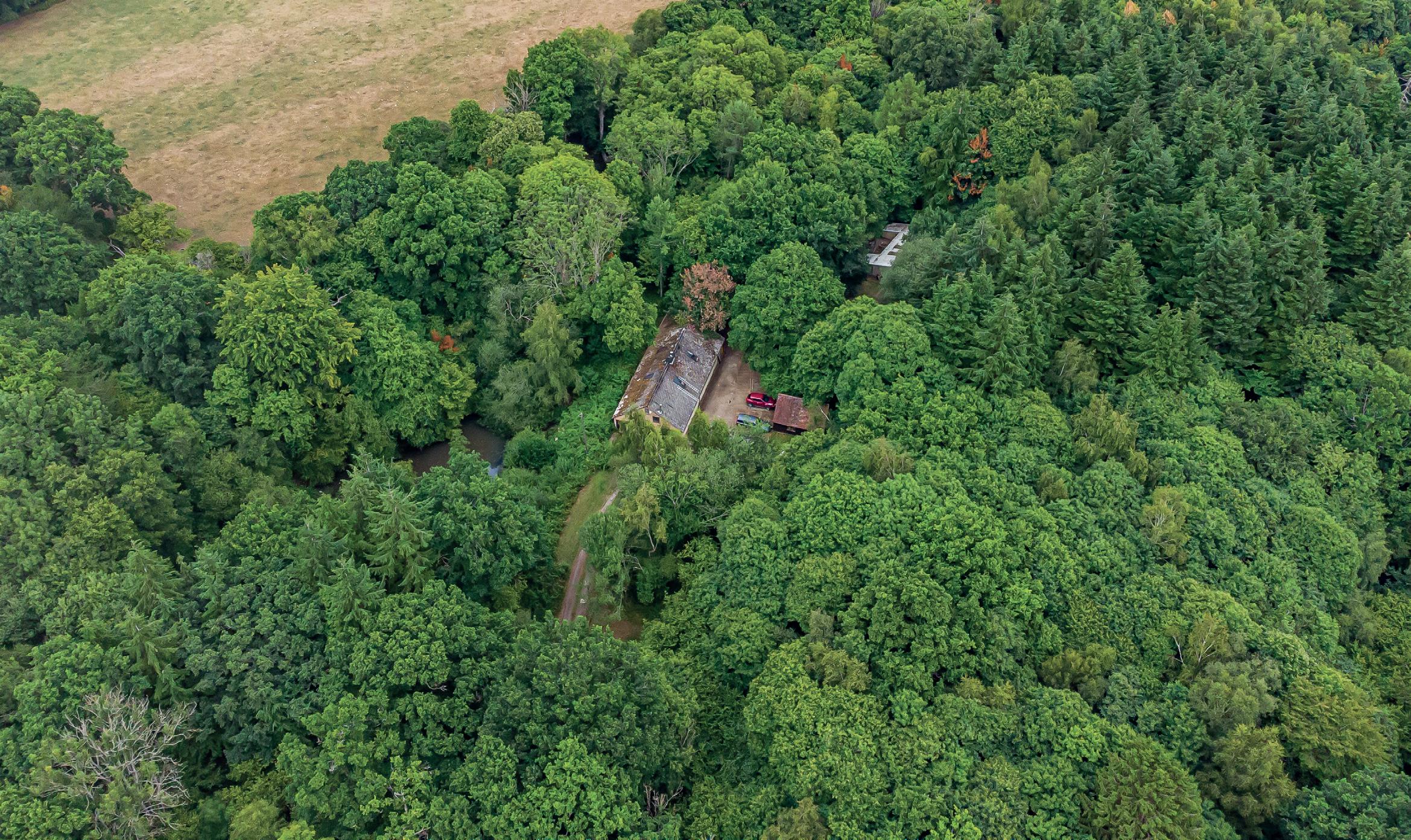
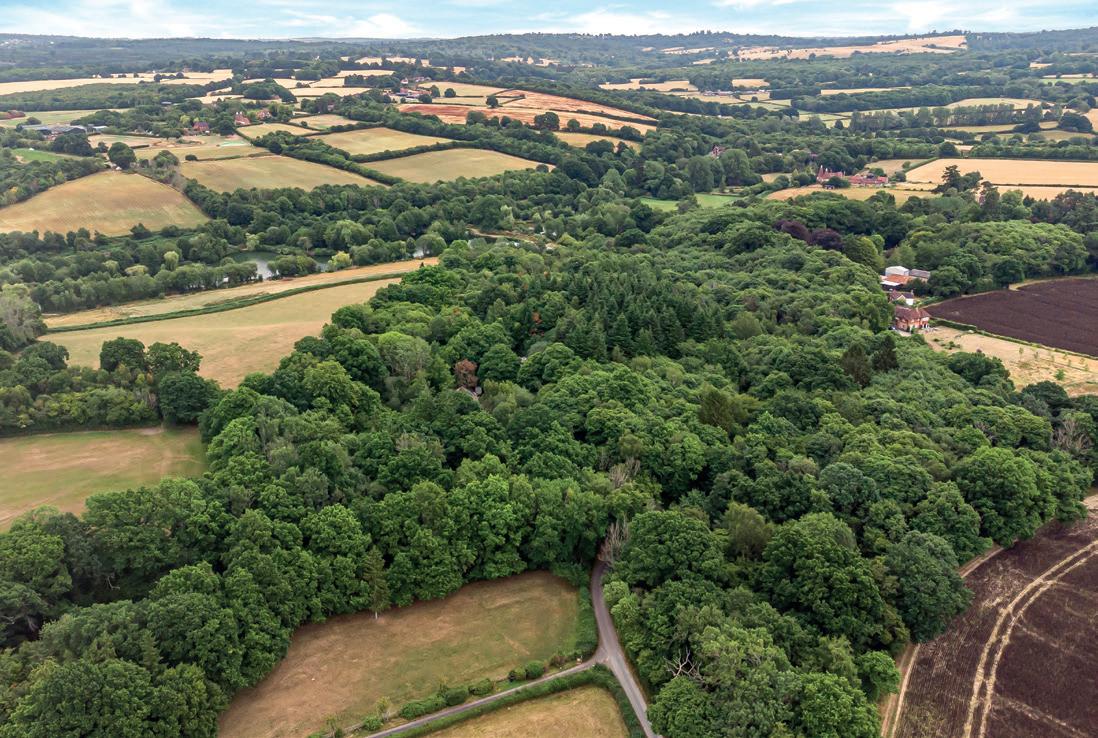
ATTRACTIVE BLOCK OF ANCIENT WOODLAND


GUIDE PRICE: £650,000 TUNBRIDGE WELLS | EAST SUSSEX
down to the east toward a meandering stream in the valley. The buildings formerly housed livestock, as reflected in their construction, however have been used, in accordance with their lawful planning use as a commercial workshop, as a furniture repair facility for over 30 years.
The property is arranged in two blocks split







either side of the private road and is offered for sale as a whole. The main block to the north of the road comprises the buildings and woodland and the block to the south comprises solely woodland.


The buildings at Kentdale include a former piggery, a former livestock/storage building and a storage building.
Full details are available at www.lambertandfoster.co.uk i
63 TO ADVERTISE CALL 01303 233883 TOPPICK
END OF YEAR PROPERTY REVIEW WWW.SOUTHEASTFARMER.NET | DECEMBER 2022
END OF YEAR PROPERTY REVIEW
UNIQUE EAST SUSSEX EQUESTRIAN CENTRE
BATTLE | EAST SUSSEX
GUIDE PRICE:
BTF Partnership has launched for sale The Petley Wood Equestrian Centre near Battle, East Sussex, with a guide price of £2.5m.

Set in the High Weald Area of Outstanding Natural Beauty and located approximately two miles to the north east of Battle and five miles to the south east of Robertsbridge, the property benefits from excellent transport links, with mainline railway stations available at both Battle and Robertsbridge and the A21 being just a quarter of a mile distant.
The centre, which has been established for approximately 20 years, has hosted numerous affiliated and unaffiliated events including show jumping, dressage, arena eventing, combined training and showing. The facilities have also been hired out to riding clubs, pony clubs and the public. In addition to a six-bedroom farmhouse, the property provides extensive equestrian facilities, including:
£2.5
MILLION 19 ACRES GRAZING / 168 ACRES ANCIENT WOODLAND
• Thirty-three loose boxes
• An indoor arena (approximately 49.53m x 24.05m) with viewing gallery, public address system, overhead irrigation system and judge’s box
• An outdoor arena (approximately 1.42 acres) that can be utilised in its entirety or as three separate areas.
• An outdoor school (40mx20m)

• A five-horse walker
• A static unit that has historically been used as a café and the show/events office
• Several shipping containers for the storage of equipment (a majority of which benefit from mains electricity)
• Approximately 19 acres of grazing
• All weather turnout
• 168 acres of ancient woodland with private and exclusive off-road hacking
• Extensive hardstanding for box/lorry parking
• The centre is within reasonable distance of several other major equestrian facilities and show grounds.
The farmhouse extends to approximately 2,360 sq ft, and briefly comprises a sitting room, garden room, dining room, and kitchen on the ground floor and five bedrooms (one with en-suite) and a family bathroom on the first floor. The second floor provides an open-plan living space with a bedroom area.
Outside, the gardens are predominantly lawn and there is a double garage with a useful utility area. The farm drive, which serves both the farmhouse and equestrian centre, culminates in an approximately two-acre area of hardstanding, ideal for parking horse boxes and lorries.
In addition to the equestrian facilities, there is a glade within the ancient woodland which provides an enchanting setting for licensed wedding ceremonies.
Full details are available at www.btfpartnership.co.uk/property/petley-wood-equestrian-centre-battle-east-sussex i
DECEMBER 2022 | WWW.SOUTHEASTFARMER.NET
64






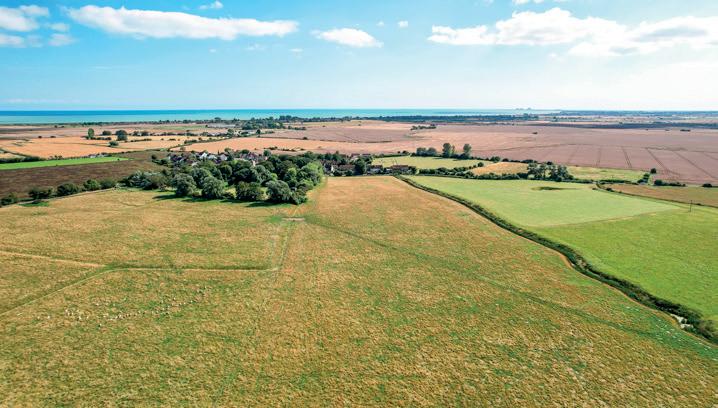

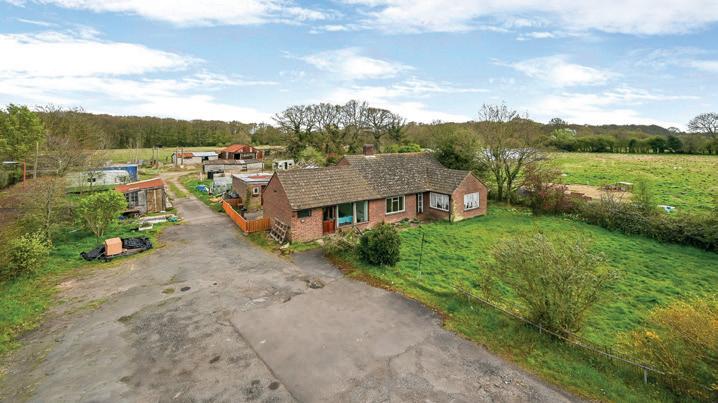
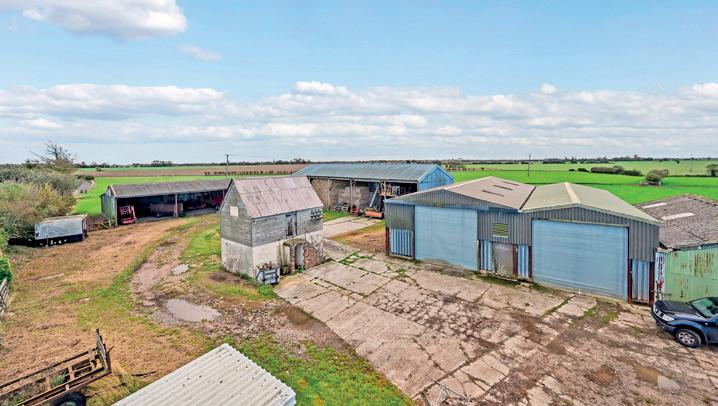
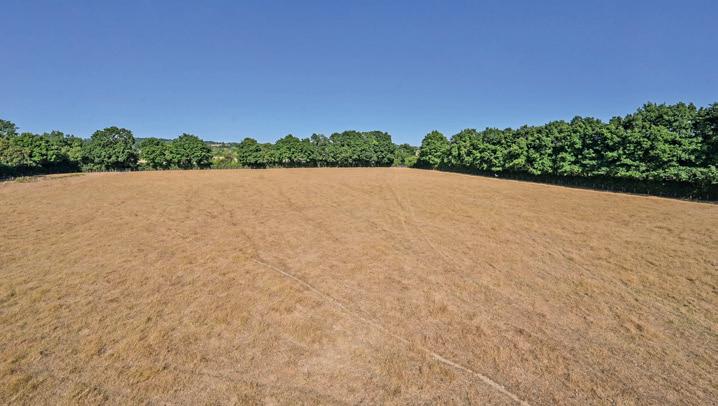







FORSALE
Snart Director
Sam
Matthew Sawdon Director
Vicky Phillips Director
Contact one of the agency team for information: Estate Agents Hobbs Parker Romney House, Monument Way, Orbital Park, Ashford, Kent TN24 0HB 01233 506 201 Shorne, Gravesend Arable investment portfolio. Approx 742 acres. Wilmington, Dartford Arable land available as a whole or in three lots. Approx 285.75 acres (total). Biddenden Small grass farm including barn with Class Q consent. Approx 32.60 acres
Jon
Rimmer Chairman James Hickman Director
Grazing
with consent to carry out
About 50 acres.
Small arable farm. About 29 acres
Rural smallholding. About 9.5 acres. Romney Marsh Barns with Class Q consent. Egerton Pastureland - approx 9.30 acres. Sold by Tender in excess of Guide Price. SOLD SOLD SOLD SOLD SALE AGREED SALE AGREED SOLD
Romney
Marsh
marsh
cultivations.
Tenterden
Shadoxhurst
END OF YEAR PROPERTY REVIEW





A SAFE INVESTMENT
It’s hard to believe it’s only been a year since market commentary for all property sectors focussed on the impact of lockdown and Covid-19. Having come through this we now find ourselves in a cost-of-living crisis with a fiscal policy response that marks an end to 14 years of exceptionally low base rates and cheap money.

Housing markets are beginning to experience a slowdown, with pricing holding up for now, underpinned mainly by a shortage of stock. The economy is on the brink of recession and there is caution present in the commercial and industrial sectors. Which brings us to the ever dependable, you can see it, touch it, walk on it (and kick it) asset of farmland.
The spring market saw some exceptional farmland blocks brought to the market in north Kent. Totalling around 750 acres of predominantly Grade I and II land, Kings and Queens Farm, followed shortly after by Land at Ifield Place, located at Shorne near Gravesend, are all sale agreed well in excess of the £7.5 million guide price.
Grove Park Farm at Hadlow, comprising around 23.52 acres of grade III temporary pasture, sold significantly in excess of its £225,000 guide price as a result of strong demand. Staying in north Kent, and following hot on the heels of Kings and Queen Farm, is a new instruction to bring approximately 285.75 acres of productive arable land to market, located inside the M25 at Wilmington near Dartford. Land at Barn End Farm is currently guided at between £3,175,000 and £3,3250,000 as a whole or is available in three good sized lots and subject to an overage agreement.
In Biddenden, Tatu Farm was marketed through informal tender. It comprised a useful smallholding with detached three bedroom
‘Colt’ bungalow (with agricultural occupancy condition) around 32.6 acres, with modern farm buildings, one of which has prior approval planning consent for conversion to a new four bedroom dwelling, with a sale agreed above the guide price range of £1,100,000 to £1,170,000.
In the summer, Coltsfield, a rural smallholding with four bedroom house for modernisation, barn and paddock, set in around 8.8 acres with spectacular views of the Medway Estuary, was launched and is under offer above the guide range of £650,000 to £700,000.
Off market, a well-equipped Wealden grassland farm comprising a detached period unlisted farmhouse and range of livestock buildings, together with pastureland and woodland, the whole extending to nearly 100 acres, sold very well, avoiding a public marketing exercise and agreed between two amicable parties.
Also under the radar we offer discrete advice in relation to purchases. We act on behalf of purchasers, having recently facilitated the purchase of a block of some of the highest quality grade I farmland for a farming client.

There is much to look forward to in 2023 and we start off with the newly launched Land adjoining Swain Road, St Michaels, Tenterden. This is a parcel of Grade III arable land with good road frontage to Swain Road situated on the outskirts of Tenterden. Guided at £375,000 and totalling in all around 43.23 acres.
Assessing your sale and purchase options against the backdrop of the Autumn Statement, note that there is a reduced Capital Gains Tax (CGT) allowance going forward. Currently it’s £12,300 for individuals, which halves from April 2023 to £6,000 and is cut again in 2024 to £3,000. Still on the CGT front, Business Asset Rollover Relief continues to be retained.
Inheritance Tax thresholds are frozen at £325,000 until the 2027/2028 tax year. The good news is that the Government has also (for now) retained Agricultural Property Relief and Business Property Relief, meaning farmland continues to be an attractive investment.

Scarcity in the market, and the main retention of capital and inheritance tax reliefs, will in our view ensure the marketplace for next year remains stable, with little change expected. The increase in the base rate continues to impact the cost of borrowing and this may impact the number of bids received. For those seeking a safe investment, the continued presence of cash and rollover buyers, and farmer buyers, will ensure good quality parcels will hold their own. Please speak with our experienced team of directors and chartered surveyors for a no obligation chat about the land market and to discuss your options.

WWW.SOUTHEASTFARMER.NET | DECEMBER 2022 67 TO ADVERTISE CALL 01303 233883
MATTHEW SAWDON Director E: matthew.sawdon@hobbsparker.co.uk SAM SNART Director E: sam.snart@hobbsparker.co.uk
Director E: vicky.phillips@hobbsparker.co.uk
Director E: james.hickman@hobbsparker.co.uk
Group Chairman E: jon.rimmer@hobbsparker.co.uk T: 01233 506 201 www.hobbsparker.co.uk
VICKY PHILLIPS
JAMES HICKMAN
JON RIMMER
Swain Road
AGRICULTURE: THE UK’S BEST-KEPT SECRET WEAPON?
Much of the time I hear people talk about rural and agricultural issues, but rarely do I hear people talk about what we are practically going to do about them.
As a fan of ‘JBDI’ this saddens me; and as a partner at accountancy firm MHA, an independent member firm of Baker Tilly International, I know there really are many pragmatic things we could all be doing to ensure the rural and agricultural economy in the UK is properly valued and supported.

I started at MHA (it was MacIntyre Hudson in those days) as a graduate trainee in 1997. Having completed my training, and then having spent a number of years supporting clients, especially rural and agricultural clients, I left to run what was to become one of the UK’s largest agricultural college groups.
These were transformative years, and it gave me a great deal of satisfaction to give over 78,000 students the opportunity to get a great start in life, especially those who embraced opportunities within the rural economy. Agriculture was certainly a better place as a result of the group’s hugely valuable work.
I consider MHA to be a unique firm of accountants. Not only does it approach its clients’ businesses in a practical and pragmatic way, it also realises the benefit of

the experience that can be gained outside the practice. It is this attitude that meant I re-joined MacIntyre Hudson (now MHA, an independent member firm of Baker Tilly International) again in 2021 and was appointed as a partner in 2022, based at MHA Maidstone and supporting the London office.
MHA is the 12th largest accountancy firm in the UK but is also the UK representative of Baker Tilly International, the 10th largest firm globally, employing some 38,600 people, with 706 offices in 148 territories. Its strength, though, lies in the fact that it may think globally but it acts locally, and it does so in a wholly effective and pragmatic way.
With a background in agricultural education, my remit at MHA unsurprisingly embraces agriculture, food and farming, a role shared with other partners in the firm with many years of experience in the sector, including Sarah Dodds. Sarah heads up Agriculture at MHA. Married to a farmer, Sarah has built an enviable reputation in bringing insight and clear-thinking to farming and agricultural businesses.
UK AGRICULTURE. IF IT WERE A UK PLC IT WOULD BE HIGH AMONGST THE FTSE 100 LEADERS
Earlier this year, as chair of the Rural Policy Group (a group of influential people dedicated to lobbying for, supporting – through accurate quantification – and advancing the cause of UK food, farming, the rural economy, health, social care and sustainable accounting), I was heavily involved in putting a value on the first of a number of regions known for their agricultural value to the economy.
By looking at this first region (Kent) as if it were a corporate FTSE Listing, we were able to demonstrate just how vital the rural economy is to this country – even when that is all too rarely appreciated.
We determined that Kent agriculture achieved a turnover of £500m in 2021 with net assets of £7.587 billion. That puts ‘Kent’ at 48th in the FTSE 100 listing (by equivalent market value), placing it above organisations such as J Sainsbury and M&S.
In 2020, agriculture across the UK contributed £11 billion of the total net UK economy. When retail and the related food and associated industry supply chain is added, this rises to a staggering £116 billion.
Kent is known as the ‘Garden of England’. With its patchwork of fields growing everything from Bramley apples to vines and a myriad fruit and vegetables, Kent has justifiably earned the accolade.
Land
South East England
Total farmed area (,000 hectares) 1,137 9,206 Avearage farm size (hectares) 86 87 % of farmed area that is:
Rented (for at least 1 year) 32% 33% Arable area(a) 55% 52% Permanent pasture 31% 36% (f) includes arable crops, uncropped arable land and temporary grass. Source: DEFRA, June survey
Crops
(Thousand hectares) South East England
Wheat 217 (13%) 1,677
Barley 117 (14%) 832 Oilseed rape 67 (14%) 492
Top fruit 10 (44%) 21 Small fruit 5 (50%) 10 Glasshouse (ha) 283 (24%) 1,195
Figures in brackets denote the proportion which the region contributes to the English total. Source: DEFRA, June survey
Today, farmers face an increasing barrage of issues that make the job of farming more challenging than probably at any other time in history. There are the changing needs of our planet and climate. Add to that the expectations of regulators, consumers, food processors, retailers and others and I often wonder how so many in the farming community face these with such fortitude and resilience.
Pressure is increasing from climate change, soil erosion and biodiversity loss as well as
DECEMBER 2022 | WWW.SOUTHEASTFARMER.NET 68
Mark J lumsdon-Taylor, partner for Kent South East and ESG UK lead
changing consumer tastes and concerns about how food is produced. Then there is the natural world farming works with – plants, pests, diseases – all posing their own unique challenges.
While modern agriculture provides a host of solutions, outcomes are not always the same, or indeed predictable, because each farm is unique: different landscapes, soils, available technology and potential yields. And in the face of all of this and more, farmers are expected to support our national economy to the full. Oh yes, and make an all-too-elusive profit in addition.
With a hugely complex series of stakeholders involved in the production and distribution of food products in the UK, I have long advocated for closer co-operation across the supply side – ranging from more timely payments for goods and services through to equitable supply contracts. I would also like to see the UK achieve 70% self-sufficiency in terms of food security by 2030 (the figure is currently 54%) but that is a huge subject for another article.
Returning to Kent (that ‘Garden of England’) for a moment, the county boasts some 221,000 hectares of farmland, 2,700 farms and smallholdings, 50-plus farmers’ markets, 45-plus vineyards, 90% of England’s cherries and 50% of England’s plums. Kent is also home to the National Fruit Collection at Brogdale which can claim 42 nut varieties, 337 plum varieties, 285 cherry varieties, 550 pear varieties and a staggering 2,200 types of apple.
According to DEFRA, Kent has the most farms and smallholdings in the South East, but where it really excels is in its ability to grow fruit. With almost 10,000 fruit crops on commercial holdings, it steals a march on second-place Herefordshire, which has just over 6,500.


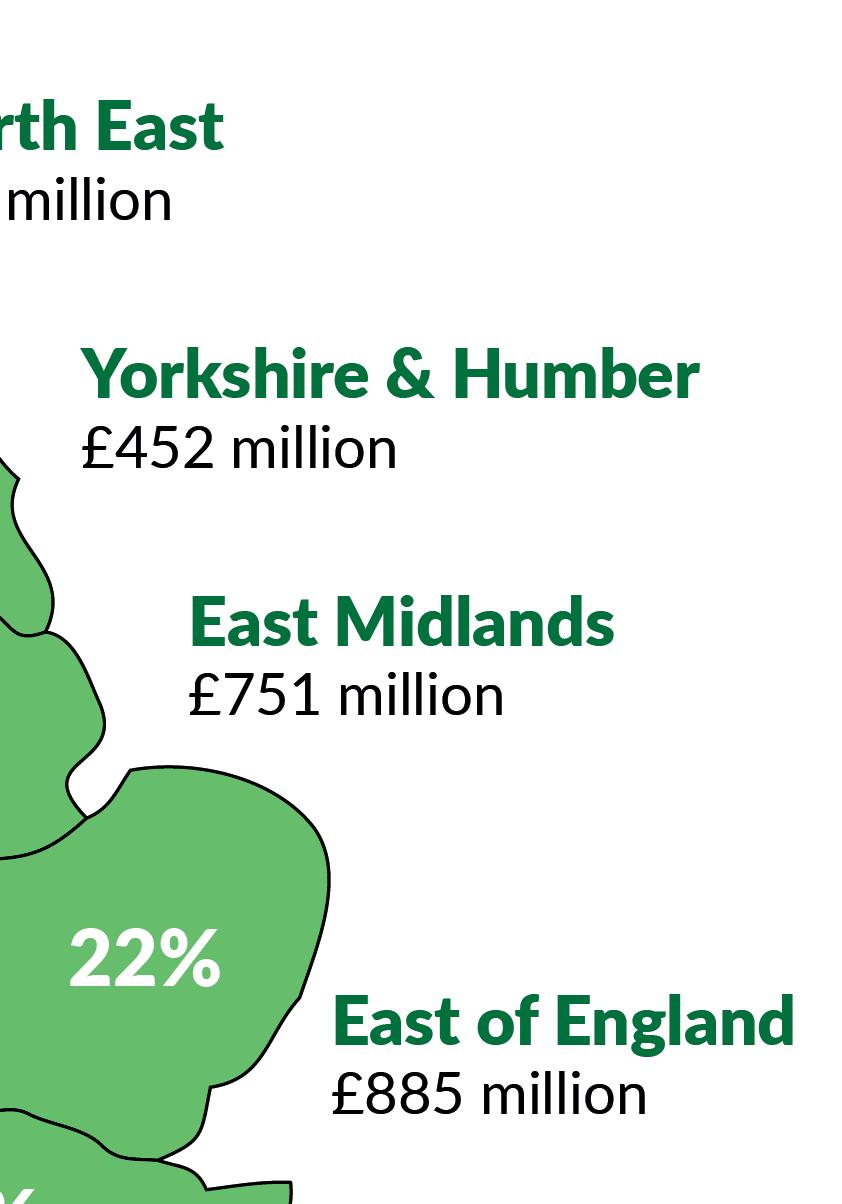
So where, then, does MHA fit into this everevolving agricultural picture?
We like to believe that we support the rural economy in a variety of useful and pragmatic ways.
You will see us at national and regional
shows, such as the National Fruit Show, where we have a ‘surgery’ approach to hearing about agricultural issues and challenges, as well as providing thought leadership that is squarely aimed at leveraging financial flexibility and value in support of better-enabling rural businesses.
This takes a variety of forms, from realising grant support through to identifying where efficiencies can be gained without impacting performance. As one of my colleagues recently said, we are often first to see where the issues lay because we are the ones looking forensically at the numbers.
At MHA we are leading advocates of sustainable accounting. It’s embedded in the firm’s tag line, ‘Now, for tomorrow’ and it is at the heart of absolutely everything we do.
But what do we mean by sustainable accounting?
The clue is in all the issues that face the agricultural, rural and farming economy. Sustainable accounting connects a business’s strategy from a sustainable framework that discloses information covering environmental, economic and social dimensions. This is the bedrock of a business that must deal with and conquer a myriad challenges, demands and,

dare I say it, opportunities.
It is in this latter area that we have gained an enviable track record, helping to finance major agricultural infrastructure projects and programmes, enabling automation and supporting farm businesses (from the smallest of smallholdings to industry-leading farms) in achieving their often highly ambitious goals; and doing so in a practical, pragmatic and timely way.
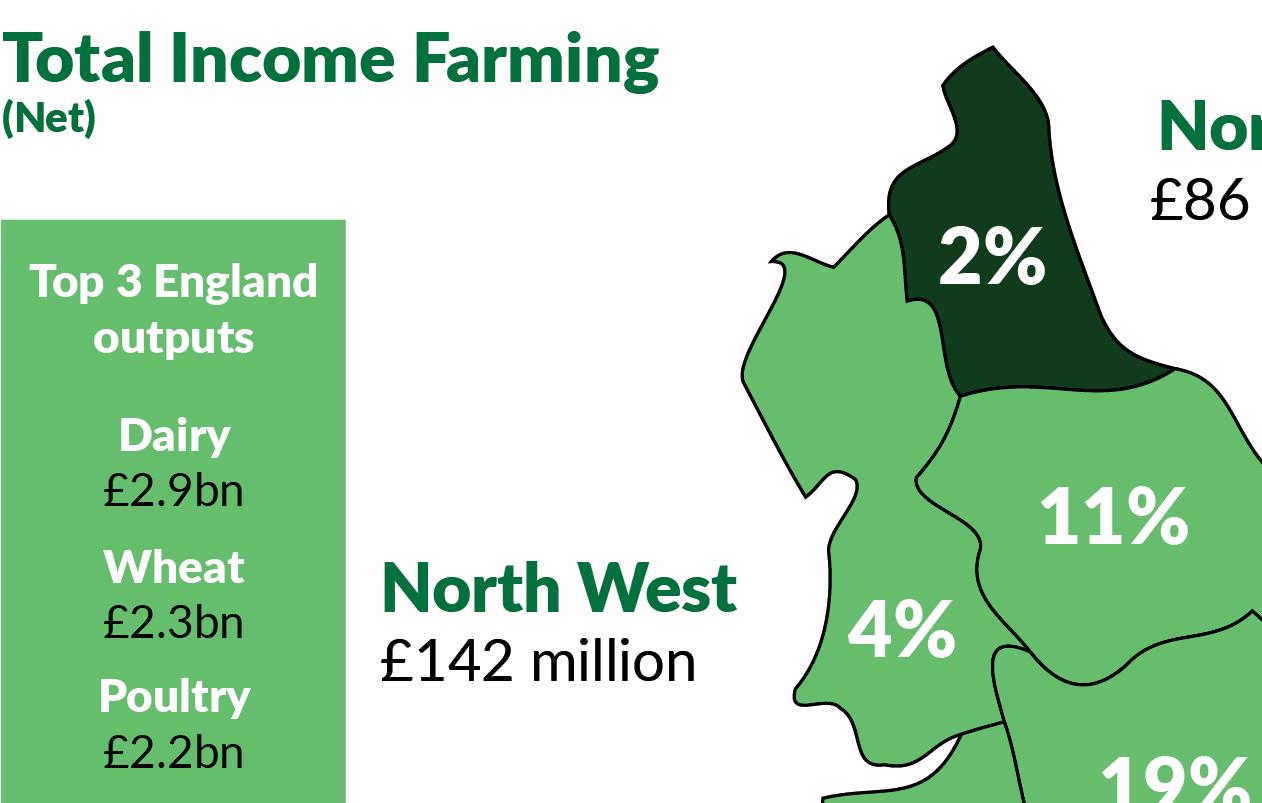
With new pressures as a result of climate change and alteration in the criteria for RPA payments, never before has a good firm of accountants been so essential to the sustainability and future-proofing of rural businesses.
As a contributor to the Rural Policy Group said in 2021: “It shouldn’t be necessary for rural businesses to go into the red to be green.”
Increasingly in recent years we have found ourselves becoming an essential element of many of our rural clients’ forward planning and strategic business frameworks. It makes sense; when two organisations are able to focus on what they do best, and trust the other to do the same, the results can be game-changing.
And that, after all, just might be the UK’s real secret weapon.
WWW.SOUTHEASTFARMER.NET | DECEMBER 2022 69 TO ADVERTISE CALL 01303 233883



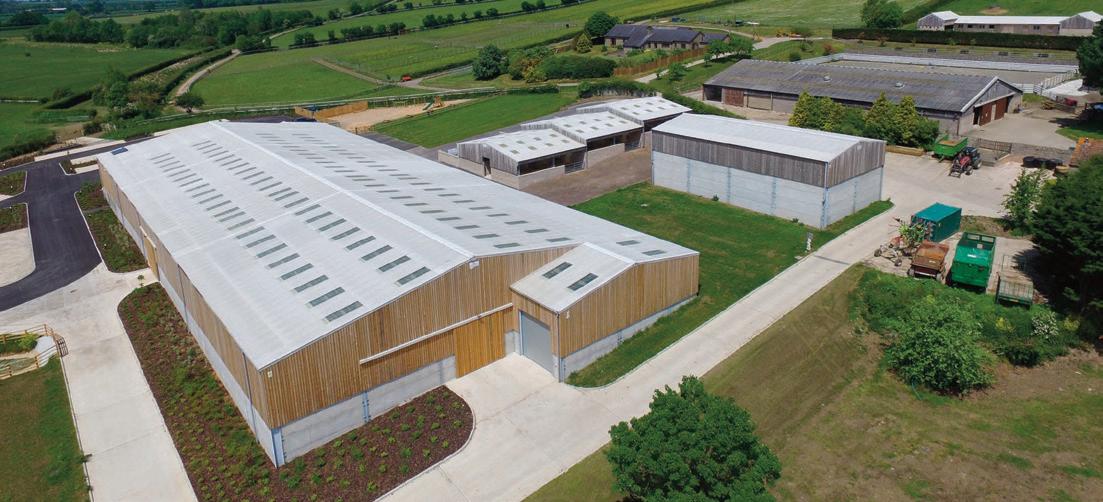


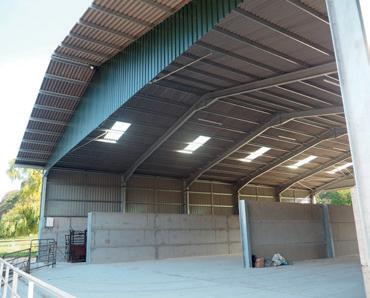
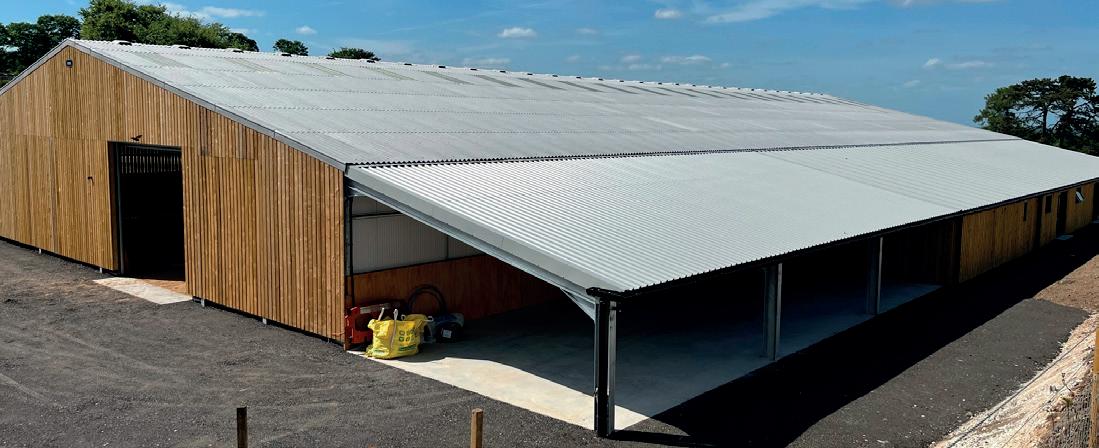

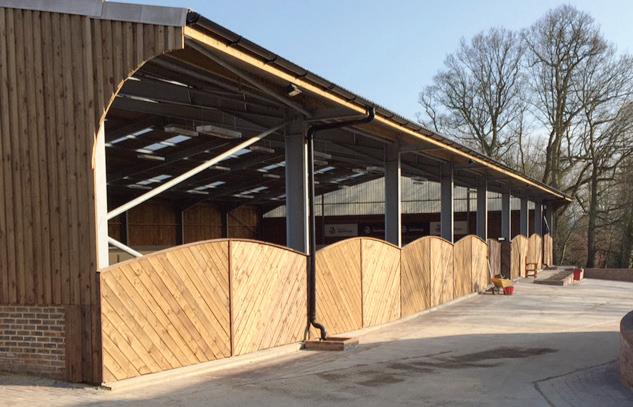

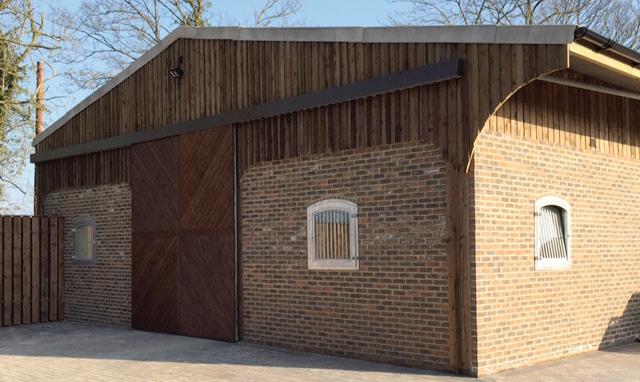



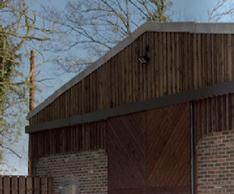
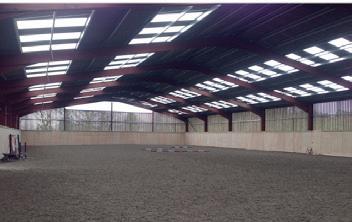


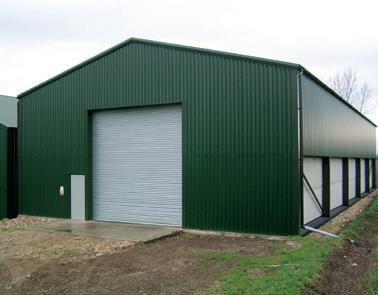
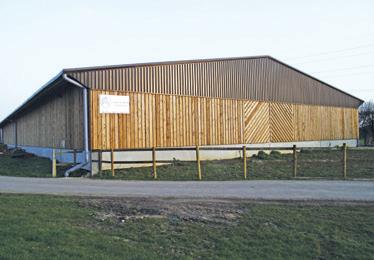



DECEMBER 2022 | WWW.SOUTHEASTFARMER.NET 70 CLASSIFIEDS CONSTRUCTION CONSTRUCTION Industrial & Commercial | Structural Steelwork | Agricultural & Equestrian Contact us for a free quotation 01269 831831 enquiry@shufflebottom.co.uk www.shufflebottom.co.uk Shufflebottom Ltd Cross Hands Business Park, Cross Hands, Llanelli, Carmarthenshire SA14 6RE Shufflebottom Agricultural Buildings Steel-frame buildings for your farm + Supply only or supply & erect + Construction all over the UK + Award winning company Strength, Security, Style Office 01273 492404 � info@formabuild.co.uk www.formabuild.co.uk We specialise in the supply and construction of steel framed buildings together with the repair and refurbishment of existing farm buildings. Based in the heart of Sussex, covering the South East. Sussex builders since at least 1605. Forma offer all aspects of steel framed construction and cladding together with groundworks and electrical fit out if required. formabuild.co.uk 100% British designed & built Over 35 Years experience Site visits Call to arrange a site survey All our panels are marked Gary White 07812 599679 Jason White 07941 274751 Based in Lewes, East Sussex G.E.WHITE & SONS Ltd All refurbishments & repairs undertaken. Call for a free quote today. AGRICULTURAL, EQUESTRIAN & INDUSTRIAL STEEL FRAMED BUILDINGS We supply CONCRETE PANELS – Any size to suit your needs All aspects of steel work, cladding & groundwork. Family run business with 45 years experience. “You tried the others, now try the brothers” All our buildings are marked www.gjelgarconstruction.co.uk For more information contact us: t: 01233 623739 m: 07860 414227 e: office@gjelgarconstruction.co.uk • Steel frame buildings • Sheeting and cladding • Guttering and repairs • Groundworks and drainage • Demolition and asbestos removal • Refurbishment and change of use • Concrete frame and steel frame repairs • Insurance and general repairs • Concrete floor and block paving G. J. ELGAR CONSTRUCTION Ltd







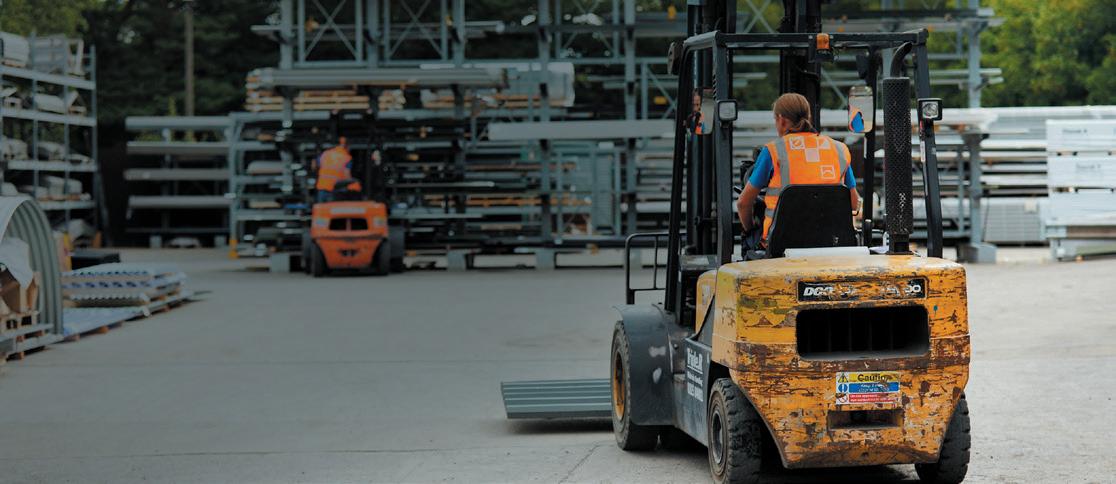





WWW.SOUTHEASTFARMER.NET | DECEMBER 2022 71 TO ADVERTISE CALL 01303 233883 CLASSIFIEDS CONSTRUCTION CONSTRUCTION CONSTRUCTION Agriculture ~ Cold Storage ~ Equestrian ~ Industrial ~ Waste Recycling • Agricultural Buildings • Cold Store Buildings • Equestrian Buildings • Industrial Buildings • Waste Recycling Buildings • Structural Steel • Drawing Services • Design Services • Mezzanine Floors • Custom Steelwork 01323 890403 www.danddconstruction.co.uk info@danddconstruction.co.uk To advertise in South East Farmer telephone 01303 233883 Steel frame buildings for all your farming and agricultural needs. Visit our website or find us on social media to learn more... Supplying profiled roofing products to contractors, builders and farmers visit www.southernsheeting.co.uk for our full range or call 01342 590 357 to speak to our friendly sales team Our main products off the shelf include: • Metal sheeting • Insulated panels • Fibre cement • Rooflights • Onduline • Fixings and accessories southernsheeting.co.uk NATIONWIDE DELIVERY • EXTENSIVE RANGES IN STOCK CS3152 SS SE Farmers 190mm x 133mm advert v2.indd 2 23/11/2022 15:47 Arrange a site visit with one of our contracts managers to discuss your project in more detail by emailing enquiries@kenwardgroundworks.co.uk or call 01403 210218 www.kenwardgroundworks.co.uk Kenward Construction based in Horsham, West Sussex offer a full design and build service for your next steel framed building including composite cladding, concrete panels, roller shutter doors and bespoke designs to meet individual planning conditions. Kenward Construction also offer a wide range of services offering a truly one stop shop for your next farm building project. Demolition, plant hire, access roads, drainage, sewage treatment plants, rainwater harvesting, biobed wash downs, paving, concrete foundations / slabs, walling and site landscaping. ENWARD FREEPHONE: 01233 659129 from BT land-line charlie.woodger@btinternet.com REFURBS, BIG 6 ROOF SHEETS, ROOF LIGHTS, RIDGES, VERGES, VALLEY GUTTERS, BOX GUTTERS, BOUNDARY GUTTERS, ASBESTOS, SHEETING Single Sheet To Whole Roof Roller Shutters Accidental or Storm Damage Works Demolition Refurbishments Waste Clearances CALL TO DISCUSS YOUR PROJECT! ALL WORKS KENT & SUSSEX Professional Services to the Agricultural, Industrial & Equestrian Sectors FARM BUILDING REPAIRS

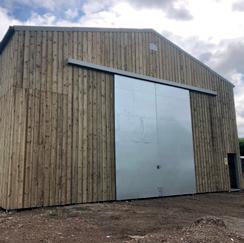




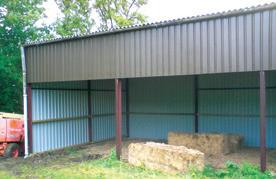
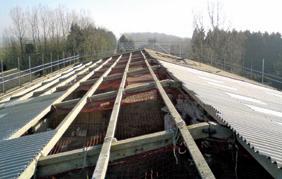
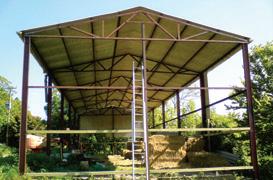




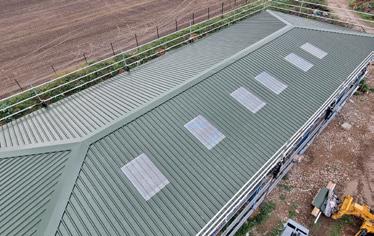













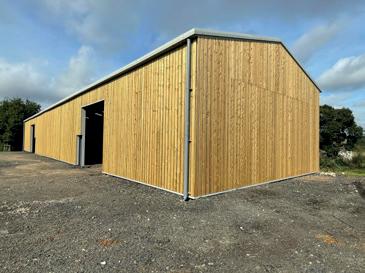


DECEMBER 2022 | WWW.SOUTHEASTFARMER.NET 72 CLASSIFIEDS Mobile: 07976 287836 Email: sales@shortlandstructures.com www.shortlandstructures.com • STEEL FRAMED BUILDINGS • CLADDING • ERECTING • • EXTENSIONS • ALTERATIONS • CONCRETE PANELS • ROLLER/SLIDING/PERSONNEL DOORS • SHORTLAND STRUCTURES LTD To advertise in South East Farmer telephone 01303 233883 JPR ROOFING & CLADDING… Professional Services to the Agricultural, Industrial & Equestrian Sectors ROOFING & CLADDING Including: • Sheeting & Cladding to New & Existing Buildings • Roof repairs, Replacements and over sheeting • Insulated or single skin plastic coated sheeting in a wide range of colours • Concrete fibre sheeting, Big 6 profile etc • Asbestos sheeting removal & disposal, using registered waste carrier • Valley gutters, concrete or metal, repaired or re-lined • Roof lights replaced or covered • Maintenance Programmes to avoid the problems that occur with neglect • Conversions & extensions to existing buildings • Groundworks, Access Roads, Drives, concrete bases, Drainage etc FIRE,FLOOD & STORM DAMAGE Including: • 24 Hour Call out service • Making site/building/premises safe • Structural safety assessment • Emergency clear-up operations • Emergency procedures to reduce impact on your business or premises • Demolition/site clearance • Asbestos removal/clearance & disposal, using registered waste carrier • Re-instatement works • Insurance Claims ALL WORKS GUARANTEED Specialists in: FREEPHONE: 0800 756 9886 Covering Kent, East/West Sussex and the South East from BT land-line MOBILE: 07813 142 145 CONSTRUCTION Specialist in the Agricultural, Industrial and Equestrian sectors. Steel frame supply and erect or just supply. Sheeting, cladding and oversheeting. Gutter replacement, repairs and lining. Steel frame, concrete frame alterations and repairs. Asbestos removal. Roof light and sheet changes. Refurbishments and usage changes. Demolition, groundworks and site clearance. 24 hour call out in the event of fire or break in. Roller shutters, sliding and personnel doors. All works are guaranteed Drone surveys Aerial photography 01227 918723 Quality of work Reliability and honesty Unbeatable on price 07784 619603 jez@JRJconstruction.co.uk www.JRJconstruction.co.uk Price Whitehead Chartered Surveyors, Architectural Design, & Planning Consultants – Est 1997 Please call us on 01580 765111 info@pricewhitehead.co.uk www.pricewhitehead.co.uk ◆ Planning Consultancy, Applications, & Appeals ◆ Architectural Design & Building Regulations ◆ Farm Buildings & Equestrian ◆ Barn Conversions & New House Schemes ◆ Rural Businesses and Properties ◆ Surveys - RICS & Topographical We are a Hampshire-based family run company specialising in the refurbishment, renovation, alteration and upgrade to the external envelope of buildings within the industrial, commercial and agricultural sectors. Our services Structural Steel Cladding Systems Roof Repairs Doors Gutter Maintenance Asbestos Removal Tel: 02380 617383 Email: info@symesindustrial.co.uk Web: www.symesindustrial.co.uk Units 6 & 7, Upper Norton Farm, Sutton Scotney, Hampshire SO21 3QF Industrial Commercial Agricultural






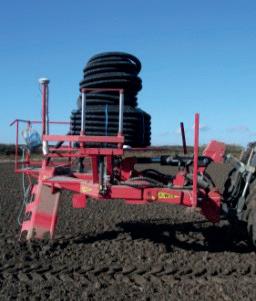

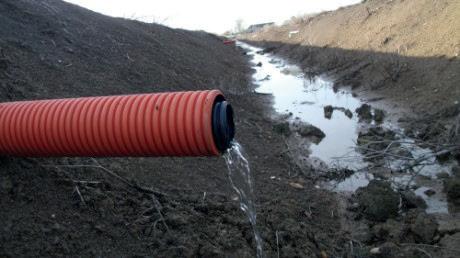
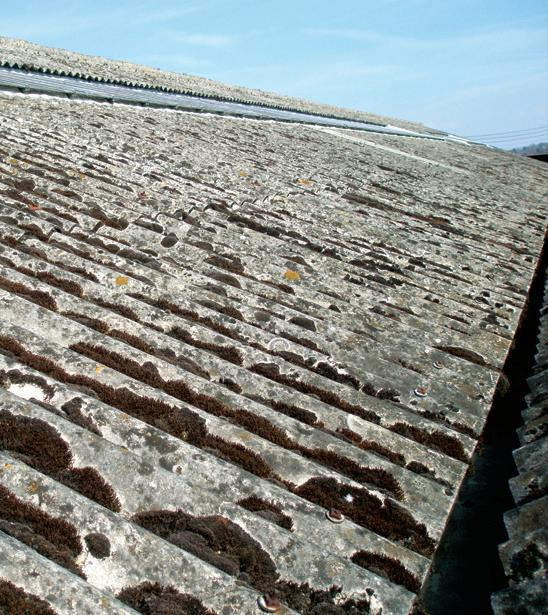
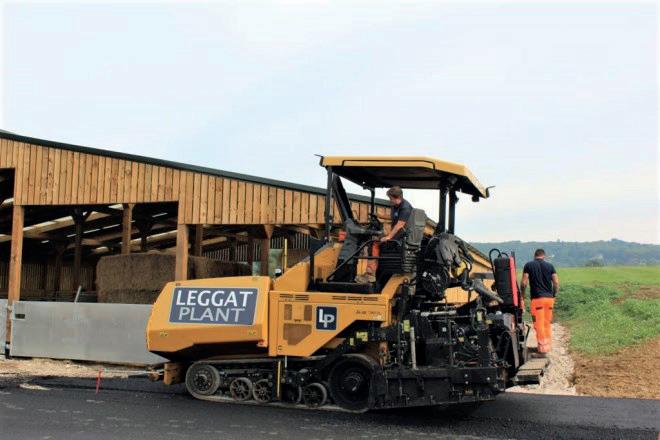
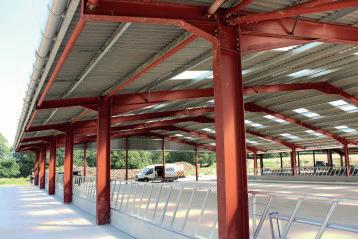



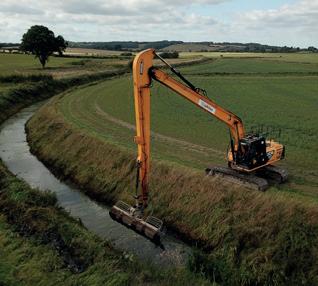
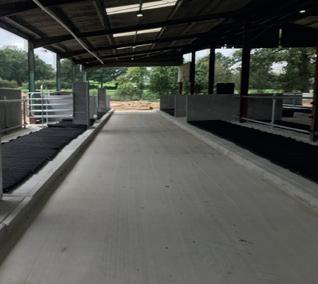







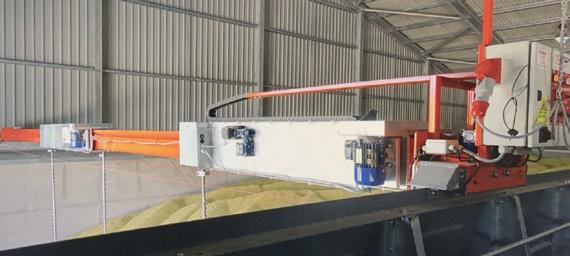
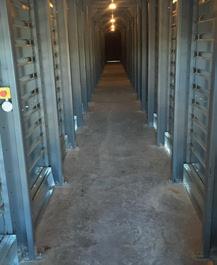
WWW.SOUTHEASTFARMER.NET | DECEMBER 2022 73 TO ADVERTISE CALL 01303 233883 CLASSIFIEDS CONTRACTORS To advertise in South East Farmer telephone 01303 233883 ● LAND DRAINAGE ● DITCHING ● POND WORK ● WATER SUPPLIES ● SEWAGE TREATMENT PLANTS ● GROUNDWORKS ● PLANT HIRE 360° EXCAVATORS FOR ESTIMATES & ENQUIRIES (01622) 890884 G & S BROWN Drainage Contractors Working with farmers since 1947 Email: info@brownsdrainage.co.uk www.brownsdrainage.co.uk SWA SW ATTWOOD & PARTNERS • FIELD MAPPING • DRAINAGE SURVEYING • DESIGN • DRAINAGE FOR FURTHER INFORMATION OR VISIT OUR WEBSITE TOM: 01795 880441 or 07943 192383 EMAIL: james@swattwood.com LAND DRAINAGE james@swattwood.com PLEASE CONTACT US OR VISIT OUR www.attwoodfarms.com GRAIN STORAGE & LAND DRAINAGE PLANT HIRE INERT TIPPING CLAY SALES FROM £220 PER ACRE FIELD MAPPING DRAINAGE SURVEYING DESIGN DRAINAGE LAND DRAINAGE www.swjfattwood.com S W ATTWOOD & PARTNERS LAND DRAINAGE 01795 880441 james@swattwood.com FOR FURTHER INFORMATION PLEASE CONTACT US OR VISIT OUR www.attwoodfarms.com GRAIN STORAGE & TESTING LAND DRAINAGE PLANT HIRE INERT TIPPING CLAY SALES FROM £220 PER ACRE DRAINAGE SURVEYING LAND DRAINAGE PHONE: 01795 880441 EMAIL: james@swattwood.com FOR FURTHER INFORMATION PLEASE CONTACT US OR VISIT OUR WEBSITE: www.attwoodfarms.com GRAIN STORAGE & TESTING LAND DRAINAGE PLANT HIRE INERT TIPPING FROM £220 PER ACRE FIELD MAPPING DRAINAGE SURVEYING DESIGN DRAINAGE CONSTRUCTION CONTRACTORS FREEPHONE: 01233 659129 from BT land-line charlie.woodger@btinternet.com Asbestos roof sheeting removals Asbestos encapsulation Asbestos fire damage, clearance & re-instatement works Asbestos clearance & de-contamination Asbestos disposals by licenced registered company New metal roofs installed over old asbestos roofs Roof light & sheet repairs Gutter repairs Gutter replacements & re-lining Strip & refurbishment works Change of use projects Demolition & Groundworks CALL TO DISCUSS YOUR PROJECT! Professional Services to the Agricultural, Industrial & Equestrian Sectors ALL RISKS LTD ASBESTOS ROOF REMOVALS CROP DRYING CIVIL ENGINEERING GROUNDWORKS CONSTRUCTION BUILDING ERECTION LIVESTOCK & CROP STORAGE SOLUTIONS LAND DRAINAGE SYSTEMS NEW SERVICES INSTALLATIONS FOUNDATION EXCAVATIONS ASPHALT PAVING & SO MUCH MORE! sales@leggatplant.com @leggatplant @leggatplant 01342 325738 | leggatplant.com LAND DRAINAGE, EARTHWORKS, GROUNDWORKS & CONSTRUCTION FULL LAND DRAINAGE SERVICE Sportsfields, amenity and irrigation systems using Mastenbroek trenchers PONDS, LAKES & RESERVOIRS Construction and maintenance GROUNDWORKS & CONSTRUCTION Primary excavations, aggregate sub-base, agricultural construction and concreting ENVIRONMENTAL HABITATS Water course maintenance and improvement works For all enquiries call 01233 860404 or 07770 867625 (Harvey) www.pellcroft.com | sales@pellcroft.com | 01526 342466 PELLCROFT Manufacturers of centrifugal, low volume and portable fans, air tunnels, drive over oors, grain stirrers and gas burners
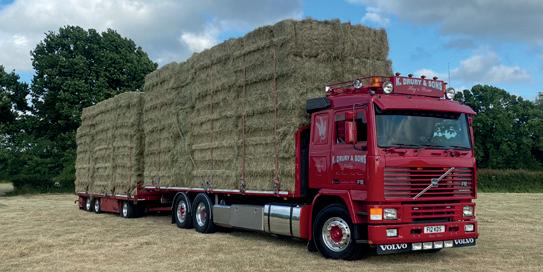

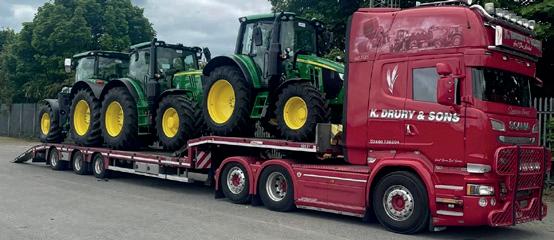
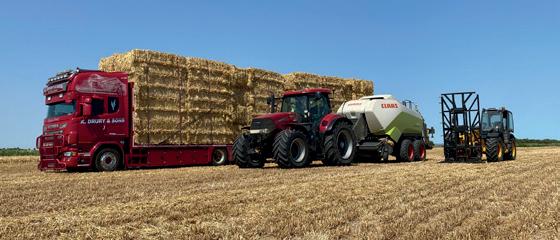



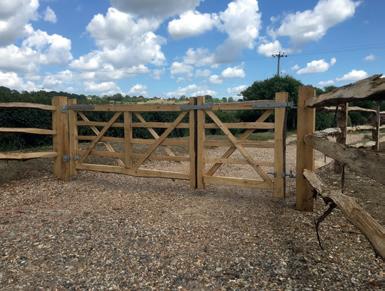



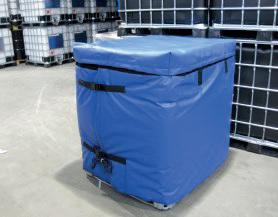


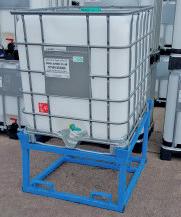












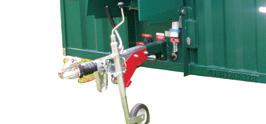






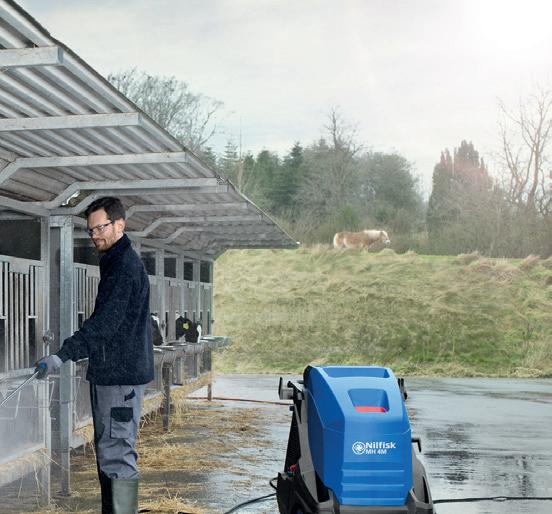
















DECEMBER 2022 | WWW.SOUTHEASTFARMER.NET 74 CLASSIFIEDS To advertise in South East Farmer telephone 01303 233883 HAULIERS FENCING PRESSURE WASHERS HAY & STRAW IN STOCK | ROUND & BIG SQUARE BALES 07860 728204 Hay & Straw Merchant | Machinery Haulage Find us on Facebook FOR HIRE FOR SALE CONTAINERS CWP fencing Tel: 07985 298221 colin@cwpfencing.co.uk Standing Sweet Chestnut Wanted Cleft post and rail Cleft field gates Fencing stakes Straining posts Chestnut fencing Tel: 07985298221 colin@cwpfencing.co.uk Standing Sweet Chestnut Wanted Cleft post and rail Cleft field gates Fencing stakes Straining posts Chestnut fencing Tel: 07985298221 colin@cwpfencing.co.uk Standing Sweet Chestnut Wanted Cleft post and rail Cleft field gates Fencing stakes Straining posts Chestnut fencing Redhill Farm Services: Fencing Division ALL TYPES OF FENCING & GATES Supplied and erected & Repairs Tel: 01737 821220 Mob: 07768 931891 Email: redhillfarmservices@gmail.com STORAGE TANKS Visit www.smdd.co.uk or call 01594 833308 Buy from stock. Visit us to collect or same day dispatch with nationwide delivery. New and recycled IBC tanks. Plastic and steel drums. Water tanks & plenty of fittings. Smiths of the Forest of Dean The Tank and Drum Experts Visit www.smdd.co.uk or call 01594 833308 Buy from stock. Visit us to collect or same day dispatch with nationwide delivery. New and recycled IBC tanks. Plastic and steel drums. Water tanks & plenty of fittings. Smiths of the Forest of Dean The Tank and Drum Experts • Toilets & Showers for hire • Large range of Temporary canteens, stores & welfare units • E uent Tank Emptying • Events also catered for with chillers & toilets FOUR JAYS GROUP Tel: 01622 843135 Fax: 01622 844410 enquiries@fourjays.co.uk www.fourjays.co.uk HIRE SPECIALISTS ACROSS THE SOUTH EAST We are a leading supplier and an approved repair centre With 50 years trading in the cleaning industry. With our strong ties and long term relationship with the leading manufacturers 01825 705777 Unit 4, 72 Bell Lane Uckfield, East Sussex TN22 1QL enquiries@pressureclean.co.uk SALES SERVICE HIRE Container Sales & Rental New & Used Guaranteed Wind/Watertight equipment 10ft, 20ft & 40ft Equipment available Crawley – viewing by appointment only Freight Container Services (FCS) 01403 268723 • 01636 616335 • 07831 142 401 sales@fcs-uk.co.uk www.freightcontainerservices.com ENT Machines E: enquiries@kentmachines.co.uk T: 01732 884 551 • Mini Diggers • Telehandlers • Forklifts • Trailers @kentmachines.co.uk for SALE @KentMachines Kent Machines Ltd www.kentmachines.co.uk
Flawed (9)
Underwear (3)
Foundation of belief (9)
American King (4)
A type of bag (4)
Feeling of harmony amongst a group (7)
Perennial plant with yellow flowers (6,8)
Cuddle (6)
Allium that has edible leaves and flowers (6)
Short fight (7)
Argument (4)
Subterfuge (9)
Headroom (9)
Anger (4) DOWN 1 Resource to increase yield (5)
Coloured coating to surfaces (5)
Passageway for animals to move through (4)
Describe (7)
Life threatening condition of fish and dogs (5)
Perennial flowering plant in legume family (7) 9 A list of jobs to be done (4) 12 Self satisfied (4) 13 Fish with big teeth and no scales (6,3) 14 Small drop of liquid (4) 16 Type of fossil fuel (3) 17 Part of human digestive system (5) 18 Female sheep (3) 19 Guidance, counsel (6) 21 An illicit escapade (5) 22 Pretend (5) 23 High temperature (5) To
Correct entries will be entered into a draw which will take place on 20 December. The winner will be announced in the January edition.
Just in time for Christmas, we are offering readers the chance to win one bottle of Pinot Reserve and one bottle of Ortega. Enter the crossword to be in with a chance of winning four bottles of our favourite wine, Ortega. For more information about the vineyards, please visit www.biddendenvineyards.com or call 01580 291726. *Subject to availability


Correct answer: Howgate Wonder
LAST MONTH’S WINNER: Pete Lenihan from Brighton, East Sussex
WWW.SOUTHEASTFARMER.NET | DECEMBER 2022 75 TO ADVERTISE CALL 01303 233883 1 2 3 4 5 6 7 8 9 10 11 12 13 14 15 16 17 18 19 20 21 22 23 24 25 26 1 2 3 4 5 6 7 8 9 10 11 12 13 14 15 16 17 18 19 20 21 22 23 24 26 27 28 ® VI NE YA R DS COMPLETE OUR CROSSWORD TO WIN One bottle of Pinot Reserve and one bottle of Ortega VI NE YA R DS P L A Y O F F S C R U S H R N V A E H I N C R E A S E D F E R A L N O R H P D M T I N E W I N D O W S P P O L O W E L L I N G T O N B O O T H O I M I G H T Y G I N G E R T O E E L A E B L O A T E D S M E W F O L S T A L A N D S C A P E U K C E R M E F E A R S O M E P A W N LAST
PRIZE ANAGRAM: Cause of lameness in sheep (9) CROSSWORD
1
5
7
8
10
11
13
MONTH’S ANSWERS:
ACROSS
15
17
20
23
24
25
26
2
3
4
5
6
enter, simply unscramble the anagram (9) using the green squares. Email your replies with your name, address and phone number to sef.ed@kelsey.co.uk
Crossword by Rebecca Farmer, Broadstairs, Kent
22 February 2023 at Westpoint Exeter For more information and to request a media pack, call 07501 228882 or email: Rhiane.Easton@kelsey.co.uk Register as an attendee at www.westcountryfarmmachineryshow.co.uk The South West’s new farming event Book your space now! STOP Meet new customers and showcase new products and services STOP Manufacturers and the region’s top dealers attending STOP Network with potential new clients and suppliers STOP Support and promote farming in the West Country to a wider audience West Country Farming & Machinery Show Brought to you by Sponsored by: Auction Sponsor: AGRI & PLANT DIVISION AGRI & PLANT DIVISION Limited availability – reserve today!







































































































































































 Mike Kettlewell, Chipping Norton
Mike Kettlewell, Chipping Norton













 Rathfinny Estate @RathfinnyEstate
Rathfinny Estate @RathfinnyEstate









































































































































































































































































































































































































































































































































 NICK ADAMES Former dairy farmer
NICK ADAMES Former dairy farmer





















































































































































































































































































































